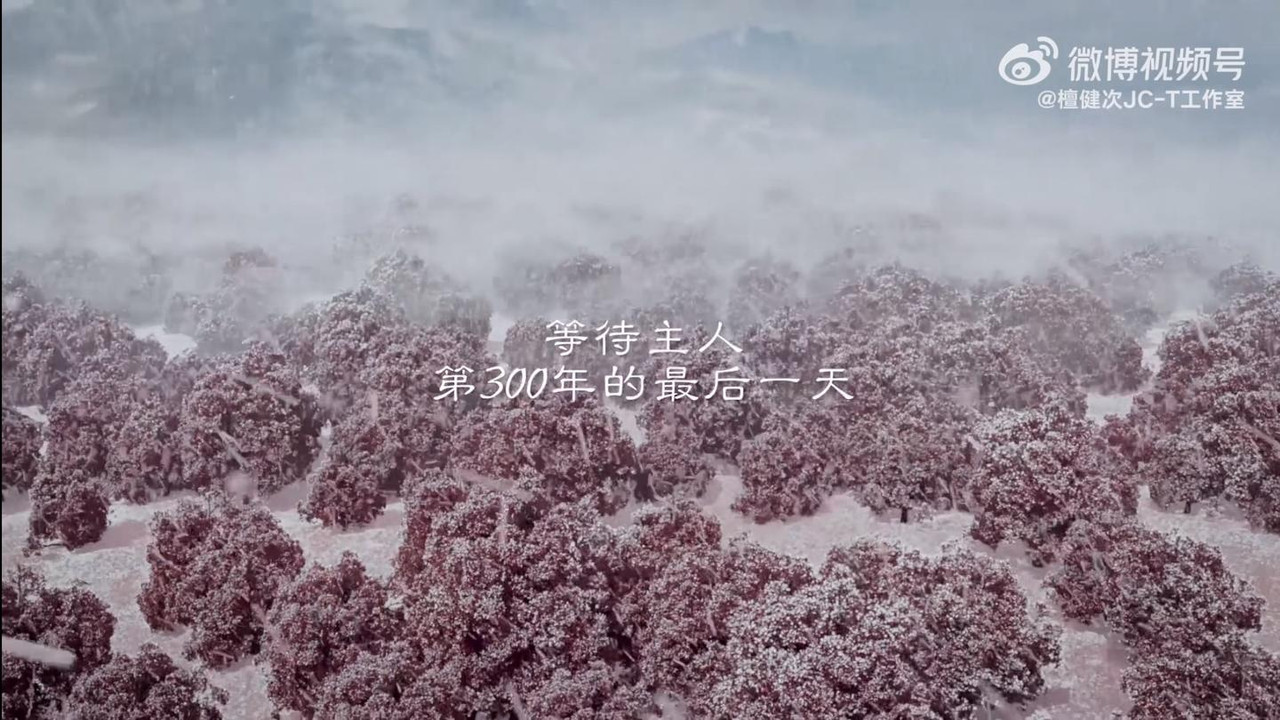
He worked hard to repair all of his master’s big shells.
(The rabbit spirit’s little bunny has already cultivated into human form—what about you, Furball?)
Romantic Plot Ending (Personal Interpretation, For Reference Only)
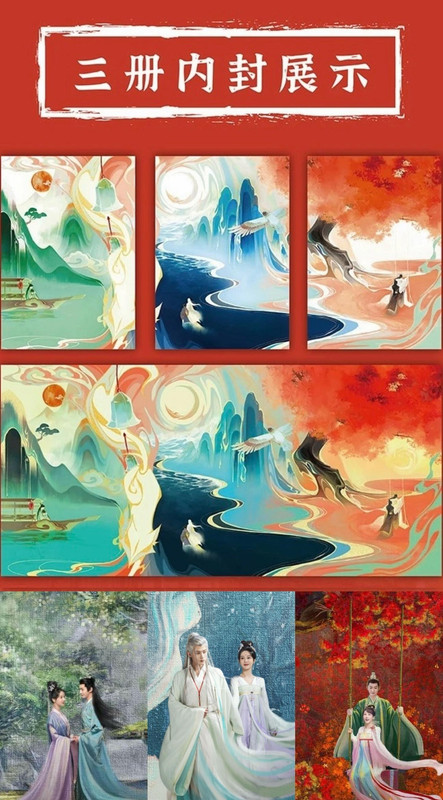
From the internet
Regarding the ending, Tong Hua cleverly leaves the answer to the audience, depending on how you view Xiao Yao... Xiao Yao is the "myriad beings," and the "myriad beings" is Xiao Yao. What would Xiao Yao do? Then, what would you do...?
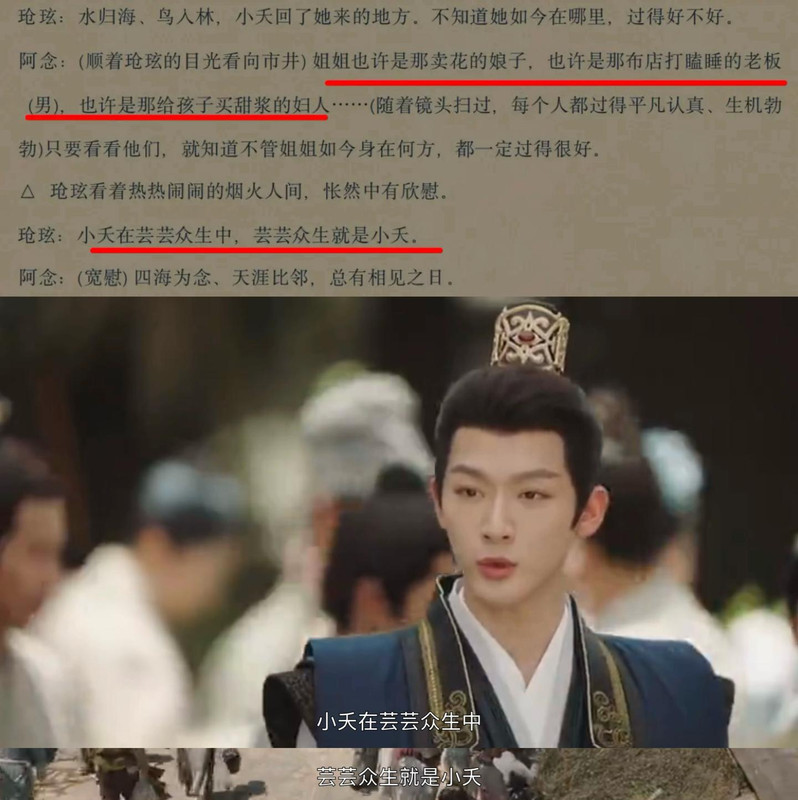
(The 3 possible endings for Xiao Yao are minor modifications from the book version)

① Yao Xuan route: Xiao Yao is the [flower-selling lady], wearing a Ruomu flower headdress…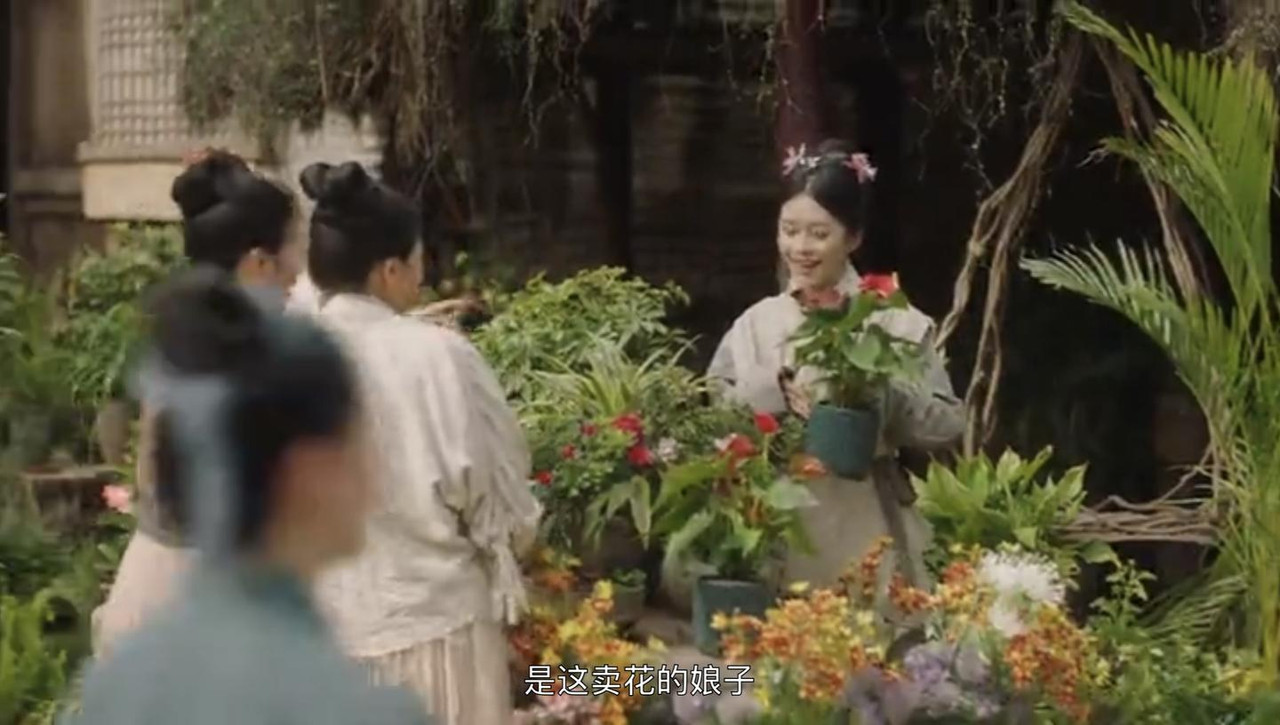
Flower-selling lady
(In the book version, she is a young woman selling wine, corresponding to Cangxuan's wine shop)
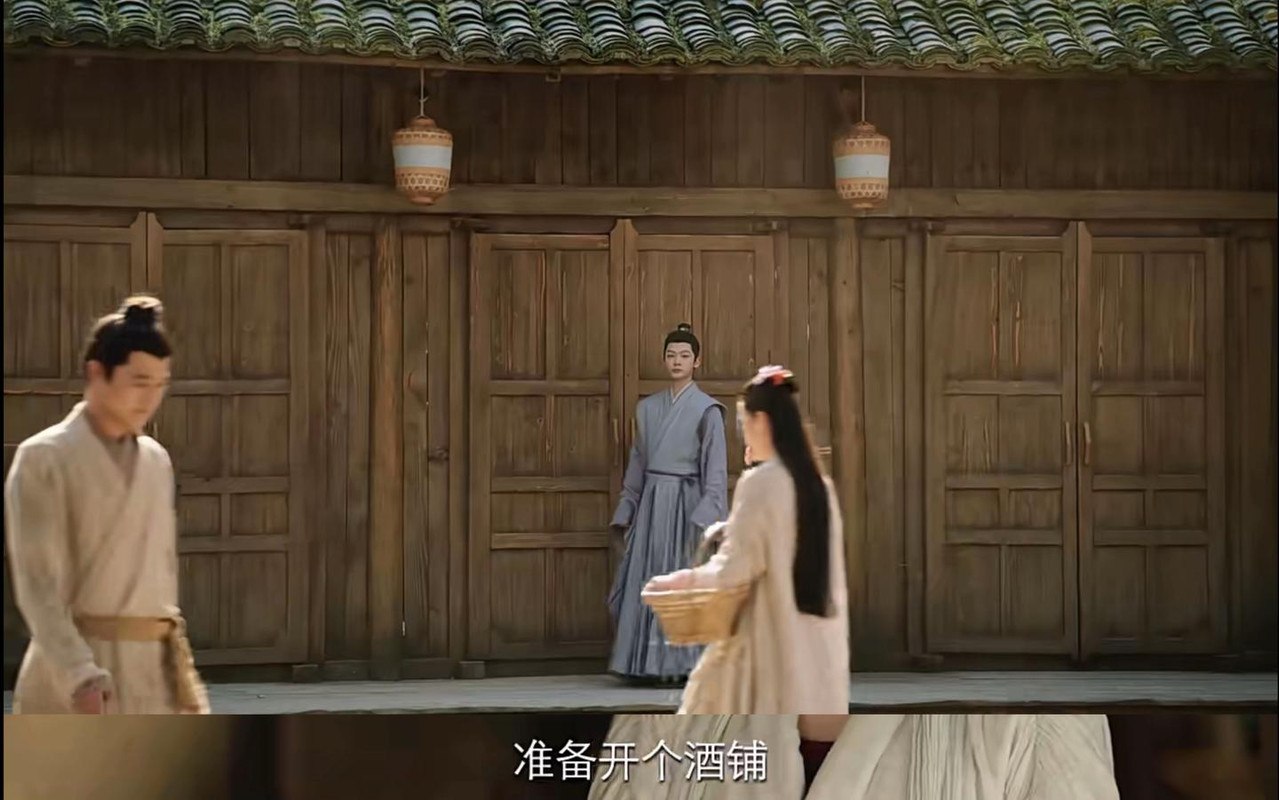
Xiao Yao ultimately forgave her cousin and returned to his side.
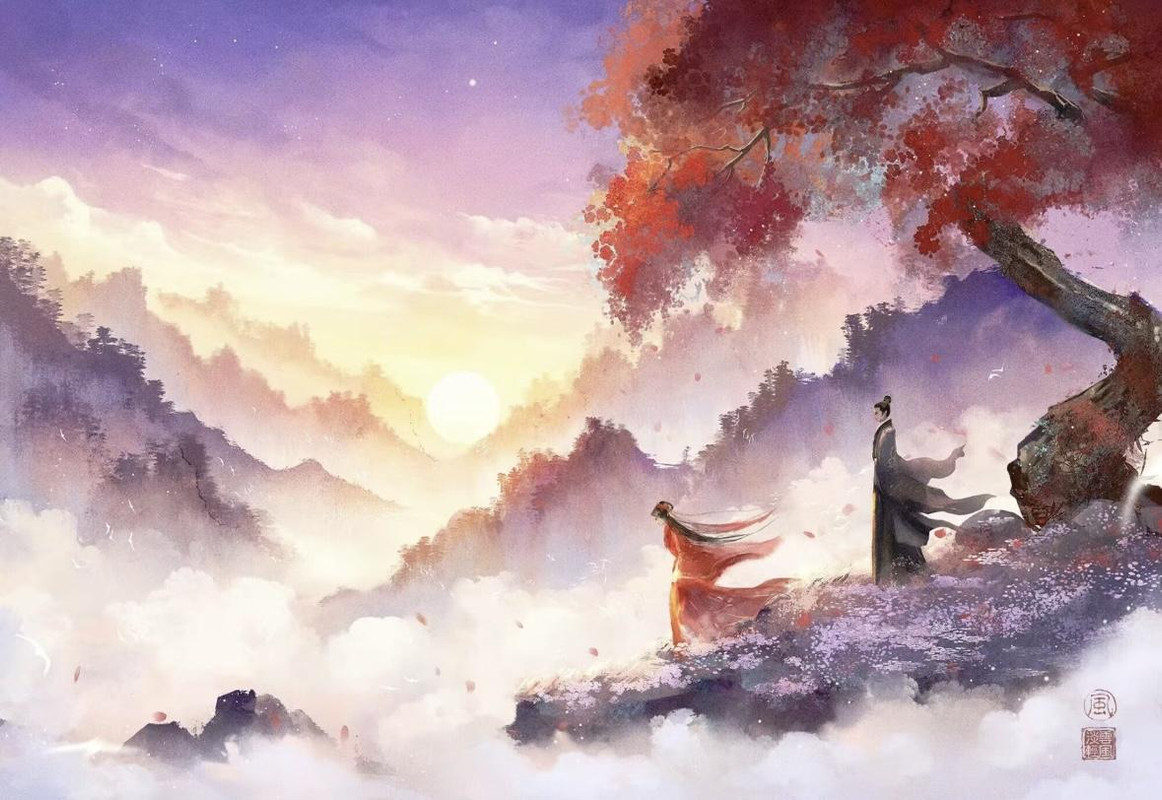
New edition novel illustration — Yao Xuan route
② Main storyline Yao Jing: Xiao Yao is the [male boss dozing off in the fabric shop], emphasizing transforming back into a man to do business as Xiao Liu…
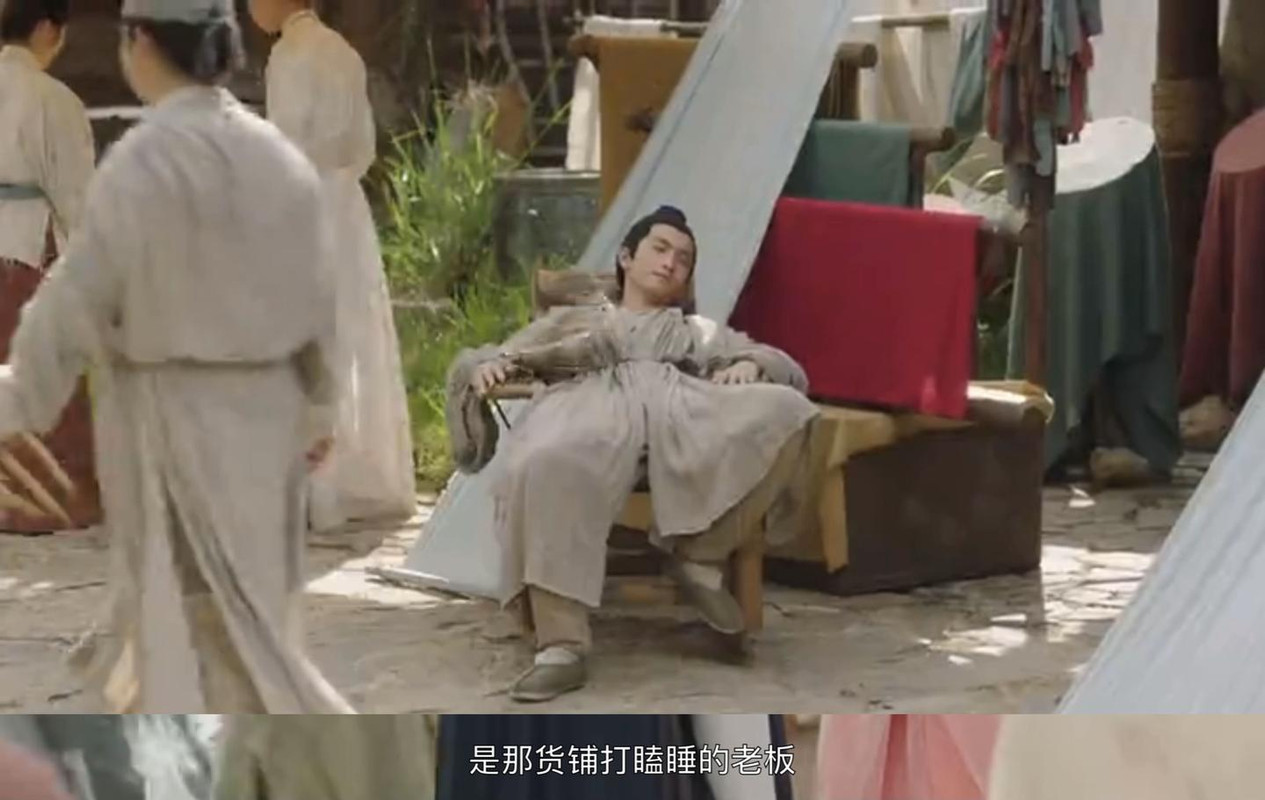
Man doing business
(In the book version, he is a dozing doctor, corresponding to Xiao Liu and Seventeen, why do they all turn back into men…)
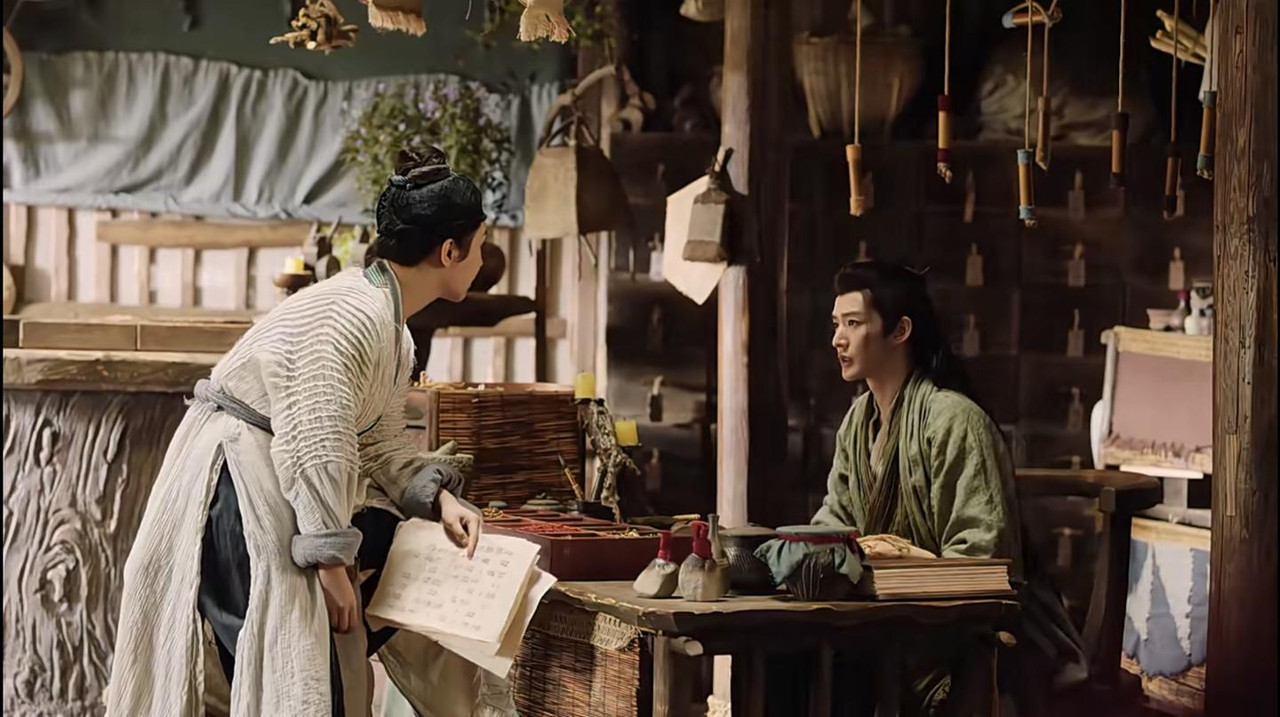
Xiao Yao has an emptiness in her heart, is foolish and ignorant, selfish and self-centered. As a negative example for growth, she grows downward, willingly imprisoned, not making an effort and only wanting to give up. In the end, she permanently loses true love and only obtains a broken and short-lived Ye Shi Qi.
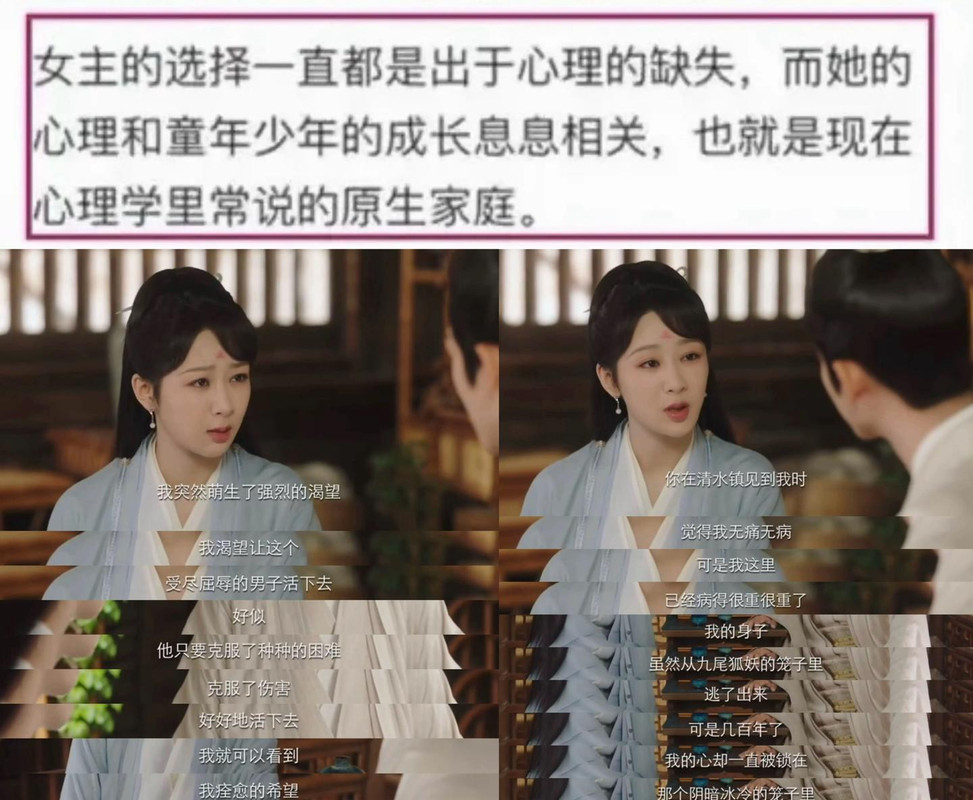
In short, deeply troubled
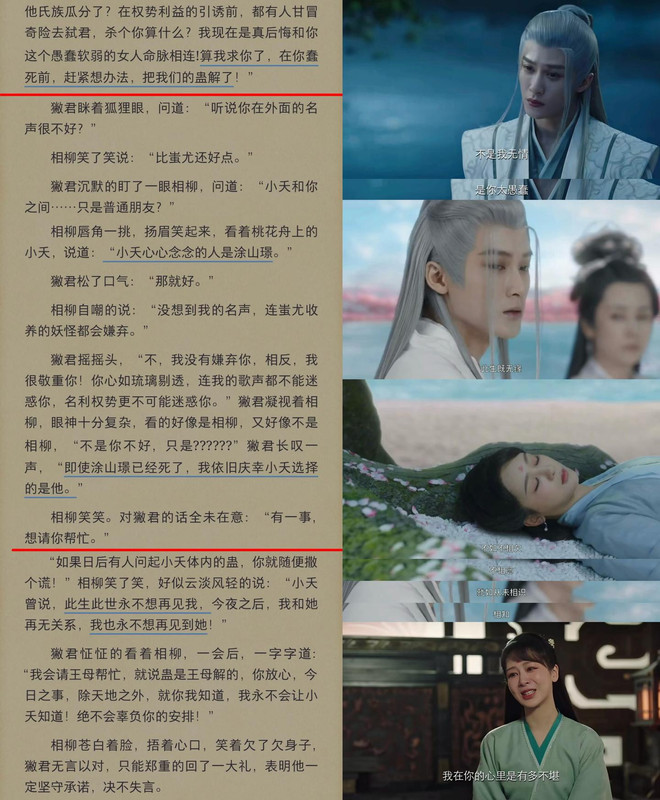
In the main storyline, Xiao Yao from the start chose the so-called “right person” as a substitute, abandoning the “one she loved”... the so-called “fulfillment”: then Xiang Liu fulfills Yao Jing, not only in this life, but Yao Liu and Xiang Liu will never see each other for eternity! (Is it bearable? You need to have some sense in your mind)
(It is known that the fox is expected not to live beyond a hundred years, after being severely injured by Hou losing seven tails and near death, kept alive by a life-preserving pill, with only 2/9 of actual lifespan left, several decades? Even if kept alive constantly by Xiao Yao’s blood, how long can it last? Together forever...?)
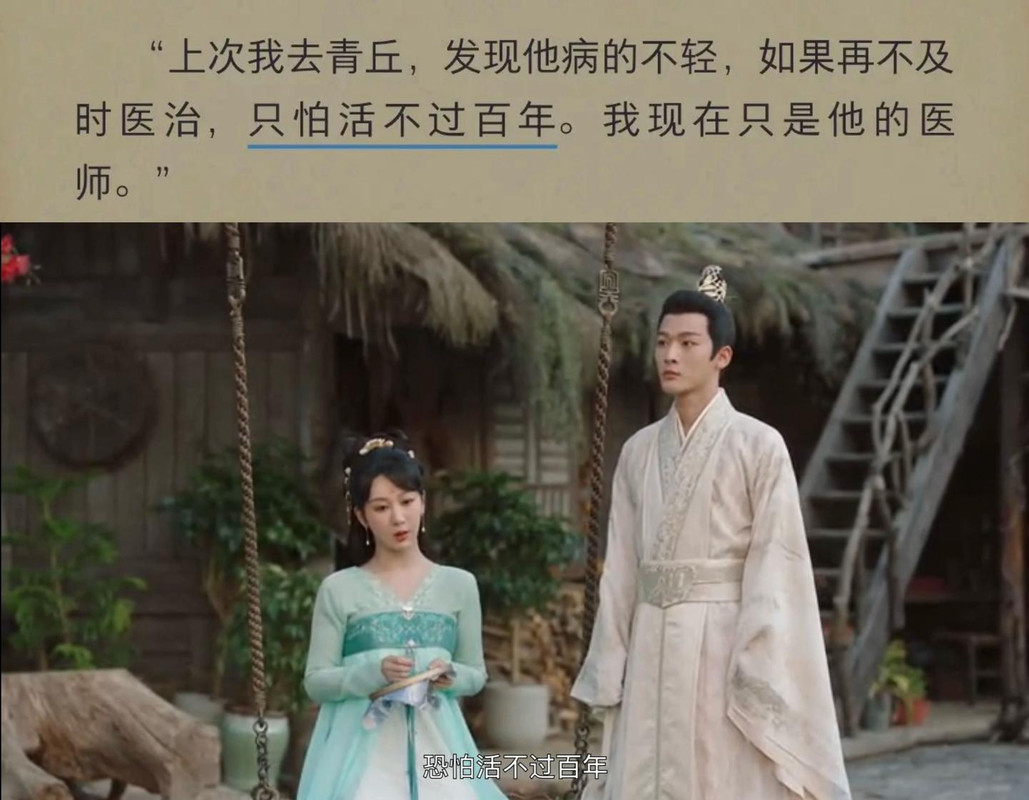
No more than a hundred years
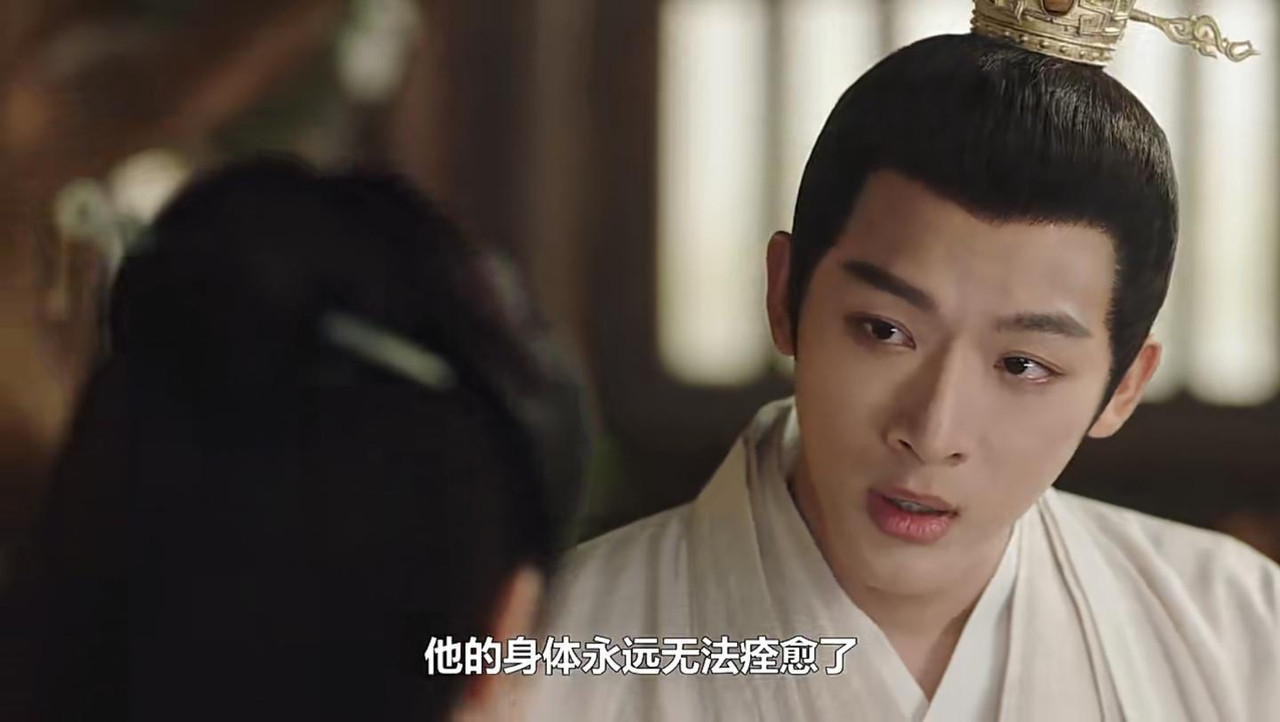
Those who know, know — Sister Yao totally crushed Jing from all angles; no chance of recovery.
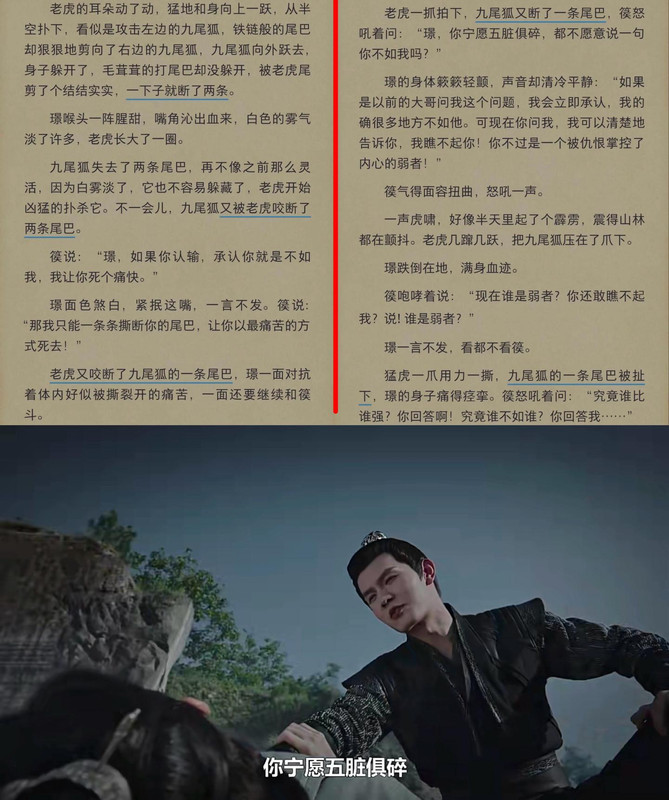
Had seven tails severed (the drama didn’t show it in detail, but it implies extremely serious injuries all the same)
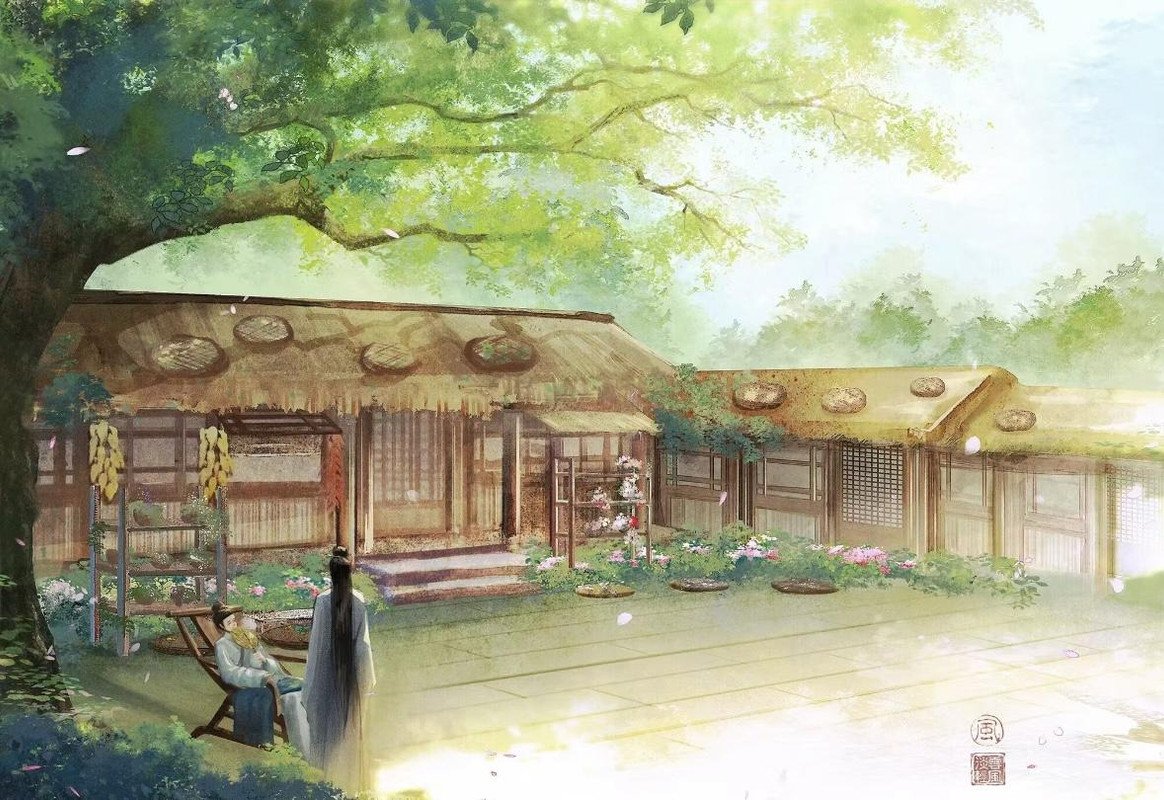
New edition novel illustration — Yao-Jing route
(Blogger’s comment: The wicked are rewarded, the good suffer — so it goes...)
③ Hidden route Yao–Liu: Xiao Yao is [the woman buying sweet syrup for a child], shown holding a “big-bellied laughing baby doll”…
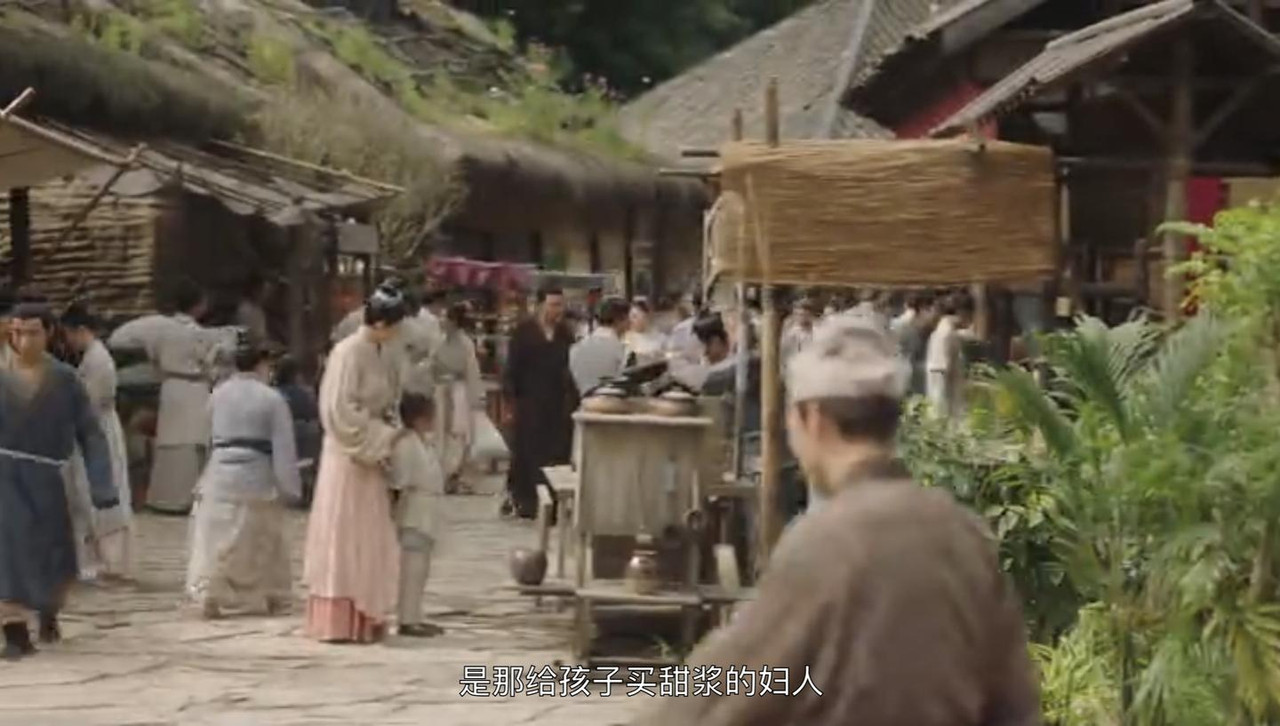
Woman with a child
(In the book version, she is a woman chasing after her child, corresponding to the big-bellied laughing baby doll)
Xiao Yao is sly and intelligent, perceptive of others' hearts, resilient and strong-willed. She poisons and kills the "nine-tailed fox demon" and escapes from the "nine-tailed fox demon’s prison." In the end, she breaks free from the shackles of bloodline and endures a long wait (Xiang Liu’s rebirth), ultimately reuniting in love and staying together.
(For detailed clues about the relationship between Xiang Liu and Guifang, and the themes of rebirth and reunion in the book and drama versions, see _Index Section Six-❷ and Three-❶-①①)
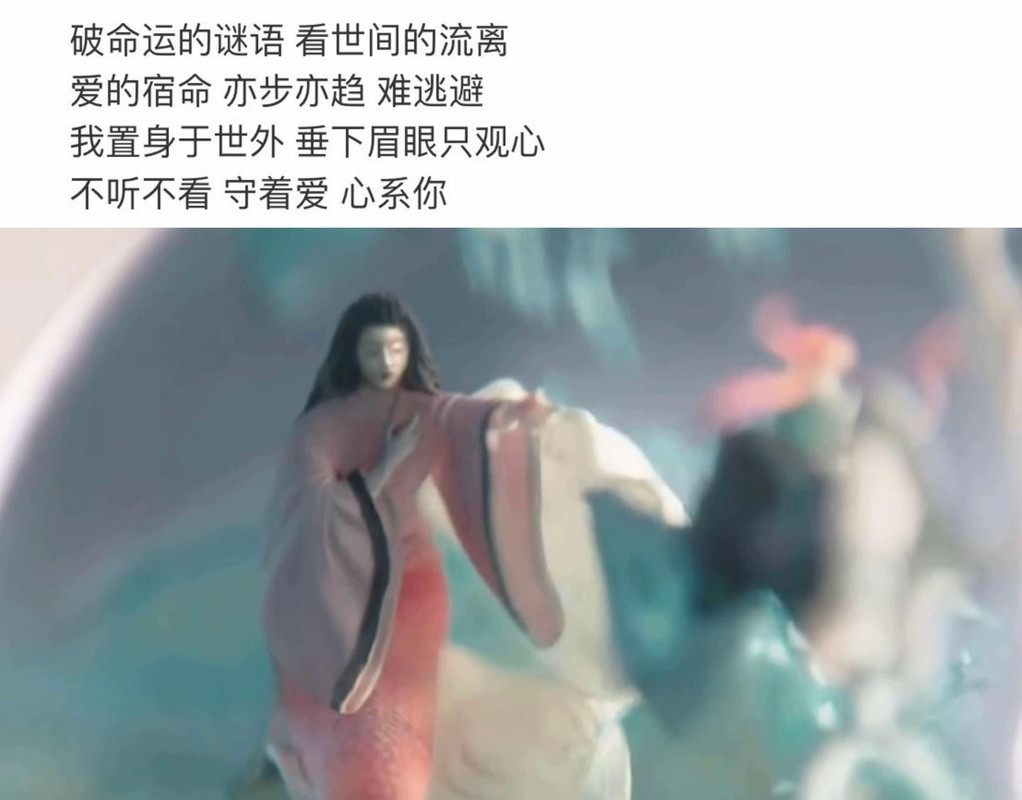
Only observing the heart — Lover’s Gu to reveal true feelings
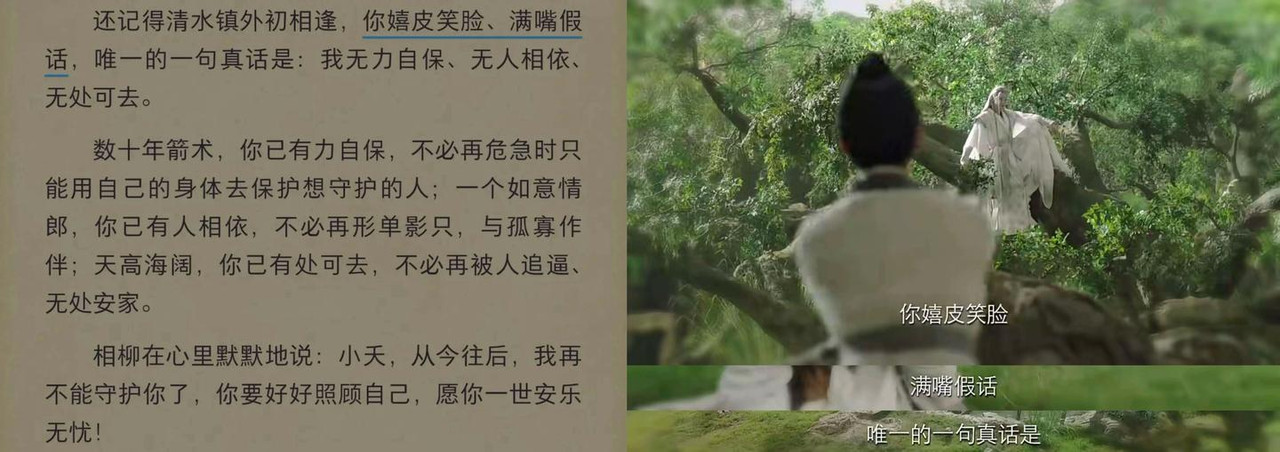
Xiang Liu — the only user manual for Xiao Yao (sly, an actor)
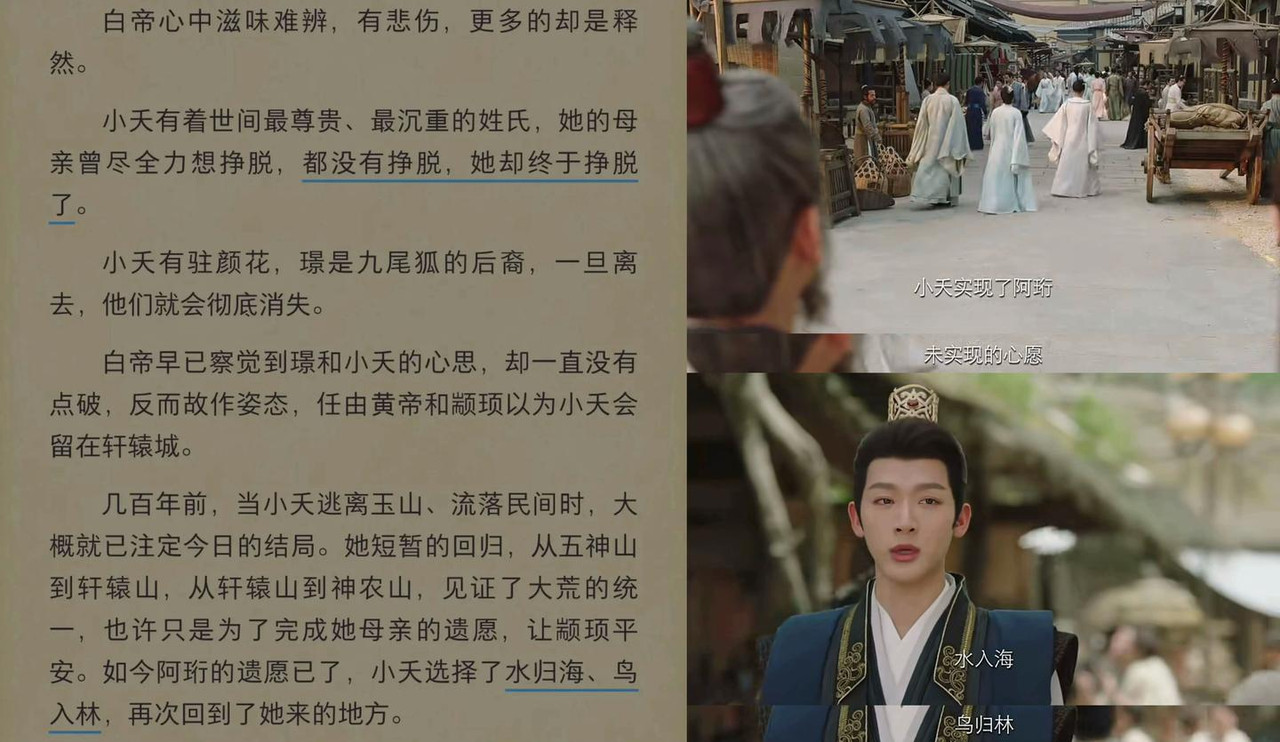
Breaking free from shackles — water returns to the sea, birds return to the forest
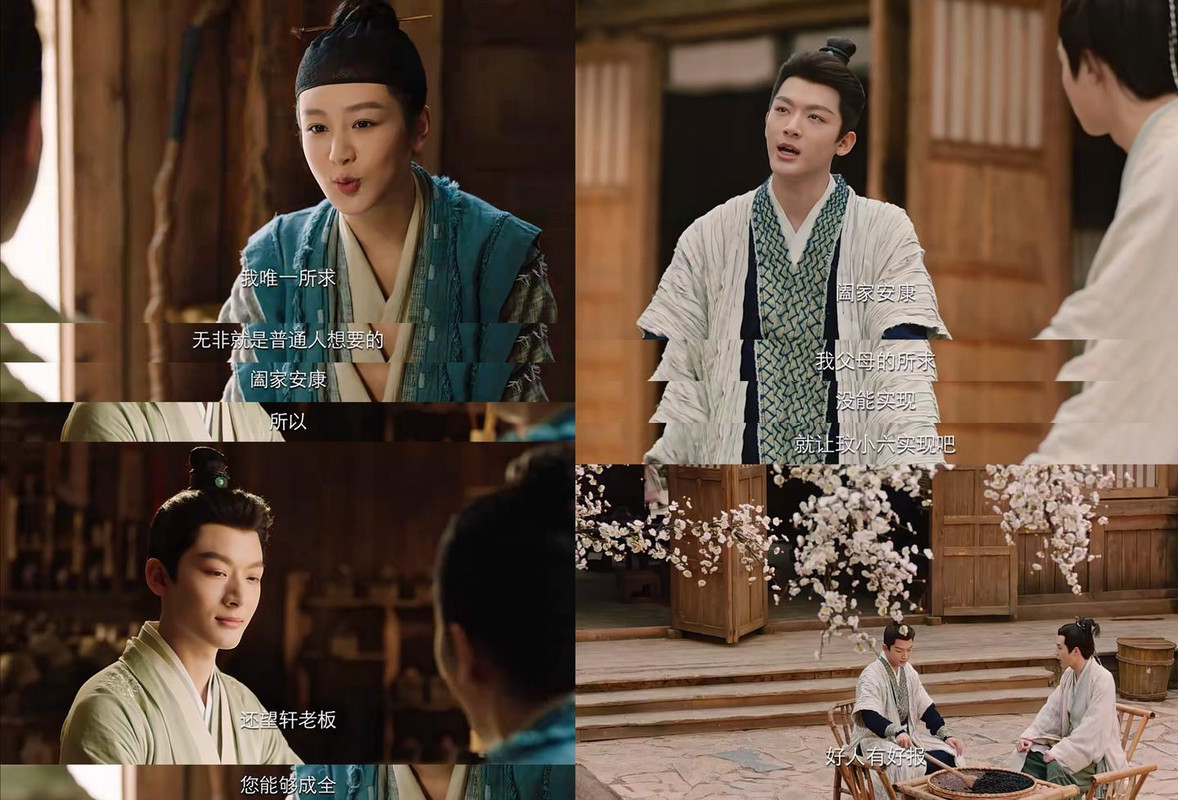
Good people will be rewarded
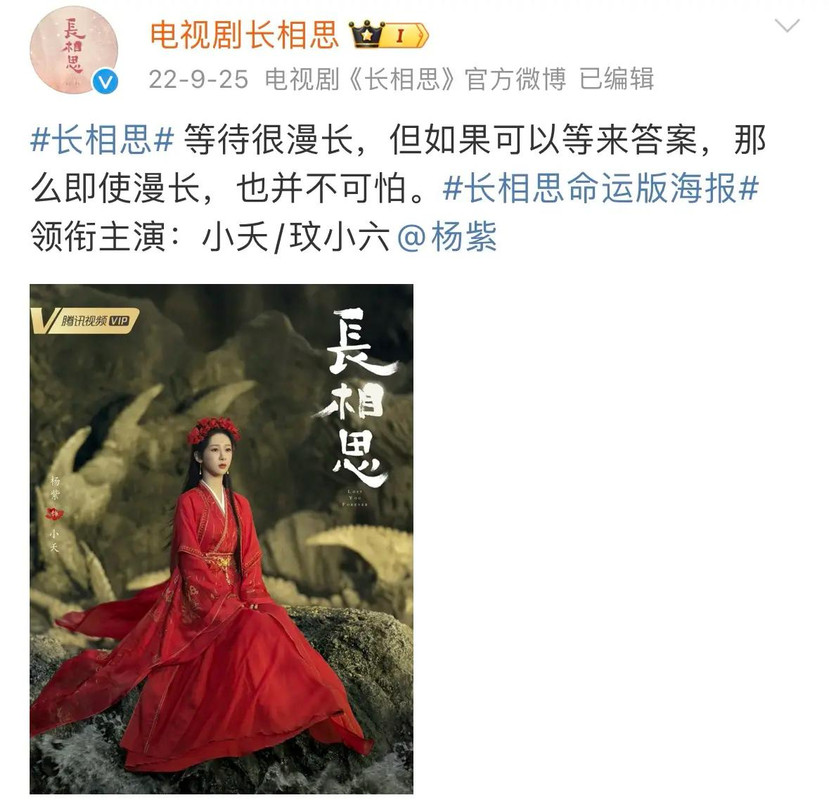
Destiny poster — a long wait, finally brings the answer
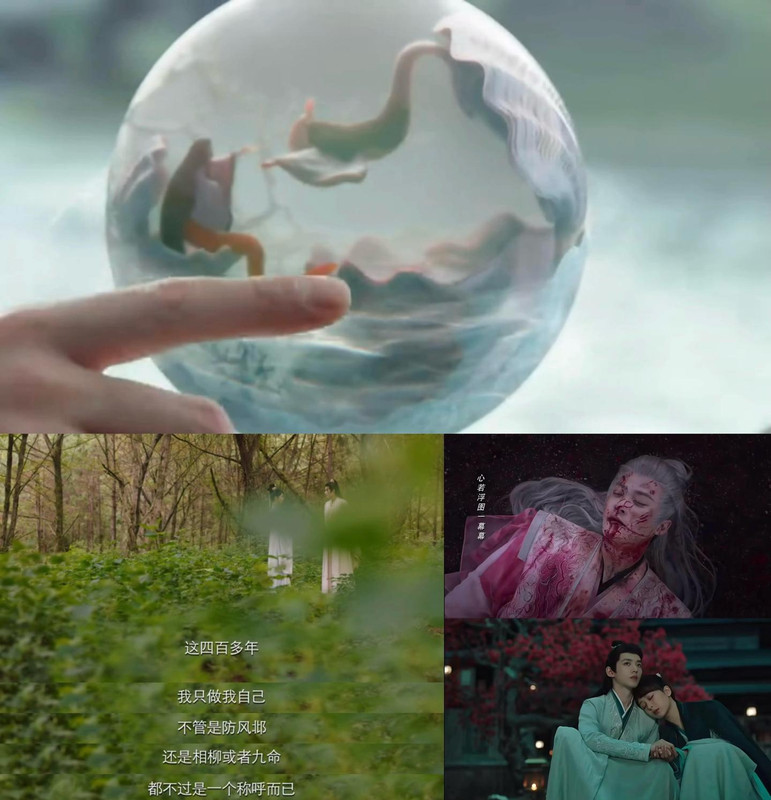
Sister Yao: What is a strong female lead? (What is military strategy?) Do you understand “repairing the plank road openly while sneaking through Chencang in secret”?
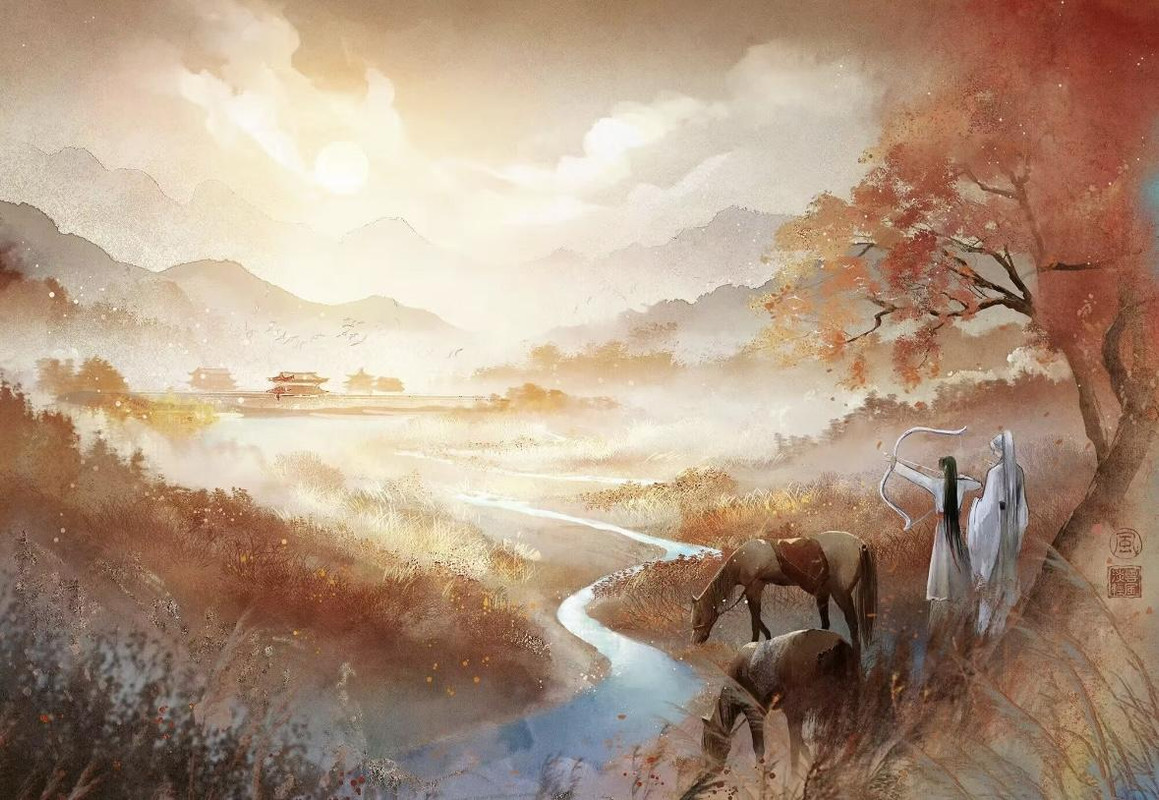
New edition novel illustration — Xiao Yao & Xiang Liu storyline
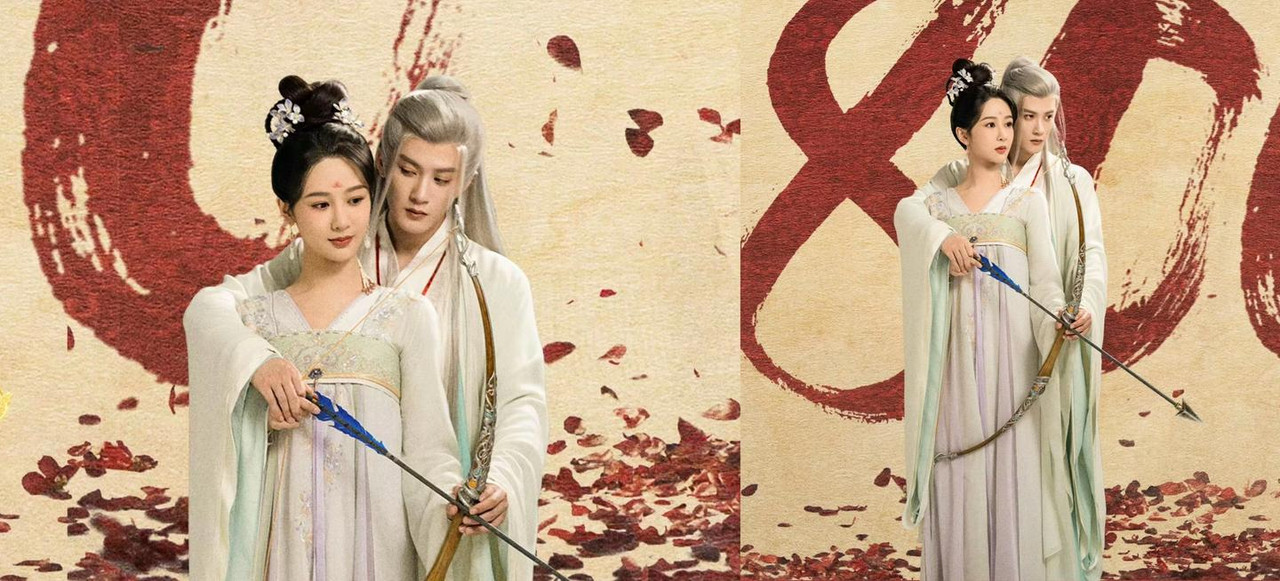
The four letter extras in the drama version reveal the true endings for the four male leads
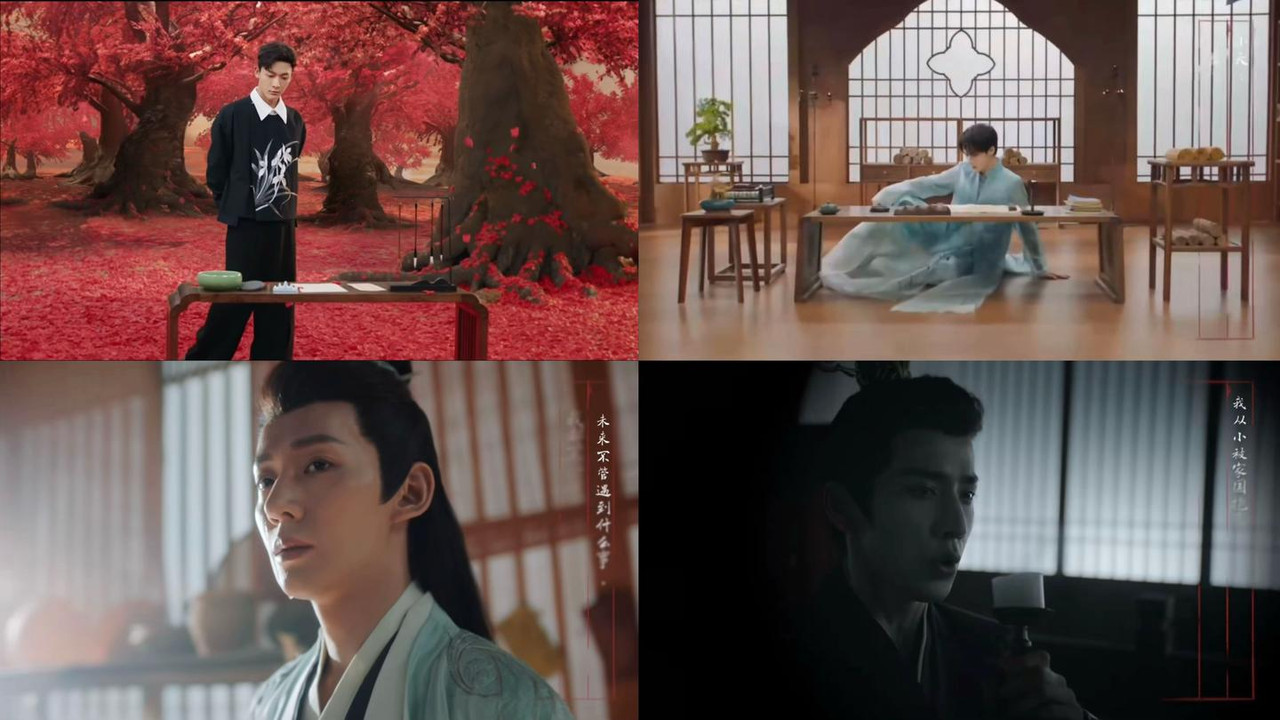
CangXuan – lives / XiangLiu – dies first then reborn / Jing – dies / Fenglong – dies.
From the post-ending perspective, the outfits of the four men represent their lifespan… Modern attire implies they lived long enough to reach the present day; ancient attire suggests they died in ancient times.
https://zhuanlan.zhihu.com/p/699826956?utm_psn=1792613331888119810
Some time ago, a fan asked me about the Love Letter Extras, and only then did I realize that there are actually four short extra episodes. Previously, I thought it was just an advertisement Tan Jianci did for yogurt. But once I watched them—what a shock!
These are clearly the ultimate endings for the four male leads.
Since these extras are so important, they absolutely deserve a detailed breakdown.
Let me give you the conclusion first:
Xiang Liu definitely has the most complete and fulfilling ending,while Tushan Jing’s extra contains the most information and hidden meanings.
I’ve already posted a full analysis in video form on Bilibili,What follows is just the text version.
Let’s start with Fenglong, because his death is not in doubt,so we use his version as the standard for determining who is “dead.”
Let’s start with Fenglong, because his death is undisputed, so his version serves as the standard for determining death.
The entire environment is very dim.
In the novel, he is the first character with clearly confirmed death.
12.A strong-willed woman fears a persistent man—and Tushan Jing is that persistent man. With Xiaoyao’s personality, she really does fear persistence. If Fenglong had been the persistent type, maybe there wouldn't have been any place for Tushan Jing. That’s why Tushan Jing is very afraid that Fenglong might use the same tactic.
13. Fenglong played with fire, and in the end, he got himself burned.
14. He said, "I want to hear your laughter all the time." Did Fenglong really say that? “All the time”? Isn’t he a workaholic?
15. Here, he reached out his hand—but he didn’t get what he wanted. Remember this shot of him reaching out and getting nothing.
Overall, there are two key points in Fenglong’s scenes here. One is the standard symbolism of death: traditional ancient-style hair and makeup, the candle going out, dim lighting, and the sound of thunder. The other is that the scenes between Xiaoyao and Fenglong are intercut with content related to Tushan Jing and Xiangliu.
Fenglong’s side story represents a standard death, while Cangxuan’s side story represents a standard life.
The Cangxuan side story is the standard for “being alive.” Here, there is no dim darkness, no candle going out, and no purely ancient-style clothing. His part also doesn’t have thunder. It’s the same thing—Xiangliu appears, and Xiaoyao always wears the Xiaoyao–Xiangliu couple outfit in Cangxuan’s side story.
I believe everyone now understands the production method of the letter side story: every shot and every line is full of deep meaning. The side story tells us that after Xiaoyao and Cangxuan unified the Great Wilderness for hundreds of years, when Cangxuan -Ahnian revisited the old site of Qingshui Town, they did reunite—but they did not recognize each other.
https://zhuanlan.zhihu.com/p/694908257?utm_psn=1798750820730273793
Previously, we talked about Fenglong and Cangxuan’s side stories. Next, let’s discuss Tushan Jing’s side story. This side story is interesting and contains the most information among the four. Can he really stay with Xiaoyao forever?
https://zhuanlan.zhihu.com/p/694908257?utm_psn=1798750820730273793
In the previous episodes where I discussed Xiangliu’s survival, the symbolism of the ice crystal orb representing reunion and the cycle of life and death, I presented evidence supporting Xiangliu’s rebirth and his reunion with Xiaoyao. Xiangliu’s letter side story also subtly implies that Xiangliu definitely won’t die and that Xiangliu and Xiaoyao are true love.
Now, let’s carefully go through the content of Xiangliu’s side story.
Here, something very important is added in the escaping ribbon detail—why Xiangliu’s clothing is blue-green. In both the novel and the drama, A-Heng and Tushan Jing wear blue-green clothing. A-Heng represents the missing companionship, while Tushan Jing represents the compensating companionship. Now, Xiangliu also wears blue-green, symbolizing that he, too, has found a similar kind of companionship. And that companionship can only be his reunion with Xiaoyao—meaning it must happen after his rebirth.
In both the novel and the drama, when Xiaoliu and Xiangliu admire the moon together, Xiangliu says, “As long as such scenery still exists in the world.” He uses the word “scenery” (景色), and normally, a proper response would use “scenery” as well. But Xiaoliu replies, “Jing will always be lifeless.” Later, Tushan Jing is simply referred to as “Jing” (璟), which sounds exactly the same in Chinese. This is a deliberate pun using homophones. The author would never make such a basic linguistic mistake—the only possible explanation is that it was intentional.
This scene appears again in the script for Season 2. Xiangliu receives the ice crystal orb that Xiaoyao gave him. Pay attention to the flashback—Xiangliu recalls the shell’s vibration. But in the novel, since there’s no flashback, it is written from Xiangliu’s perspective as: “The female mermaid sat in her beautiful home.” So this moment tells the audience about their husband-and-wife-like relationship.
The original text also shows the author’s stance on the cages Cangxuan and Tushan Jing create for Xiaoyao: defeat the hardship, crush it to pieces, and it will turn into one’s own strength.
Now, let’s look at the changes in the candle throughout the side story.
In the first image, the candle has the least amount of wax left. The middle three images are about the same. In the final image, it’s hard to tell how much is left, and the framing of the candle is quite limited.
So, there are two possible interpretations:
Either way, Xiangliu will be reborn.
In comparison, looking at the deliberately reserved and open-ended conclusion, Xiangliu dying in battle, then being reborn, and ultimately reuniting with Xiaoyao to stay together forever should be unquestionable. I’ve already proven these conclusions in my earlier videos. There’s no need to wait for the ending of Season 2 or even for a Season 3 to be made.
That’s because the scenes in Qingshui Town in Episodes 1 and 2 serve both as the beginning and the real ending set hundreds of years later. This drama uses a unique circular ending structure, serving two purposes at once.
Hundreds of years later, Xiaoyao picks up an injured man again—he is Guifang Bei who has lost his memory.
And the true love between Xiaoyao and Xiangliu is clearly affirmed in the side stories
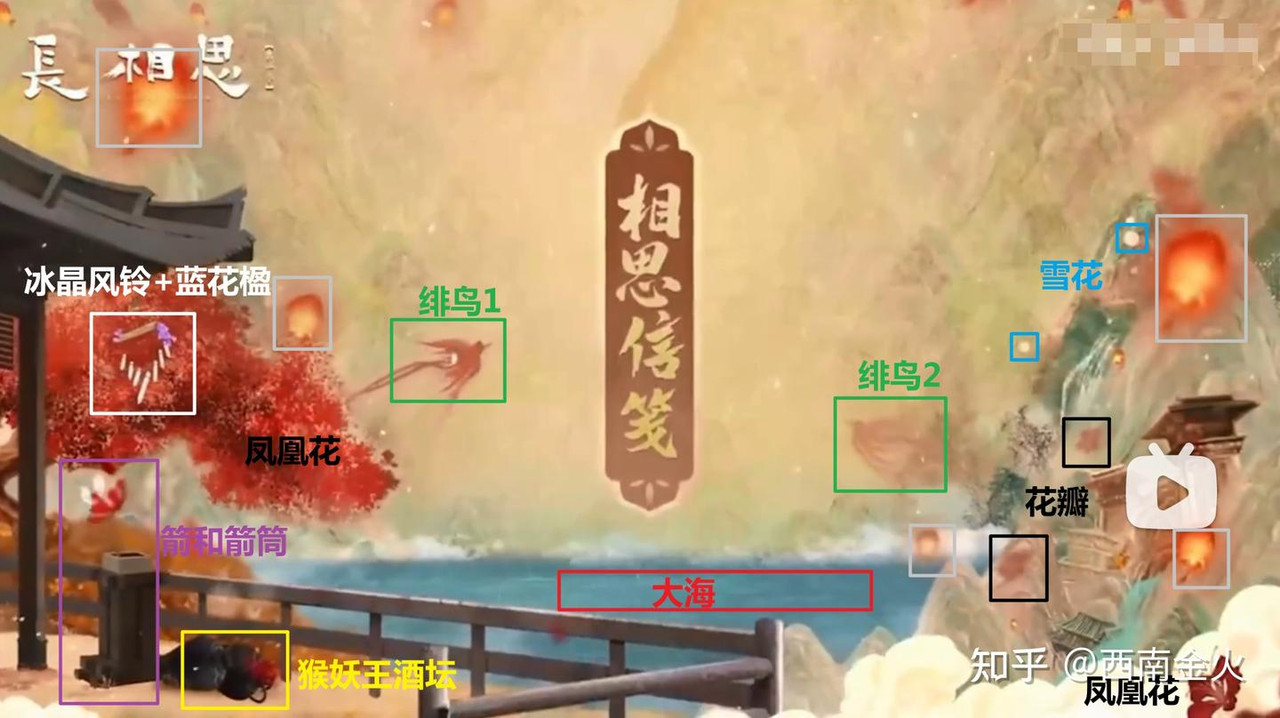
If, even after everything we’ve discussed, some of you still find it hard to believe—then let’s take another look at the opening of the “Love Letter Side Story” (相思信笺番外). This opening flashes by quickly, but pay attention to the elements shown in it.
First, there are two red birds flying across the sea toward each other. Do you remember what they represent?
They symbolize the Vermilion Bird (绯鸟) from the scene where the bow recognized its master. The script explicitly identifies it as a Vermilion Bird, with "绯" referring to crimson red.
The bird on the left appears healthy, while the one on the right looks weak—the weak one likely represents Xiangliu, indicating his death and rebirth.
So, the endings between Xiaoyao and the four male leads all center around these two Vermilion Birds, which undoubtedly point to a reunion between Xiaoyao and Xiangliu.
Now, look at the rest of the scene:
Given that the entire visual centers around romantic symbolism, and the title of the side story is “Love Letter” (相思信笺), it’s clear that the wind chimes represent longing and resemblance—their traditional meaning.
One of the wind chimes even has a Jacaranda flower, whose flower language is “waiting for love in despair.” This implies that Tushan Jing can only represent longing and waiting.
In the lower left corner, there’s also Xiaoyao’s quiver of arrows, and next to it is the Monkey Demon King’s wine jar, which represents Fenglong.The wine jar is tipped over—Fenglong is dead.
In the lower right corner, there are also phoenix flowers.So, it’s very clear: Xiaoyao and Xiangliu (Yaoliu) are in the center position (C-position).This means that everything I’ve explained earlier is fully aligned with the visual cues in the opening—Xiaoyao and Xiangliu reunite, while the other three couples are pushed to the sidelines.
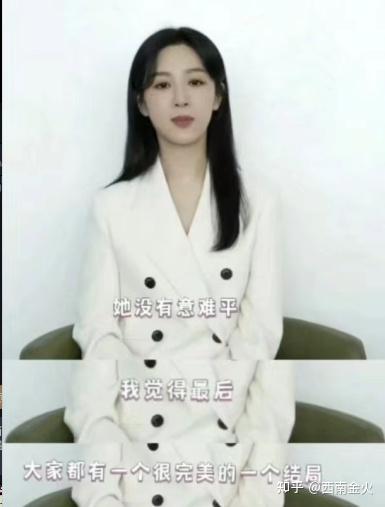 Let’s reference one of Director Yang’s interviews. He was asked:
Let’s reference one of Director Yang’s interviews. He was asked:
"In your heart, which CP (couple pairing) is Xiaoyao's deepest regret?"
The implied answer to this question is obviously Xiangliu, but if he answered truthfully, it would likely cause trouble.
However, he also couldn’t just lie with open eyes and fool the audience, right? The response had to be diplomatic and yet honest.
So, what was his answer?
“She has no unresolved regrets. I think in the end, everyone gets a very perfect ending.”
A “very perfect ending”—if Xiangliu had truly died, it couldn’t possibly be perfect.
If Xiangliu were dead, Xiaoyao would absolutely feel unresolved sorrow.
Some interpretations claim that based on this, we can conclude Xiaoyao never loved Xiangliu—but that’s clearly wrong.
If that were true, then it would’ve been better to just say Xiangliu was never written into the story of "Lost You Forever" in the first place.
Looking back at what Actor Tan said—his words were clearly not a diplomatic statement, nor was he responding to an interview. He said it voluntarily:
“We all believe Xiangliu has the most complete ending.”
This indicates that those who know the plot, unanimously agree that Xiangliu's ending is the most fulfilling—both on a realistic level and a spiritual one.
Whatever fans personally believe doesn’t count—what matters is that everyone involved had no disagreement about it.
Also, earlier he said the audience had “shangtoule (上头了)”, which loosely means getting overly emotional or obsessed.
He could’ve chosen neutral words like “immersed” or “emotionally involved,” but he went with a word that can carry negative undertones depending on context, so viewers should read deeper into that word choice.
When Dai Luwa answered live comments, she chose to respond to a question that she wasn’t obligated to answer:
“Can Xiangliu be reborn?”
Her answer was:
“That’s hard to say.”
If she didn’t want to answer, she could’ve simply ignored the question, or if the plot had to remain secret, she could’ve said “Please watch season 2.”
So, this clearly leaves open the possibility of Xiangliu’s resurrection.
Moreover, she added a line that carried a double meaning.
When a comment asked her to reveal the ending, she paused and replied:
“The ending will return to Qingshui Town.”
This could be interpreted in two ways:
That episode 60’s finale returns to Qingshui Town (which the script confirms),
Or that the real ending is a return to Qingshui Town in episodes 1 and 2—meaning a looping, circular story structure.
In an interview, the author also stated that Lost You Forever is not a tragic story.
She said that the characters in the story go through a phase in life where they experience death or regret, and some things remain incomplete.
What does this mean? It means Lost You Forever is just a stage, not forever—the one who will truly long for someone forever is Cangxuan (Jingyuan).
In other words, Yaoliu (Xiaoyao and Xiangliu) only experience a temporary longing.
So phrases like:
All point toward the same possibility:
👉 Yaoliu could be a happy ending (HE).
Recently, Tan Jianci (Actor Tan) released a short video reflecting on his past roles.
At the end, he said:
“Take your time—time will reveal the answer.”
This part included some unreleased footage from Lost You Forever, specifically scenes involving the ice crystal orb and the wedding interruption.
The ice crystal orb had never appeared before—it was a prop revealed early.
I’ve discussed this before:
So, as he said:
Take your time—time will reveal the answer.
https://zhuanlan.zhihu.com/p/694908257?utm_psn=1798750820730273793
④ The Four Great Clans
The Four Great Clans are: the Chishui Clan, the Xiling Clan, the Tushan Clan, and the Guifang Clan.
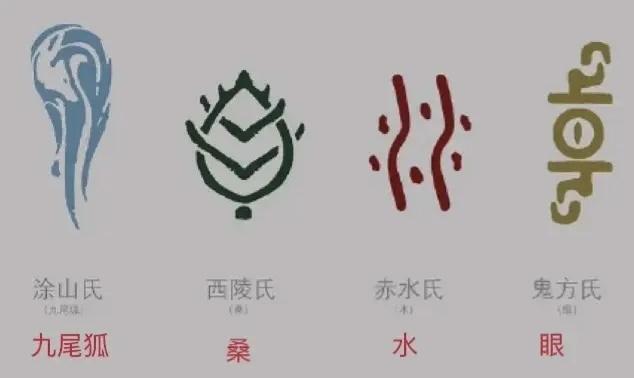
Original emblems of the Four Great Clans (the Guifang Clan emblem has been modified to a two-headed snake).
In terms of origin, all of them are at least as old as the Three Royal Clans—if not older.
It's just that:
The Four Great Clans are powerful families capable of rivaling the royal clans.

Communication among the Four Great Clans
● Chishui Clan
The leading clan among the Four Great Clans, an ancient lineage that values blood ties over national allegiance.
They do not belong to any single nation, but have descendants who hold important positions across various kingdoms.
The Chishui Clan is known for its strict family discipline and rigorous upbringing of its members.
(Xiling Leizu once borrowed troops from the Chishui Clan.)
They are skilled in controlling water and shipbuilding.

Chishui great ship
● Xiling Clan
A prestigious ancient clan, second in power only to the Chishui Clan.
(Pangu once gifted the Four Symbols Mirror to the Xiling Clan's ancestor; one of their forebears also became a Flame Empress, and the Great Emperor Fuxi treated the Xiling Clan with great respect.)
They are known for their vast knowledge and diverse talents, as well as their skills in sericulture (raising silkworms) and weaving.
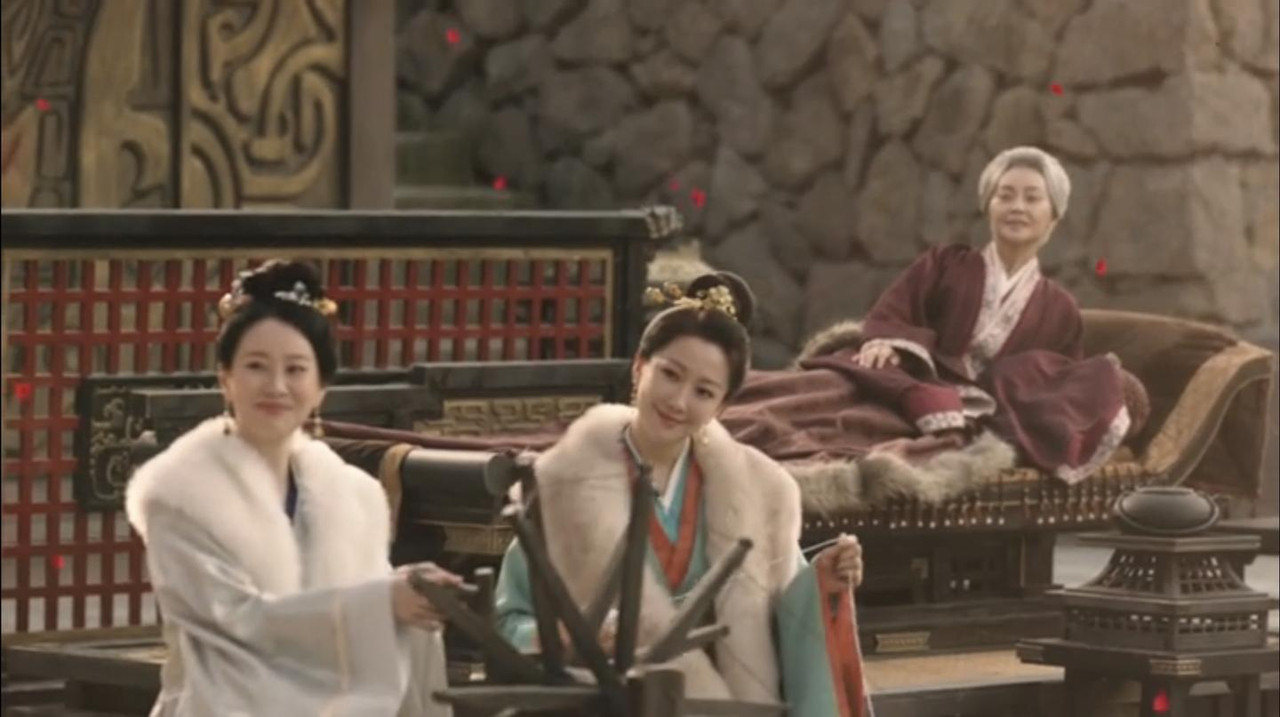
● Tushan Clan
Not of purely divine blood—In ancient times, their ancestor was a powerful nine-tailed fox demon, granting the direct bloodline of the Tushan Clan a natural ability to shape-shift.
(Since the nine-tailed fox is the king of the fox tribe, the leader of the Tushan Clan is considered king of the kings, capable of commanding all foxes.)
From ancient times to the present, they have thrived in commerce, with business networks spread throughout the Great Wilderness.
Richer than entire kingdoms, they operate trade caravans and transport companies (handling goods transport and secret routes).
They deal in all kinds of goods, including provisions and weapons, and have frequently supplied the Shennong rebels with various materials.
They are cunning, love wealth, and are not skilled in direct combat
(Instead, they train shadow guards and rely on Tushan illusion arts that can confuse the five senses).
◐ Insert: A Tushan ancestor with divine sight
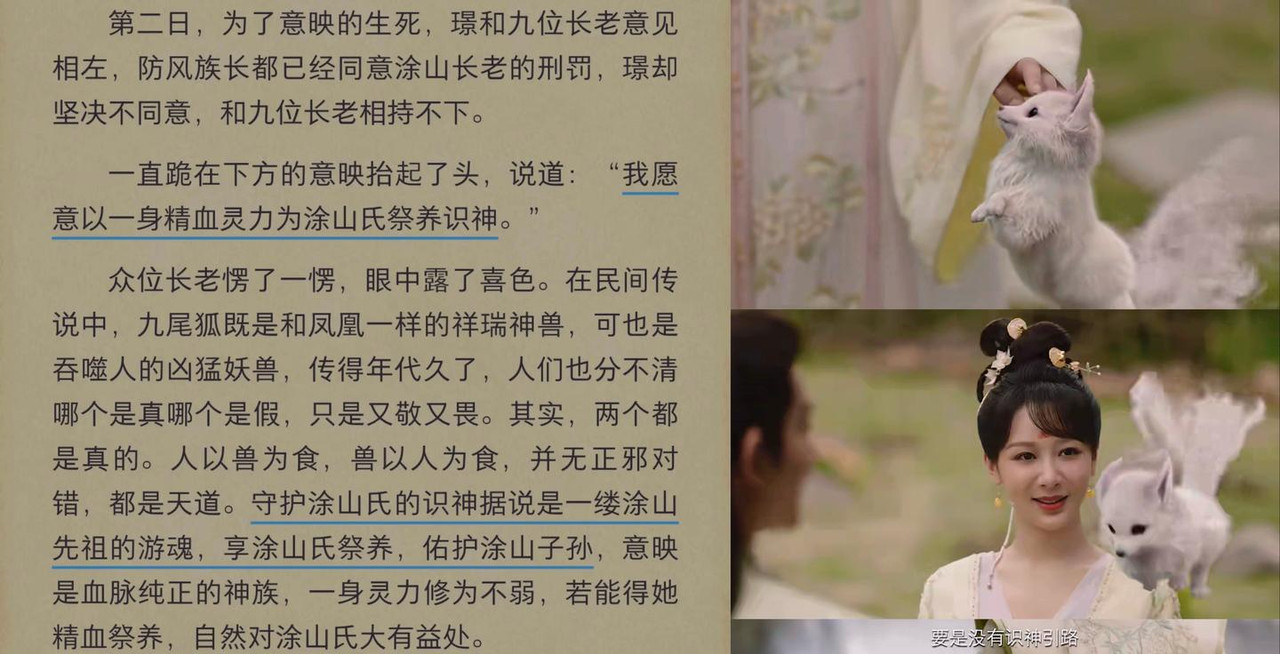
The Ancestral Spirit of Tushan: The Divine Nine-Tailed Fox
The wandering soul of the Tushan ancestor, a divine nine-tailed fox, possesses spiritual awareness.
It receives offerings and worship from the Tushan Clan, providing protection and blessings to their descendants.
(When nourished with pure divine blood offerings, the benefits are immense.)
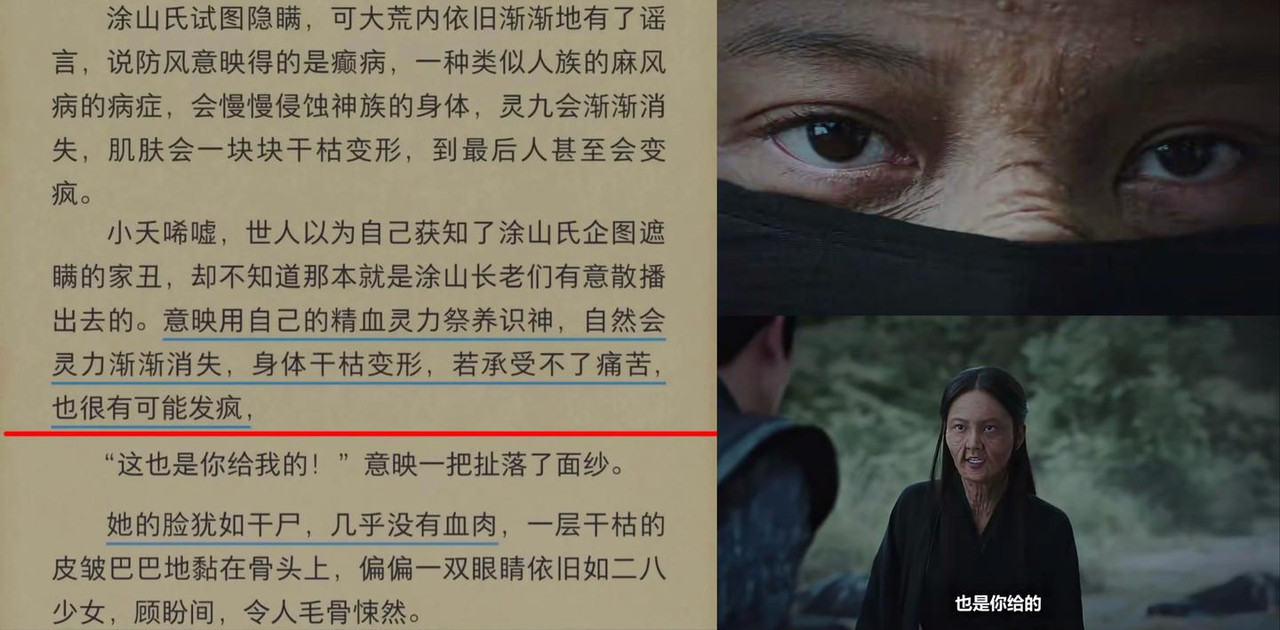
Human Sacrifice
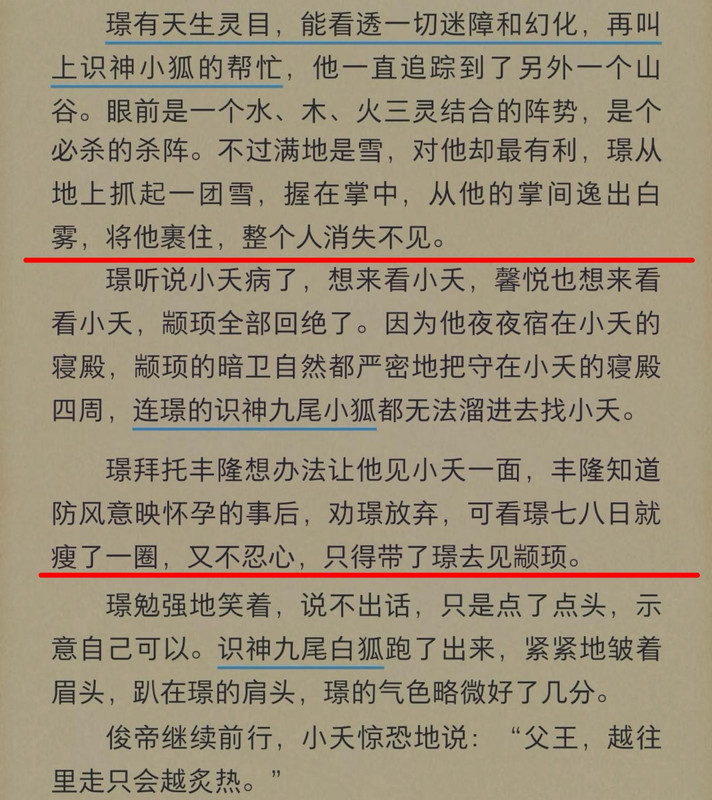
Spirit-Aware Little Fox — Spirit-Aware Nine-Tailed Little Fox — Spirit-Aware Nine-Tailed White Fox
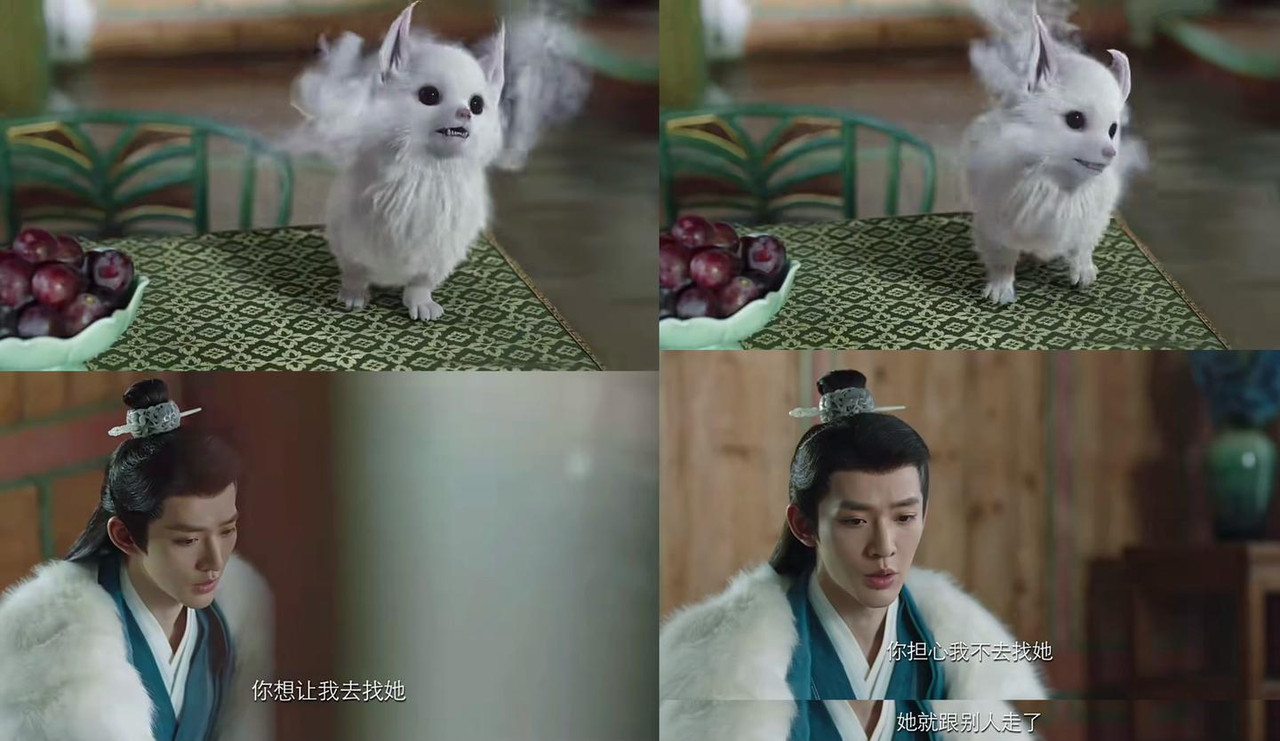
The Spirit-Aware Being Has Self-Awareness
◐ The Eerie Tushan Clan
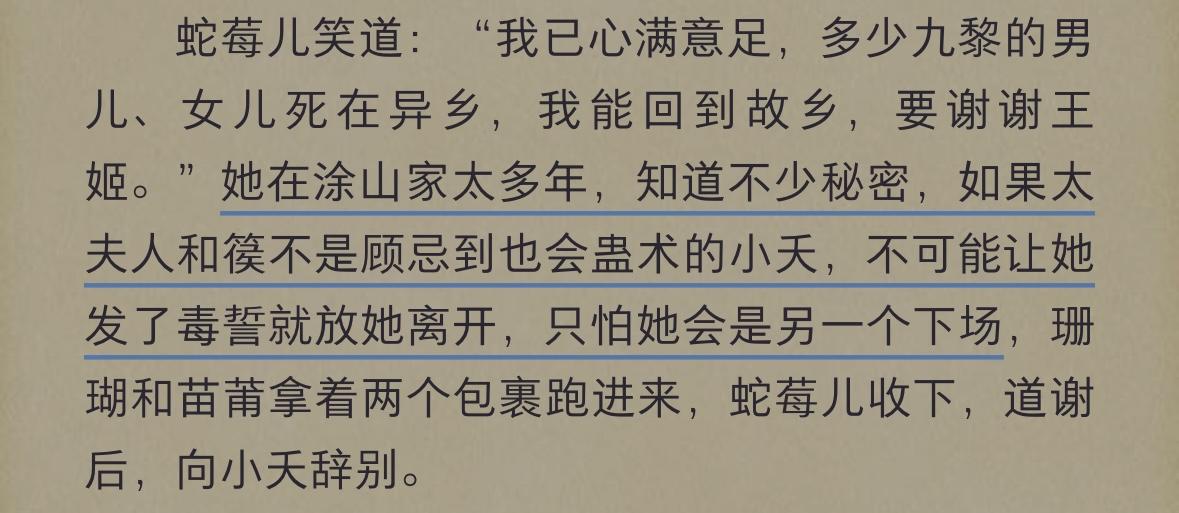
Too many secrets.
(Usually, those who harm others start with outsiders — but how come the Tushan Clan targets their own people...)
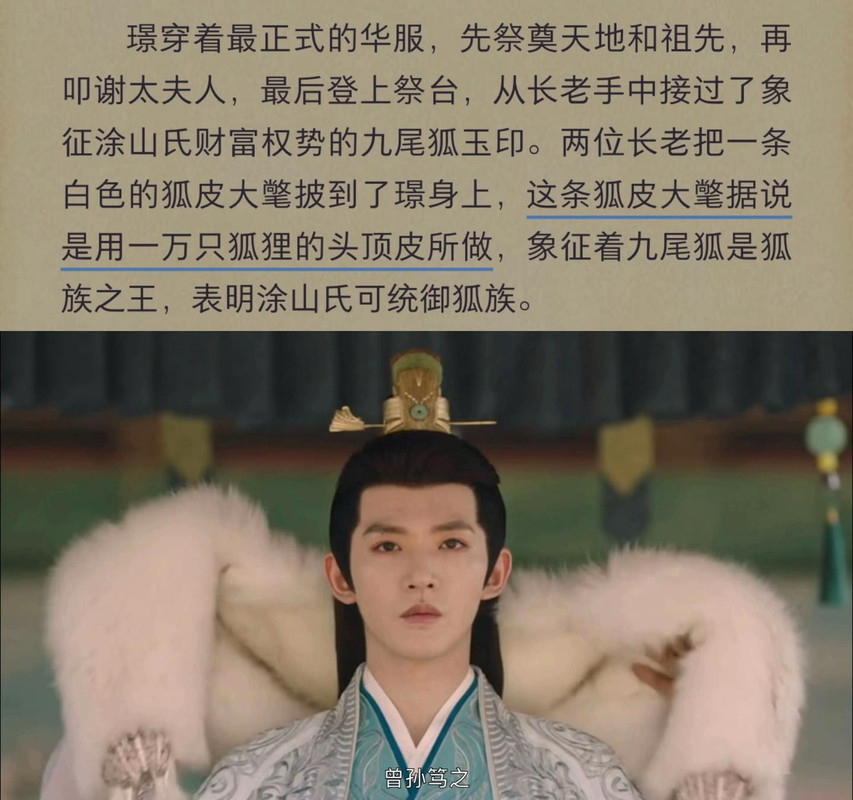
The scalps of ten thousand foxes...

Jing said that the spirit beast shows no restraint when feeding on outsiders, which means it does show restraint when feeding on members of the Tushan Clan themselves.
▽ – Then over these thousands and thousands of years, whose essence blood has been used to nourish the spirit beast?
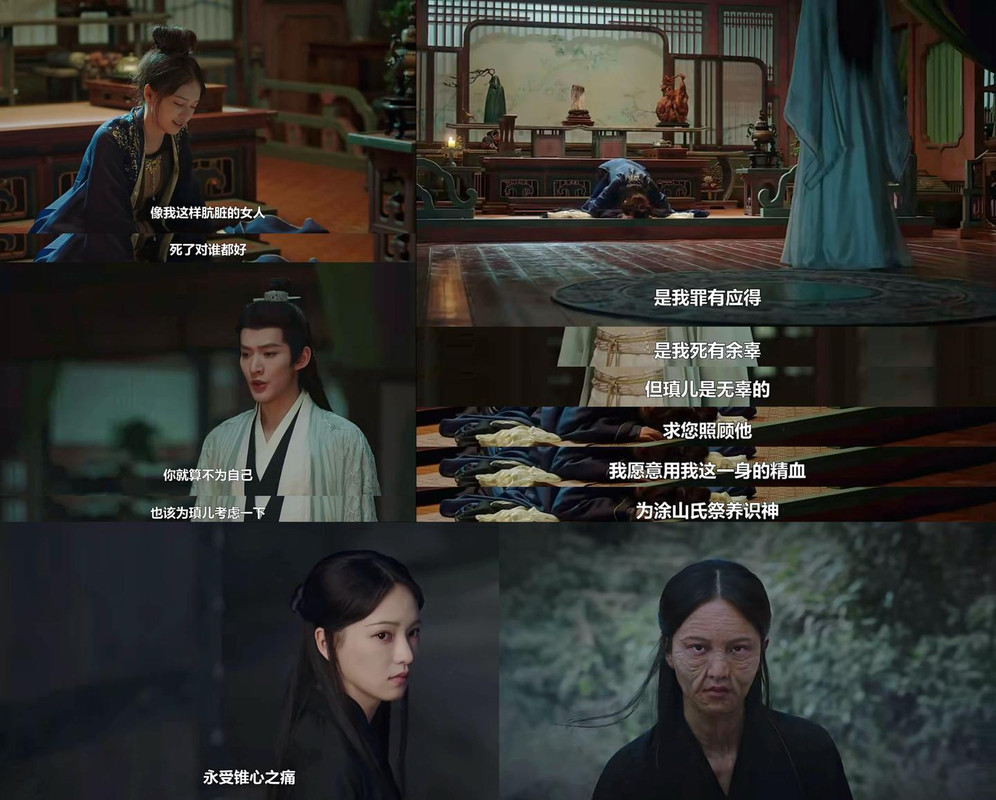
Yi Ying did it willingly… for the sake of her son.
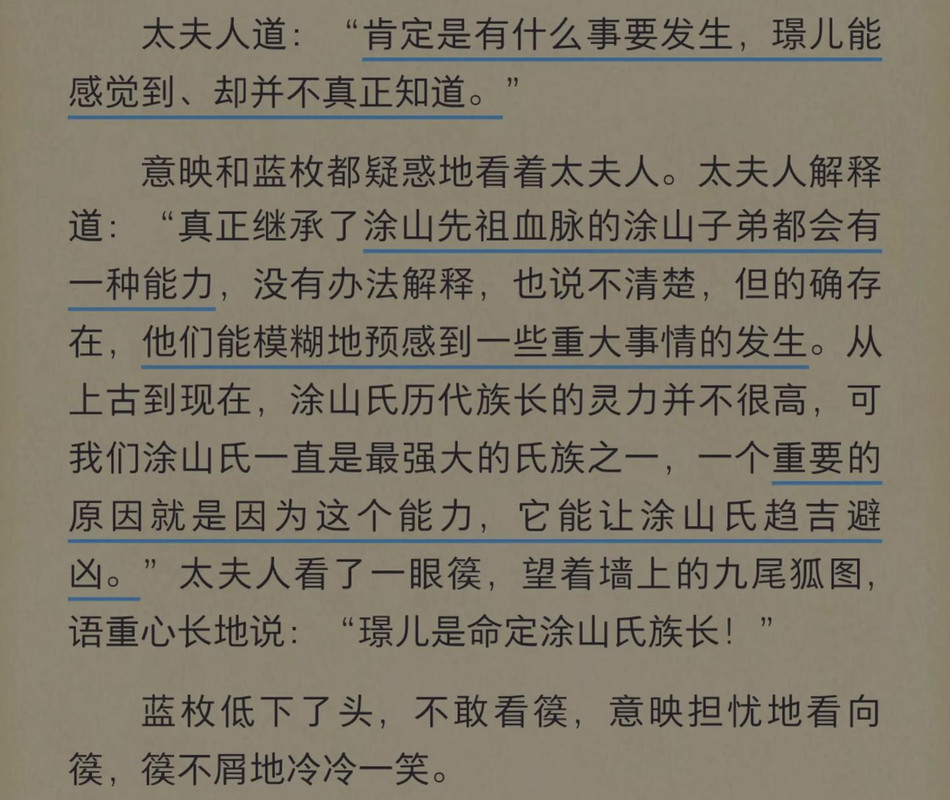
Exchanging vital blood for power — a fair trade.
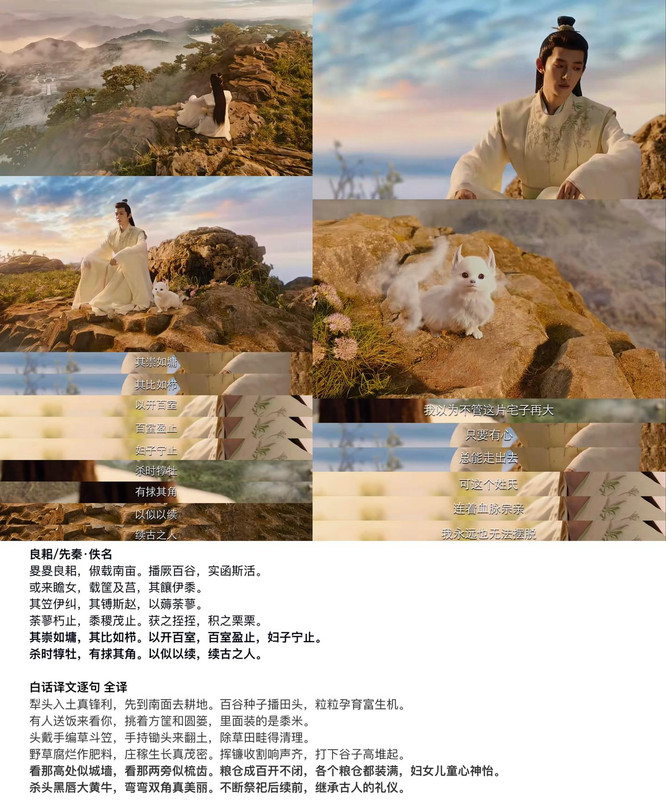
"The destined clan leader" is "the destined sacrifice."
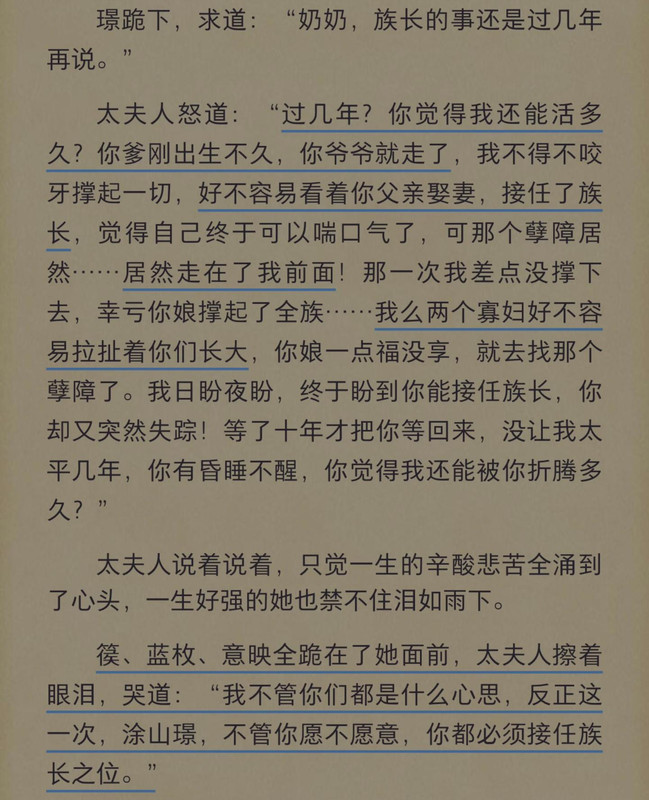
The clan leaders die young, and there are many widowed clan ladies.
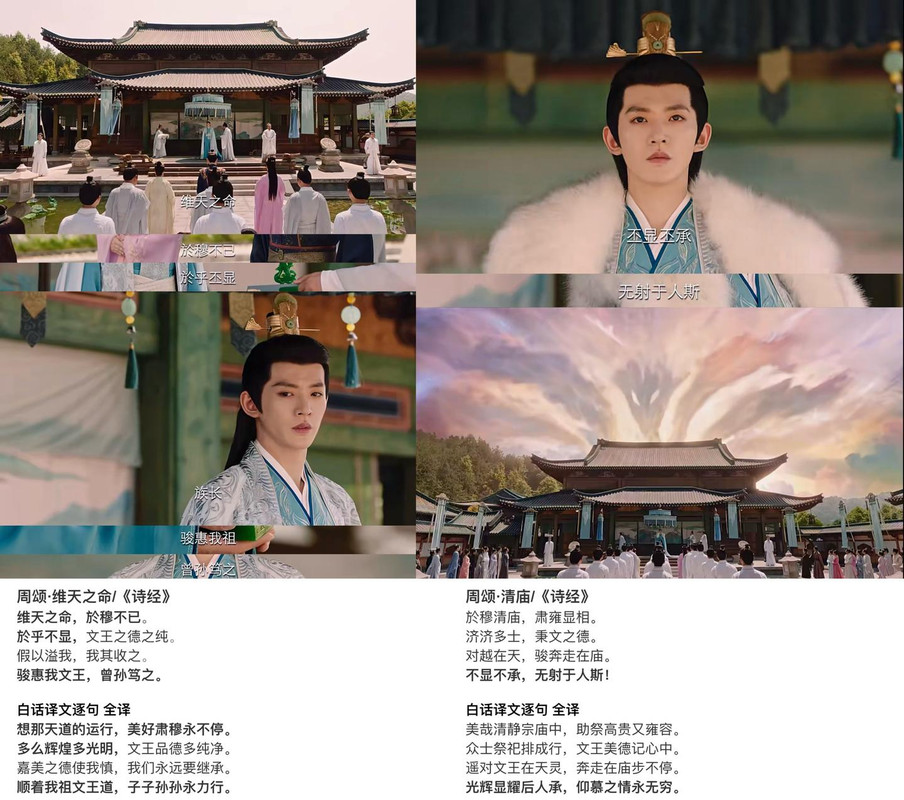
The clan leader must inherit and carry forward the “outstanding” traditions of their ancestors in order to ensure lasting prosperity.
◐ Tushan Jing’s Fate and Medicine (from netizens)
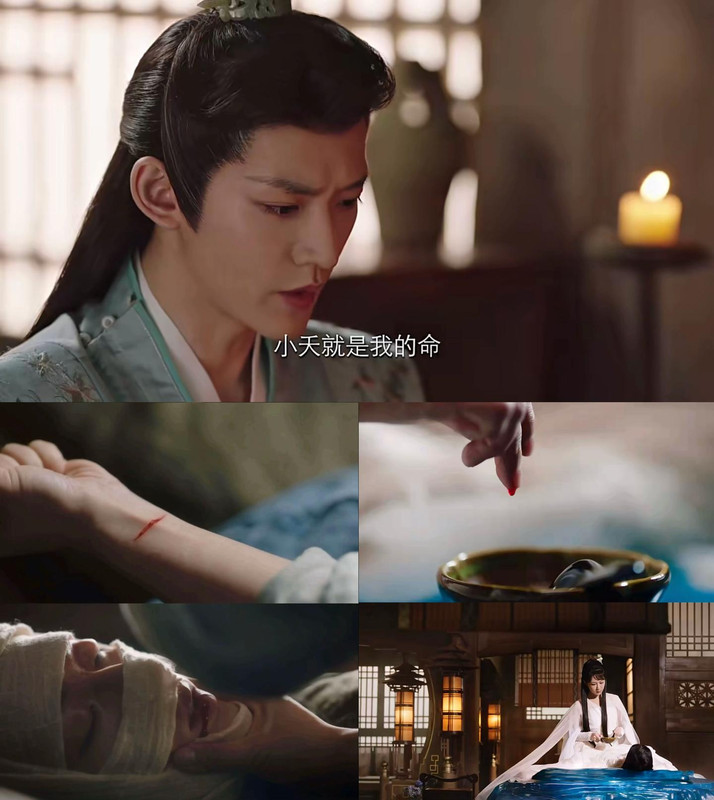
Xiaoyao is my destiny.
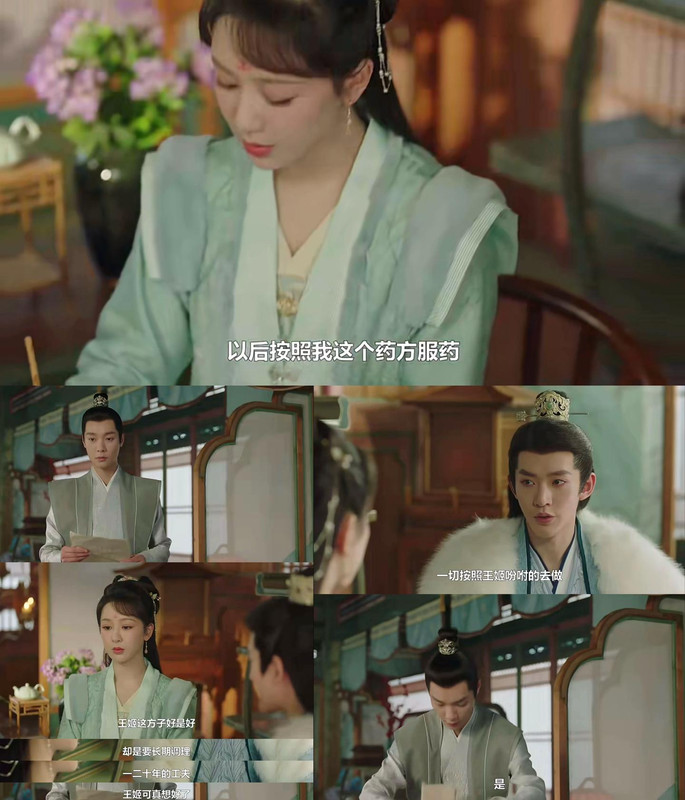
Good prescription.(Jing: Stop asking nonsense, hurry up and get the medicine!)
▽-Hu Zhen looked at the prescription (said it was a good one) and asked Xiaoyao if she had thought it through?
•So hard to guess? Can’t figure it out... (The Tushan clan is as rich as a nation—just follow Xiaoyao’s good prescription and take the medicine. Can’t they afford taking it for ten or twenty years? Or is there something rare in the prescription that can’t be bought? Does Xiaoyao need to really consider it carefully?)
【Tushan Jing’s limits of control】
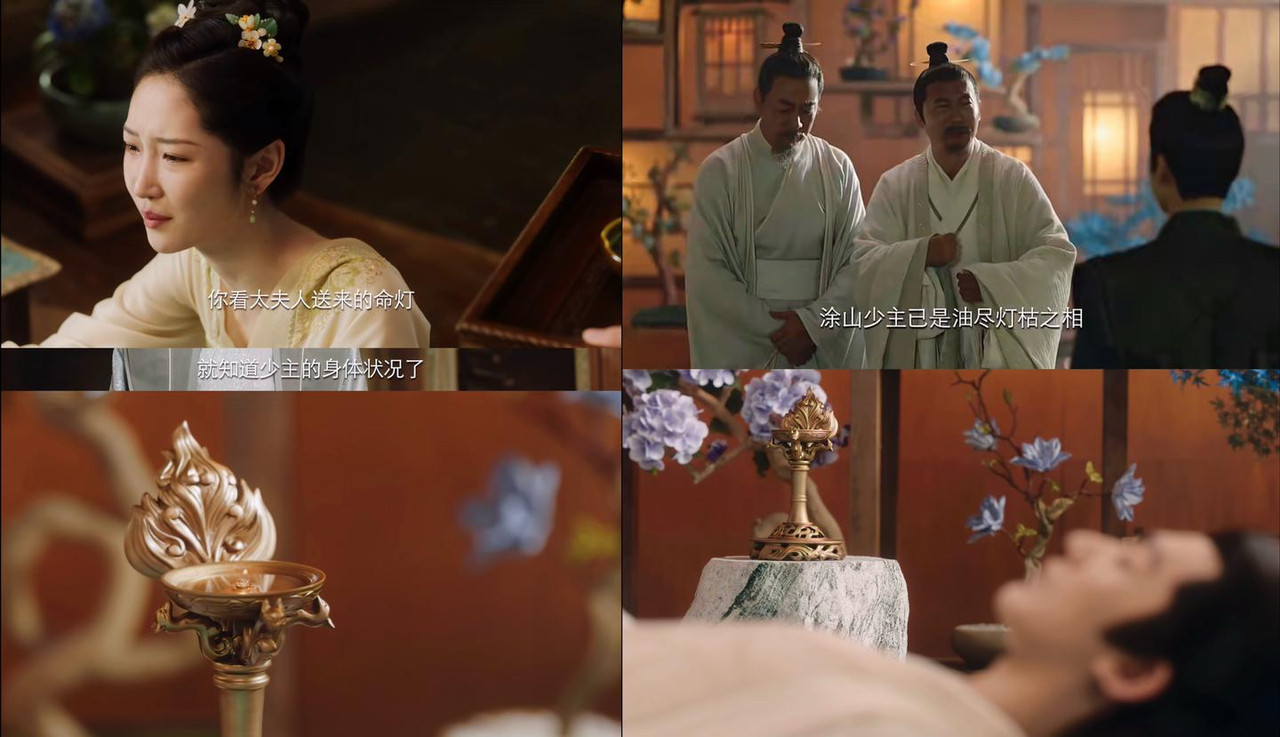
Only being drained without replenishment will truly lead to burning out like an exhausted oil lamp.
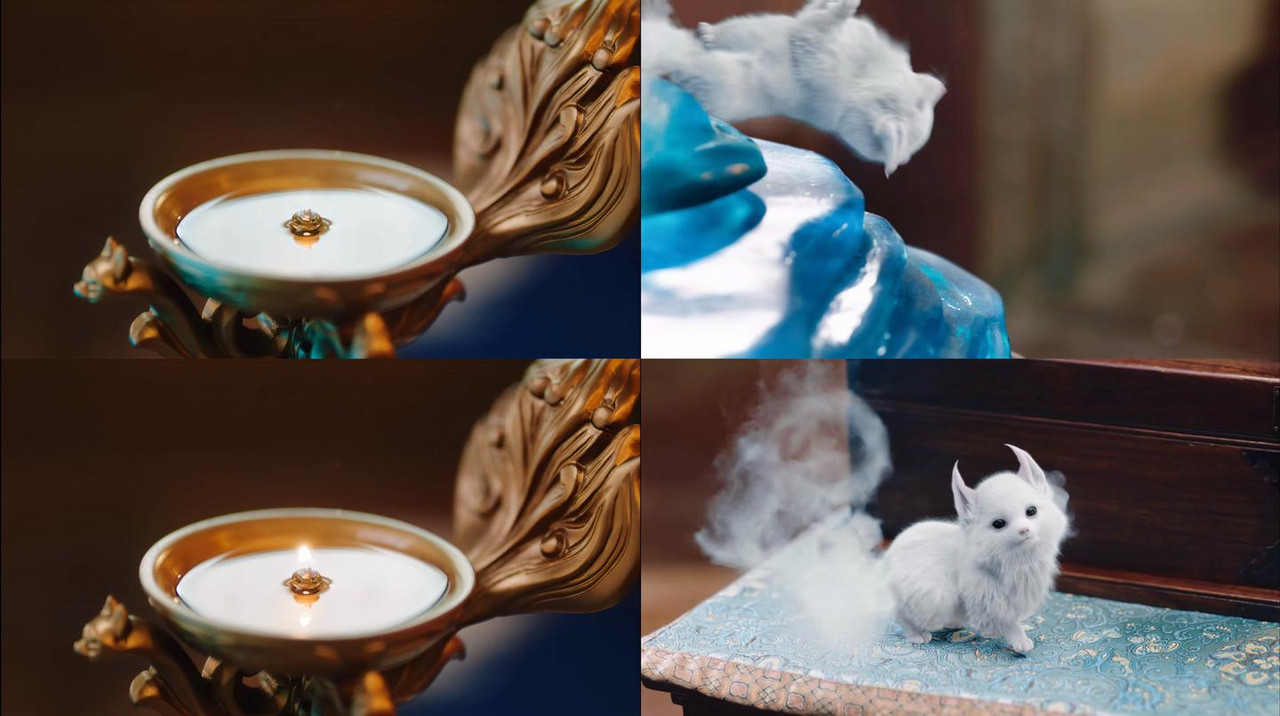
Had a good meal, then came out to freeload again.
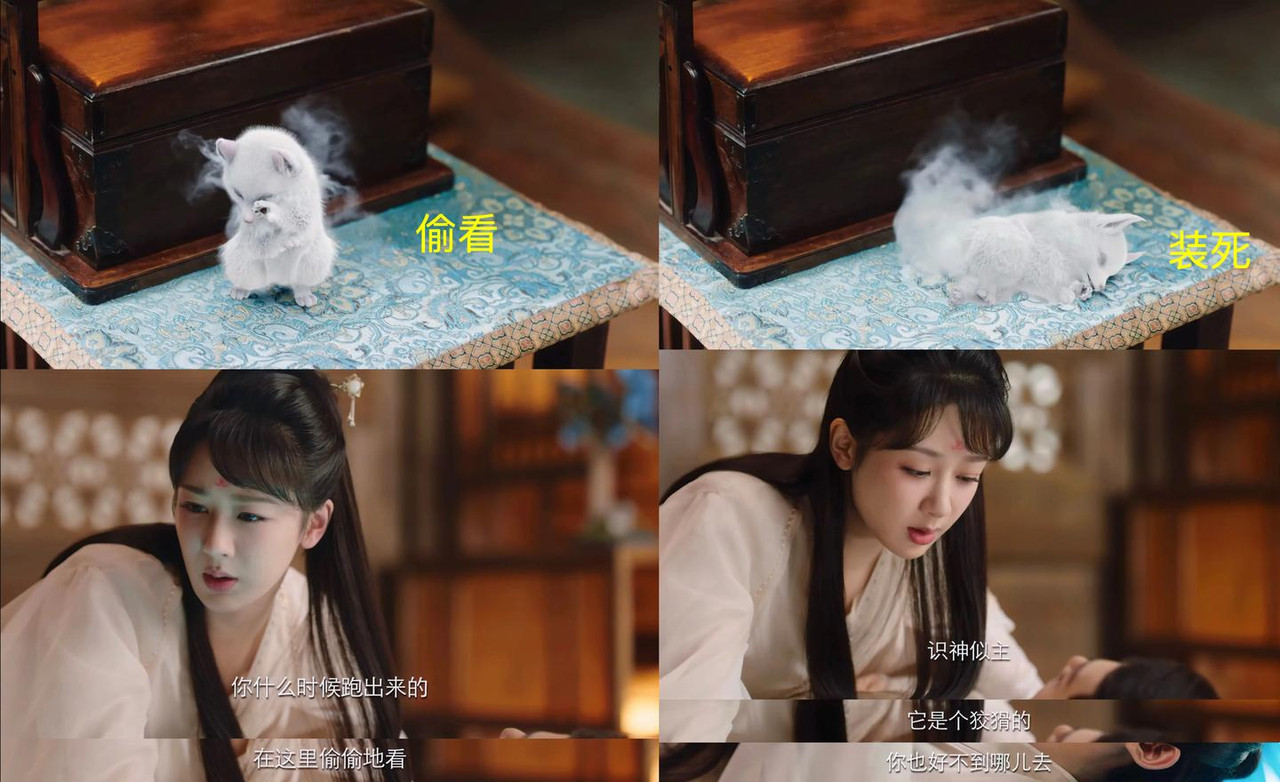
Jing is just as cute as the spirit beast~(Xiao Yao's inner thoughts: The spirit beast resembles its master. It pretends to be dead while peeking, and now you're here doing the same—peeking and pretending to be dead too~)
[Xiao Yao Investigates the Truth About the Tu Shan Clan]
(Personal interpretation, for reference only)
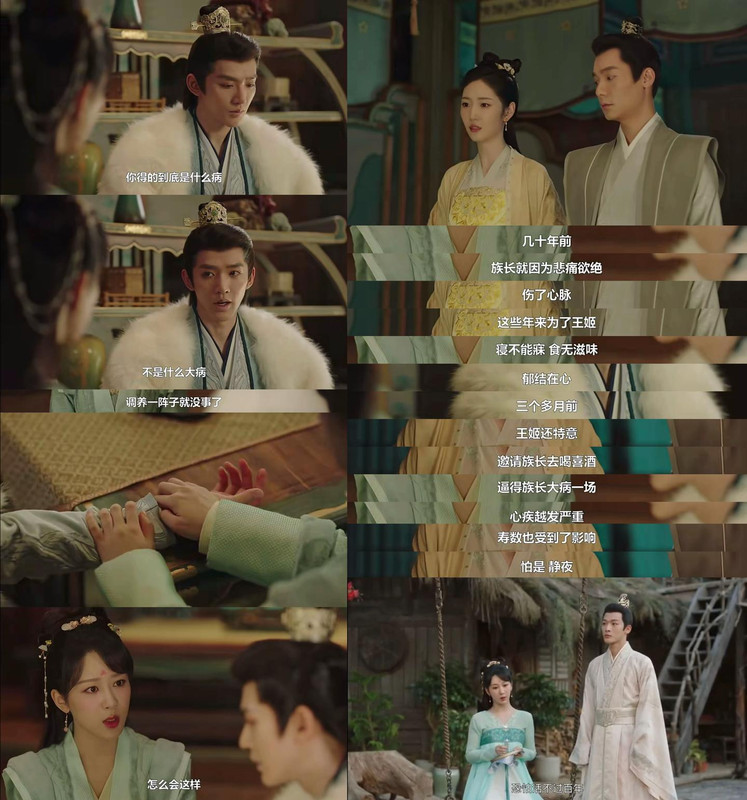
"Heart illness" leads to extremely short life.
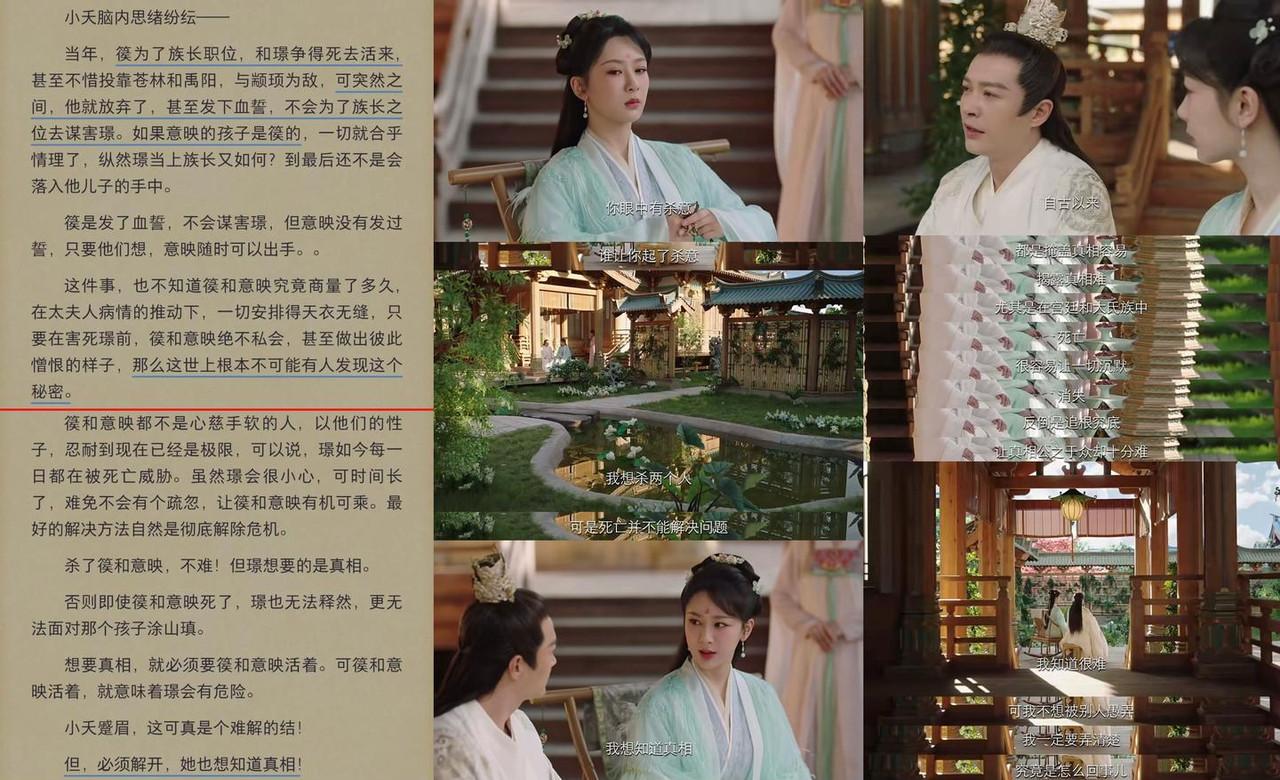
Investigating the power struggle for the leadership of the Tushan Clan and the truth behind Tushan Jing’s “short life.”
• The truth is revealed ⬇️
Surface storyline: Jing suffers emotionally because of Xiaoyao; Yinghou conspires to persecute the “kind-hearted” Jing.
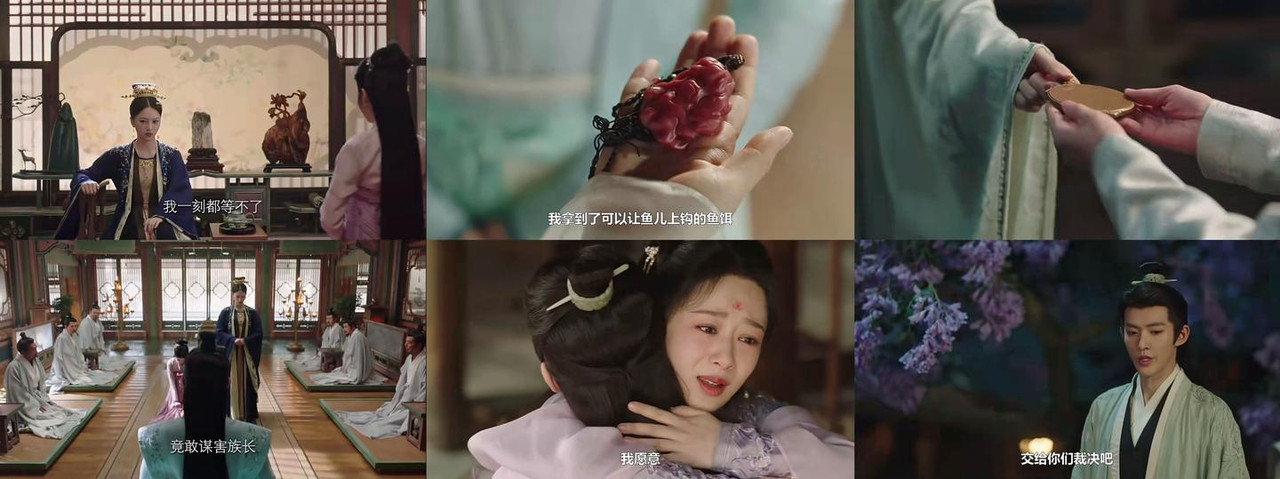
Xiaoyao wants to stay with Jing for life—eliminating the evil original wife and righteously rising as the “mistress turned main.”
Hidden storyline: Jing suffers from blood-deep pain because of Xiaoyao, as the Shishen (Spirit Guardian) feeds on the host's vital blood.
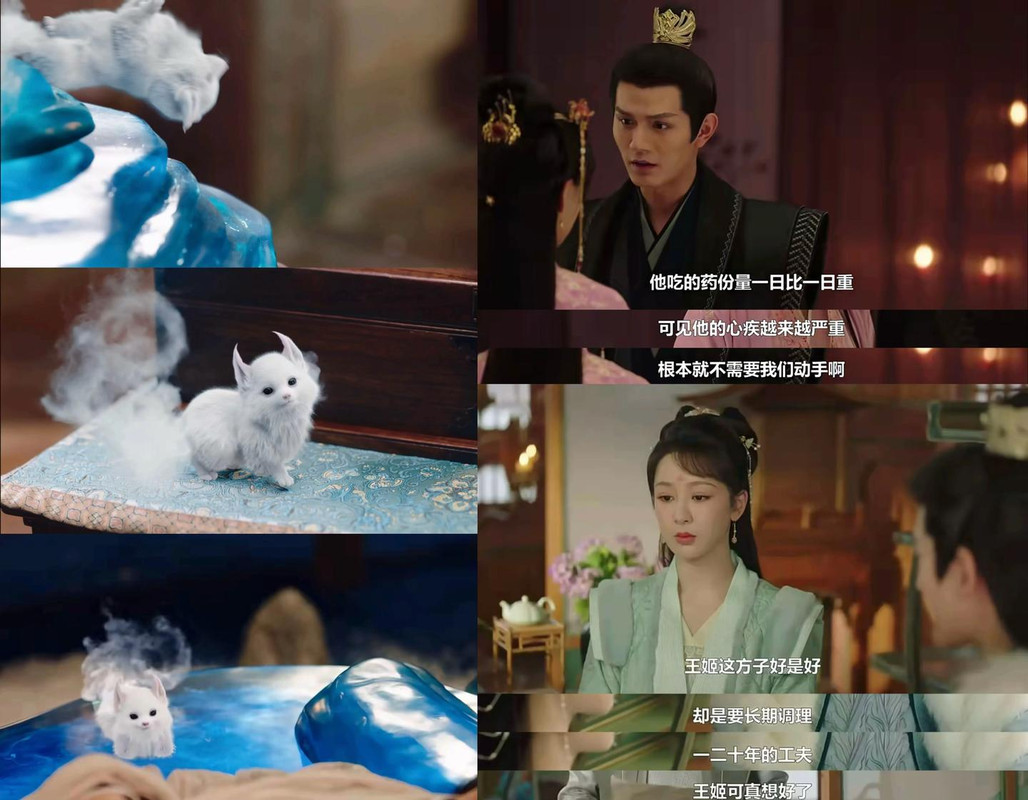
The "Xiaoyao blood prescription" preserves Jing's life (and ensures the grain supply for the righteous army).
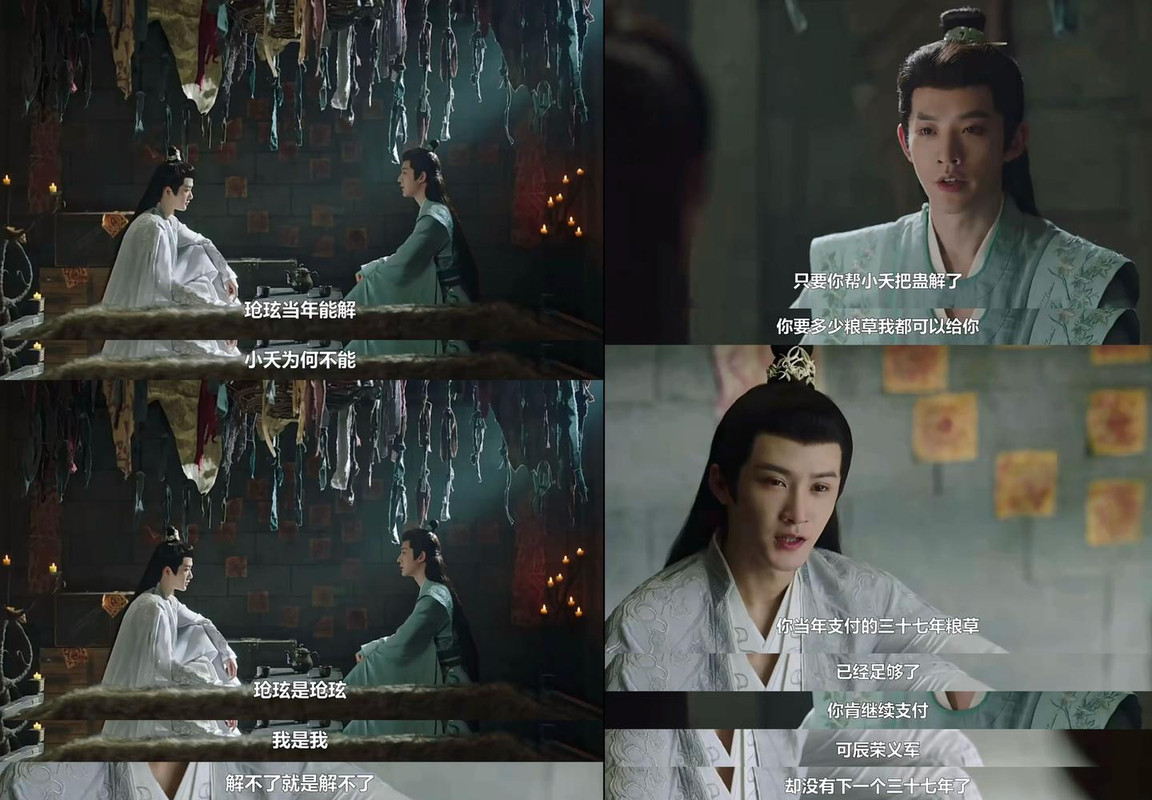
Liuzu's inner monologue: The Great Wilderness is about to be unified, there's no longer any need for your grain supplies (no need for a fox's life, no need for a wife to bleed anymore).
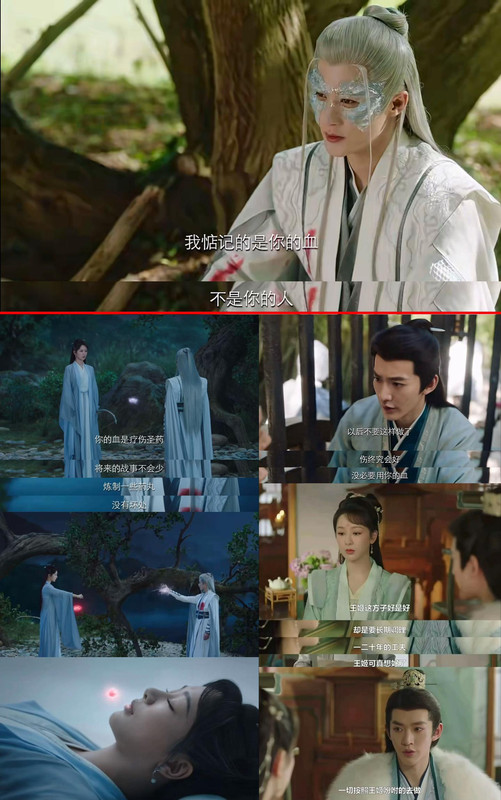
What are they truly holding onto? Only they themselves know deep down.
[The White Hair of Yaoyao and Jing]
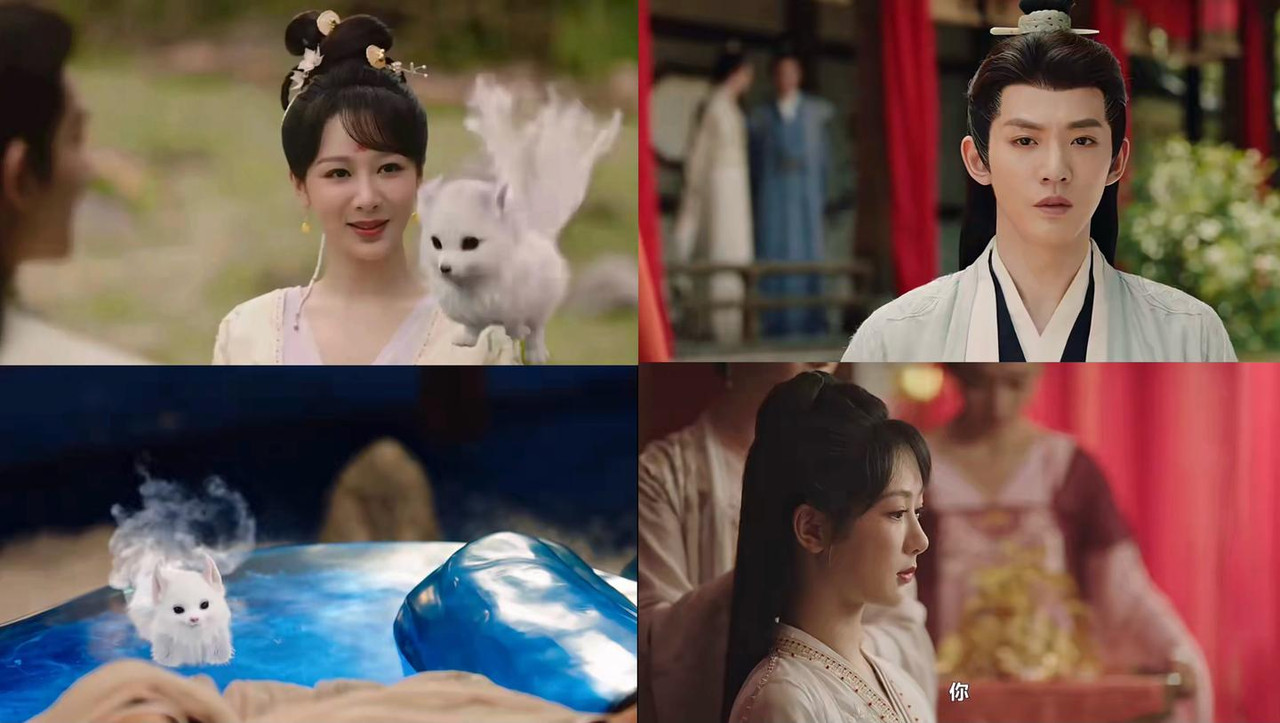
White hair in one's prime—no explanation needed, everyone can interpret it themselves~
Let’s just say it’s well deserved.
(We're all one big family of cuties, so let’s be gentle, okay?)
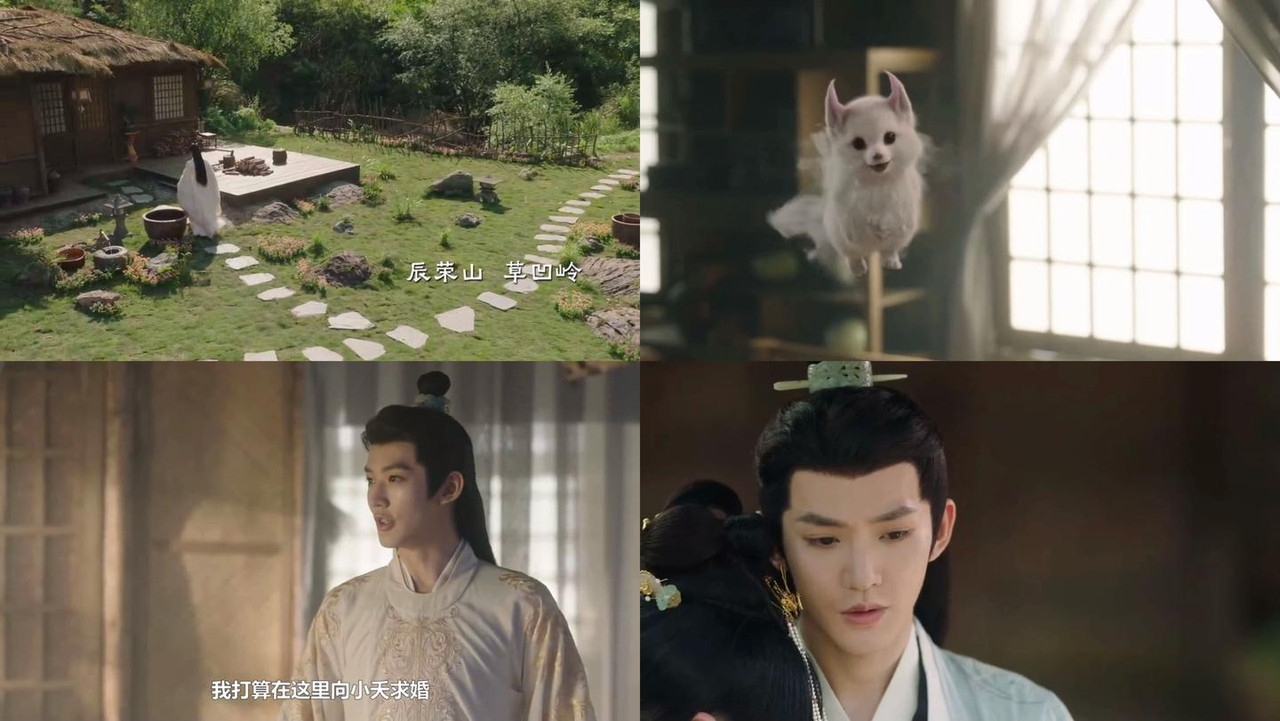
Sentient Spirit: Propose marriage? Sure, sure! (Tummy full full!)
● Guifang Clan (鬼方氏)
The mysterious Guifang Clan—untouchable and always existing beyond the bounds of the Great Wilderness—is a secretive lineage that approaches everything with a detached indifference. (At important events, the current clan leader only sends a representative.)
Physically weak but intellectually cunning; possesses Revival Grass (engaged in the study of spiritual and ghostly arts).
(Xiangliu is revealed to be the Guifang clan leader — see Directory Six - ❷-③)
...
◐ Why is the Guifang Clan associated with Revival Grass? (Personal speculation)
Symbolism of the Two-Headed Snake: Rebirth.
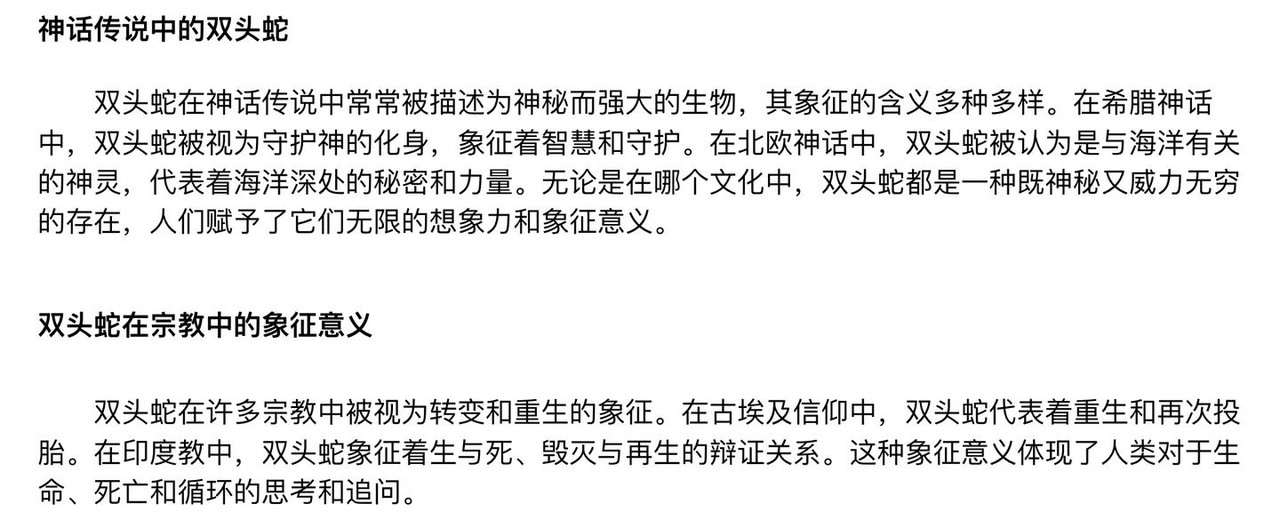
From the internet:
Octopus – Regeneration ability.
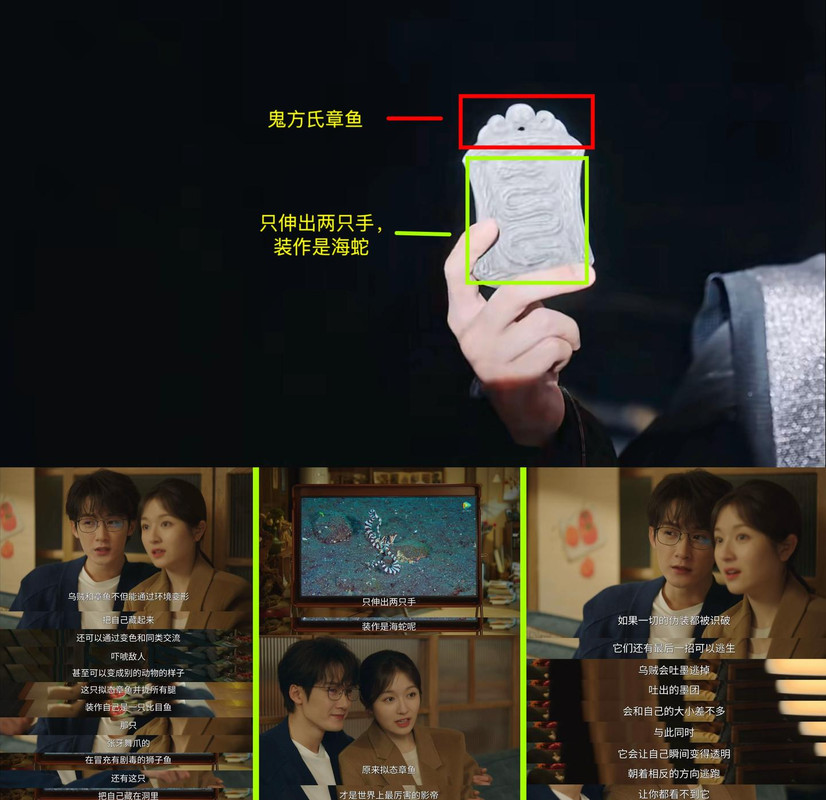
⑤ The Six Great Clans of the Central Plains (originally belonging to the territory of the Shennong Kingdom)
After Shennong Yi surrendered to Xuanyuan, he was appointed as the lord of Zhi City and put in charge of the livelihood of the people in the Central Plains. With the assistance of the Tushan Clan and the Chishui Clan, the post-war recovery of Zhi City progressed rapidly.
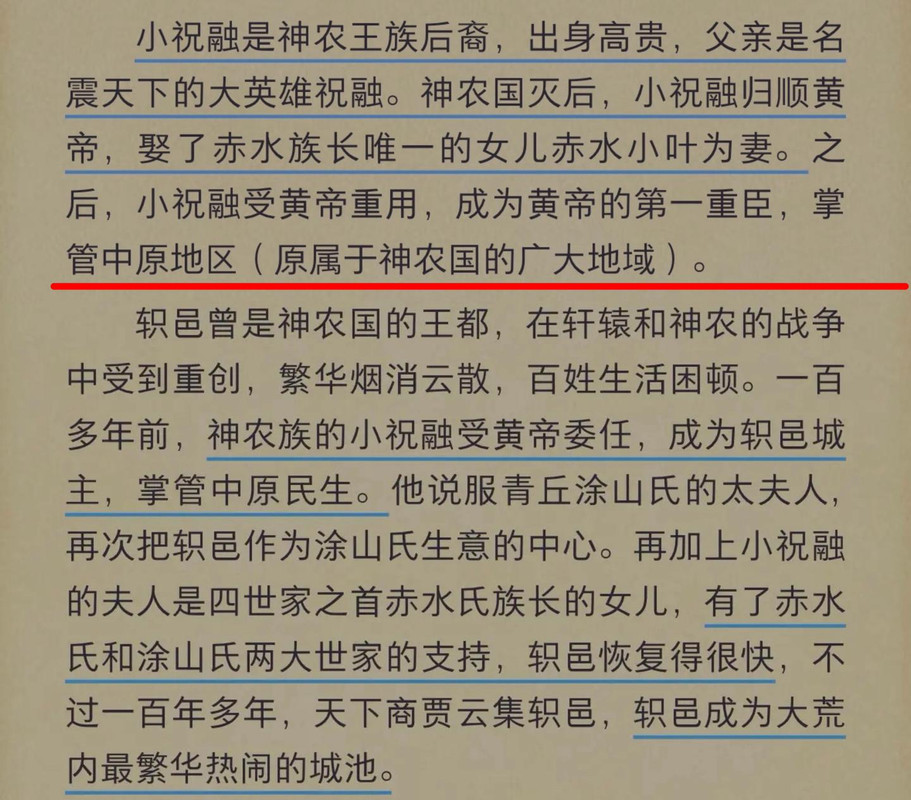
All the clans of the Central Plains are interwoven by blood and share the same breath and branches. They may often fight among themselves in normal times, but when it comes to matters of life and death, they will surely unite.
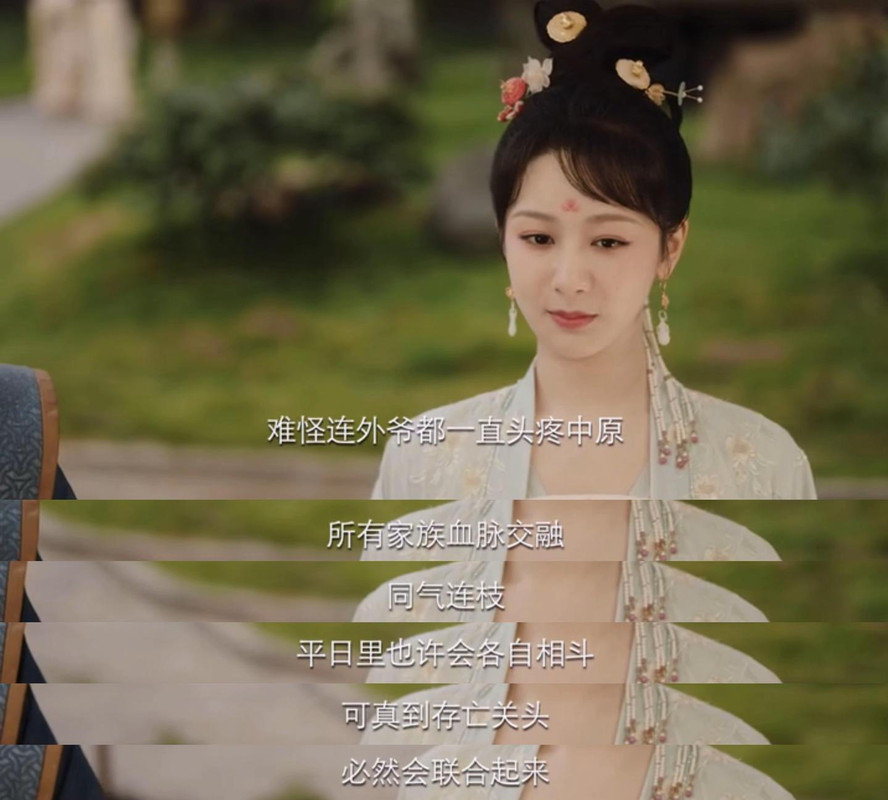
The reason for the Central Plains clans' hatred toward Chichen: During Shennong's bloody political reforms, Chichen clashed with the nobility and stood on the side of the lowborn commoners, outlaws, and slaves.
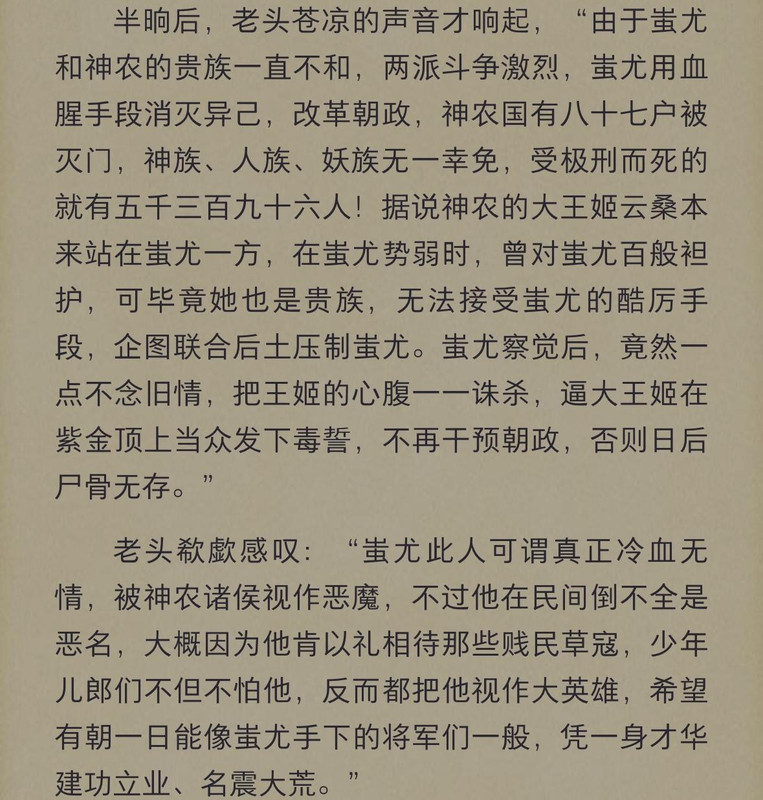
The hatred sown by Chichen.
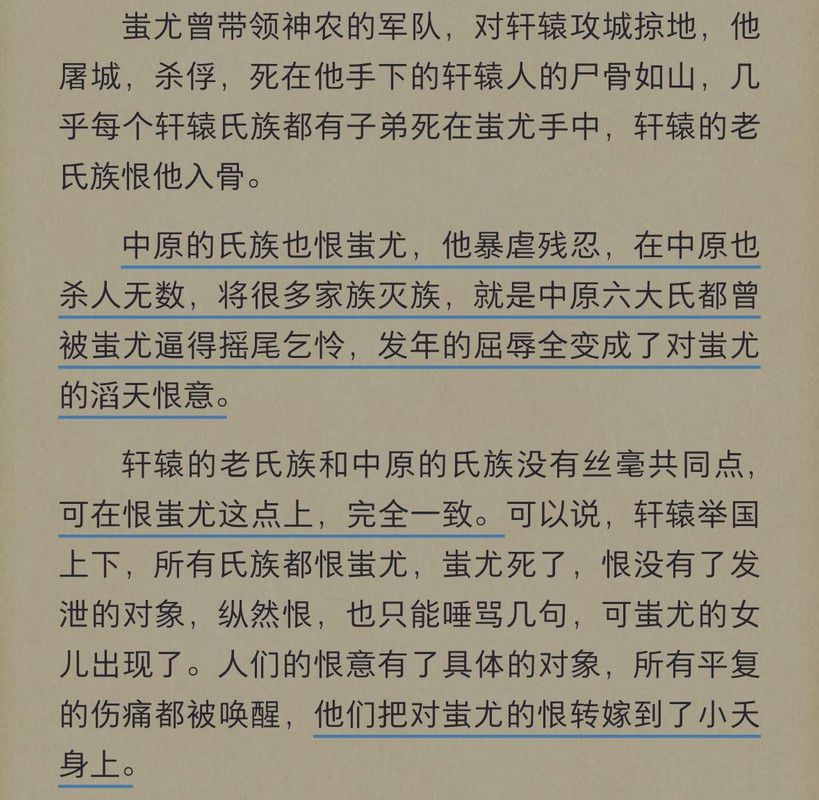
The root of Merlin's brutal killings
Shan Clan: The leading clan among the Six Great Clans. Back when the Shennong Kingdom still existed, the royal family of Shennong often formed marriage alliances with them.
Fan Clan, Zheng Clan, Jiang Clan, Ji Clan, Yao Clan (added in the drama version)
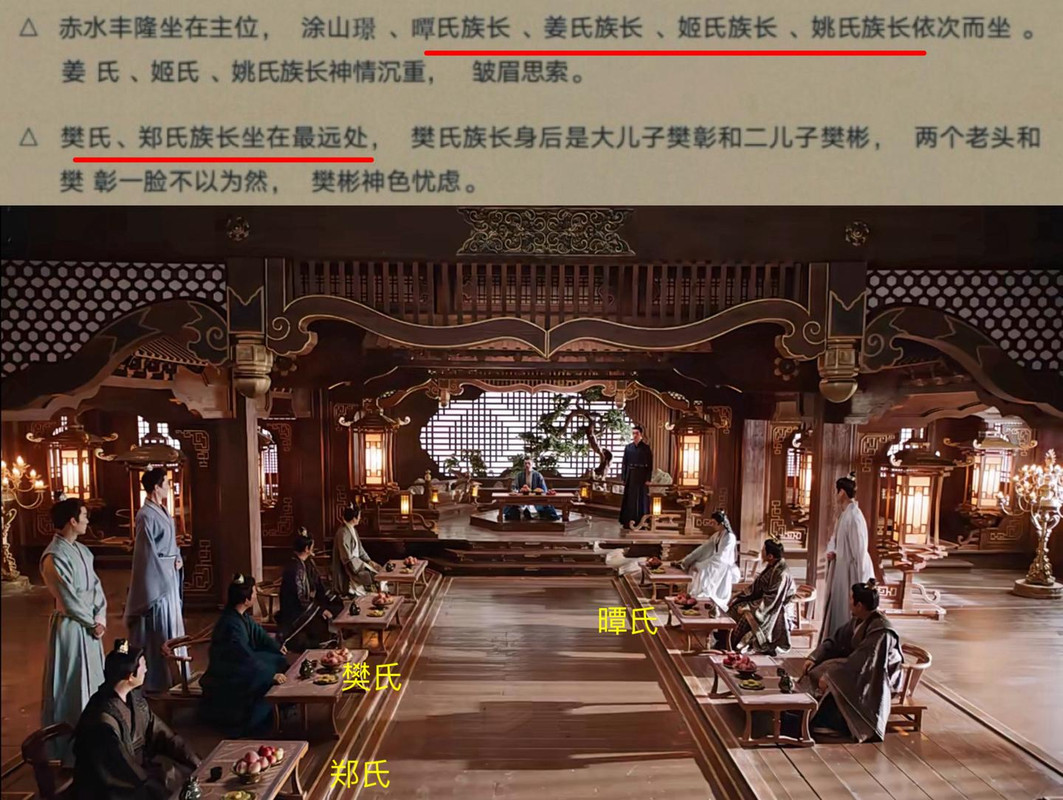
⑥ The Remaining Clans
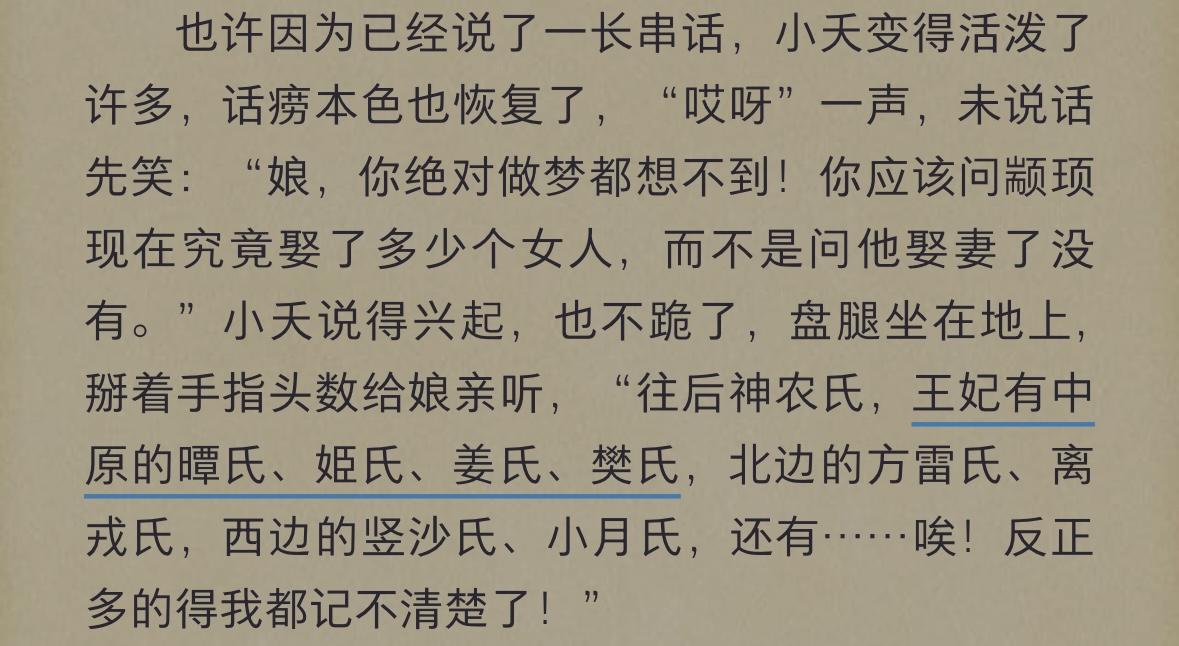
Cangxuan's harem.

Minor and medium-sized clans.
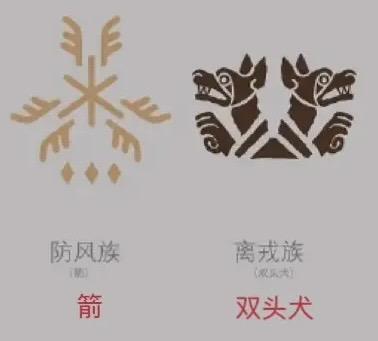
• The North
Lirong Clan: In ancient times, their ancestor was a two-headed dog demon. They once fell into decline due to being entangled with Chiyou. With secret support from Tushan Jing, their business—an underground black market casino (slave death match arena)—has flourished.
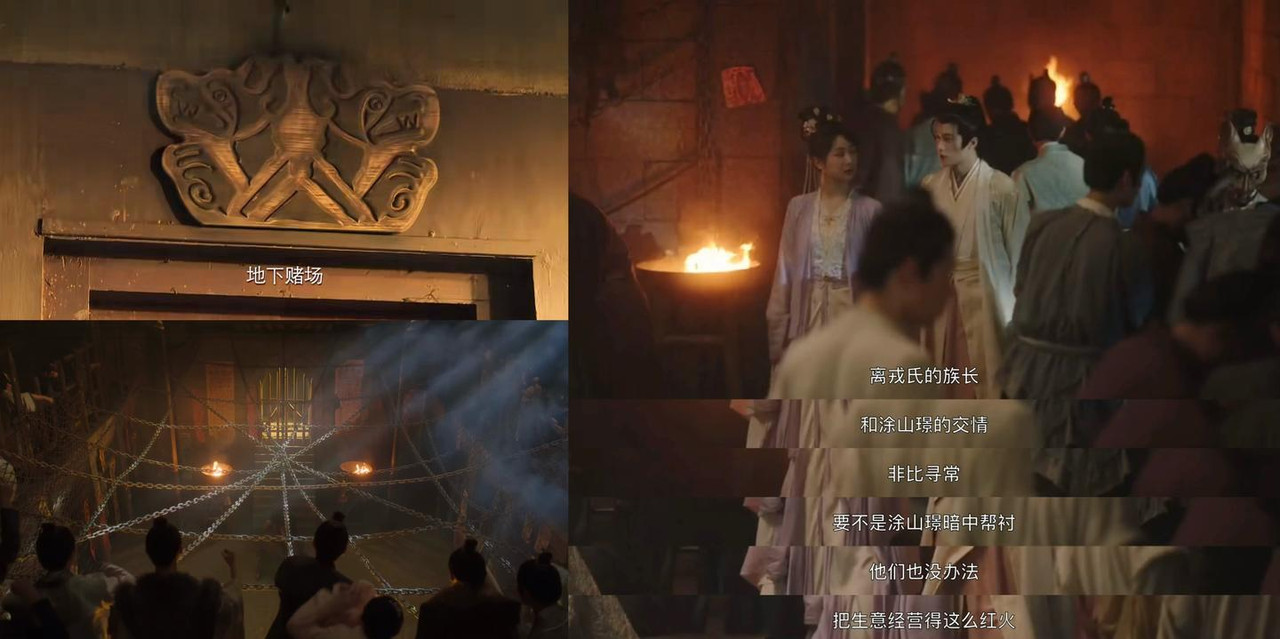
Making dirty money
Fangfeng Clan: Highly skilled in stealth and famed across the Great Wilderness for their family’s mastery of archery. Legend has it that their ancestor could shoot down stars.

Fanglei Clan: An old clan of the Xuanyuan lineage.
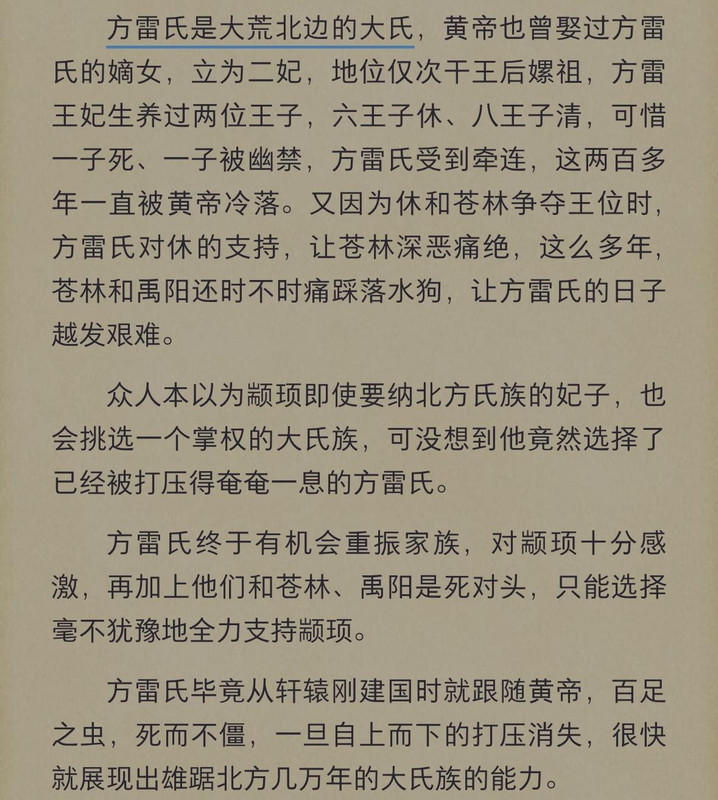
Consort Fanglei was the first official consort Cangxuan married after ascending the throne.
• The South
Jintian Clan: Skilled in metalworking and forging.
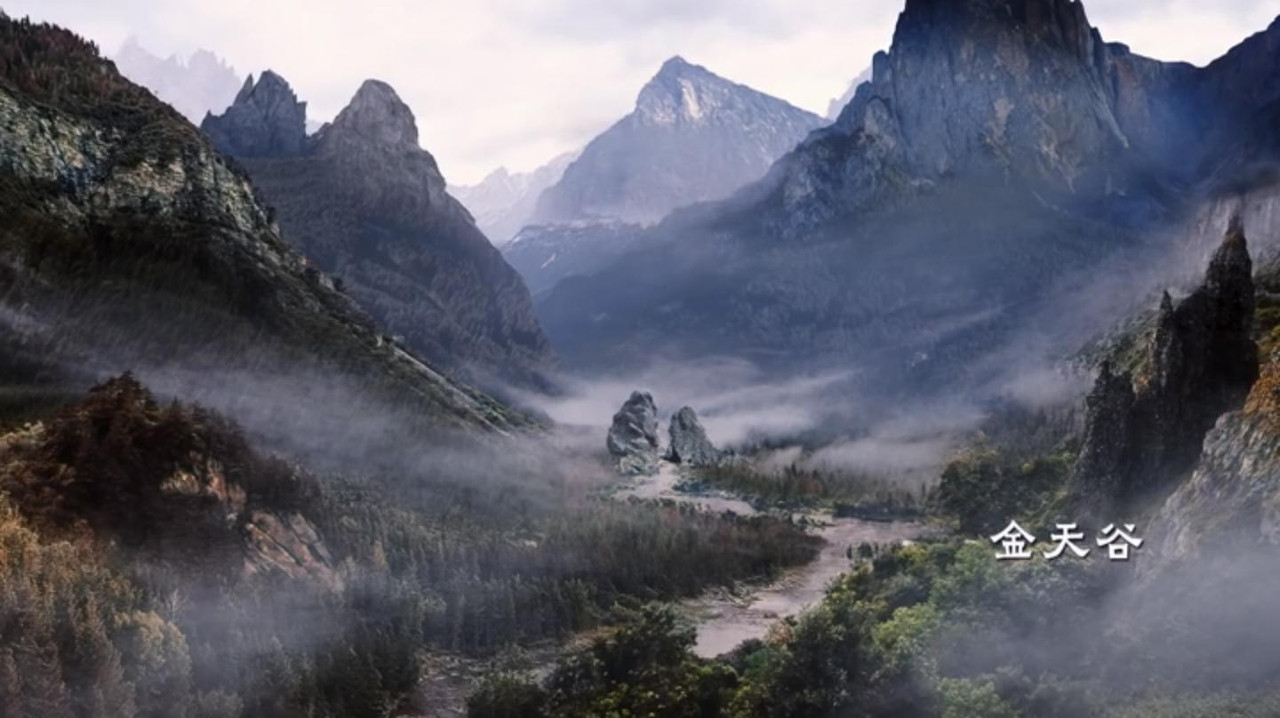
Jintian Valley
• The West
Shusha Clan, Xiaoyue Clan

Ancient clans of the Xuanyuan lineage.
⑦ The Four Great Divisions of Gaoxin
Qianlong Division, Xihe Division, Baihu Division, Changxi Division

◐ The relationship between Shaohao and the Four Great Divisions
• The Qinglong Division and Xihe Division are Shaohao’s close confidants.

Shaohao's maternal clan.
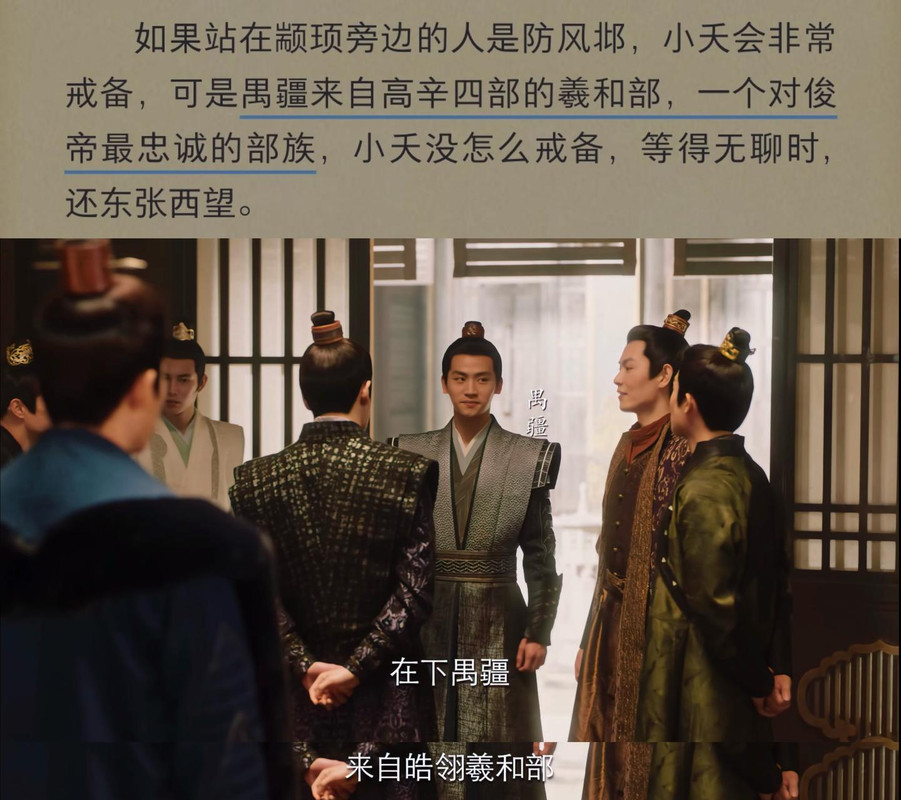
Yujiang
• The Baihu Division and Changxi Division are at odds with Shaohao.
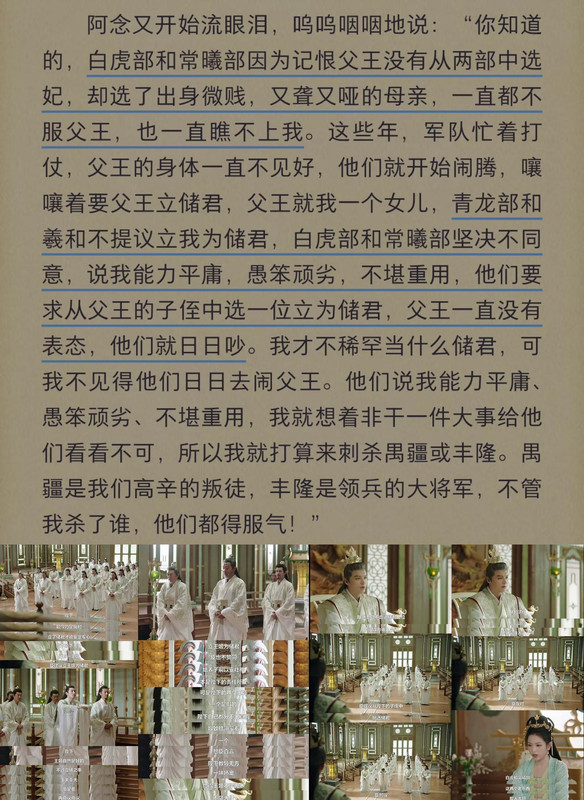
The struggle for the Gaoxin heirship.
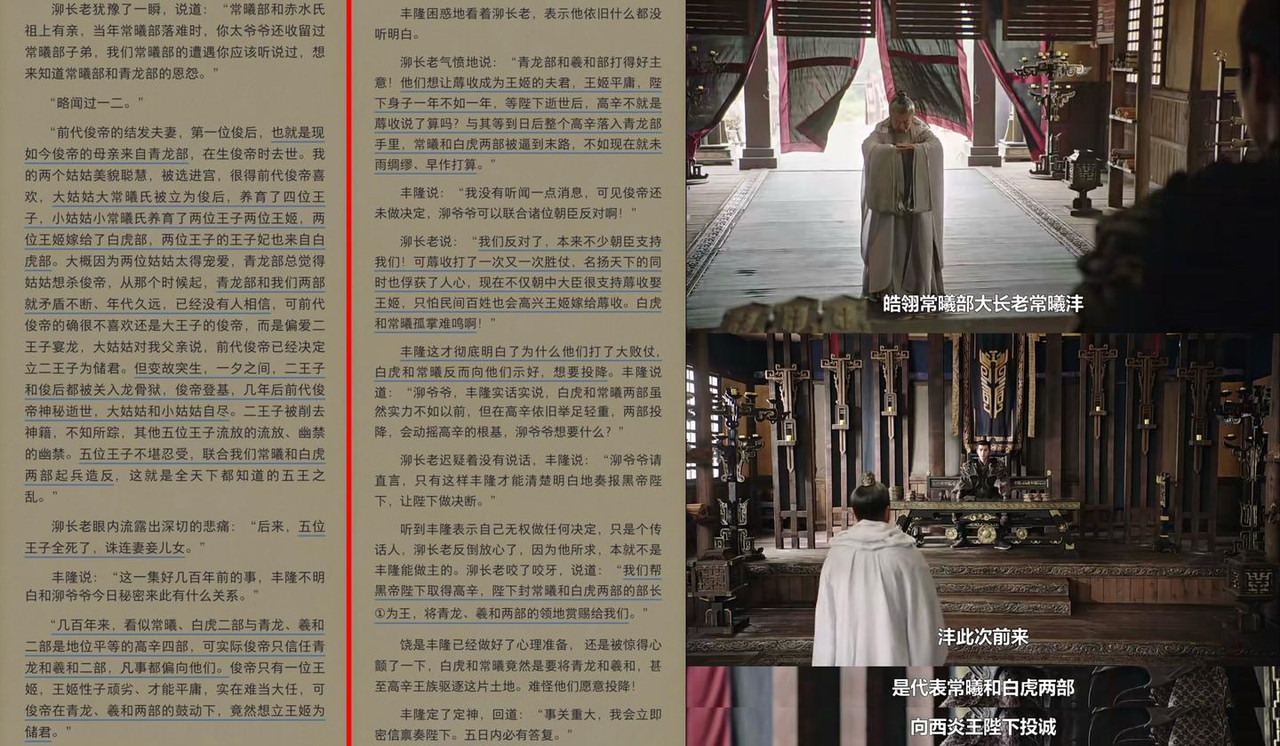
The Rebellion of the Five Kings and the struggle for political power.
❻ The Jin Yong Series
The main characters’ background settings are inspired by the Jin Yong series and Legend of the Heroic Empress by Liang Yusheng.
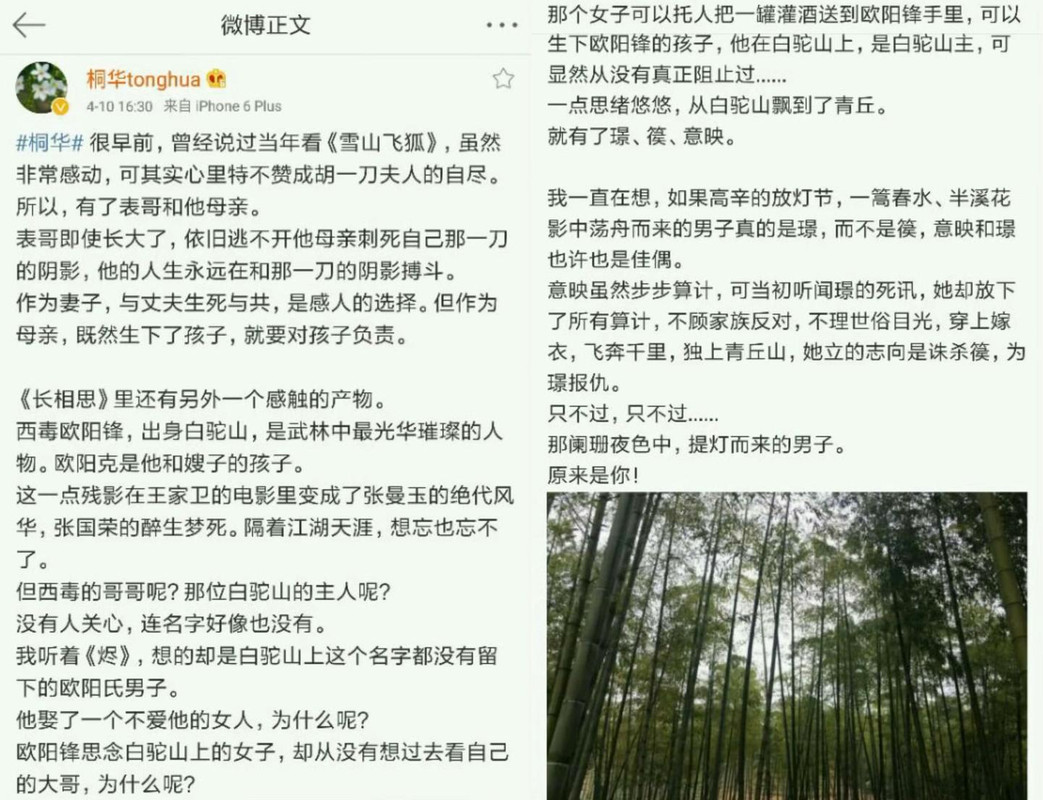
Ouyang Feng's family — The Tushan family
(Tushan Jing’s personal matters can be found in Table of Contents Part ❶-❺-③)
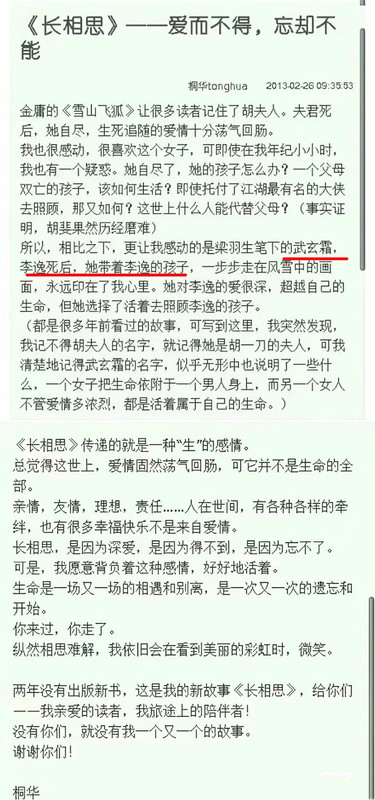
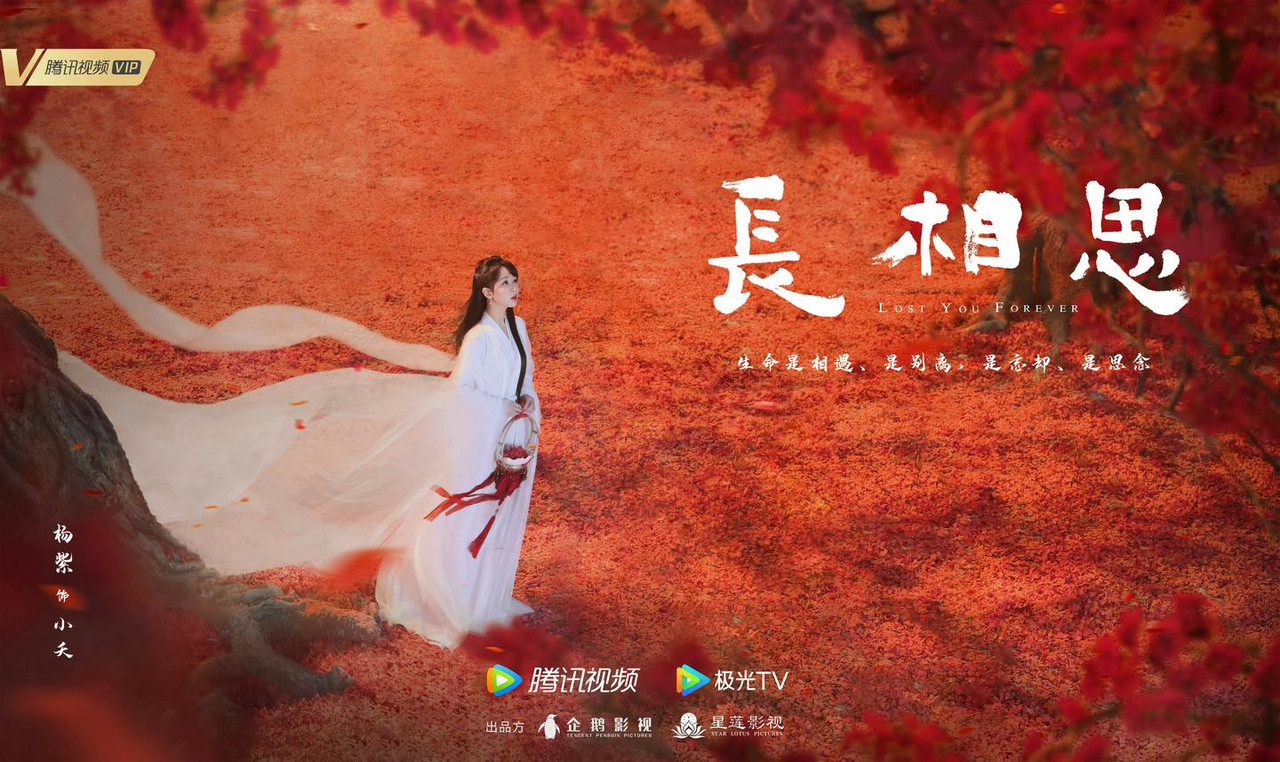
The emotion of “life”: Life is about encounters and farewells, about forgetting and longing.
❼ Titanic
Jack and Rose represent a love that fulfills and completes.
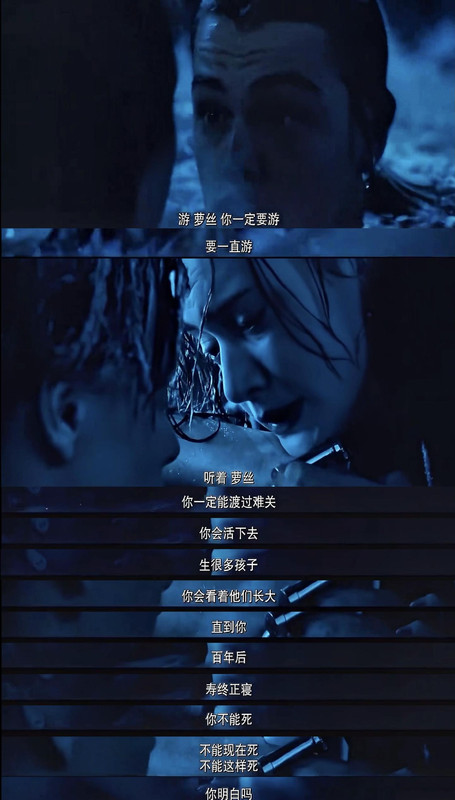
You will survive and live a good life.
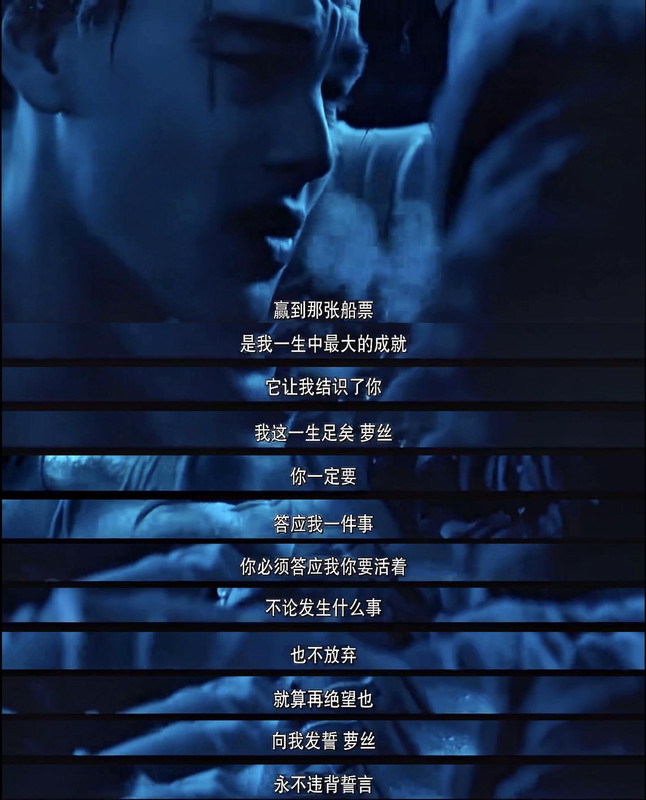
Never give up.
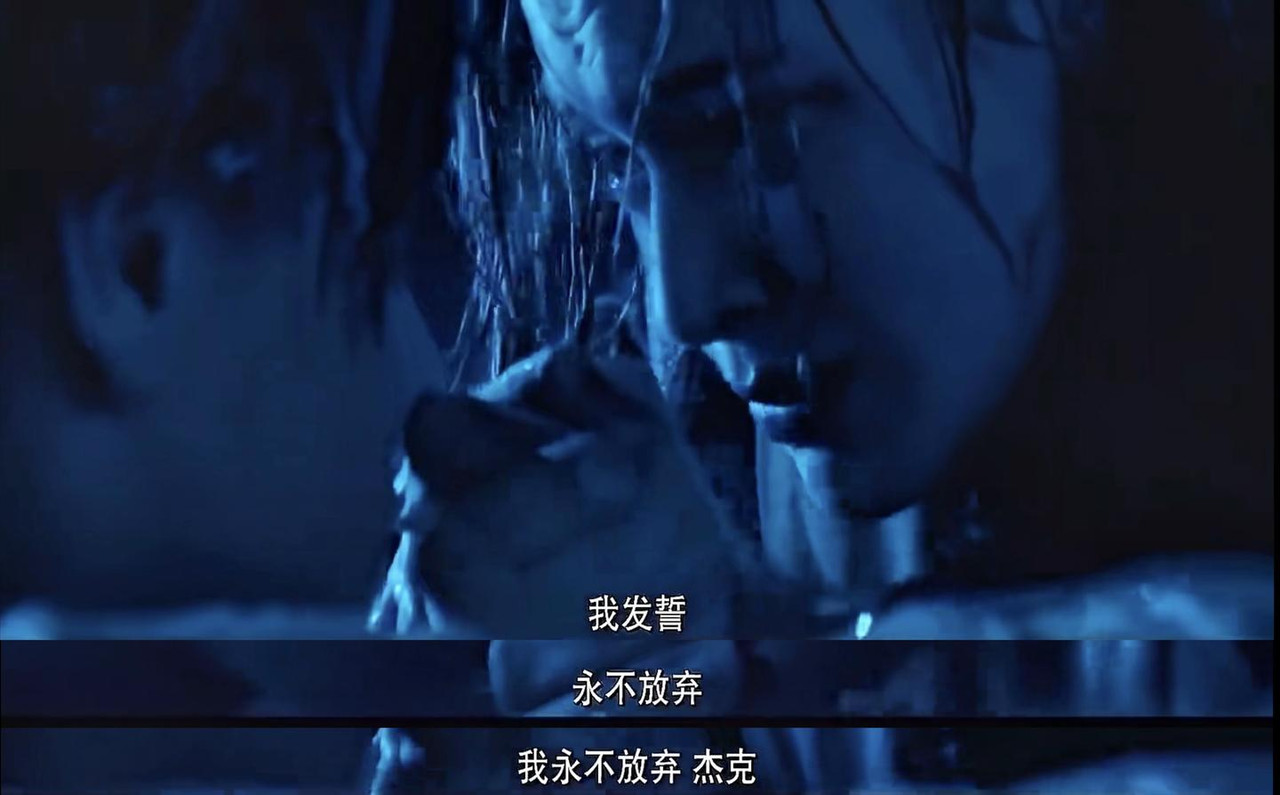
I will never give up.
Xiangliu’s selfless fulfillment of Xiaoyao.
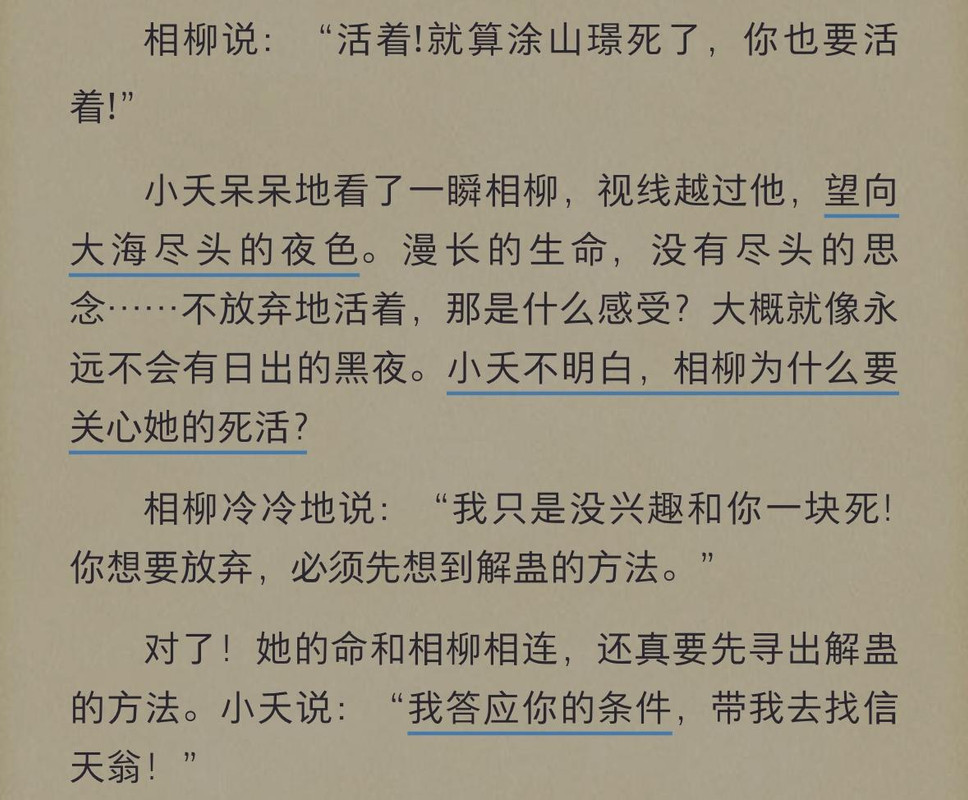
You must stay alive.
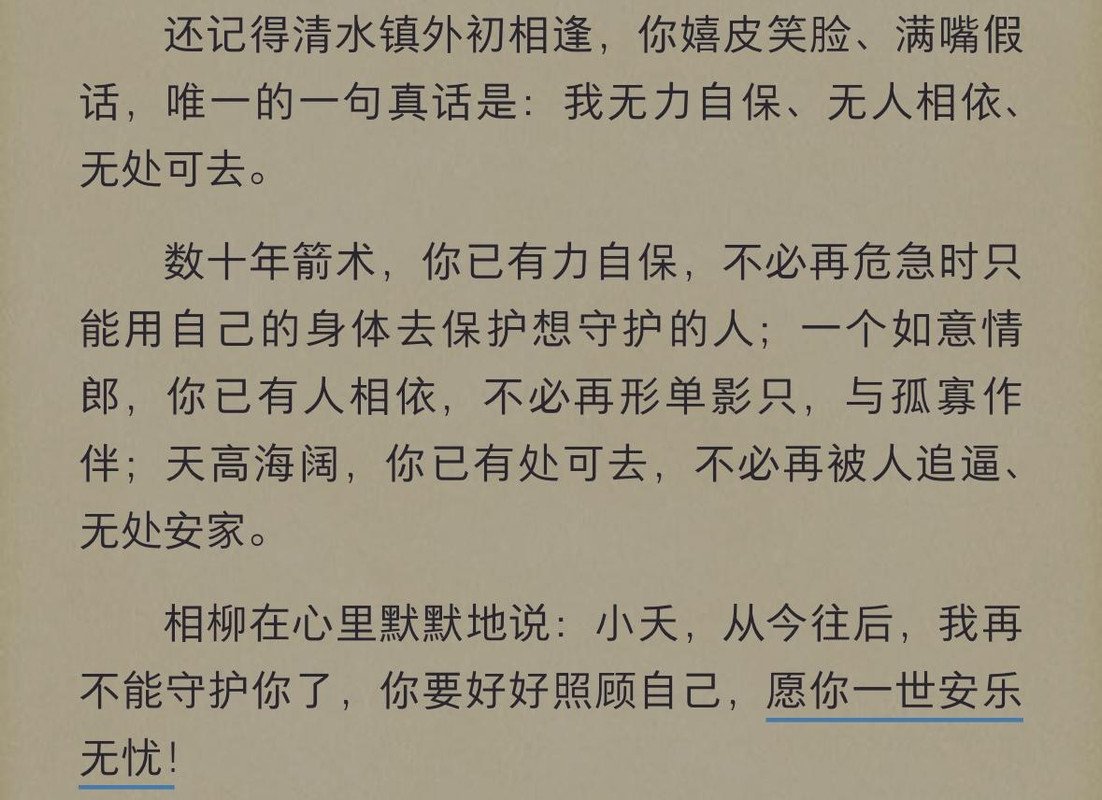
May you live a life of peace and joy.
Even if this power harms me, this person is not me, and I no longer exist in this place—As long as you can experience this world in my place, that is enough.
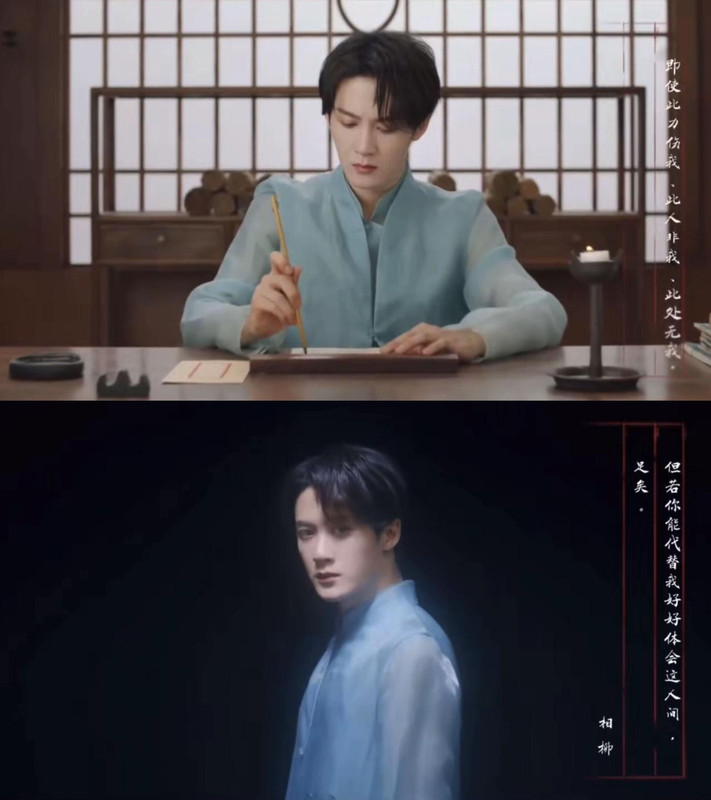
Rose fulfilled love after Jack's death.
Xiaoyao, on the other hand, “fulfilled” it even before Xiangliu died...
VI. Idioms / Proverbs and Their Meanings❶ Telepathy / (Analysis of Merlin’s Brutal Killings)
Telepathy, or “hearts connected like a rhinoceros horn,” is the deep mutual understanding that comes from love at its deepest.
Xiaoyao and Xiangliu can sense each other without the need for a lover's gu (love curse). (In the drama, telepathy is shown by clutching the chest.)
• Before dying in battle
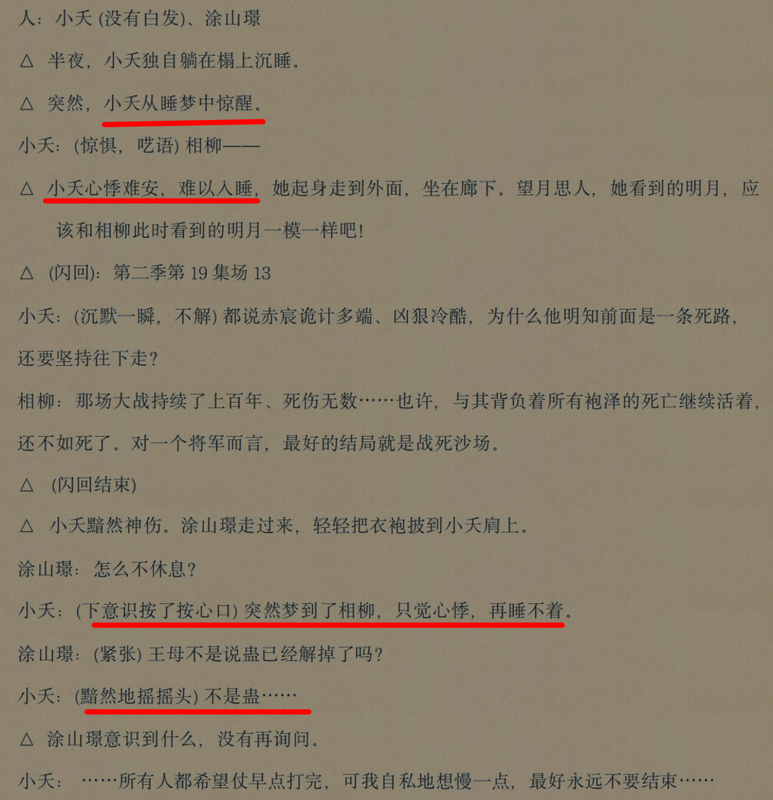
Sensed that Xiangliu was about to die.
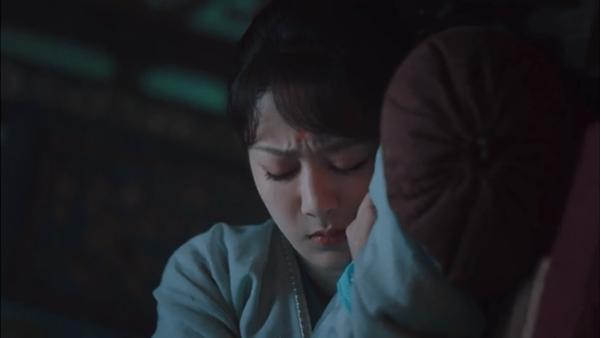
Before dying in battle, telepathy was shown by clutching the chest.
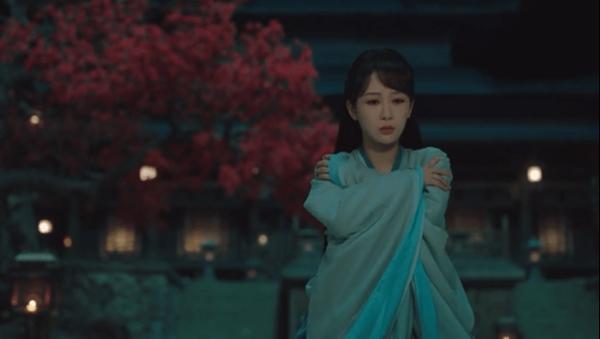
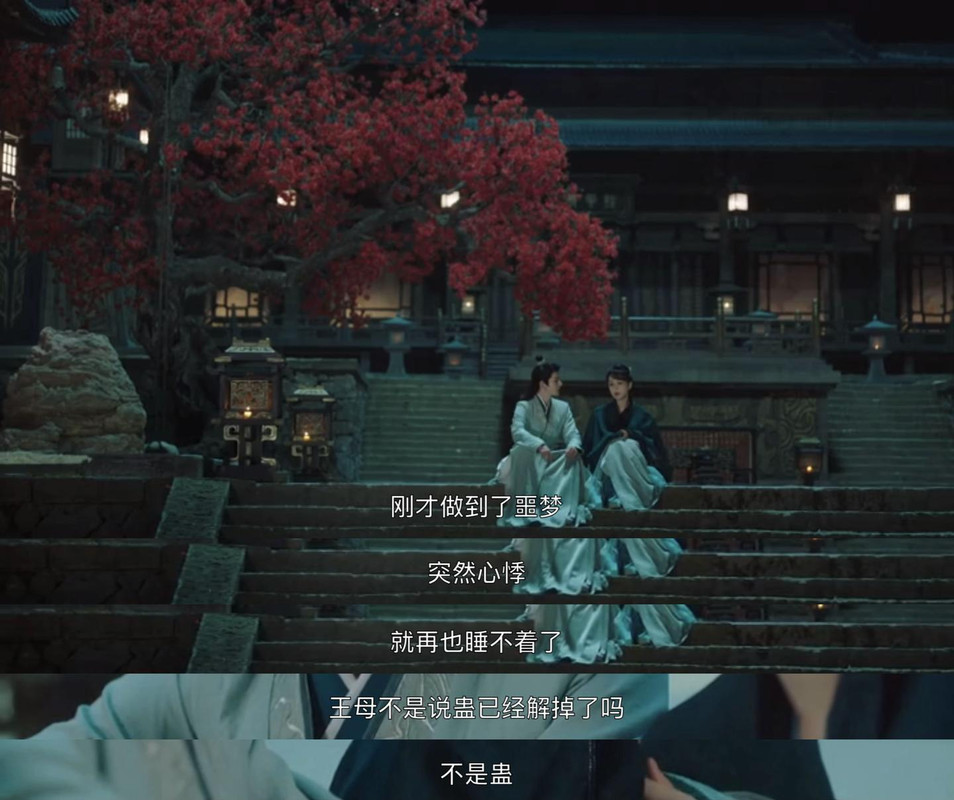
The broadcast version changed many lines—refer to the script.
• After the death in battle

Sensed Xiangliu’s death, and the telepathic connection disappeared.
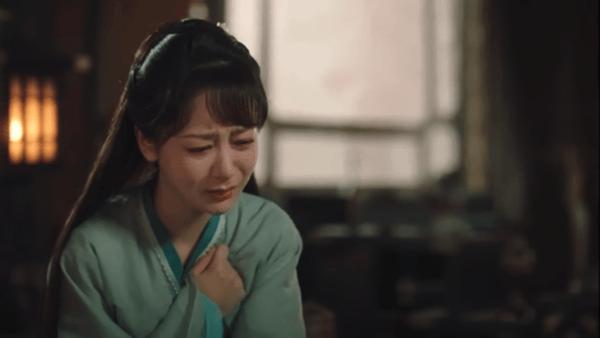
After dying in battle, the telepathic connection disappeared as she clutched her chest.
———
1️⃣ Xiangliu sensed it through the lover’s gu / telepathy.
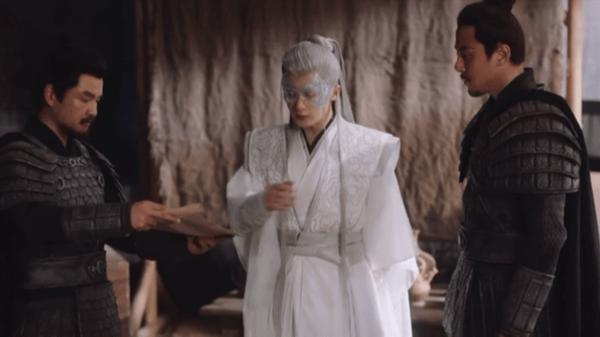
▽– Why wasn’t there a scene showing Xiangliu’s immediate reaction to the attack?
1️⃣ One theory is that the perception at that moment wasn't through the lover's gu, because Xiaoyao was severely injured all over, and there was no “display” of the pain being transmitted to Xiangliu (perhaps the female gu was suppressed by the powerful spiritual force of the fatal formation, cutting off the connection). Was it only when Xiaoyao was near death that the telepathic bond activated?
2️⃣ Does this suggest that as long as Xiaoyao’s injury isn’t fatal, Xiangliu doesn't care or take it seriously???
• Xiangliu could feel the pain but deliberately ignored it?
In the script, there supposedly was a scene where Xiangliu's foot first sensed it? (Sorry, the blogger doesn't have the script for the first 30 episodes)... But in the broadcast version, that was completely deleted, with no hint of that interpretation — which feels very strange...
• Did Xiangliu himself cut off the perception of the female gu? (as speculated by some viewers)
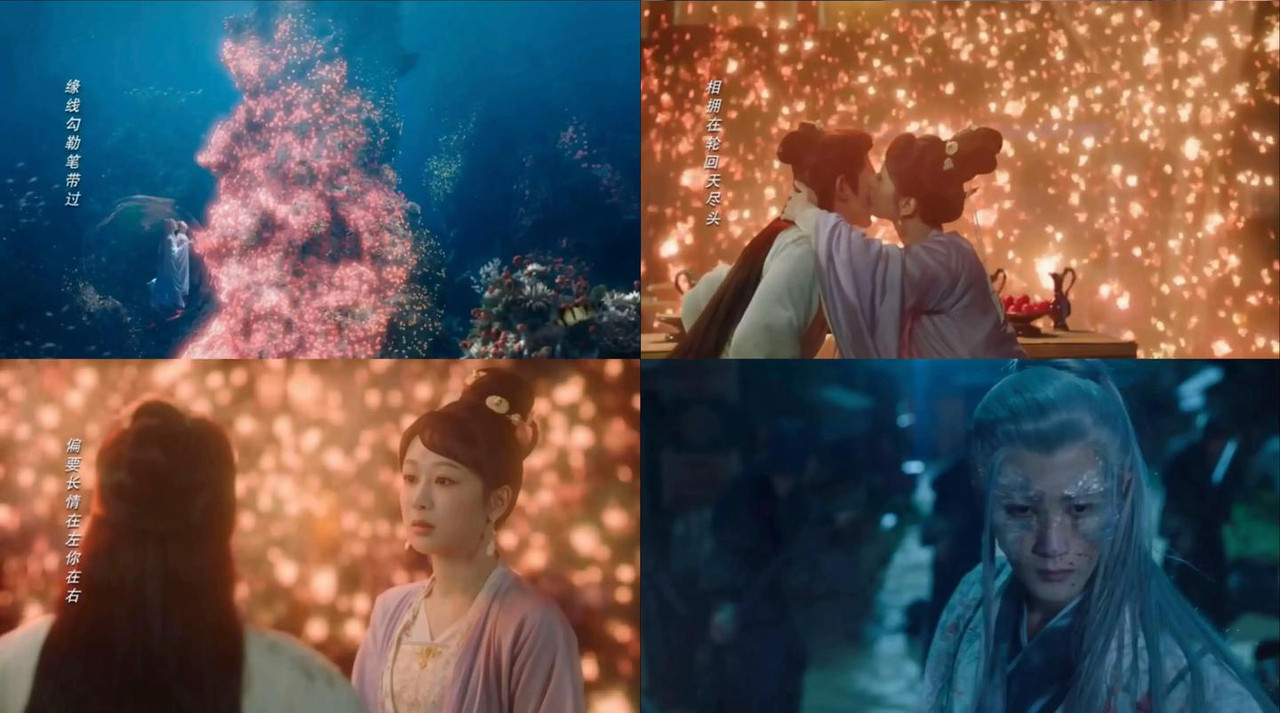
Could it be that the snake didn’t want to continue feeling this kind of humiliation and cut off the perception of the female gu himself???
2️⃣ Cangxuan sensed it through their bloodline / telepathic connection.
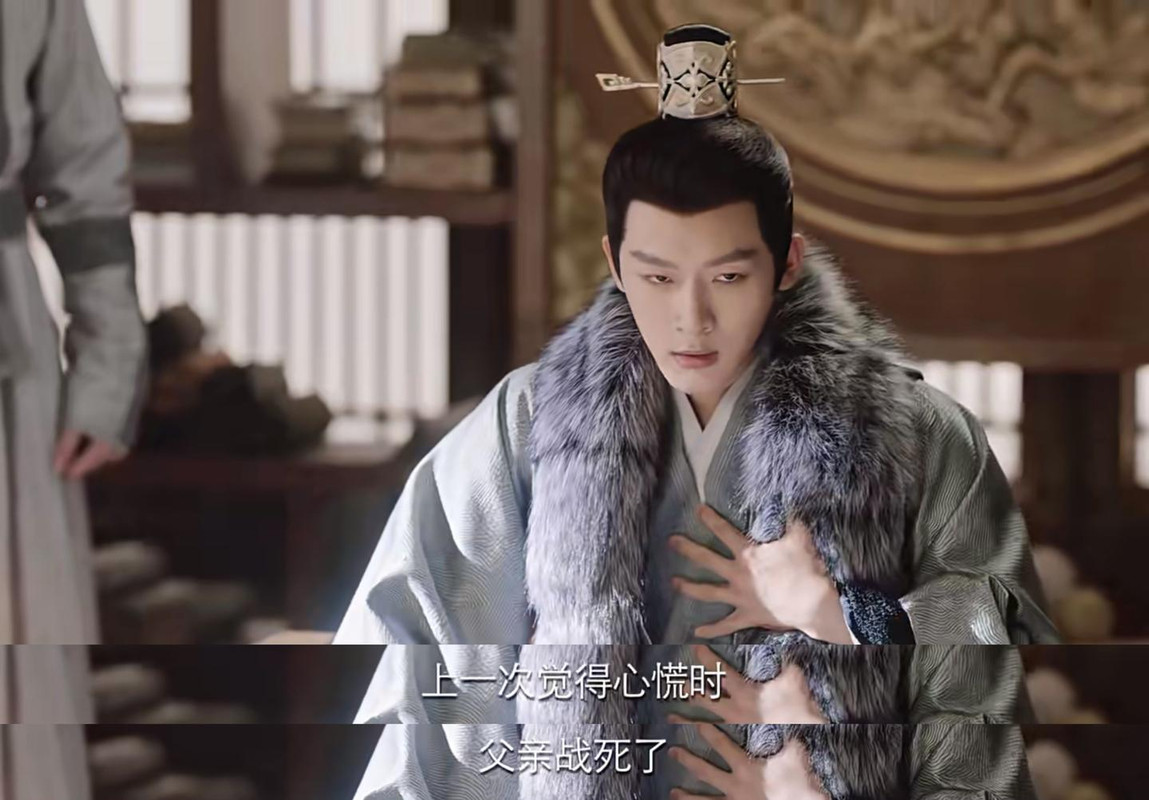
3️⃣ Tushan Jing (not through telepathy, as he did not clutch his chest), sensed something major had happened when the sachet Xiaoyao gave him broke its string.
He inherited the bloodline of the Tushan ancestors and had a premonition.
(This is referred to as a “Divine Sense Warning” — see Table of Contents_Section Five-❺-④-●Tushan Clan)
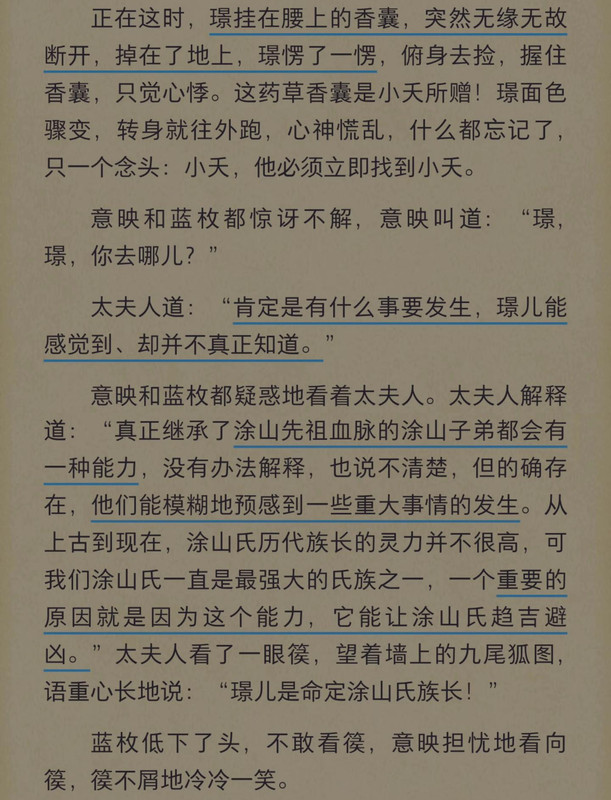
The Tushan bloodline sensed that something significant was about to happen.
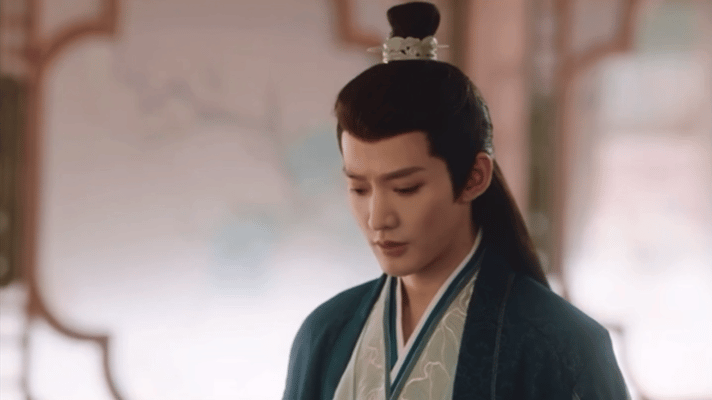
The sachet’s string broke.
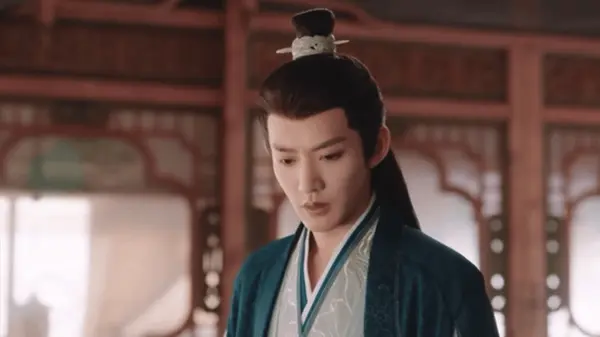
Did not clutch his chest
———
② Shaohao’s affection
• The greatest humiliation
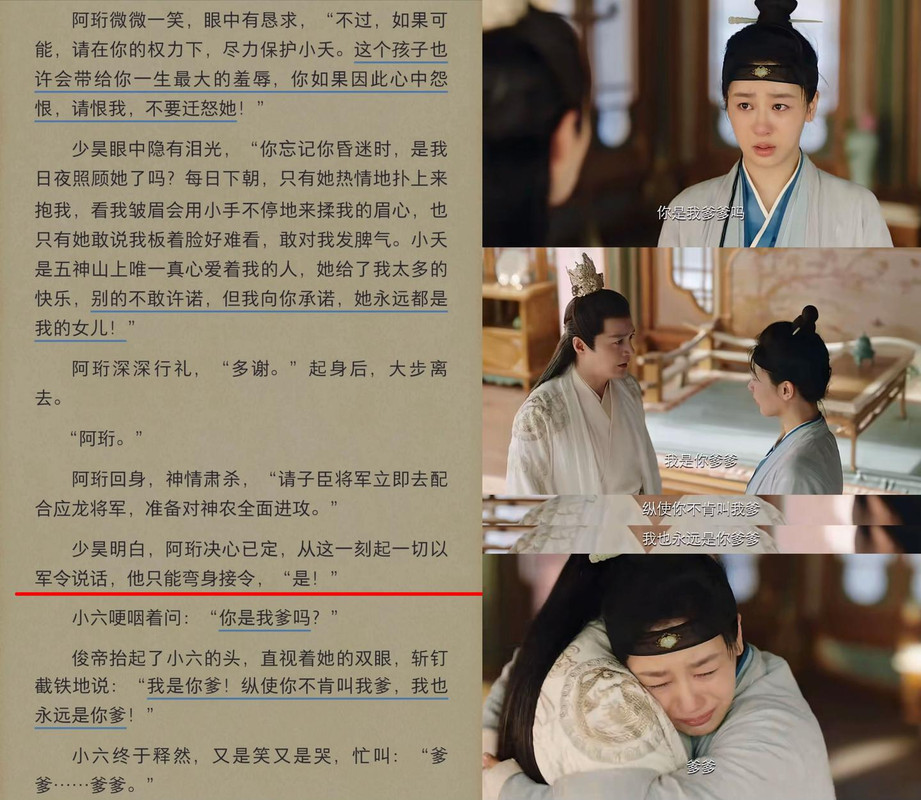
Once Promised
• A “secret” openly known on the battlefield
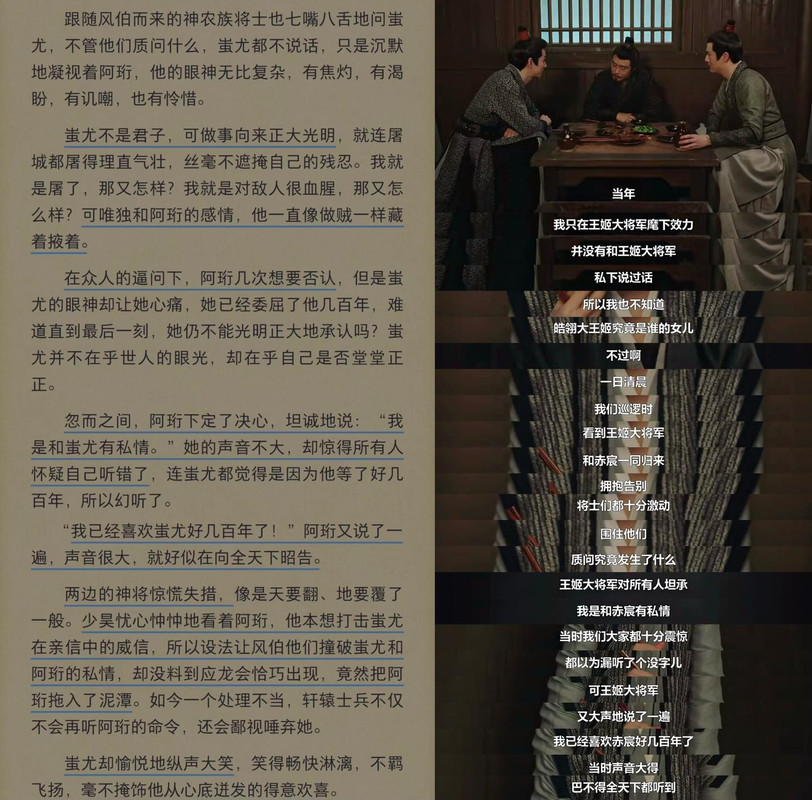
Aheng openly revealed her “affair” in front of the generals of both armies
• The maidservant’s gossip
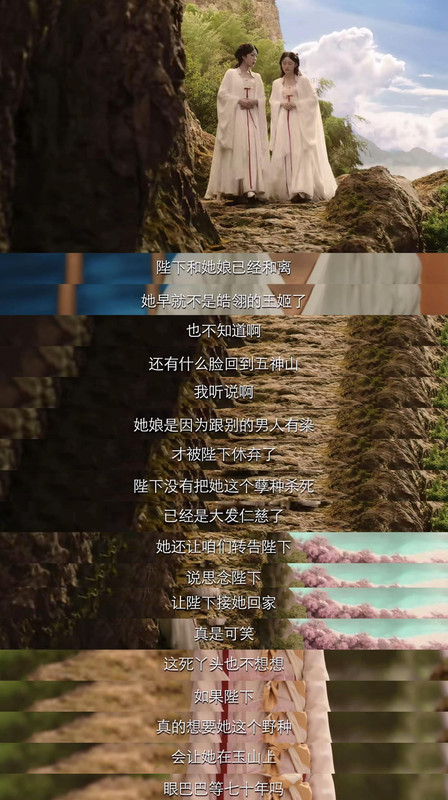
Even the maidservants in Gaoxin knew the rumors
• Missing person notice
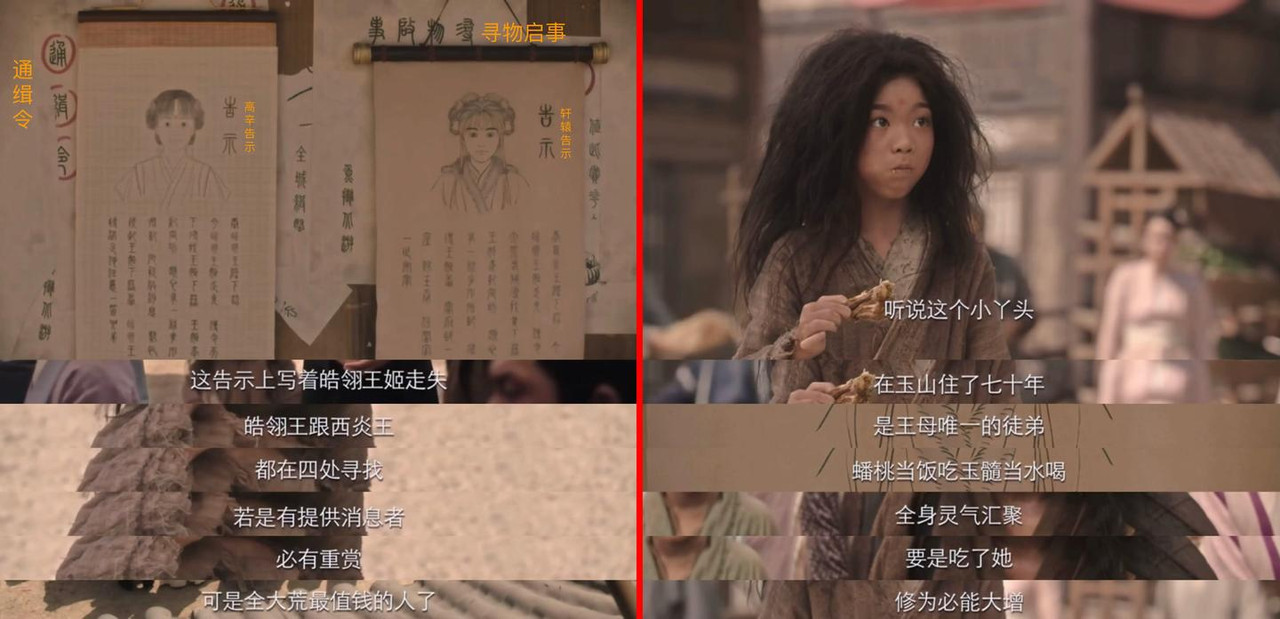
Accompanied by the rumors of “Tang Monk’s flesh”
• The eyes of the “demon lord”
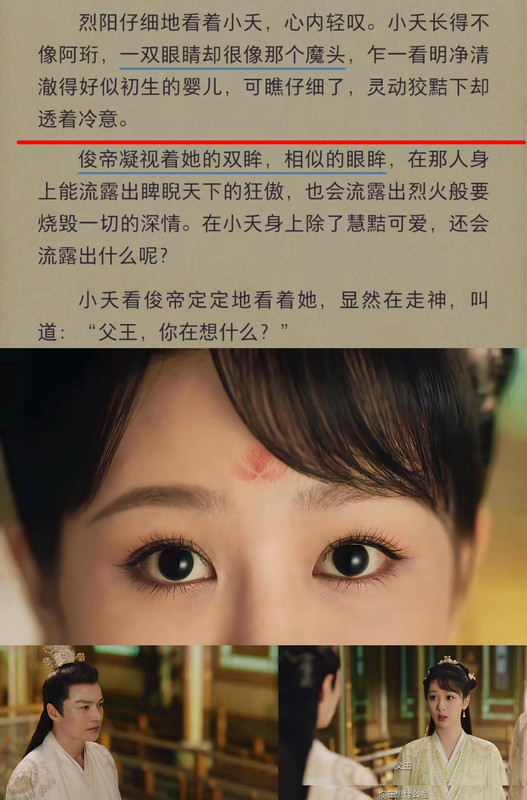
• The status of the royal princesses
Eldest Princess vs. Second Princess

Wild-born vs. Biological-born
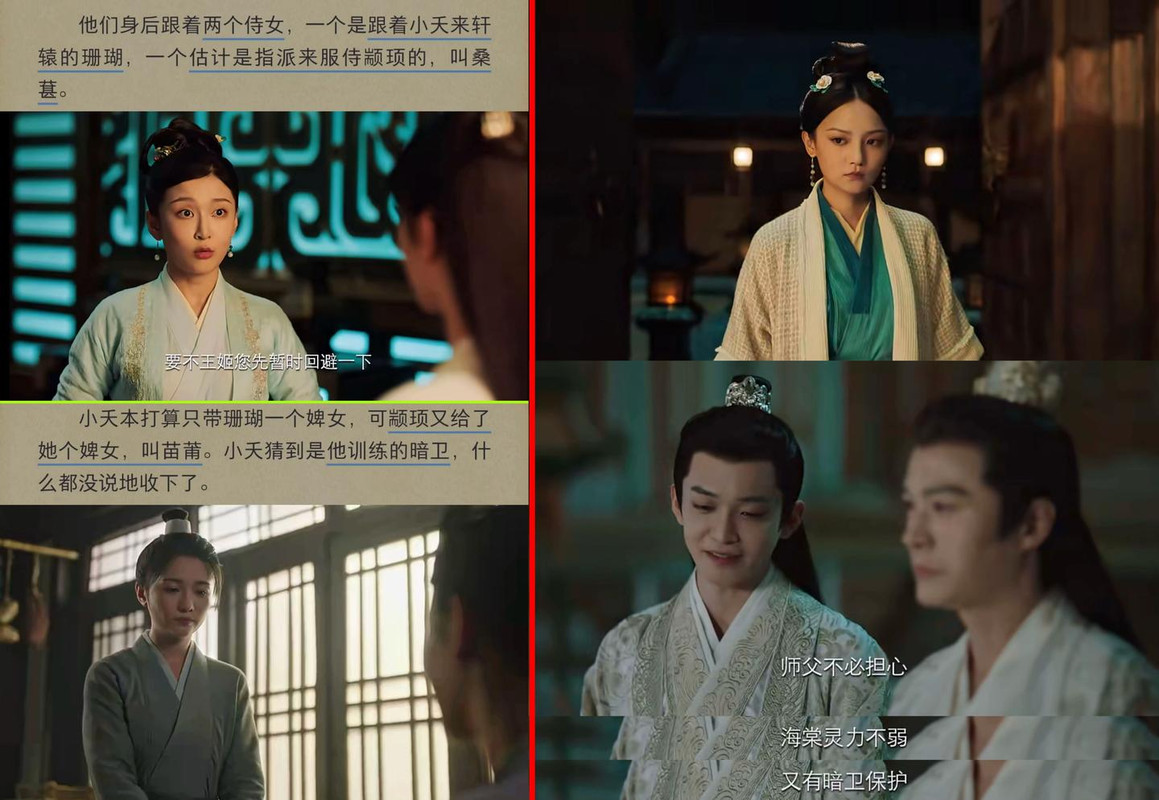
Personnel arrangement
(Some may argue that it was Xiaoyao herself who didn’t speak up and ask—if she had asked, Shaohao would definitely have given it to her.)
• A high-profile return
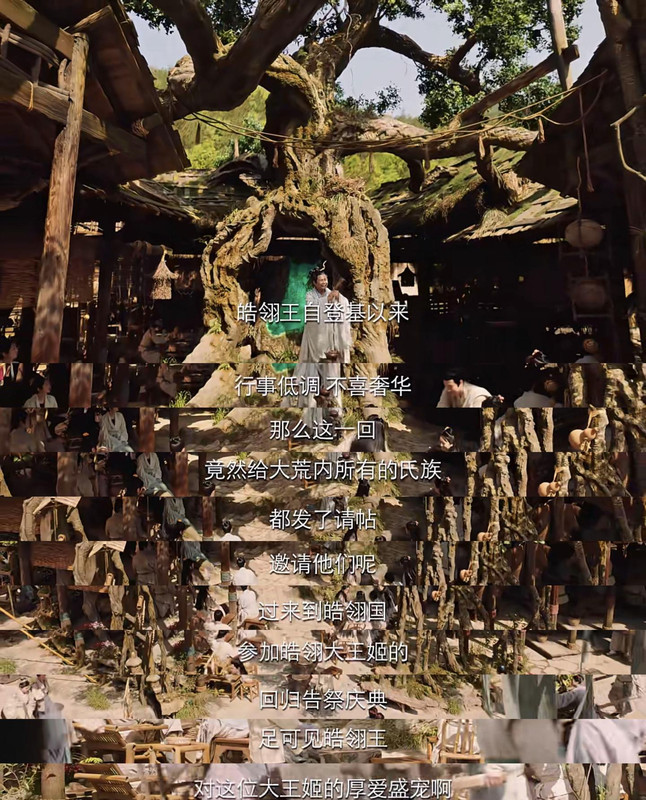
Completely out of the ordinary — all the clans came to see
• Mufei’s confirmation
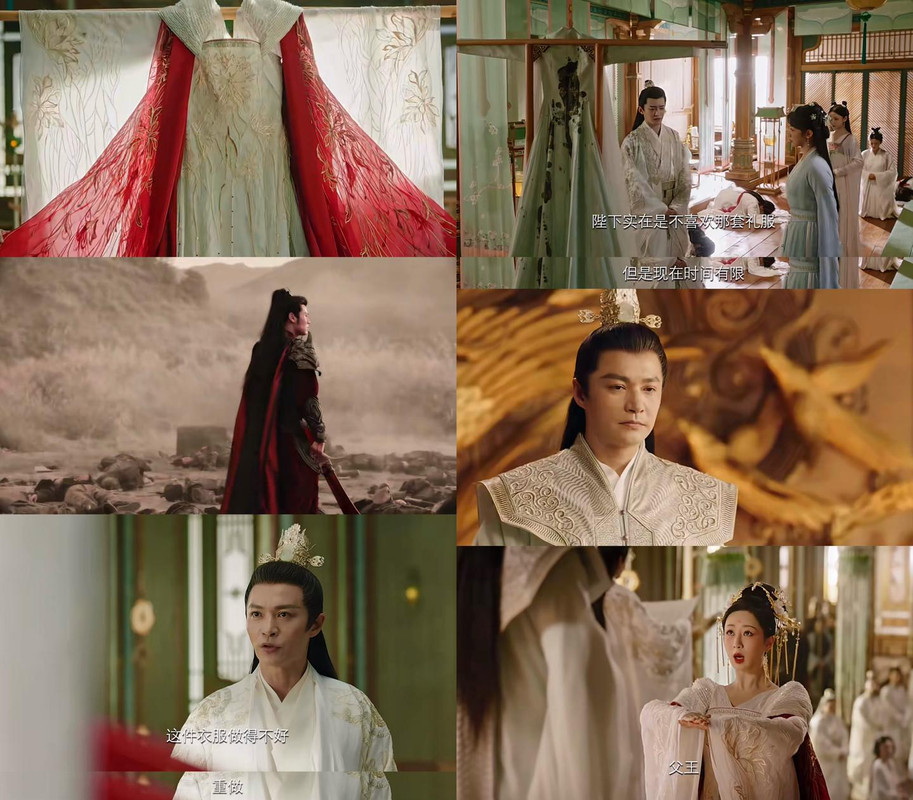
Like the return of an old friend
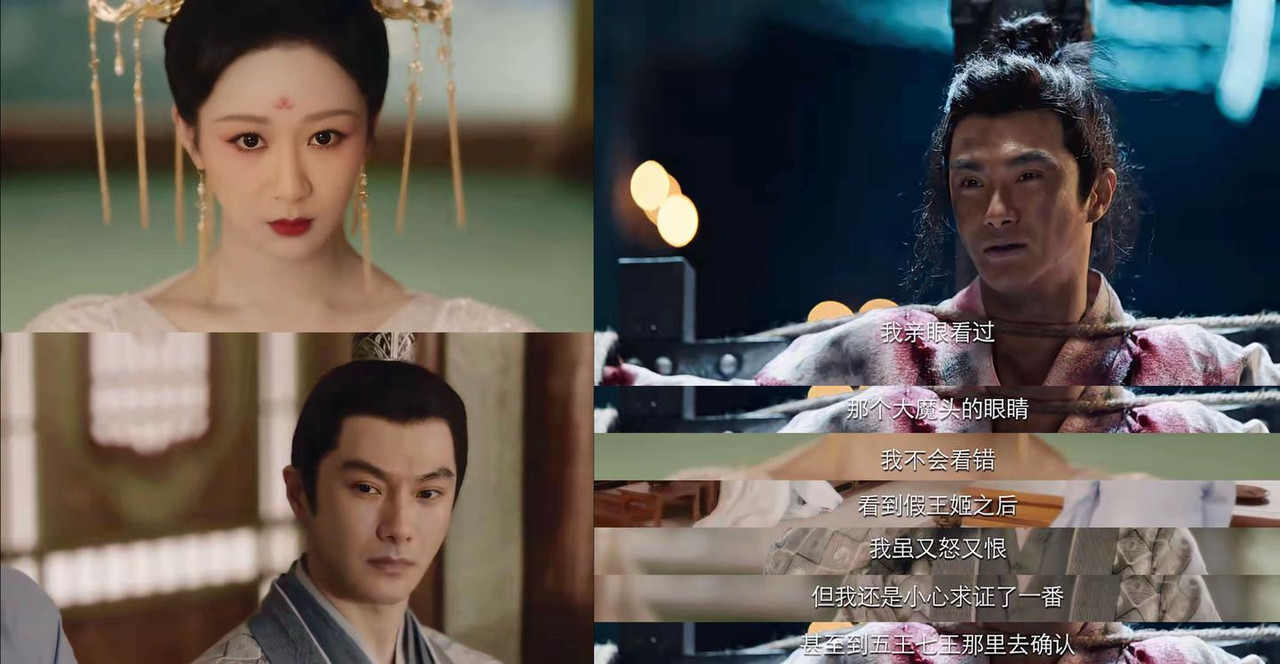
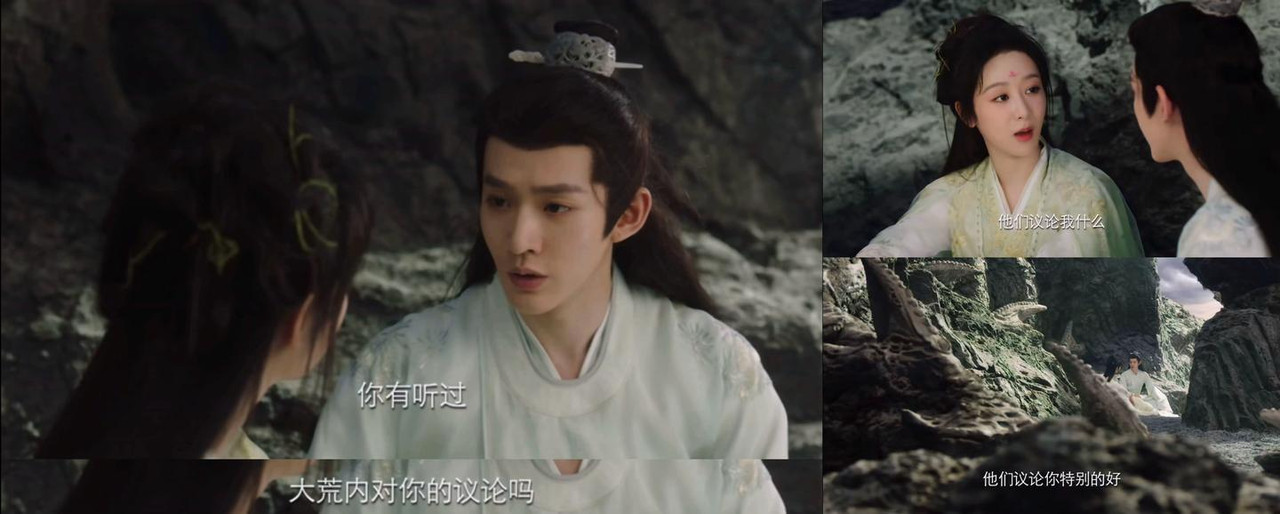
Great Wilderness Hot Topic: The Eldest Princess is especially outstanding! (It’s just… she doesn’t look like the King of Gaoxin — no one really knows who she takes after!)
(Of course, personally I don’t think Shaohao did anything wrong. If someone wants to wear the green hat, let them — after all, Shaohao “killed his father and brothers,” he was never a “saint” to begin with...)
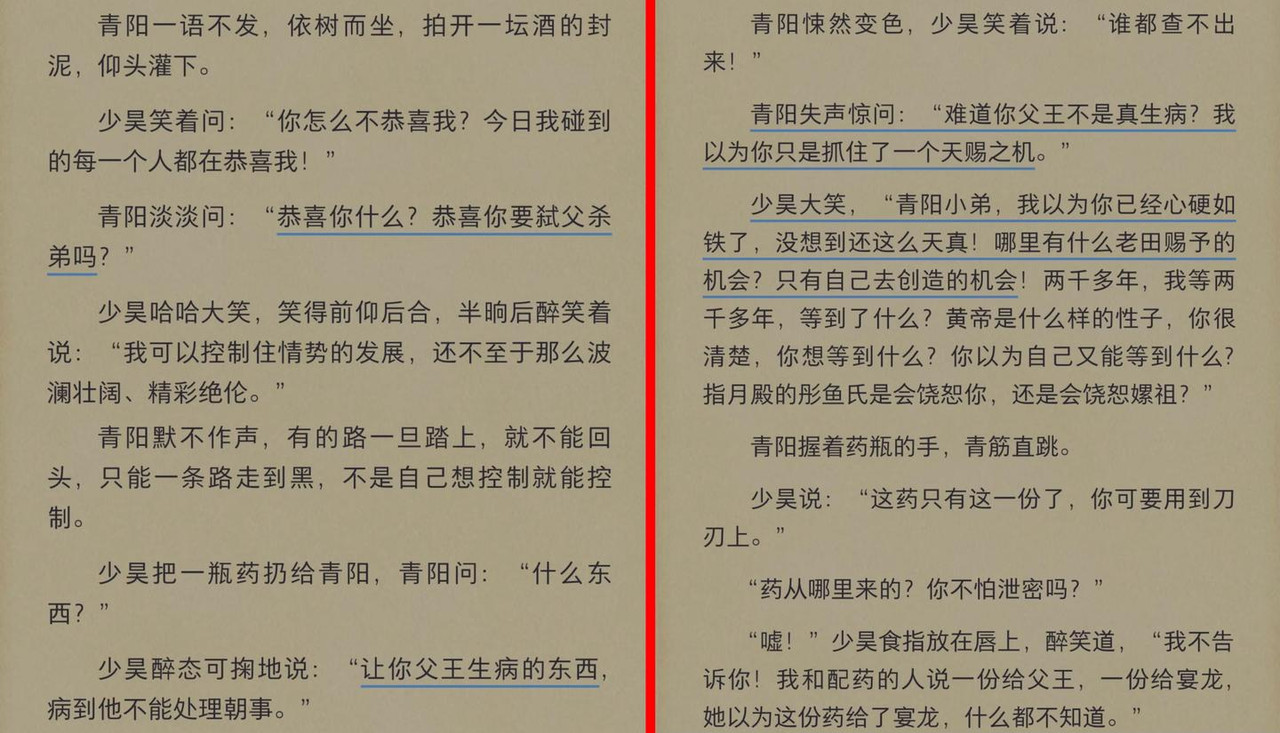
Patricide and fratricide.
③ Analysis of Merlin’s Brutal Killings
The root of Merlin’s brutality can be found in Table of Contents Section Five-❺-⑤ and Section One-❺.
• Relationship diagram of the Shennong Clan, Chishui Clan, Tushan Clan, and Shan Clan.
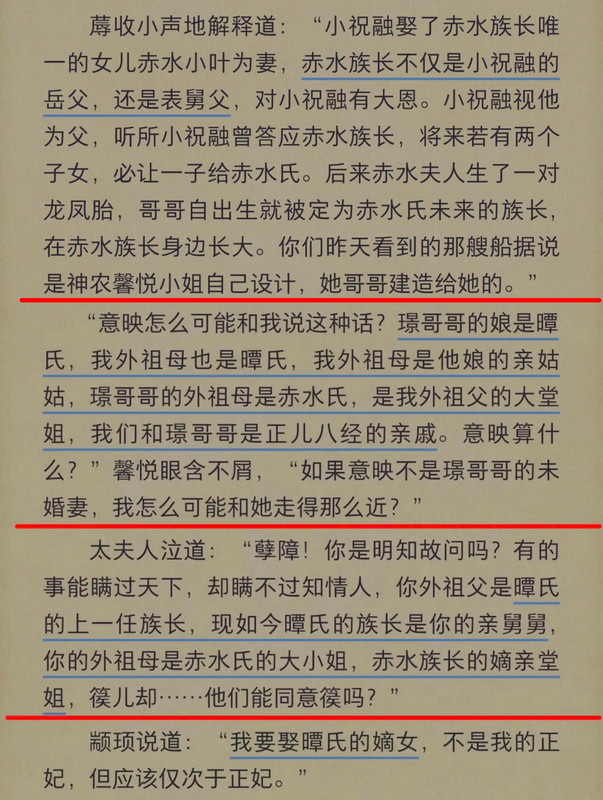
The relationships are dizzying to follow
(Finally, they’ve been simplified into a diagram...)

Self-made diagram (surface-level version)
▽– Here lies a discussion point about a hidden political scheme: were there others (such as the Tushan Clan) involved in Merlin’s brutal killings?
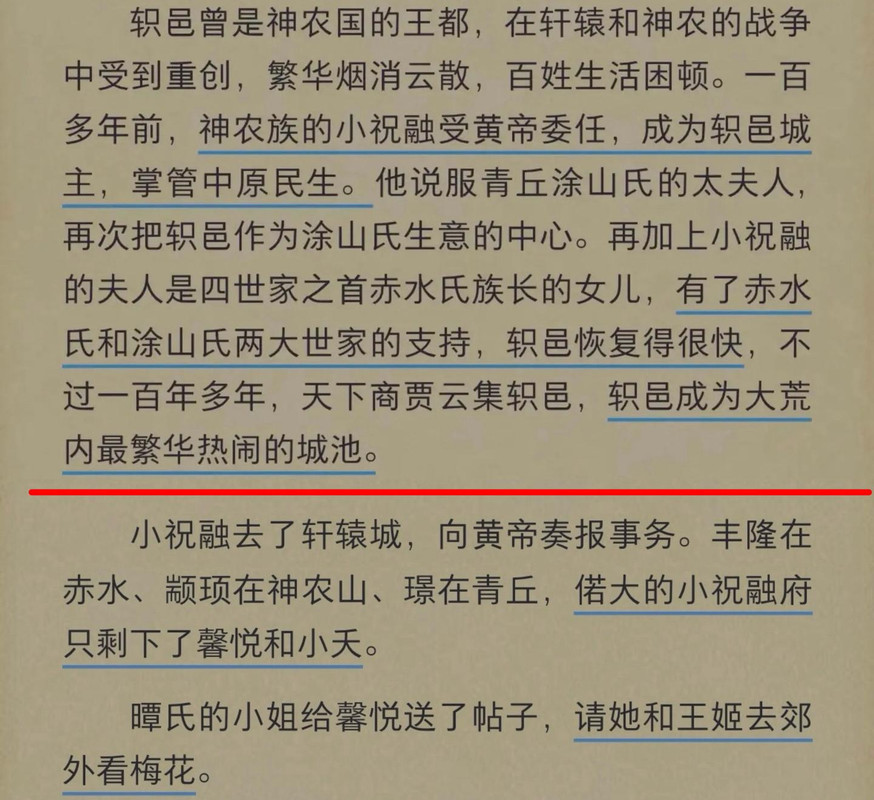
Outside Meilin Forest, in the suburbs of Zhi City, Central Plains (Zhi City was “jointly built” by the Shennong Clan, Chishui Clan, and Tushan Clan)
1️⃣ If they weren’t involved, does Xiaoyao’s death itself count as a major event? After all, Cangxuan only killed a few disposable pawns, and the clans behind them in the Central Plains didn’t dare to make a move… It could be interpreted as a major event for Tushan Jing personally…
2️⃣ If they were involved, then it could be seen as a major threat to the Tushan Clan… but then why wasn’t it uncovered in an investigation?
● Let’s first look at the full course of the event:
1️⃣ Surface-level events
• The incident happened on Central Plains territory, so those in charge of the region must provide a reasonable explanation.
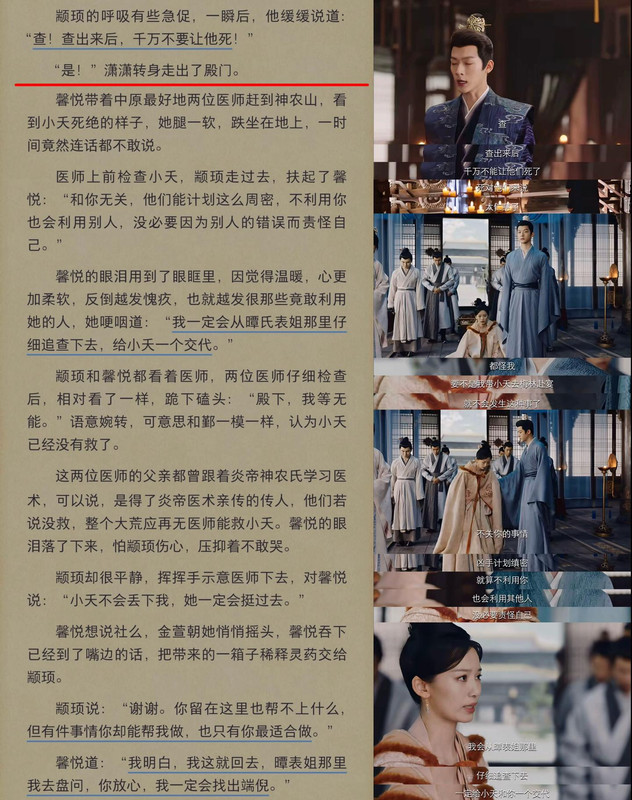
• The scapegoat culprit, Mufei, was handed over.
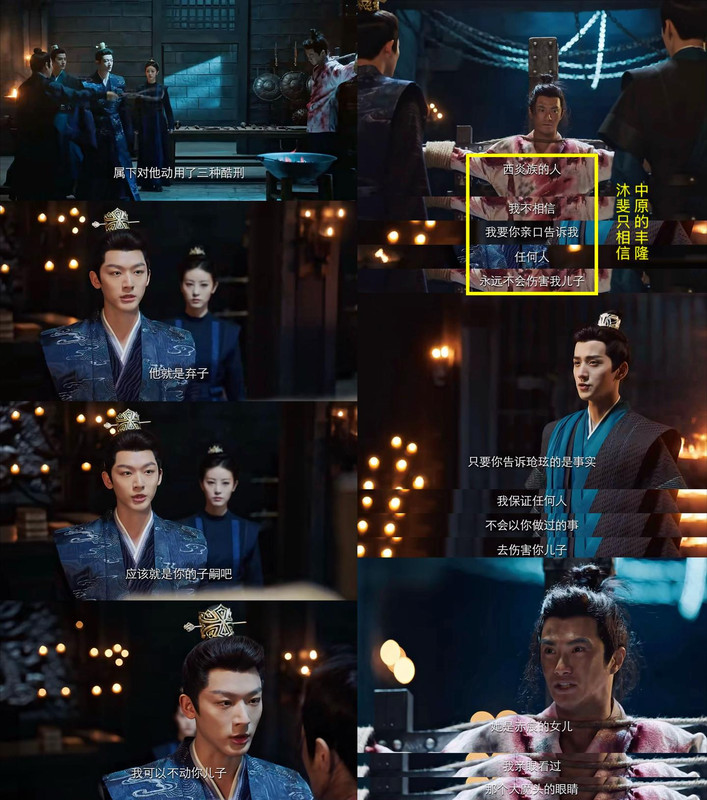 Xiaoyao’s true identity surfaces
Xiaoyao’s true identity surfaces
▽– Mufei said, “He doesn’t trust Xuanyuan people,” so why did he go to the Fifth and Seventh Kings of Xuanyuan for confirmation?
1️⃣ Could it be that only the Xuanyuan people knew about Chichen’s secret romantic relationship? So Mufei selectively chose to trust them?
2️⃣ Did Mufei deliberately question the Xuanyuan people… and what was his purpose?
…
• Through investigation, four culprits were confirmed.
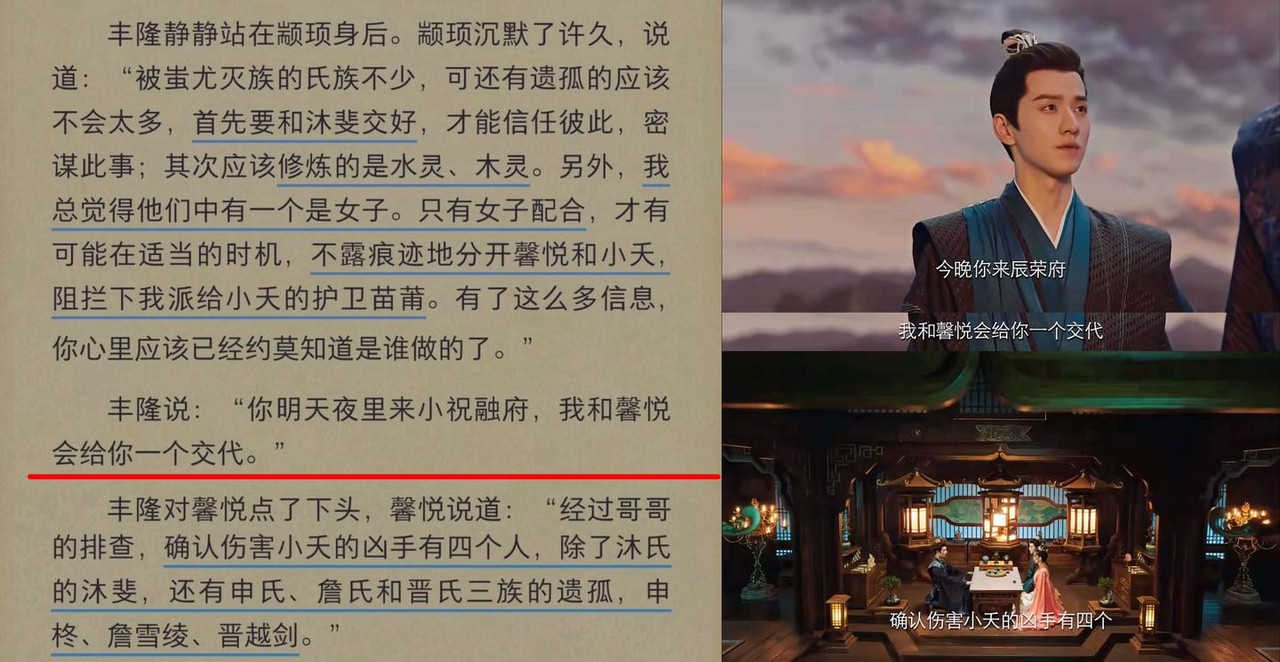
Through investigation and analysis, four individuals were identified and ultimately held accountable.
Background of the culprits: Orphans from clans exterminated by Chichen.
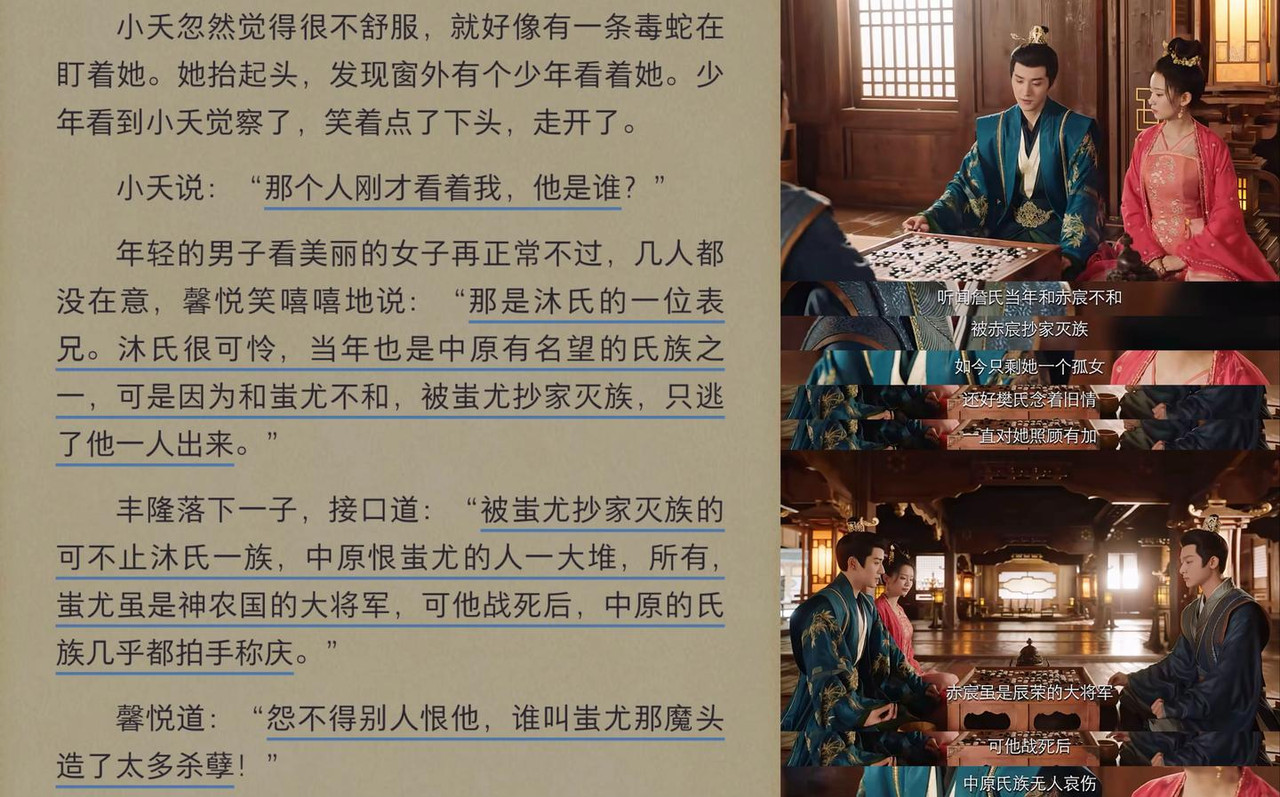
Orphaned survivor
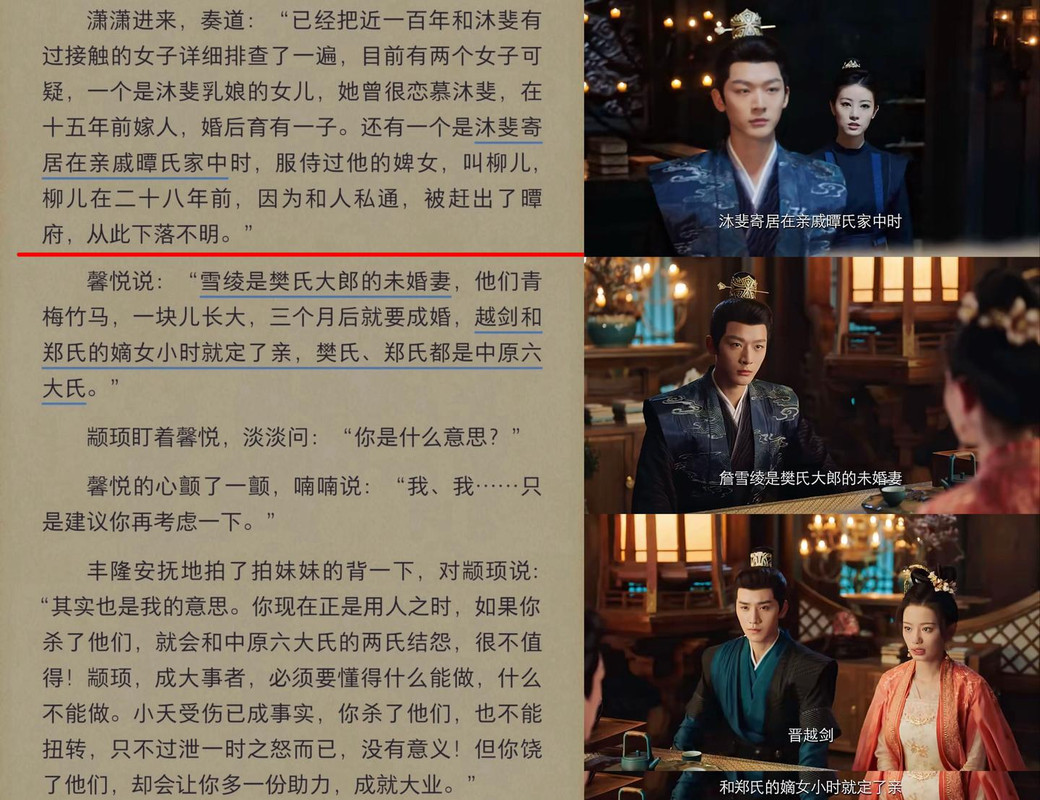
…
◐ Insert a character analysis (pure speculation, can be ignored ❌)
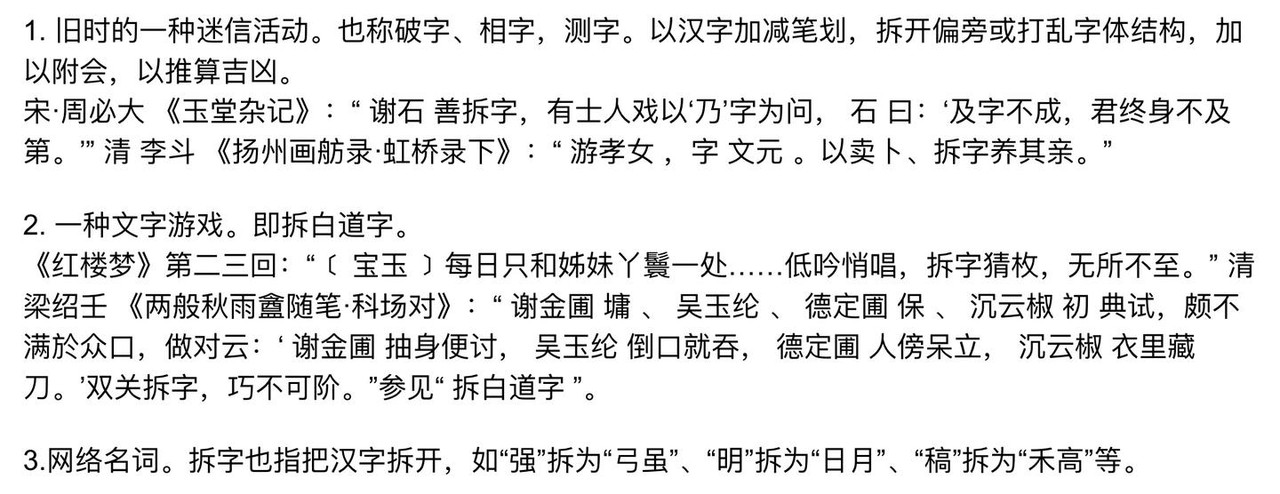
From the internet
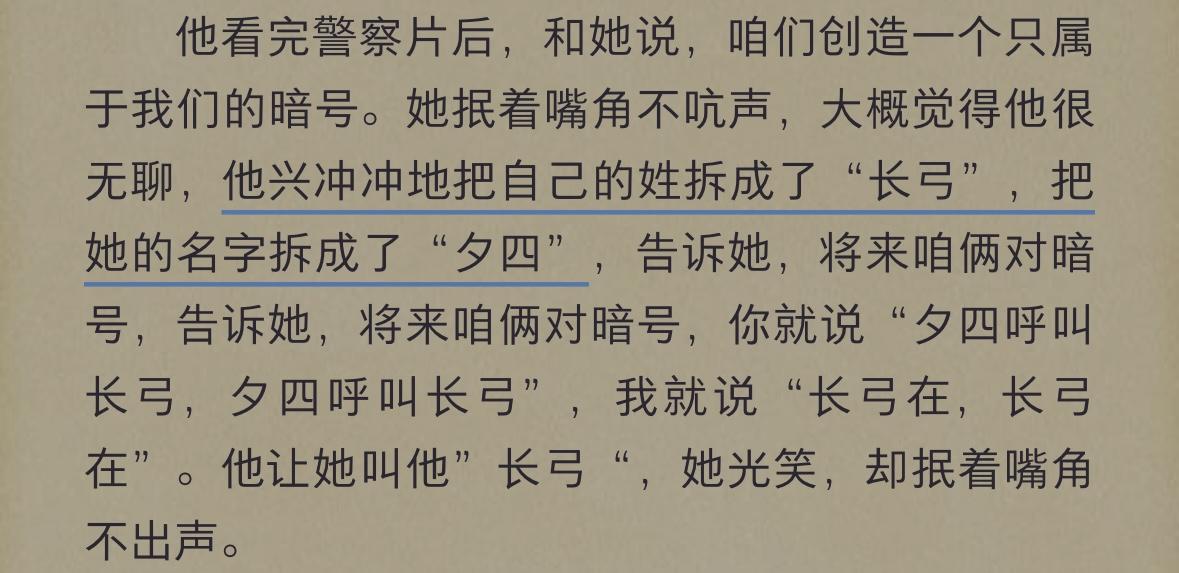
Character Deconstruction Method (from Tong Hua's Those Bygone Youthful Times)
㊀ Deconstructing the character “申柊”
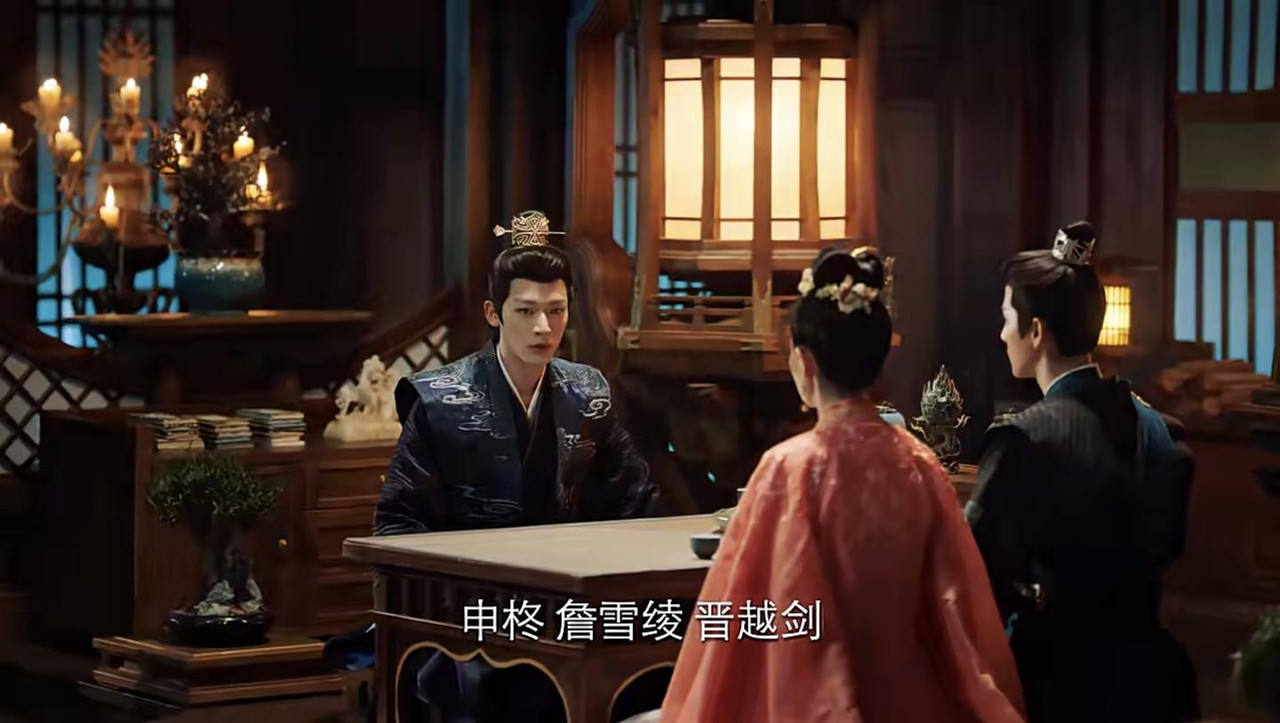 Online, some scholars have analyzed a form of character deconstruction:
Online, some scholars have analyzed a form of character deconstruction:
申 = 口 (mouth) + 十 (ten) = 叶 (leaf)
柊 = 十 (ten) + 八 (eight) + 冬 (winter, 7 strokes) = seventeen
So “申柊” is a variant of “叶十七” (Ye Shiqi) — Coincidence #1
㊁ Deconstructing the character Tushan Zhen (涂山瑱)
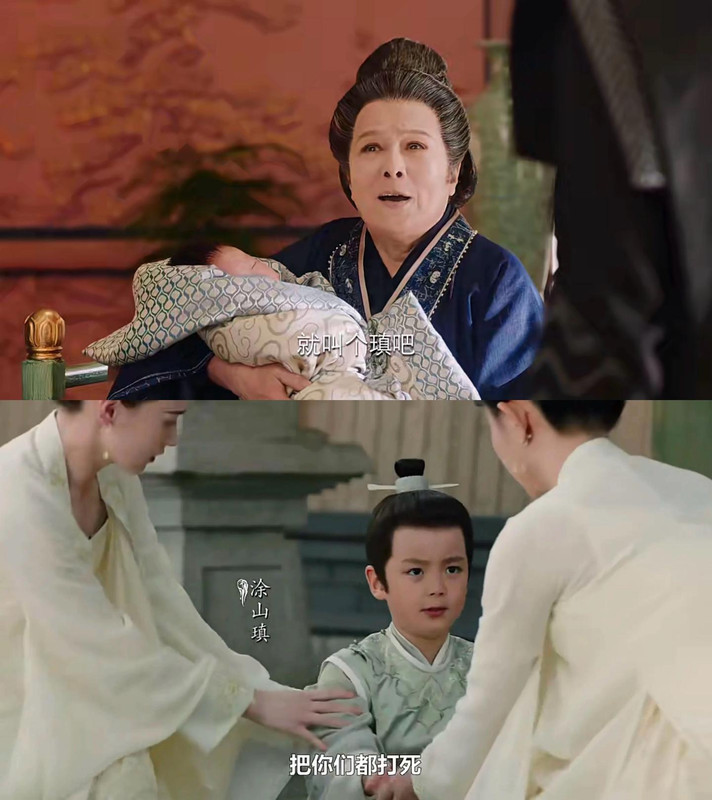
The name "Zhen (瑱)" definitely seems to carry some deeper meaning…
▽– Did Grandma know about Zhen’s background?
• This is just like whether Grandma knew it was Hou who harmed Jing… When she chose the name, she didn’t avoid the father’s name taboo at all. Jing and Zhen ended up being named like “brothers.” Think about that? (For reference only)

Even things that Yiying and Jingye could guess—could Grandma really not have known?
瑱 = 王 (king) + 真 (true) = True King
Tushan’s True King?
Then who is the false king?
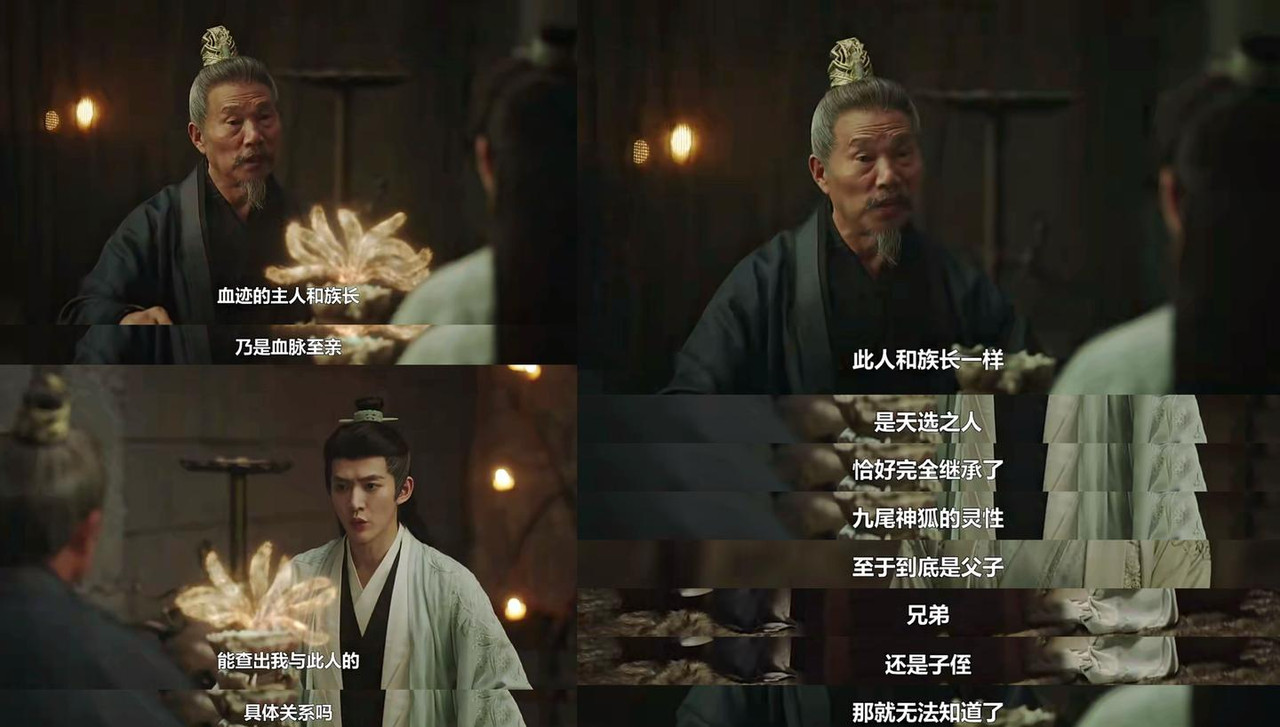
Father and son, brothers, uncles and nephews—
A blood test confirms that Jing and Zhen (Hou) are close blood relatives, so where does the idea of a “true king” and “false king” come from?
If they have the same father, does having different mothers divide the Tushan Clan into “real” and “fake”?
Aren’t they all born of the same Tushan lineage?
▽– So what exactly is the difference between the Tushan Clan’s “true king” (Hou/Zhen) and “false king” (Jing)?
1️⃣ Both father and mother are legitimate, yet there’s still the coincidence of a “false king”?
• It must be a coincidence—Jing is the real one!
• Jing is indeed real, but does that mean Jing’s child must be the false one?
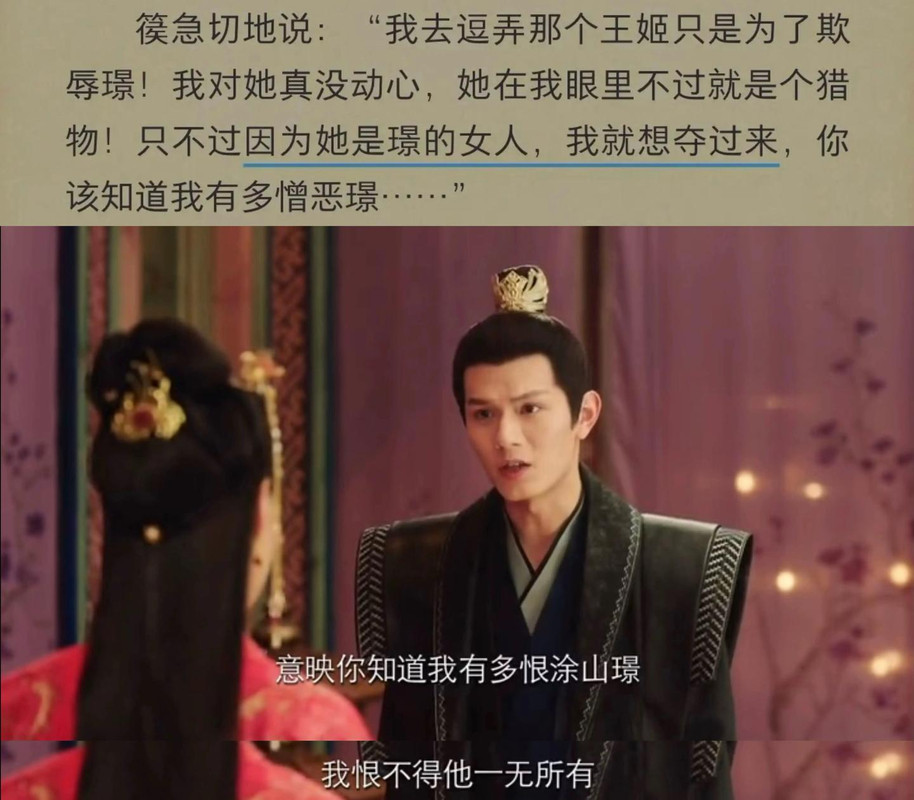
Hou left Jing with nothing.
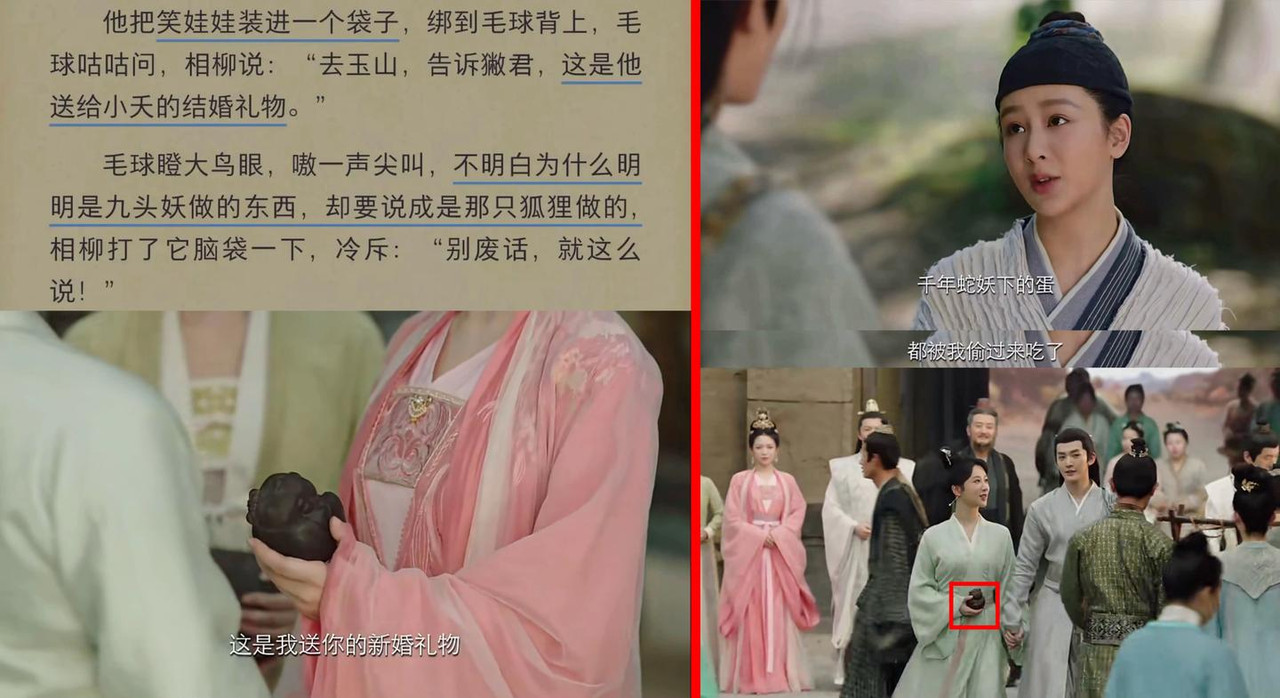
A nine-headed demon claimed to be a fox—was Xiaoyao trying to deceive everyone?!
2️⃣ Was the mother in the wrong?
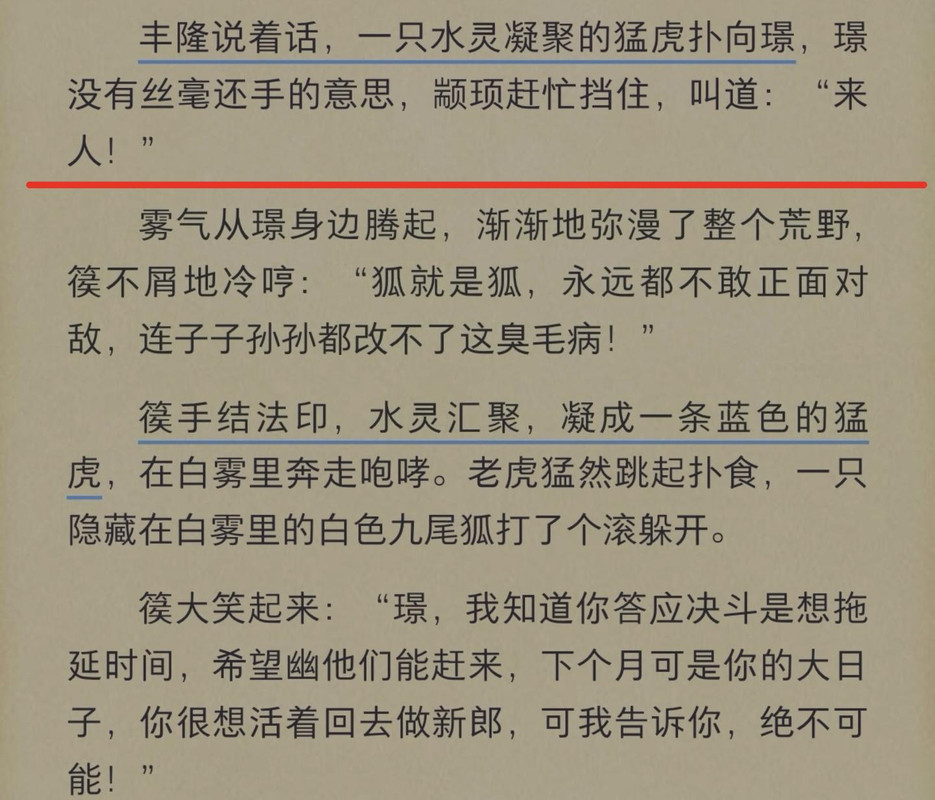
Fenglong — Water-type fierce tiger / Hou — Water-type fierce tiger
• A civet cat replacing the crown prince? (That doesn’t really make sense—would Shuyue not recognize her own child? That’s really strange…)
*– Did Shuyue know about the Divine Sense (Shishen) matter?
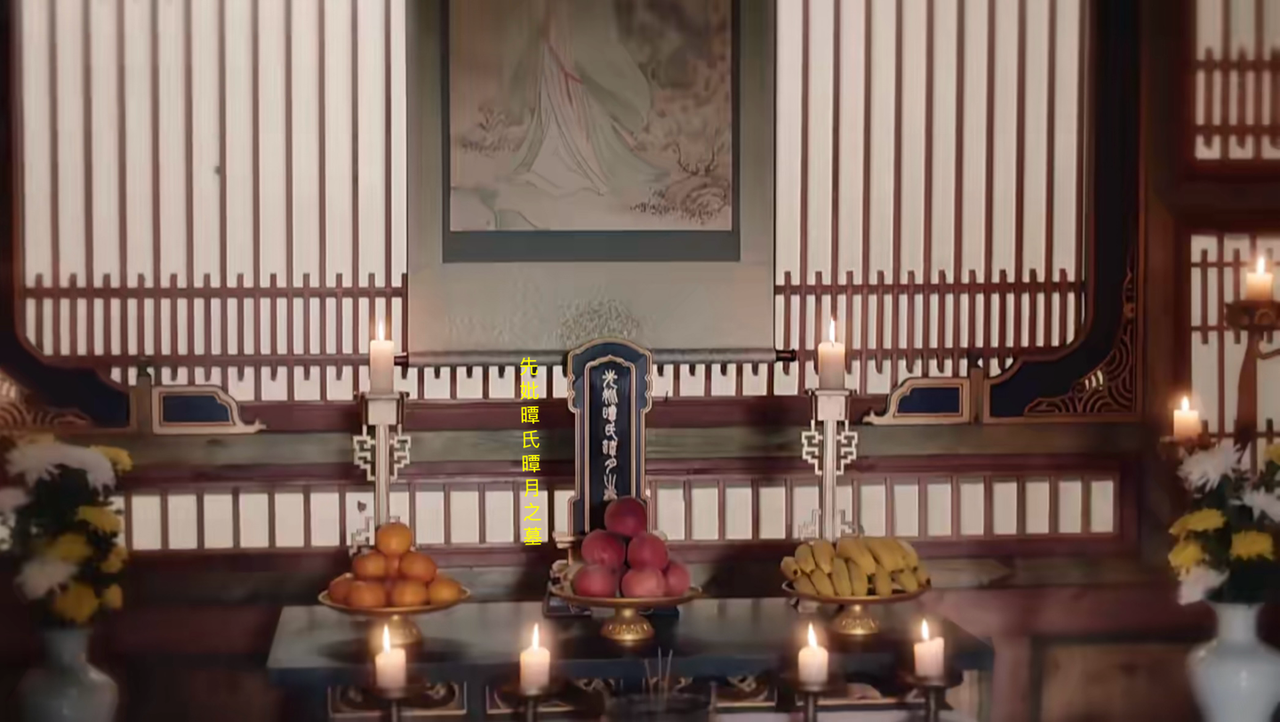
Lady Tushan Shuyue (In the Lost You Forever drama version, her name is written in seal script)
• She knew. As Lady Tushan, she would have known (even Grandma and Yiying knew). Blinded by greed and desire for power over the Tushan Clan, even if she knew, she would still try every means to make her biological son, Jing, the clan leader.
• She didn’t know…? Maybe she didn’t know the dangers of the Divine Sense, and was wholeheartedly trying to gain benefits for her son Jing? (But whether it was her husband or son being drained by the Divine Sense—it’s really hard to believe she wouldn’t have known.)
How would a mother truly choose between her biological son and an illegitimate child?!
(The blogger can’t decide either...)
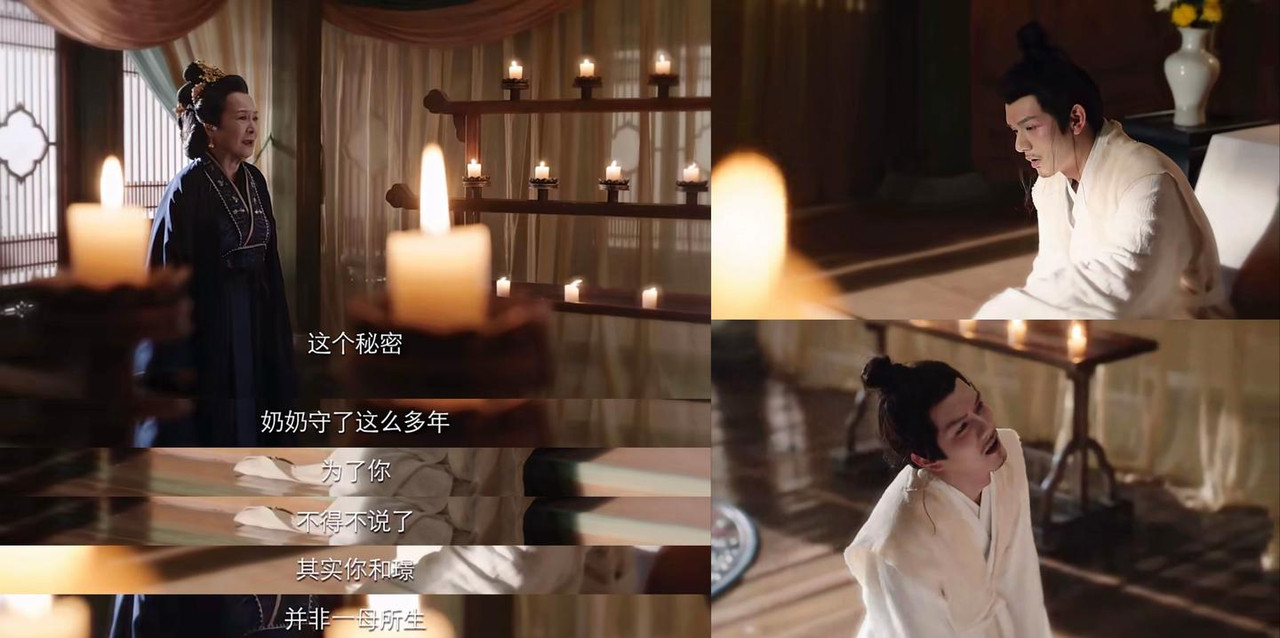
What exactly was the truth that Grandma told Hou? (About his mother and the Divine Sense?)...
Were both Grandma and Shuyue trying to prevent Hou from becoming the clan leader?
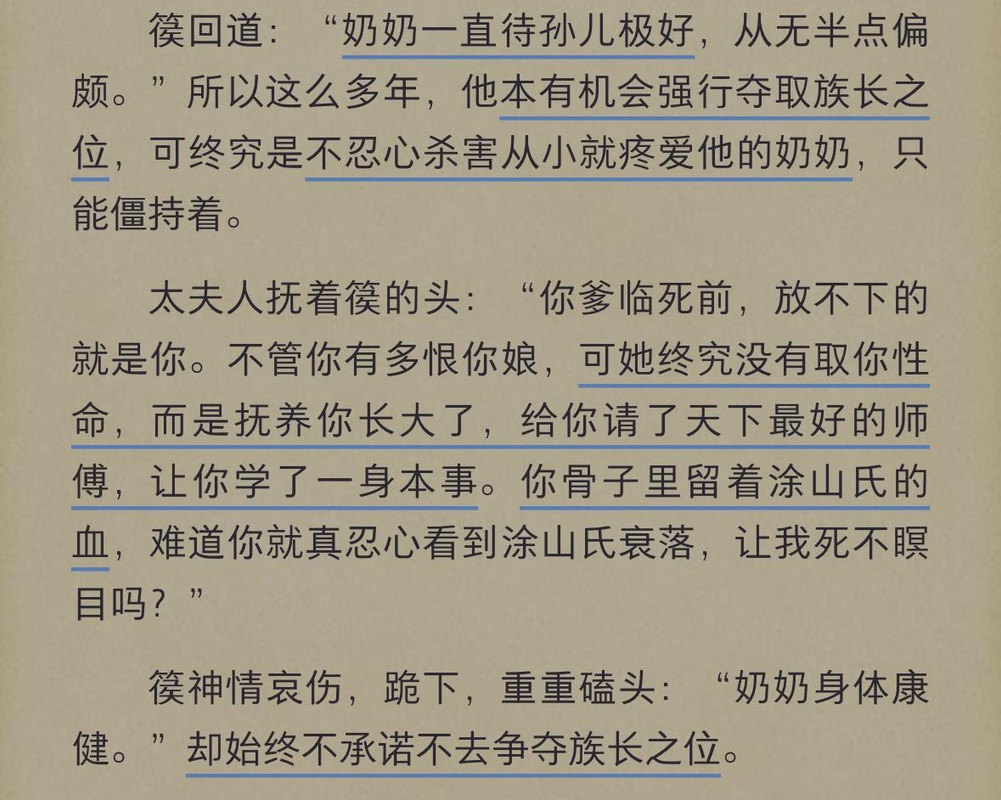
Shuyue didn’t kill Hou. She hired the best masters to train him, yet treated him with cold violence, making Hou hate her…
(So—even if he hates her, she still wanted him to survive…? Is this whole family full of self-sacrificing saints?)
3️⃣ Was the father in the wrong?
Hou and Jing are very closely related—yet do they not share the same father?
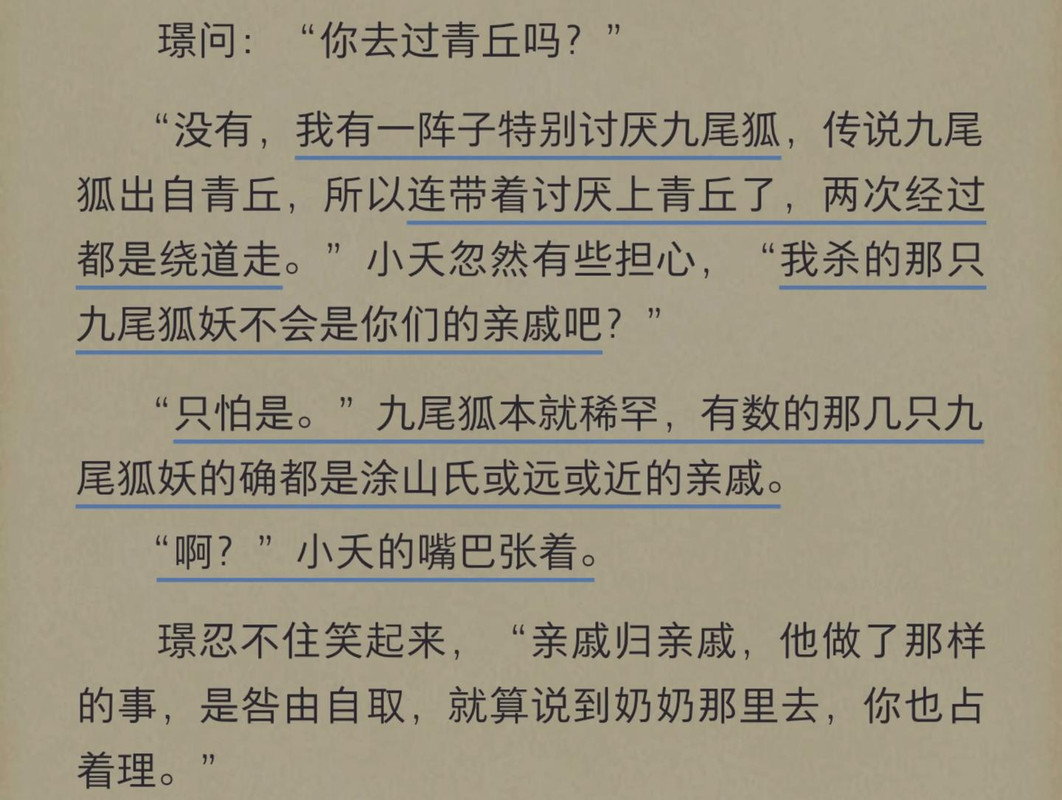
The Nine-Tailed Fox Demon of the Tushan Clan
(Was their father a nine-tailed fox demon???)
There’s currently not enough evidence to analyze this question.
…
• The former Xuanyuan King dealt with Mufei, while Cangxuan dealt with the other three.
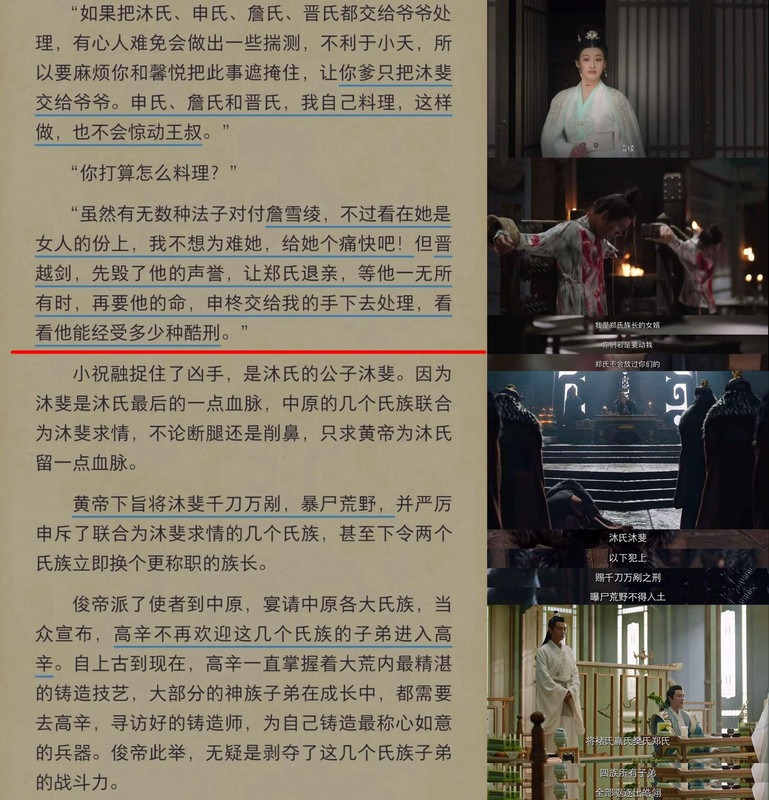
Outcome of the handling:
• In the drama version, it is clearly shown that the Fifth and Seventh Kings used others to kill on their behalf, secretly using forces from the Central Plains to kill Xiaoyao.
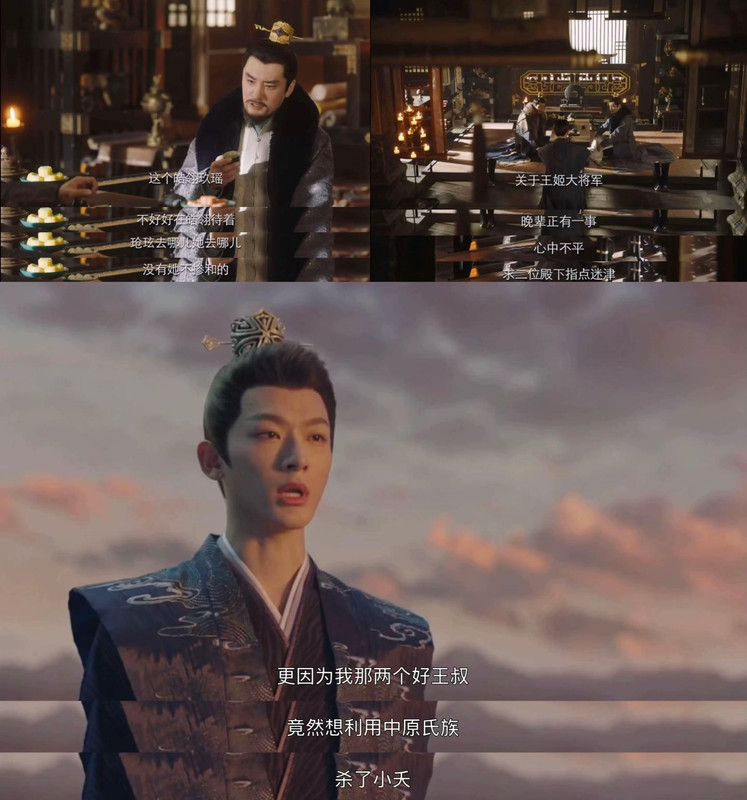
The reason the Fifth and Seventh Kings used the Central Plains to carry out the attack
2️⃣ Hidden plotline
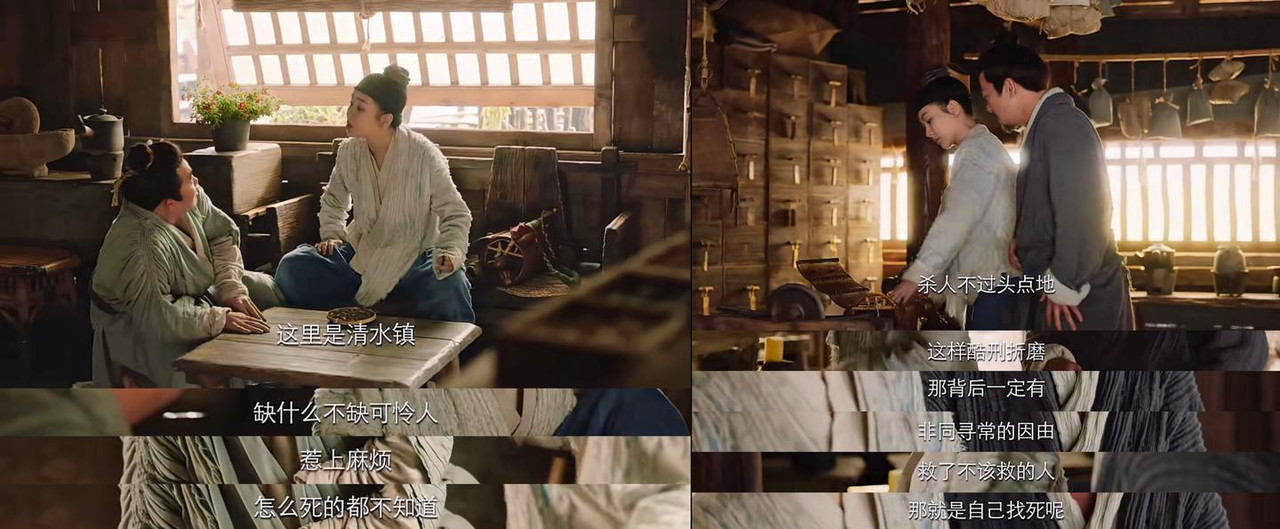
There were extraordinary reasons behind the brutal killing.
Let’s first sort out the entire sequence of events:
• The Shan Clan extended an invitation, but Xiaoyao didn’t want to go. It was Xinyue who “persuaded” her to attend.
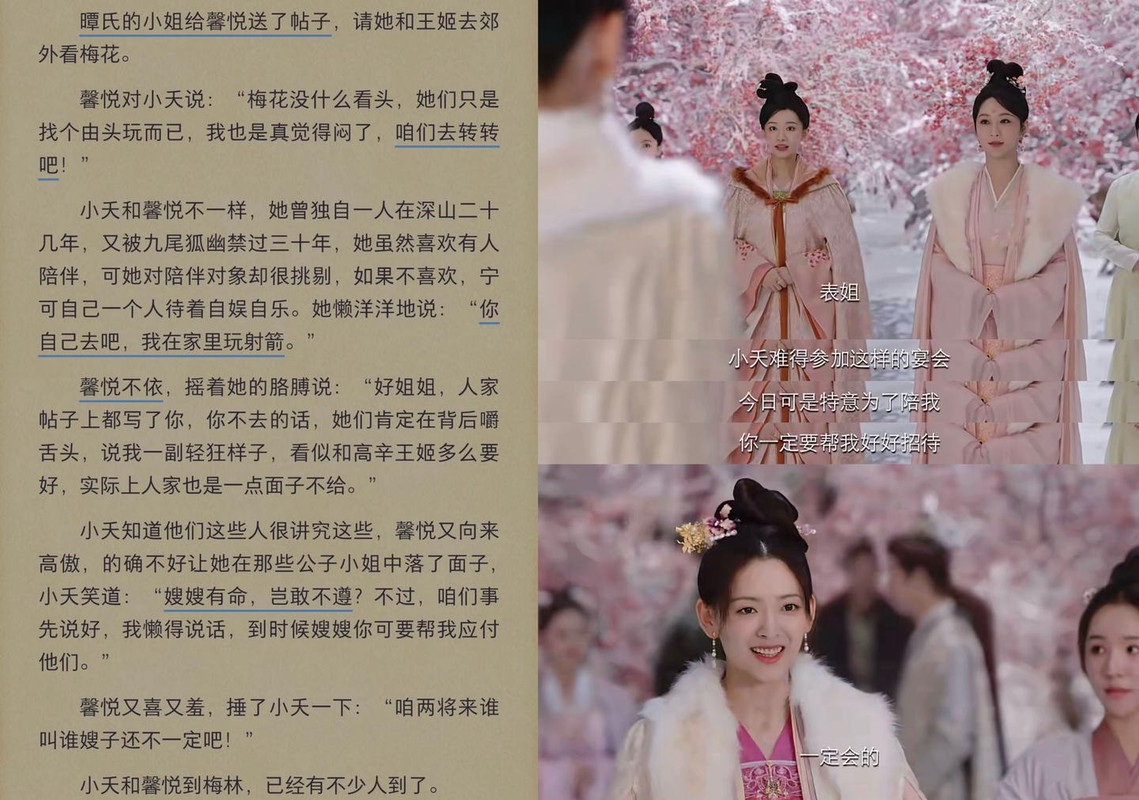
• Zhan Xueling subtly separated Xinyue and Xiaoyao without leaving a trace.
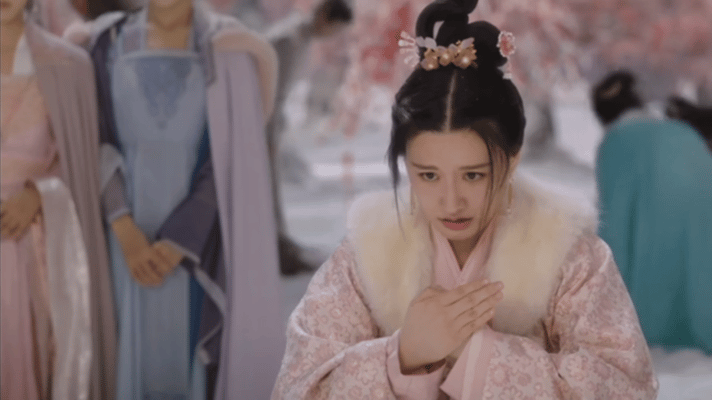
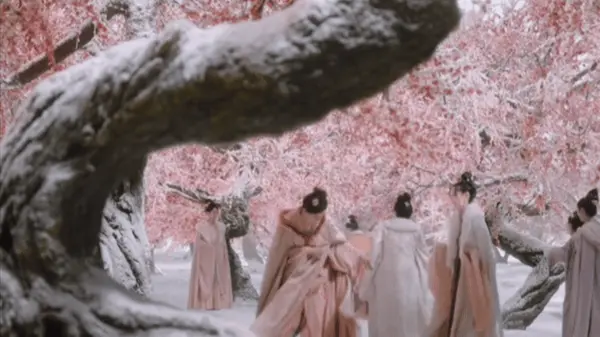
Separated Xiaoyao
• Miao Pu was blocked, and Xiaoyao entered the deadly formation.
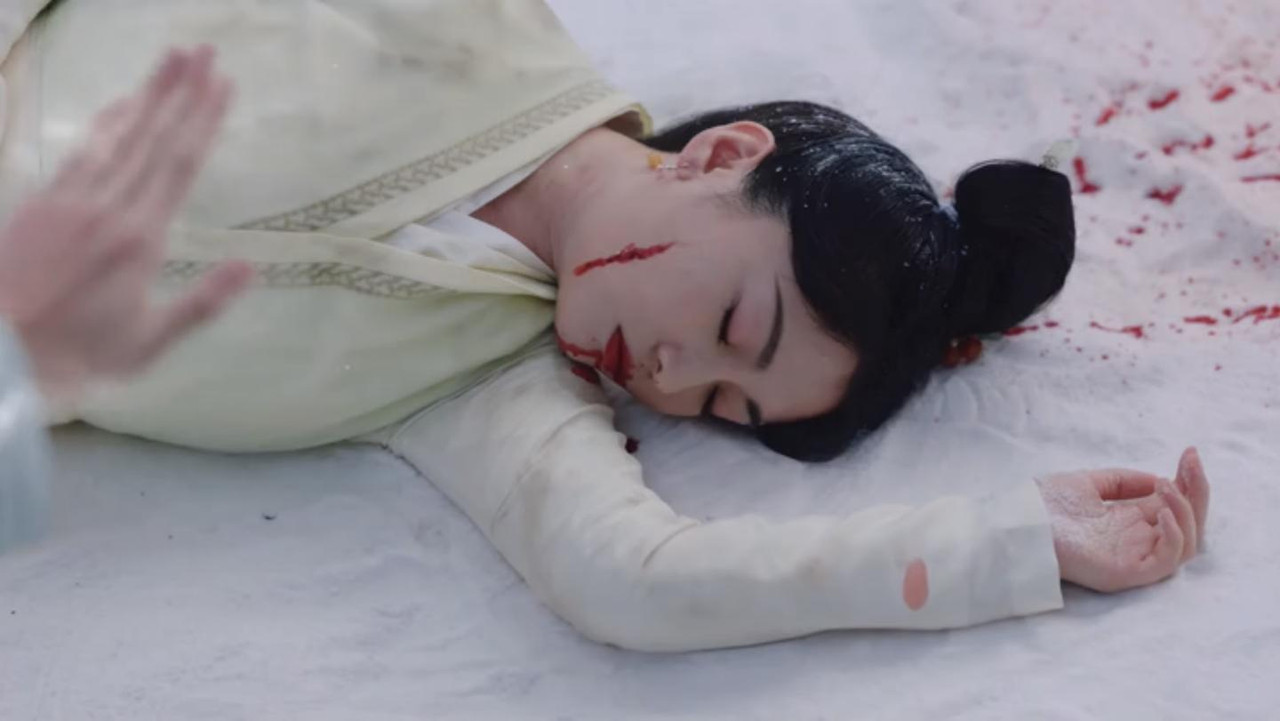 Miao Pu was injured and fell unconscious.
Miao Pu was injured and fell unconscious.
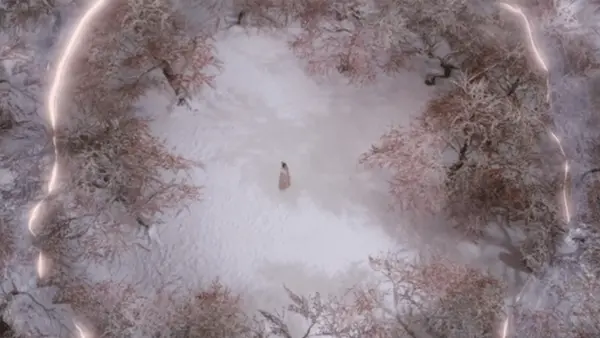
Xiaoyao entered the deadly formation
• She was first attacked by the plum tree branches, with her right sole pierced through.
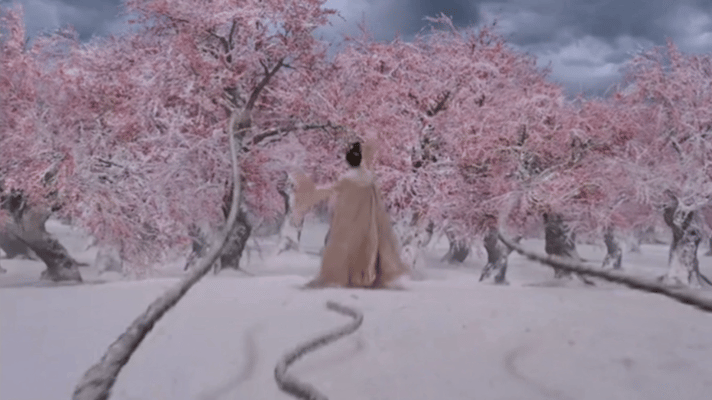
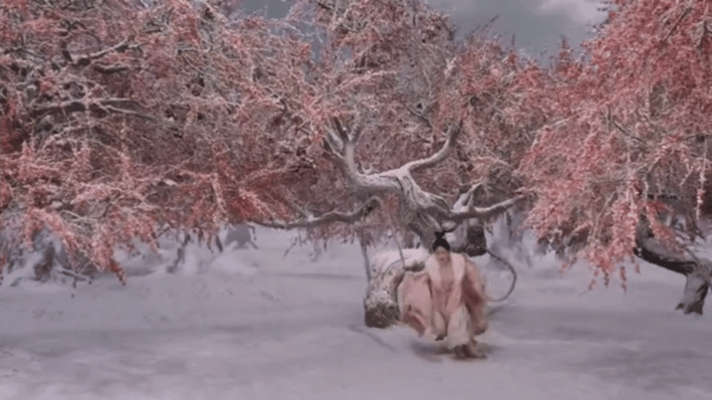 The sole of her right foot was pierced through.
The sole of her right foot was pierced through.
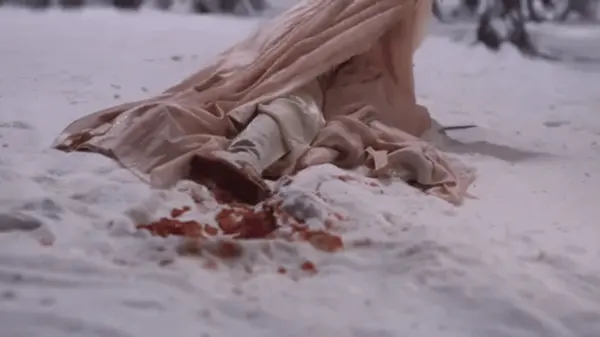 Crawling
Crawling
• Two demon beasts appeared and attacked Xiaoyao.
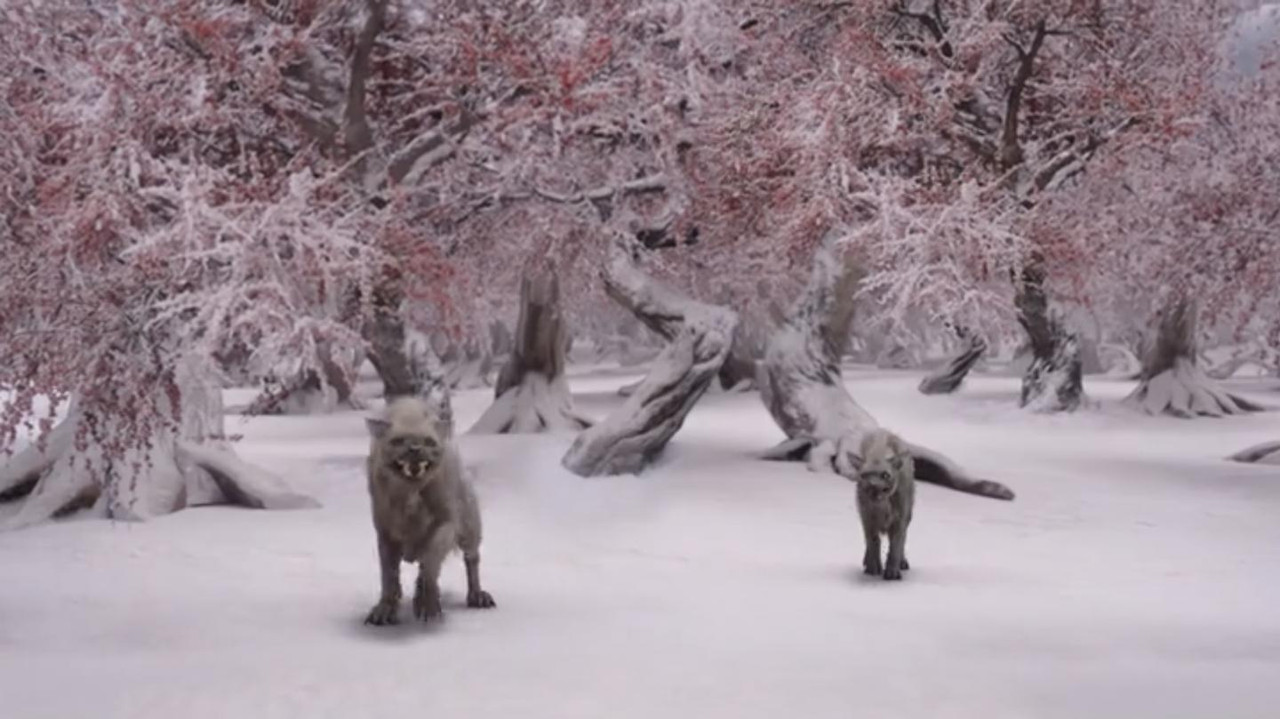
Two demon beasts
In the drama version, the fight scenes were clearly shown, with the beasts biting her left arm and right leg.
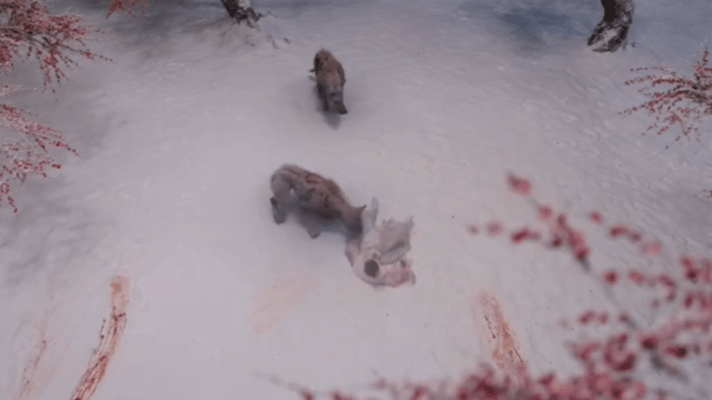
One bit her left arm.
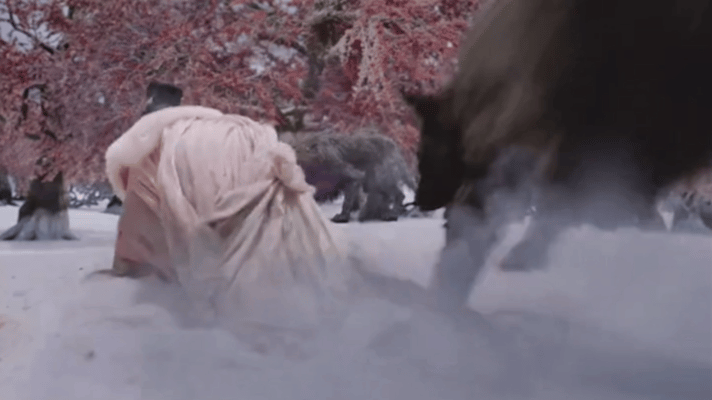 The other bit her right leg.
The other bit her right leg.
• Mufei appeared and carried out a blood sacrifice with brutal killing.
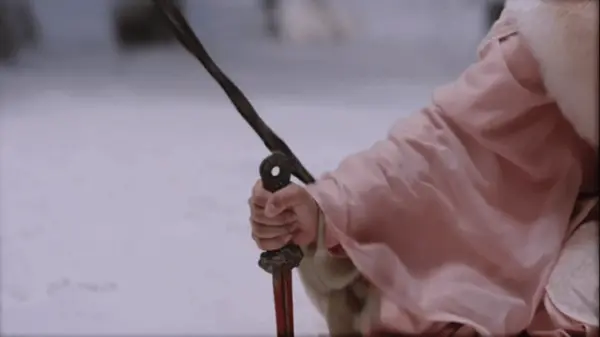
She was suspended in the air.
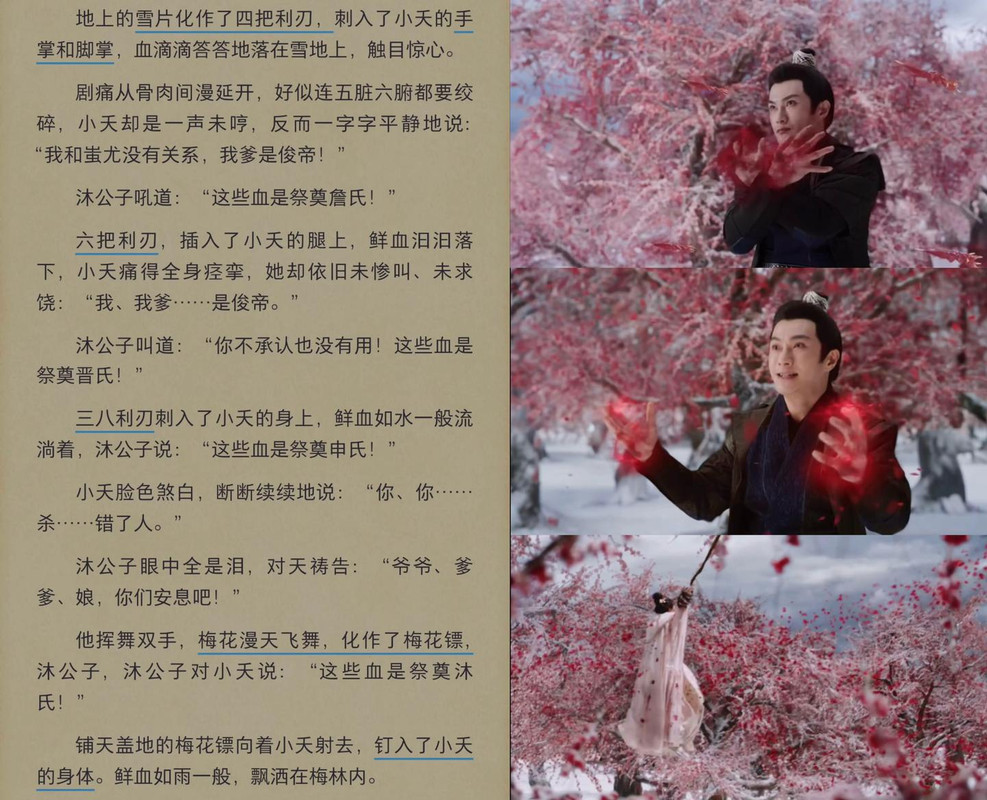 Snowflakes turned into blades (piercing her in multiple places), and plum blossoms turned into plum blossom darts (piercing through her entire body).
Snowflakes turned into blades (piercing her in multiple places), and plum blossoms turned into plum blossom darts (piercing through her entire body).
• Tushan Jing arrived, and the fire formation was activated, setting everything ablaze.
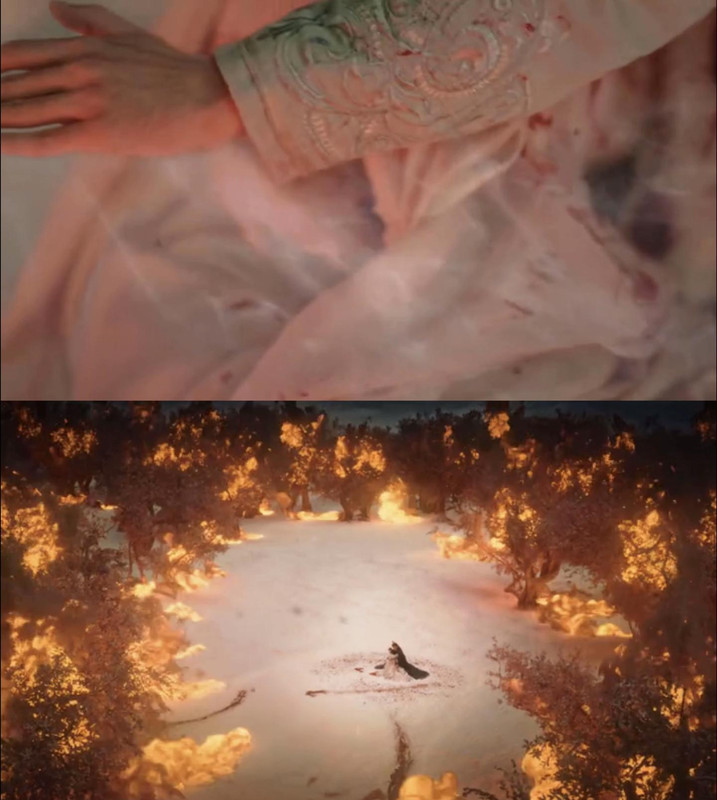 ● Discrepancies in the injury report
● Discrepancies in the injury report

The injury reports in the novel and the drama are completely consistent, with no alterations.
Anyone who has carefully read or watched the story should notice that the injuries reported by Xiaoxiao don’t fully match what actually happened.
(Is Xiaoxiao unprofessional, or did something go wrong in the process?)
㊀ The number of stab wounds caused by Mufei’s blades doesn’t add up.
According to the report, the number of blade piercings on Xiaoyao’s body is:
Palm and sole: 4
Left leg: 3
Right leg: 3
Left arm: 2
Right arm: 2
Abdomen: 3
= 17 stab wounds (Exactly 17? What’s going on? Coincidence #2)
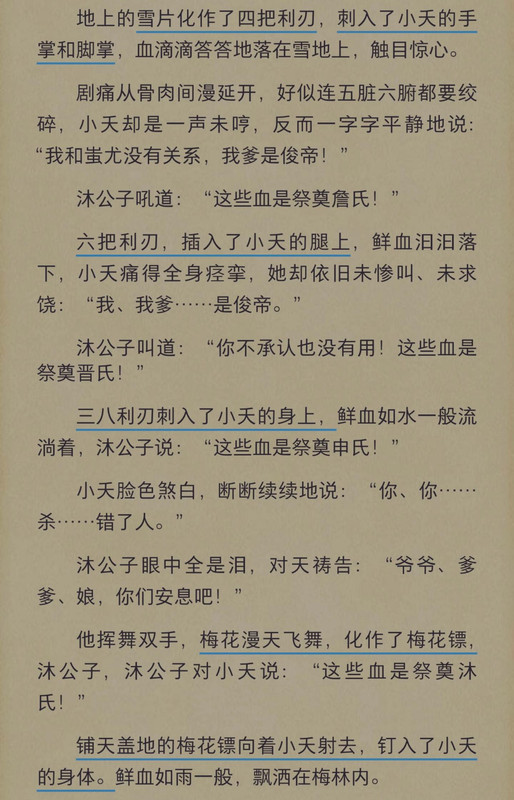
The novel version clearly stated 13 stab wounds, missing the 4 wounds on both arms.
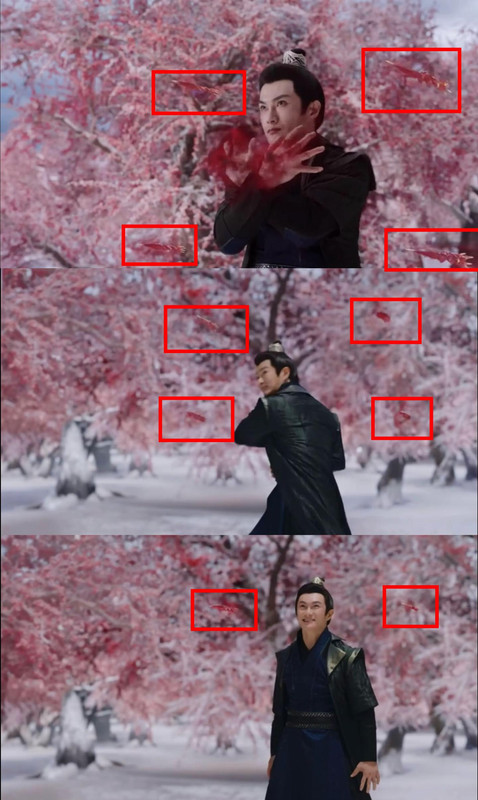
The drama version actually showed only 10 stab wounds…
With such an obvious difference in numbers, could it really not be a deliberate hint that someone secretly added extra stabs? Or were they just trying to save on the cost of a few CGI blades?
㊁ Both the novel and drama failed to report the attack by the two demon beasts on Xiaoyao.
If the reduced number of stabs was to save money (❌),
then what about the omission of the demon beasts?
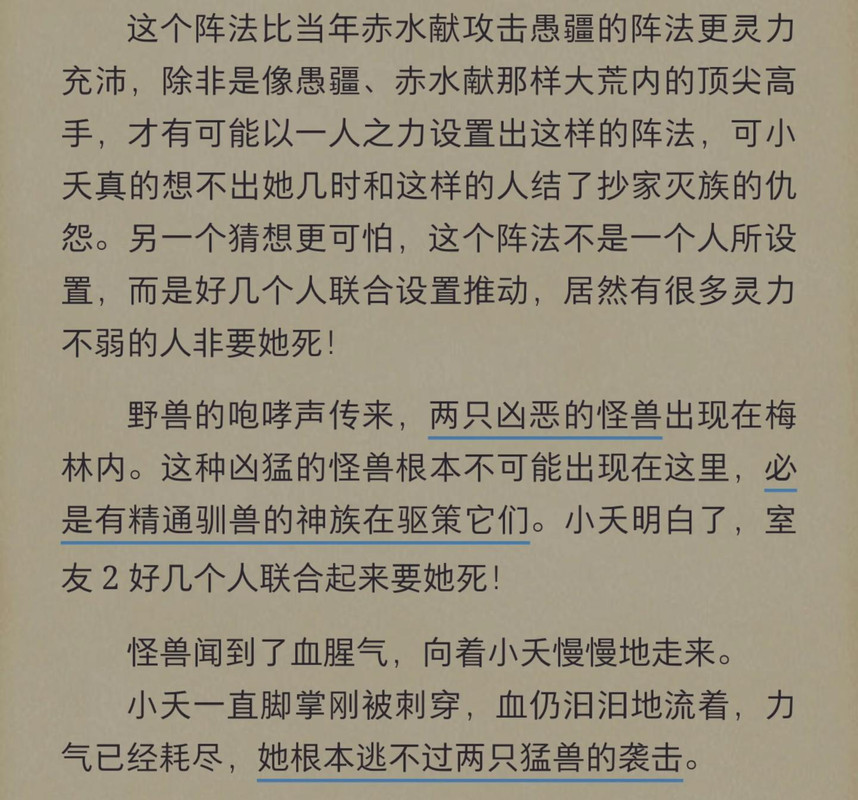
In the novel version, Xiaoyao guessed that a god clan member skilled in beast-taming must have been involved.
The drama version went even further by clearly showing bite wounds on her left arm and right leg during the fight.
Yet in Xiaoxiao’s report, only the following were identified:
— Fire spirit (fire formation)
— Wood spirit (attacking plum tree branches and plum blossom darts)
— Water spirit (snow turned into blades).
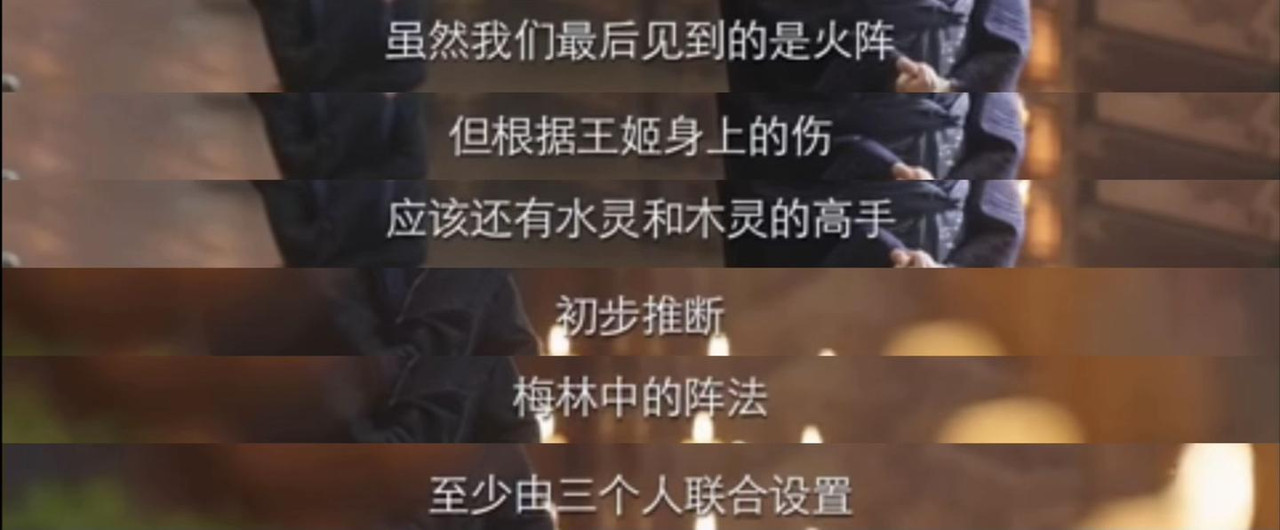 The fire formation burned away most traces, so only the wounds on Xiaoyao's body could be examined.
The fire formation burned away most traces, so only the wounds on Xiaoyao's body could be examined.
Xiaoxiao didn’t identify any involvement of beast tamers—was it because the evidence of the demon beasts’ attacks was missing?
(Who erased the traces of the beast attacks from Xiaoyao’s body? And when did that happen?)
▽– Why does the injury report not match what was actually shown?
1️⃣ Xiaoxiao’s report was inaccurate — did Xiaoxiao (or Cangxuan) deliberately hide the full extent of the injuries?
2️⃣ Xiaoxiao’s report was correct — but someone, behind the scenes, not only secretly added stab wounds, but also erased the bite marks left by the demon beasts on Xiaoyao’s body?
• Someone else added extra stabs?
• Mufei added the extra stabs?
Maybe Mufei was bad at math — after launching the plum blossom darts, he broke down crying, thinking he had successfully completed the blood sacrifice ritual.
Then suddenly remembered the blade count hadn’t reached 17, so he gave Xiaoyao 4 more stabs...?
(Mufei might’ve been careless and messed up the steps, but don’t worry — not a single stab will be missed! He made sure to “top it off”!)
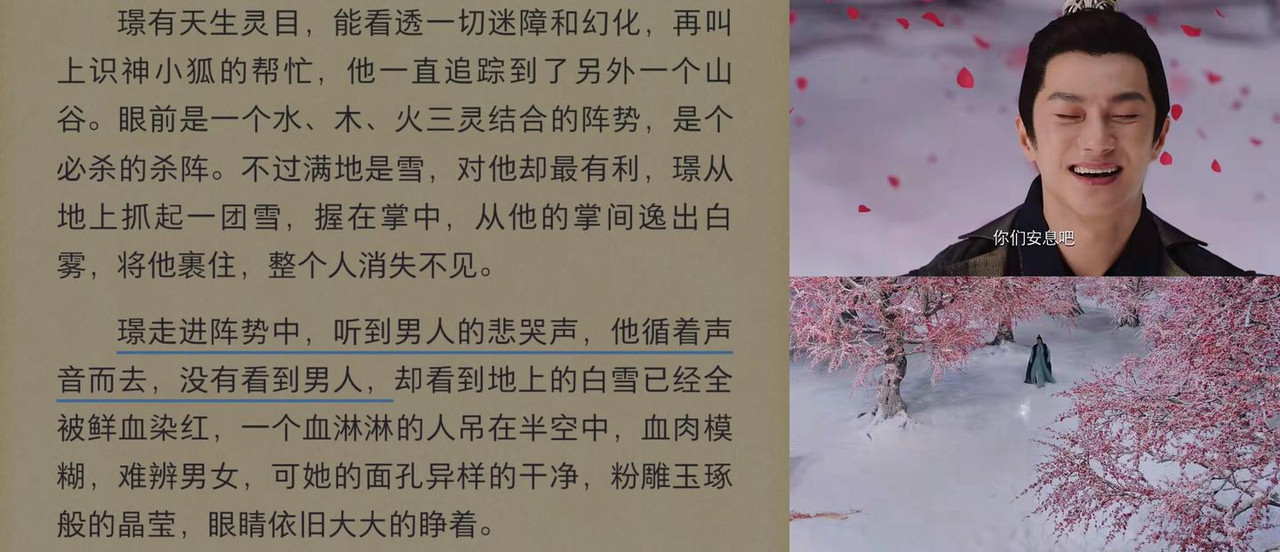 If Mufei wanted to add extra stabs, he had to hurry—Jing had already heard a man crying and was nearby!
If Mufei wanted to add extra stabs, he had to hurry—Jing had already heard a man crying and was nearby!
4 stabs by the Zhan Clan, 6 by the Jin Clan, 3 by the Shen Clan, and countless plum blossom darts by the Mu Clan—this was explained very clearly.
So who exactly did Mufei suddenly realize hadn’t stabbed enough to “meet quota” and needed to be topped off?
(Since there's no written explanation or evidence that Mufei delivered the extra blows, the blogger can only suspect... maybe he was just bad at math…)
• Did Tushan Jing deliver the final stabs?
(Tong Hua, why won’t you just give us an exact blade count?! Jing is clearly innocent, and yet the blogger can’t help but suspect him?! Infuriating!!!)
Tushan Jing arrived at Meilin, lowered the suspended Xiaoyao, and channeled spiritual energy into her.
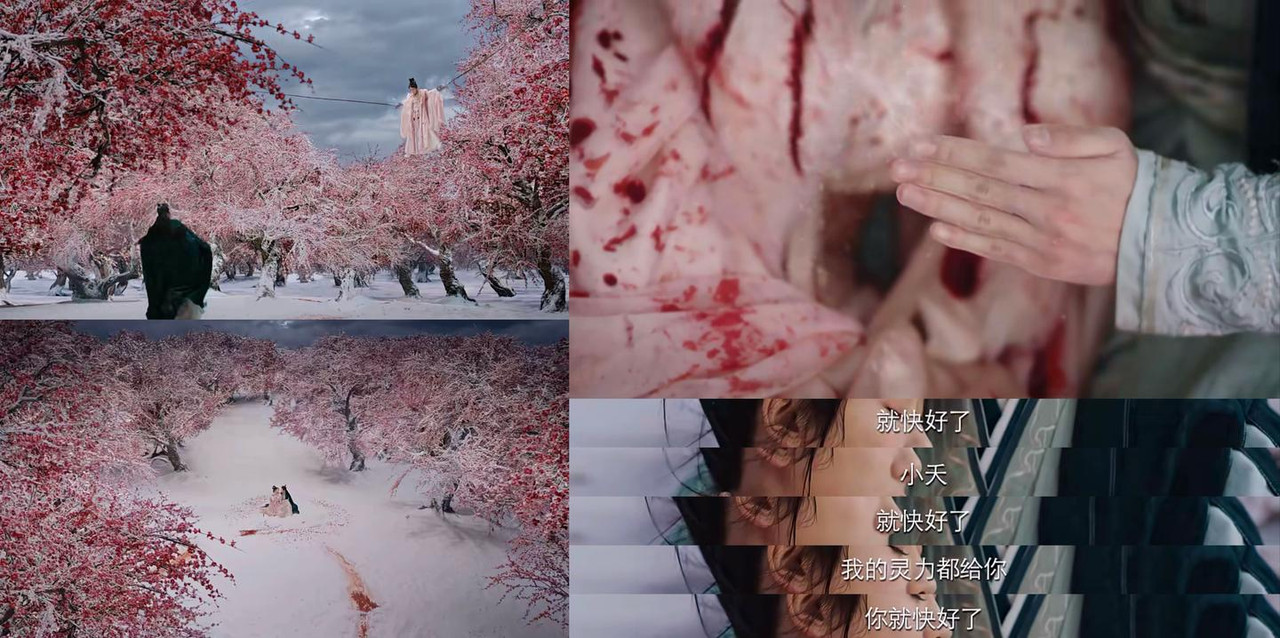
After the spiritual energy “treatment,” the result was…?
A certain blood sacrifice pattern appeared on the ground…?
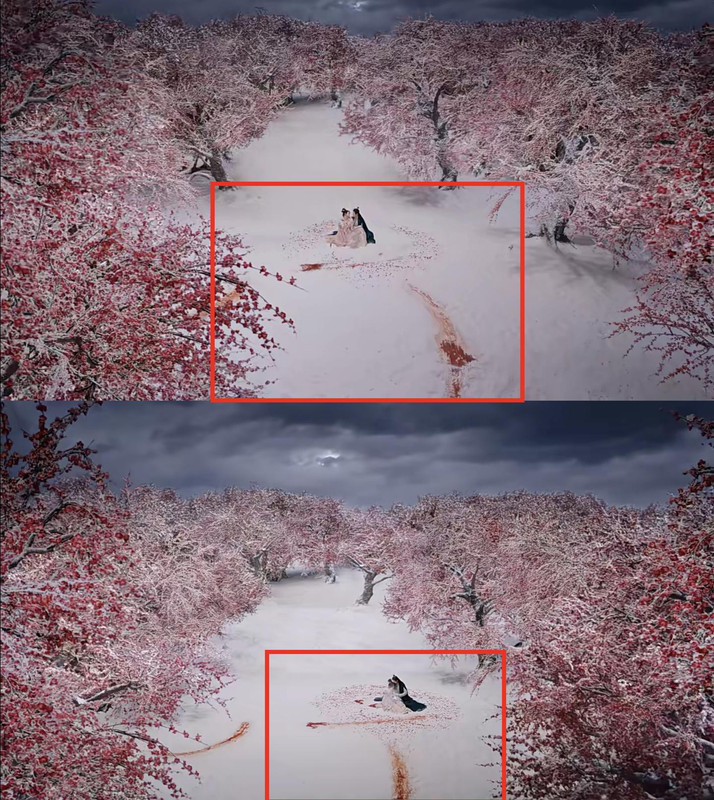
The bloodstains on the ground became strange…
An extra long blood trail appeared — very obvious, deliberate, and complete (according to netizens).
[Why…]
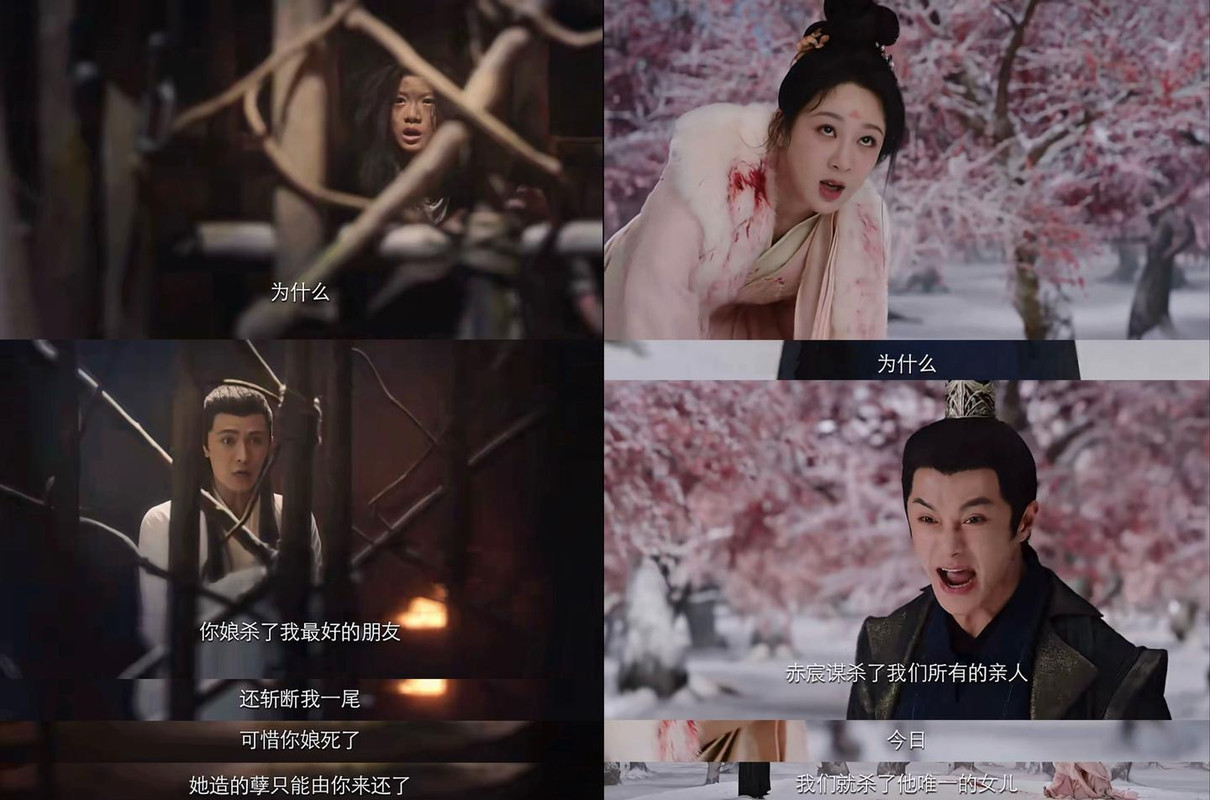
Because of the sins committed by your closest kin, you are the one paying for them…
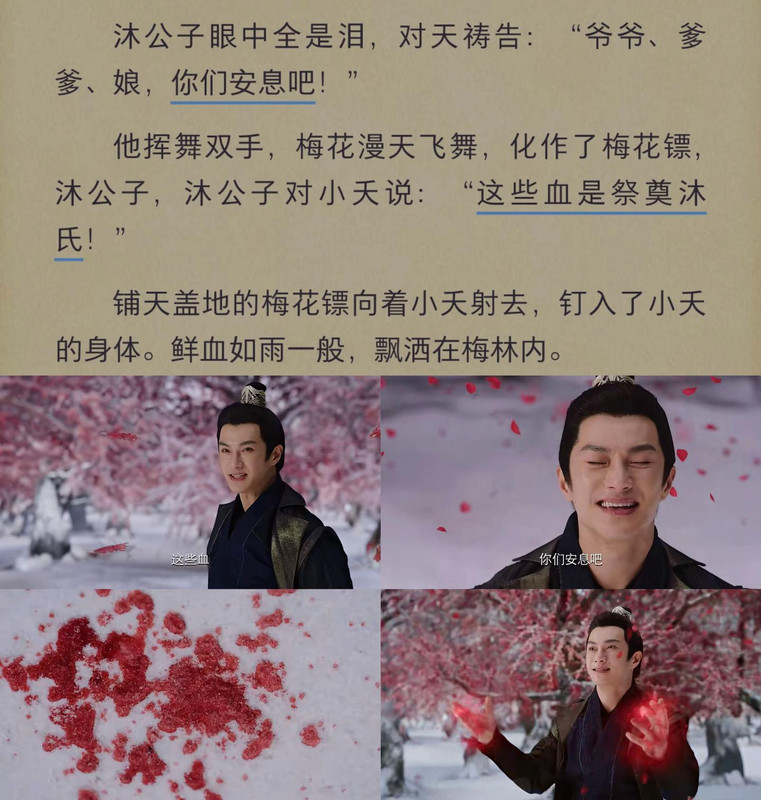
This blood is a sacrifice in honor of the Mu Clan.
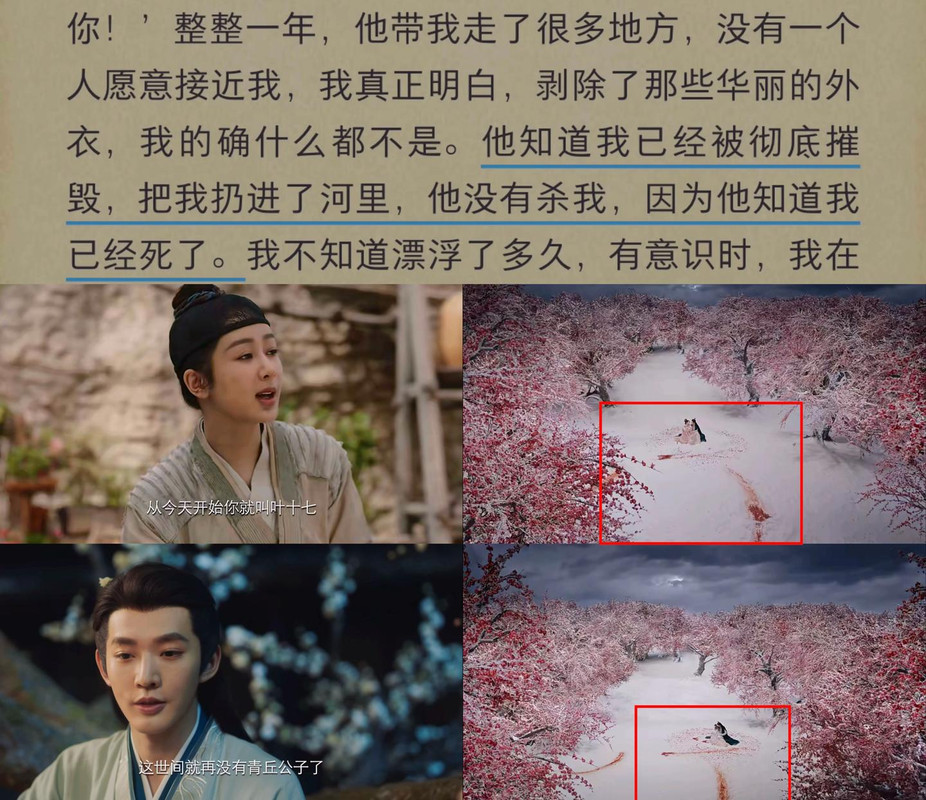
This blood (these 4 stab wounds) is a sacrifice to the Tushan Clan, to Tushan Jing.
It could even be said that Tushan Jing “saved” Xiaoyao — preserving her whole body.
He let Mufei complete the blood sacrifice, but didn’t let him dismember Xiaoyao or grind her into minced meat...
Otherwise, not even the gods could have saved her.

Did you see that?
Who was the one protecting Xiaoyao’s intact body?
It was Jing!

Want to die? If she had been chopped into minced meat, then there really would’ve been no hope of survival…
[In the Meilin brutal killing, the only one who truly died… was the serpent demon who protected Xiaoyao.]
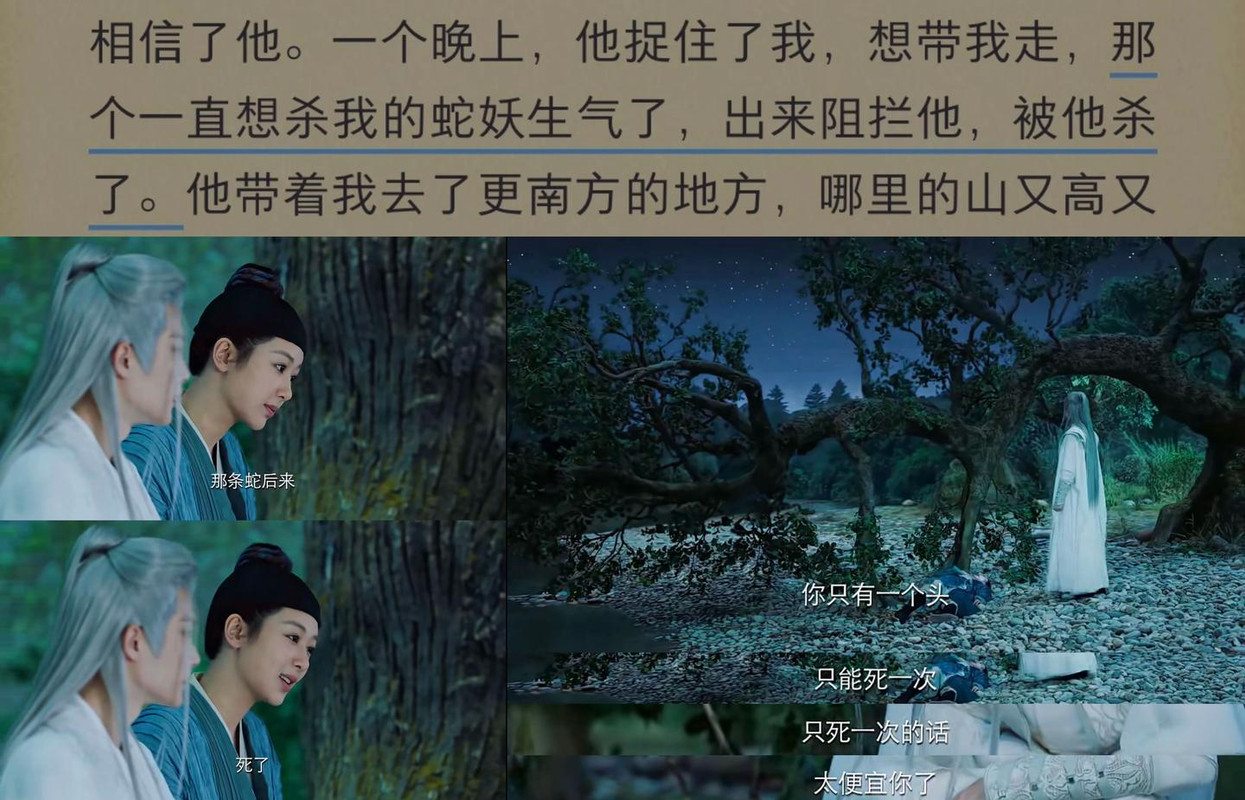
If Xiaoyao’s little serpent demon had only one head, being killed once by the nine-tailed fox demon would be the end...
But Xiaoyao’s nine-headed serpent demon has nine heads—
Even if the nine-tailed fox demon kills one, there are still more.
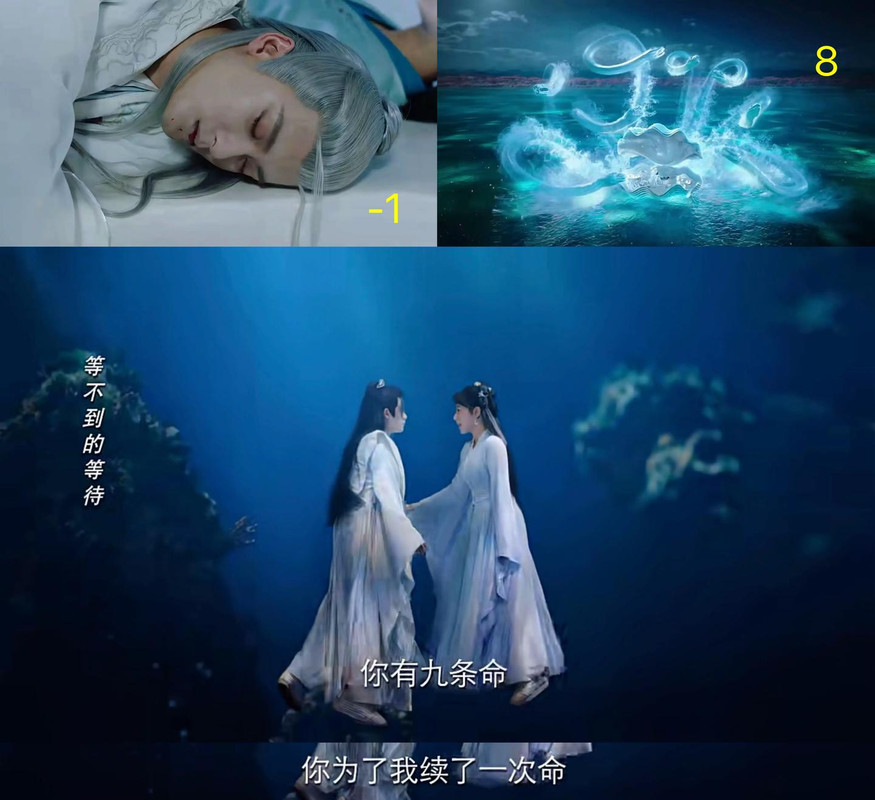
To die alone and quietly.
Jing: From this moment on, I am willing to be your Ye Shiqi.
▽– How many people actually knew about Fenglong’s promise to “keep it secret”?
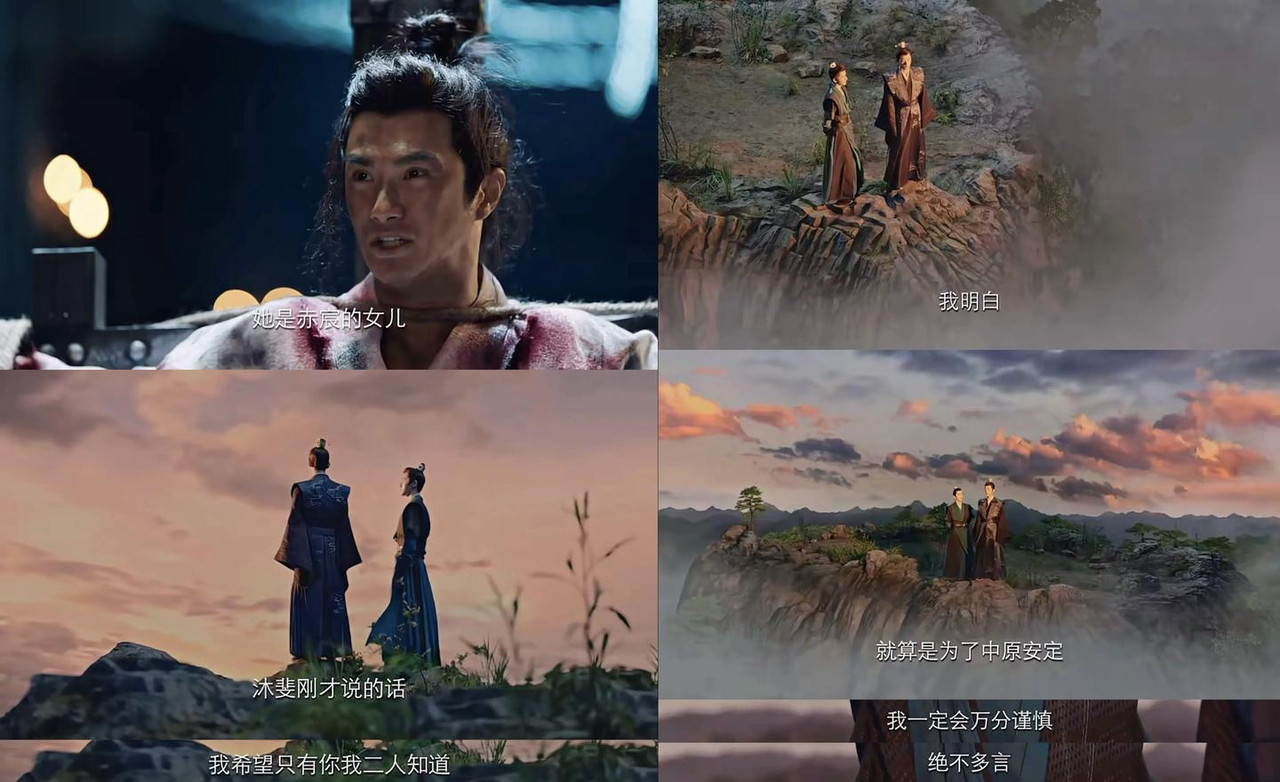
Heaven knows, earth knows—only the two of you know?
• So just how many people actually knew in the end...?
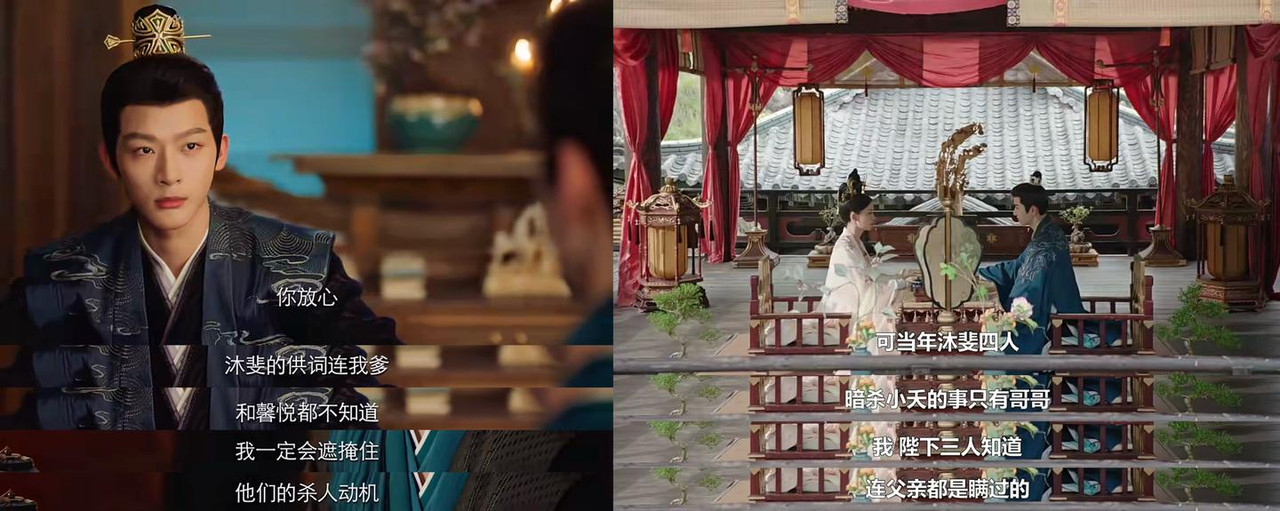
"How come three people know? Is there anyone else?"
[What is called reckoning]
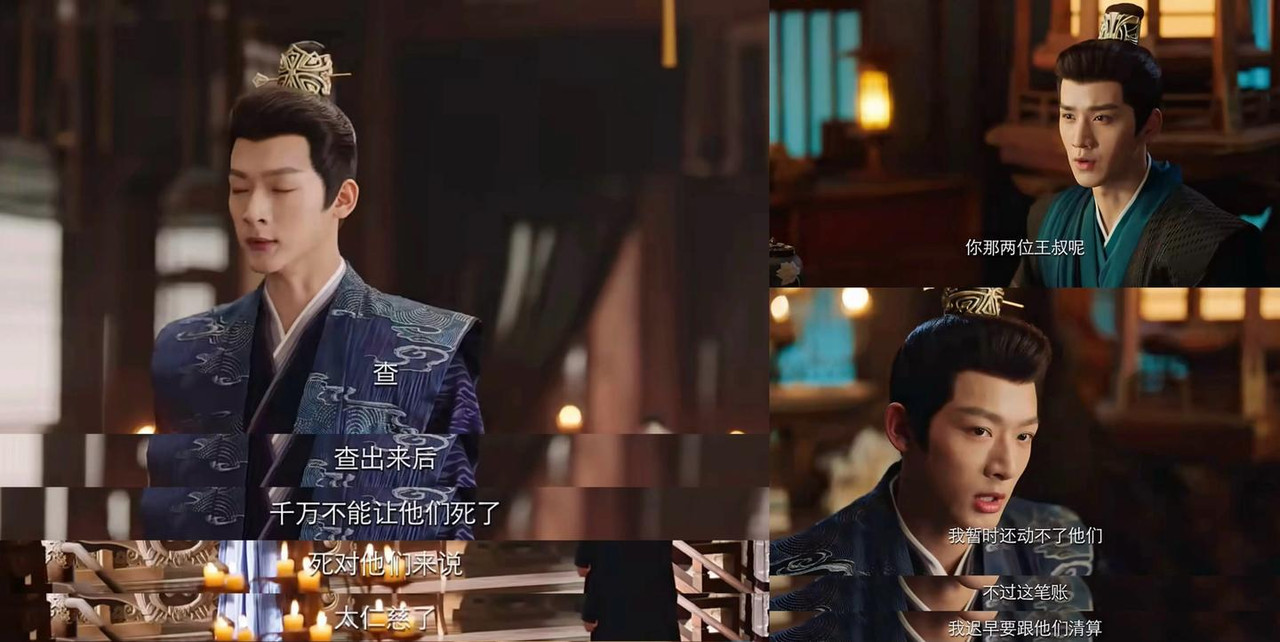
Sooner or later, there will be a reckoning.
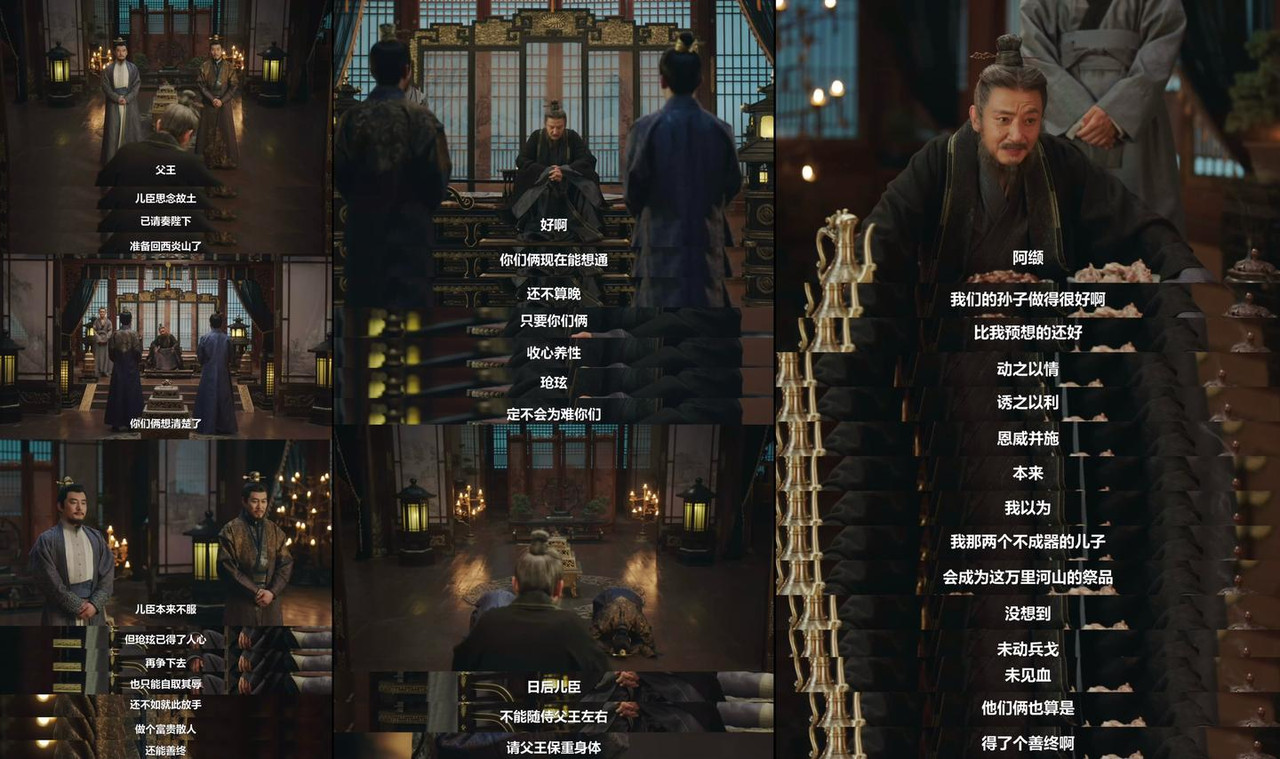
False reckoning: a peaceful end
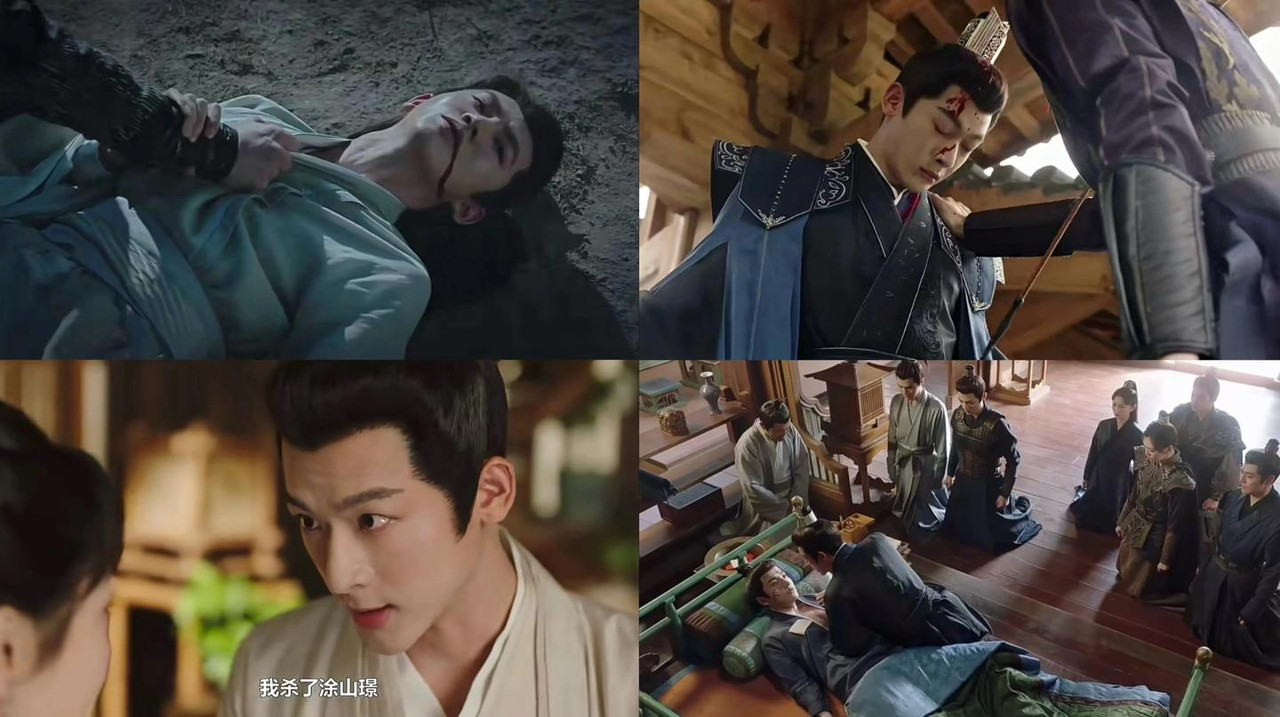
True reckoning: a miserable death
● Suspicious points about the hidden culprit
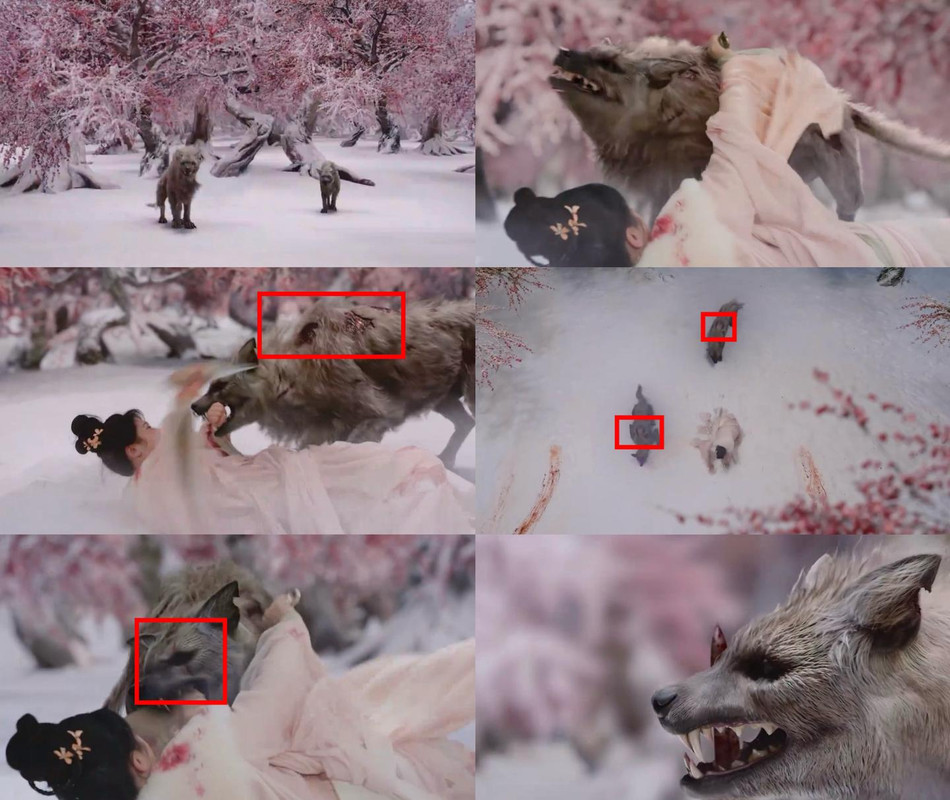
These two spirit beasts appeared already covered in wounds. For them to be pierced in close combat by Xiao Yao, whose spiritual power is so weak, is really something... (Just how weak were they?)
Regarding the missing spirit beasts, after sorting through the book and the drama, two possible suspects who may have commanded the beasts to attack were found.
The book mentions twice that Hou likes to raise spirit beasts, and that Hou sided with the Fifth and Seventh Kings.
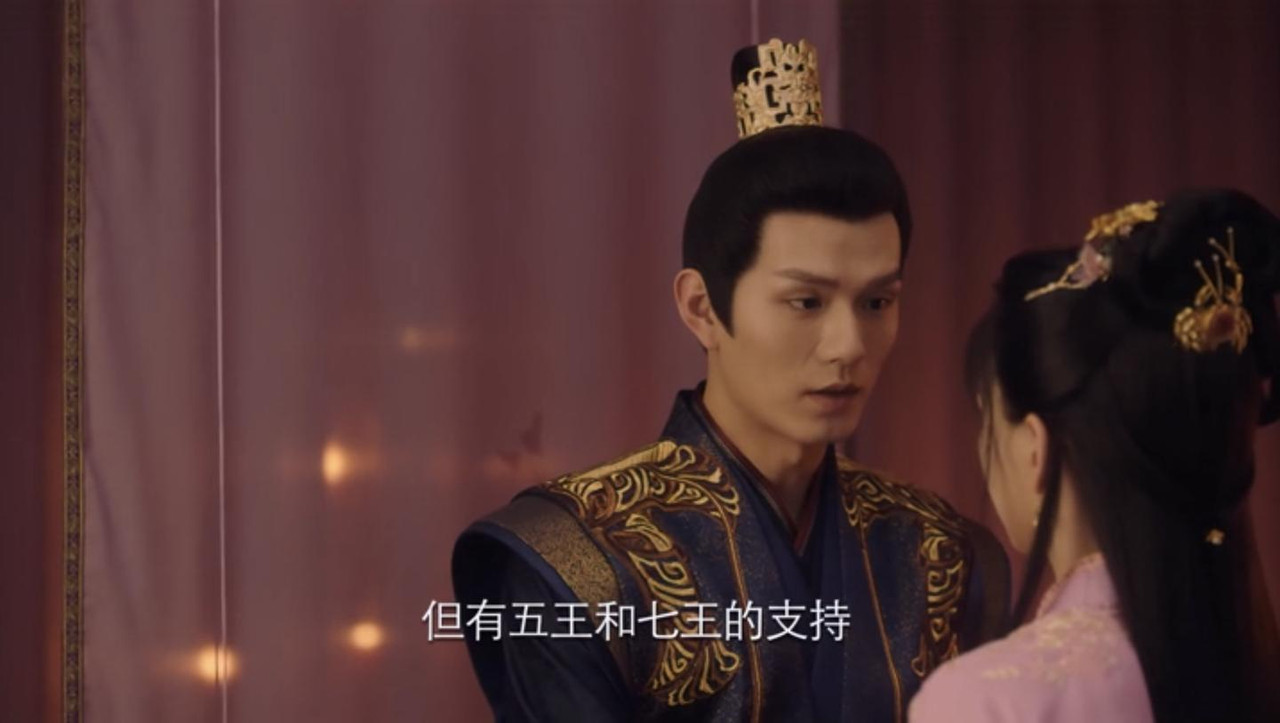
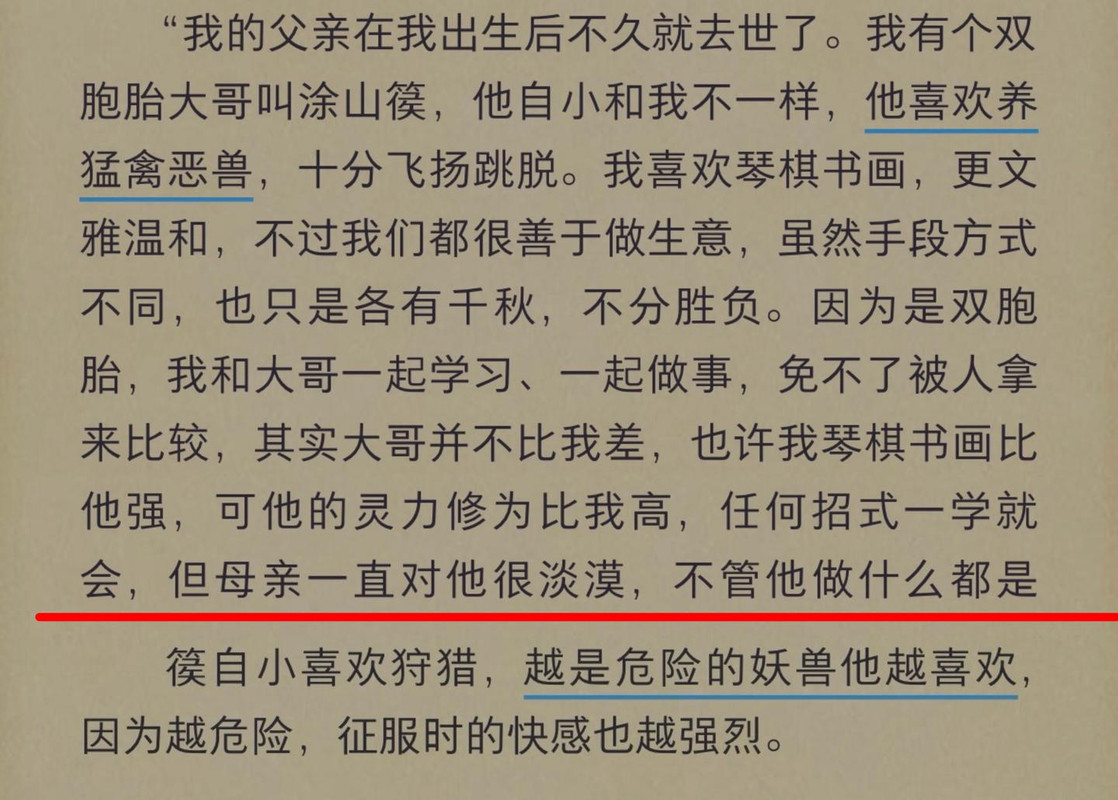
Hou likes raising spirit beasts (the stronger, the more he likes them).
The spirit beasts in the deadly arena of Li Rong—funded by Tu Shan Jing—fight for human entertainment, so it's only natural that they could also be trained to attack people.
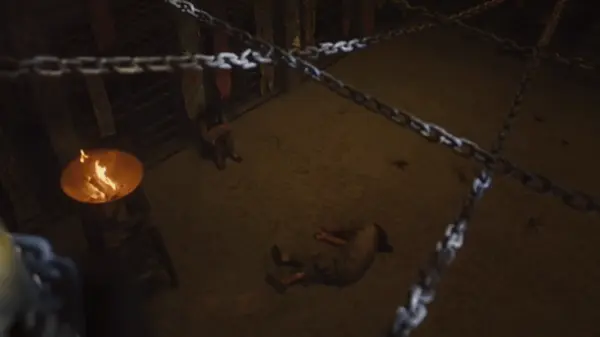
[After Merlin]
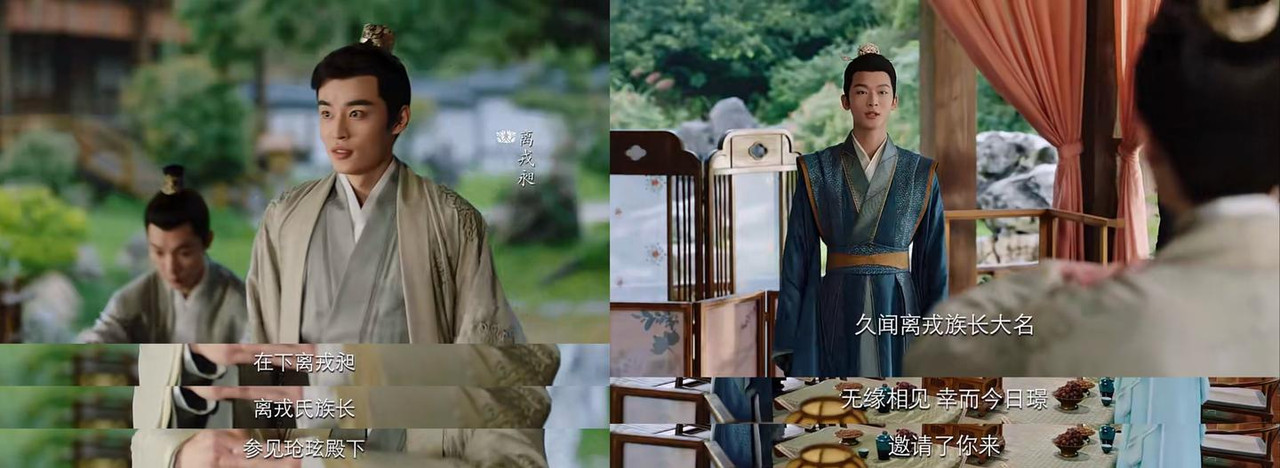
Recommended by Jing
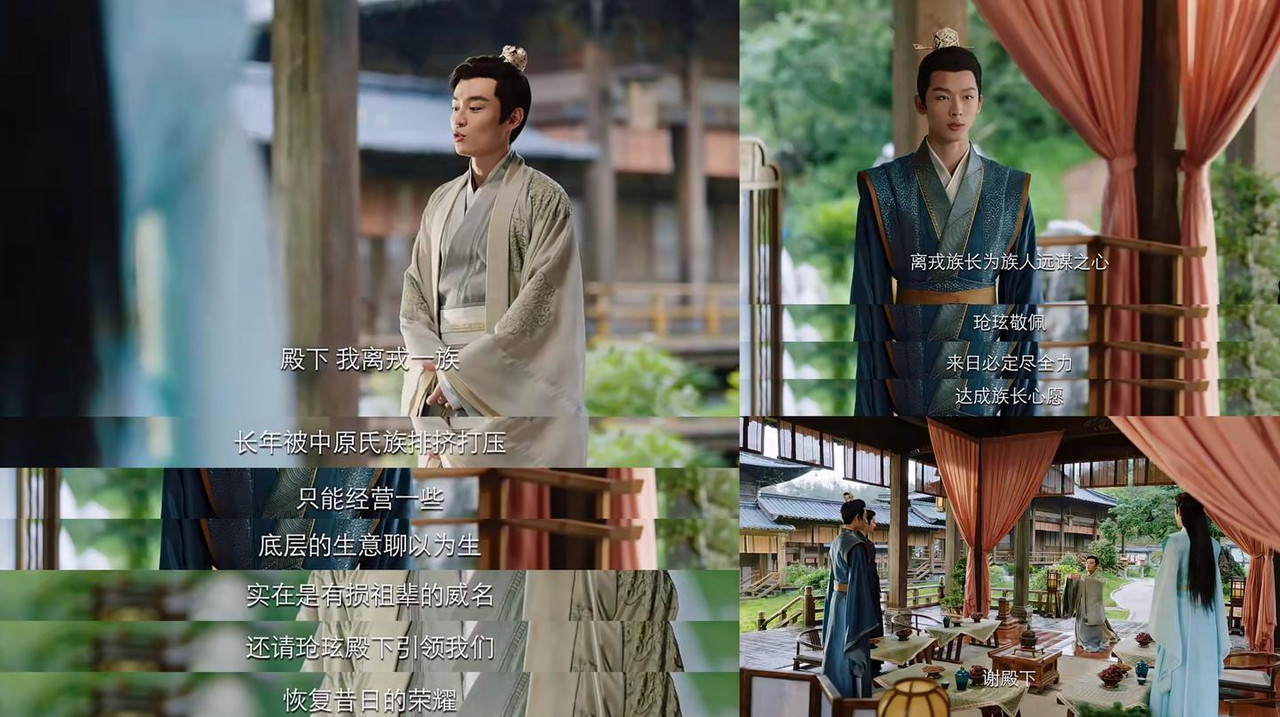
Doing everything possible for the development of the Li Rong clan
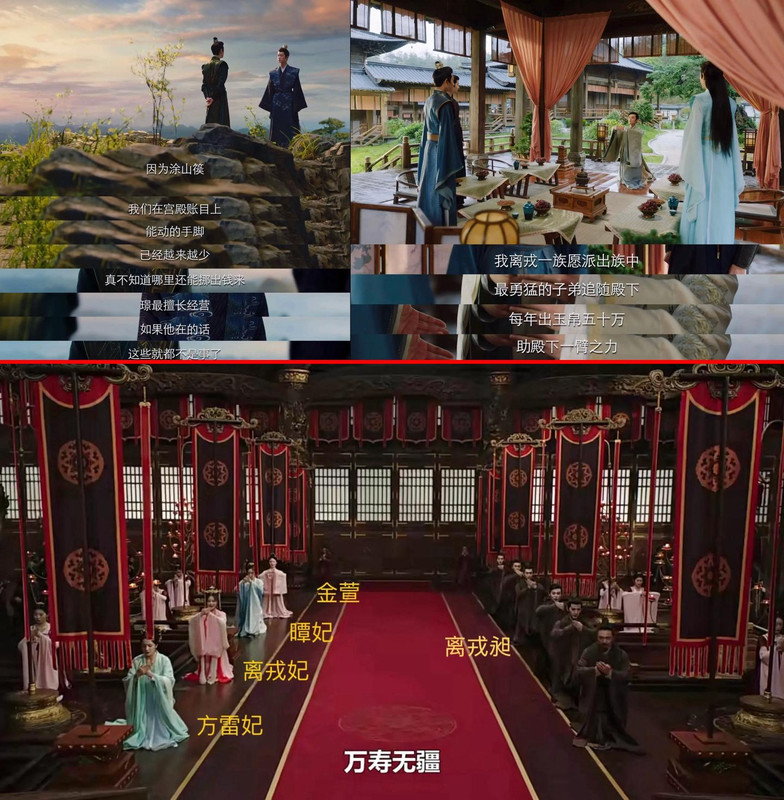
Unable to fake the accounts anymore, they turned to Li Rongchang to provide people and money (a reward for merit? Selling titles and positions?)
• Both of the individuals mentioned above are connected to the Tu Shan clan (coincidence #3)... This makes the blogger suspect—could it have been Tu Shan Jing who erased the bite marks on Xiao Yao...? (Just personal speculation)
• As luck would have it, the blogger also discovered that bite marks really can be erased
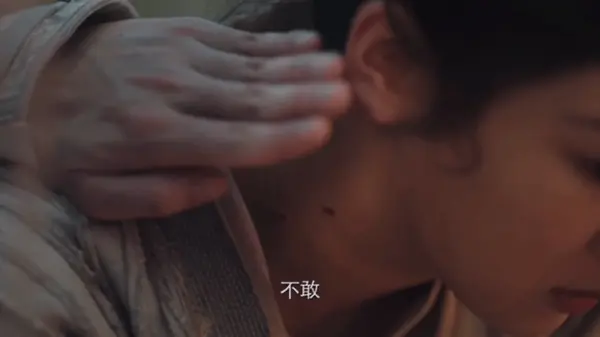
Xiang Liu covered up the bite mark as a “kiss mark.”
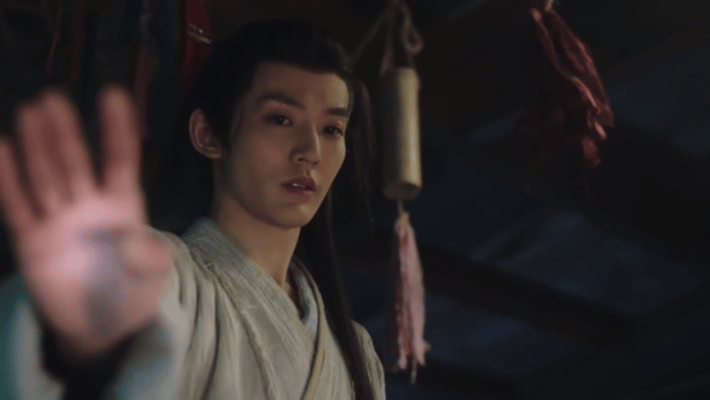
Tu Shan Jing erased the “kiss mark.”
No further analysis can be made for now...
▽ After Xiao Yao returns, will she discuss the inconsistencies in the injury report with Qiang Xuan?
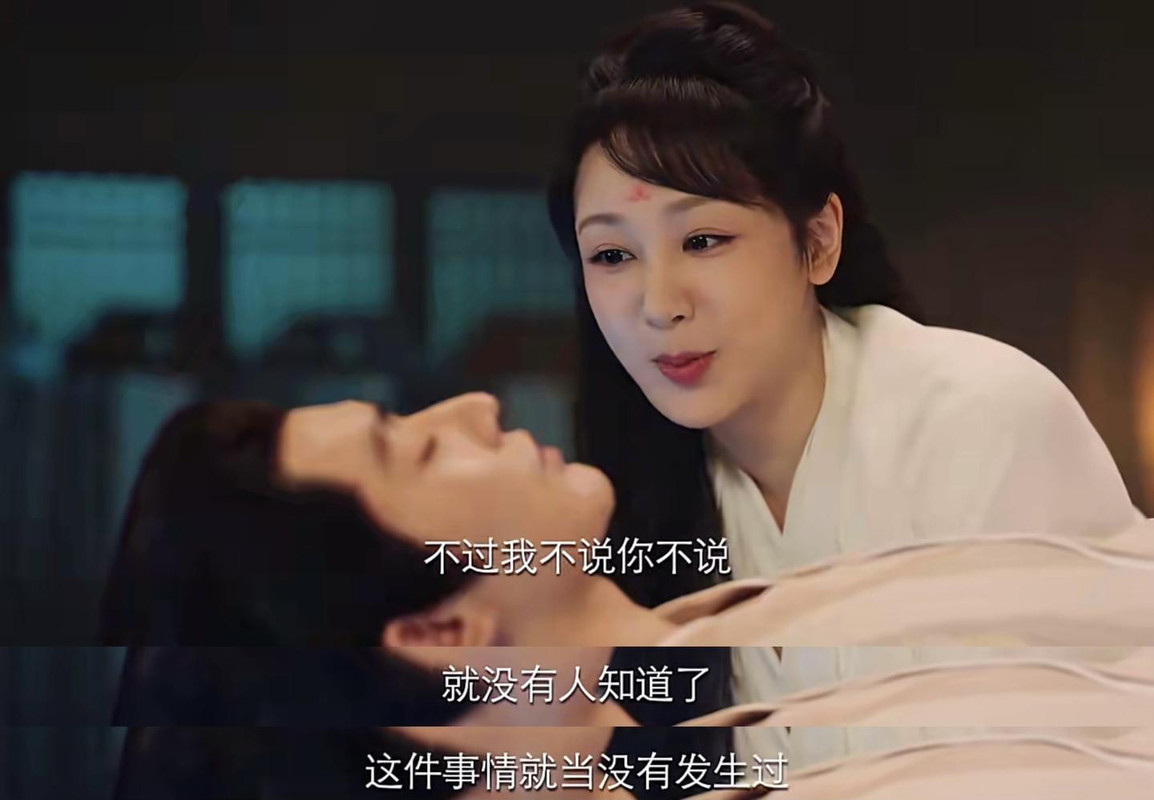
Sister Yao: Some things—if you don’t say them, and I don’t say them—then no one will ever know!
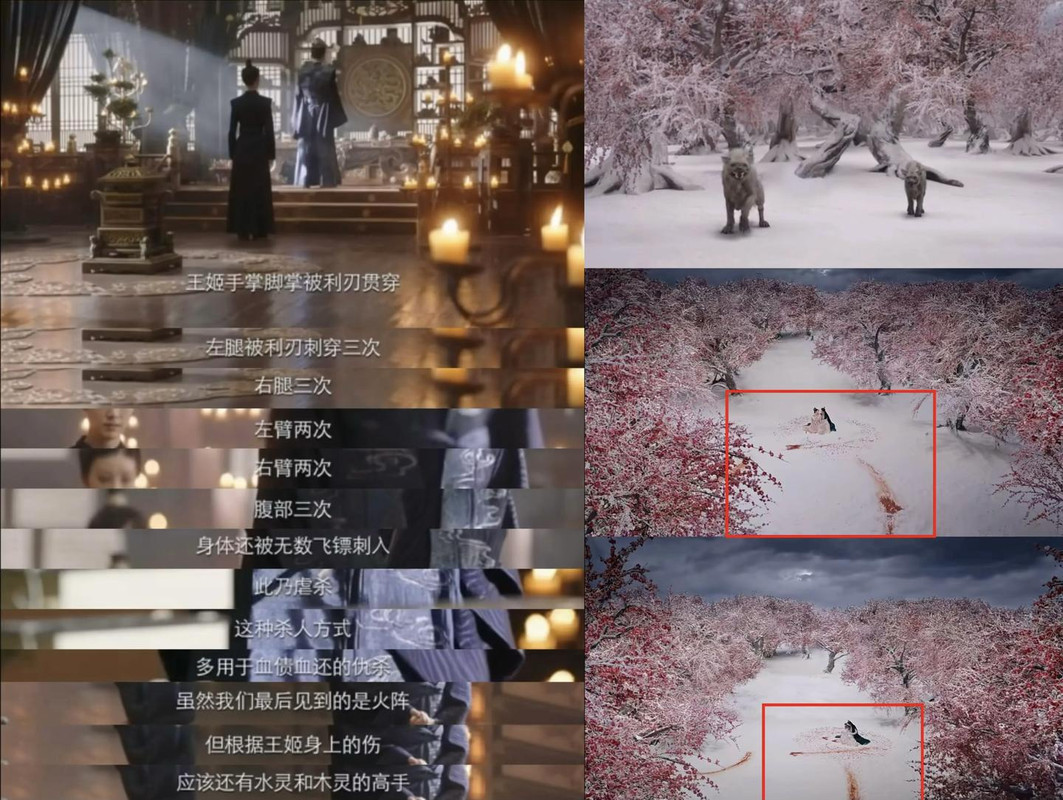
Sister Yao (inner monologue): So if you don’t say it, and I don’t say it, then no one will ever know about the discrepancies in Merlin’s injury report (spirit beast + 17 knife wounds)...
If we say it, the whole act can’t go on...
So—heaven knows, earth knows (the audience knows), only the two of us know the truth! Heehee~
(The mutual devotion between Yao and Jing moved the blogger to tears—absolutely amazing!)
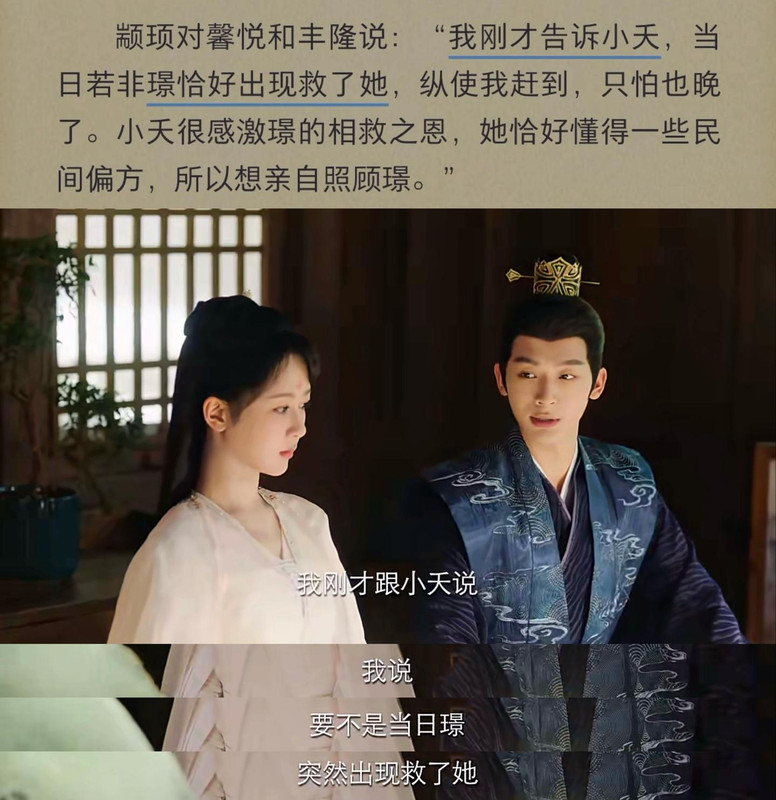
● Regarding Tu Shan Jing faking his death in Merlin
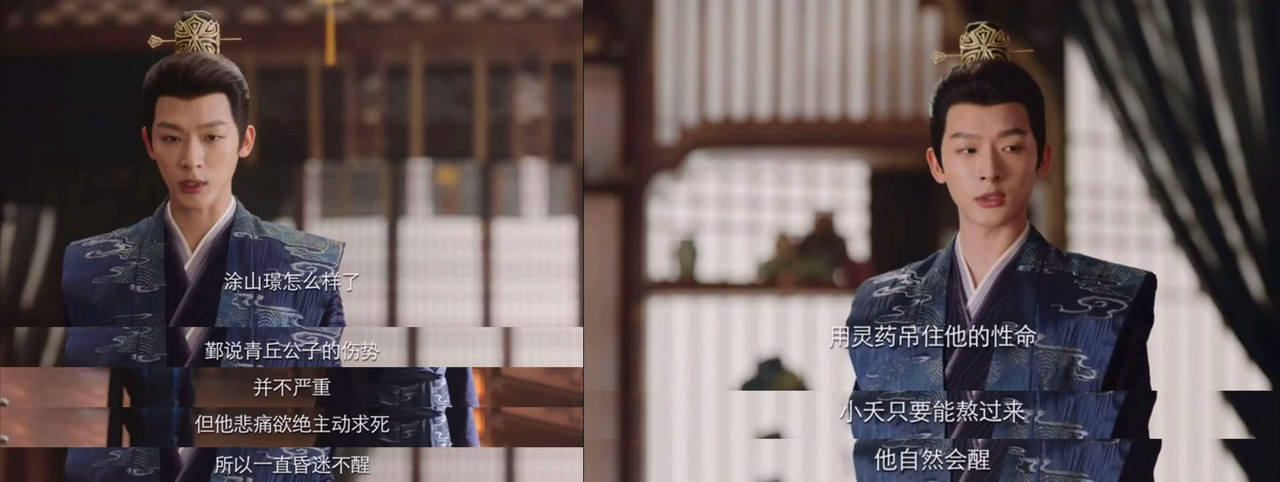
Cang Xuan saw through it at a glance: He’s not going to die.
["Coma" treatment]

Common Knowledge Explained
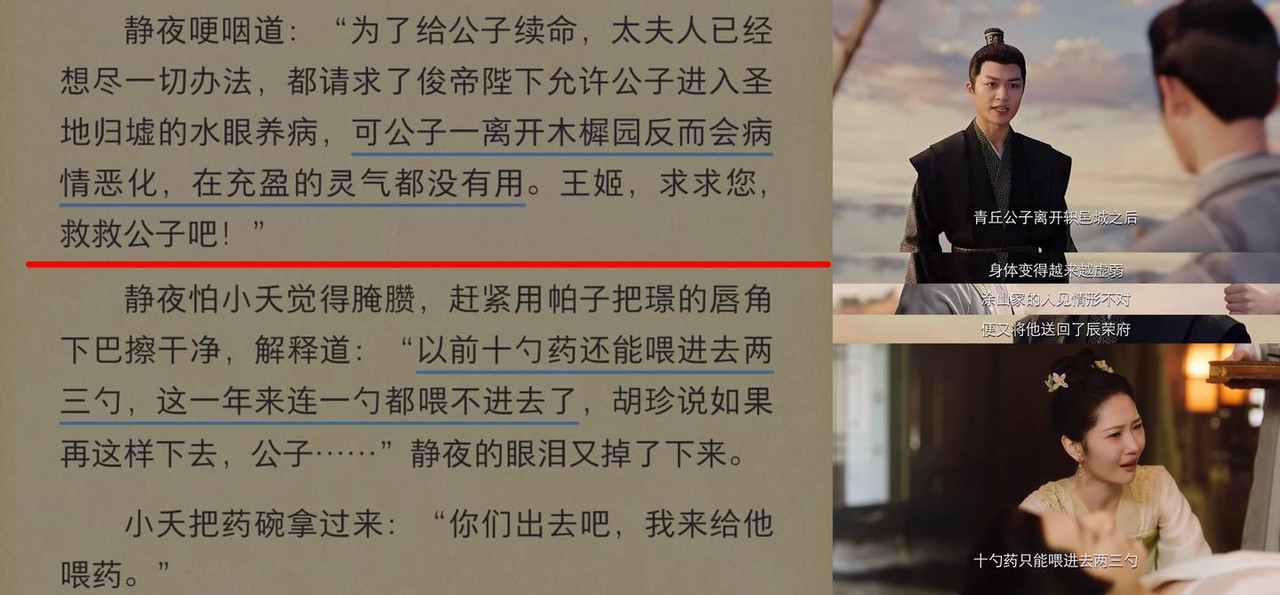
Did Jing choose his own place to recover and swallow the medicine by himself?
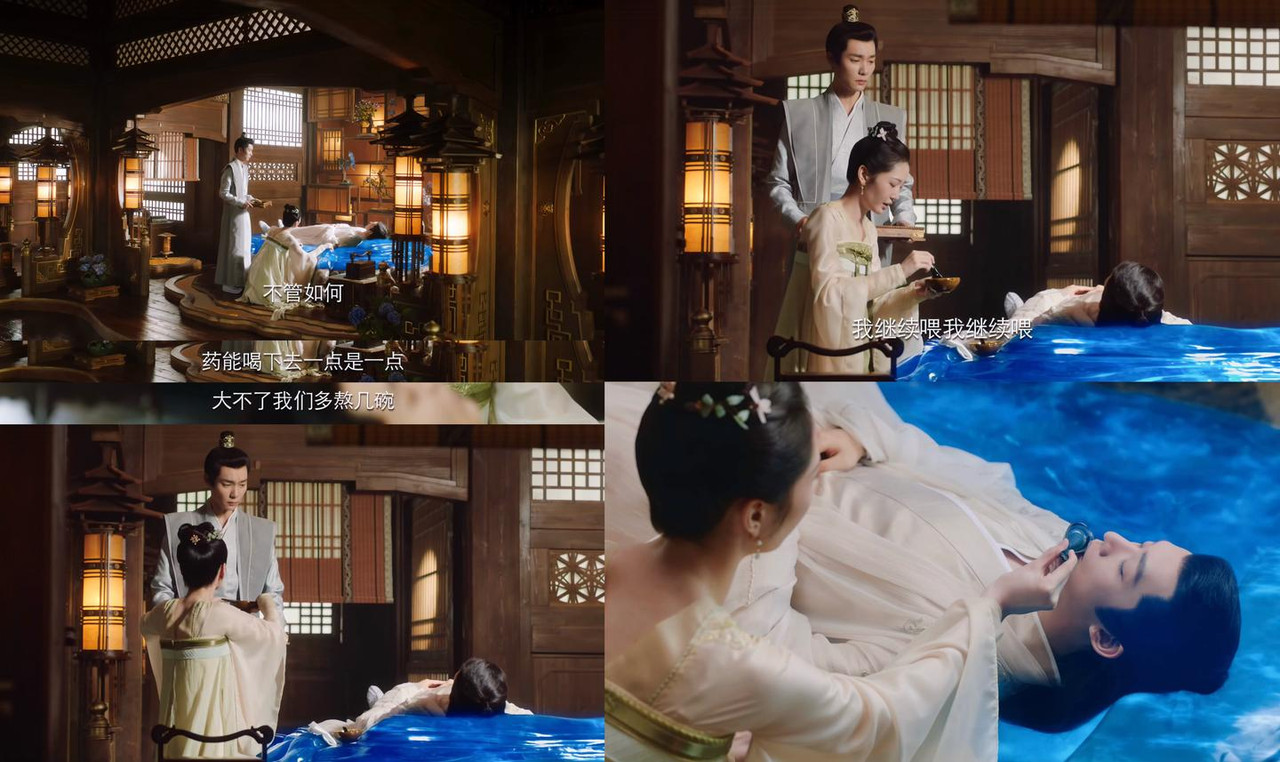
Did the Tu Shan clan not have any professional physicians? A person in a coma can’t swallow medicine on their own! Jing Ye kept feeding him—was it because she knew he wasn’t actually unconscious and could drink by himself???
▽ What did Tu Shan Jing really believe—could Xiao Yao still be saved or not?
(Wasn’t he afraid he wouldn’t catch up with Xiao Yao on the road to the underworld?)
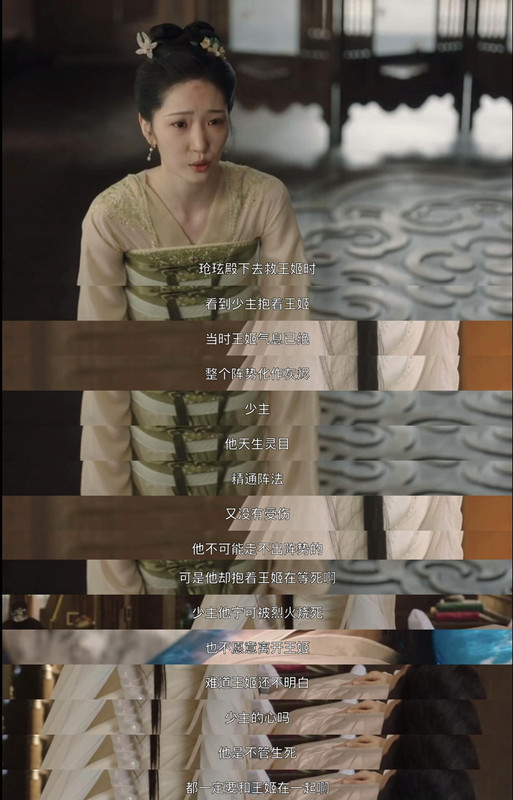
Jing Ye’s Judgment
[Insert an out-of-story moment]
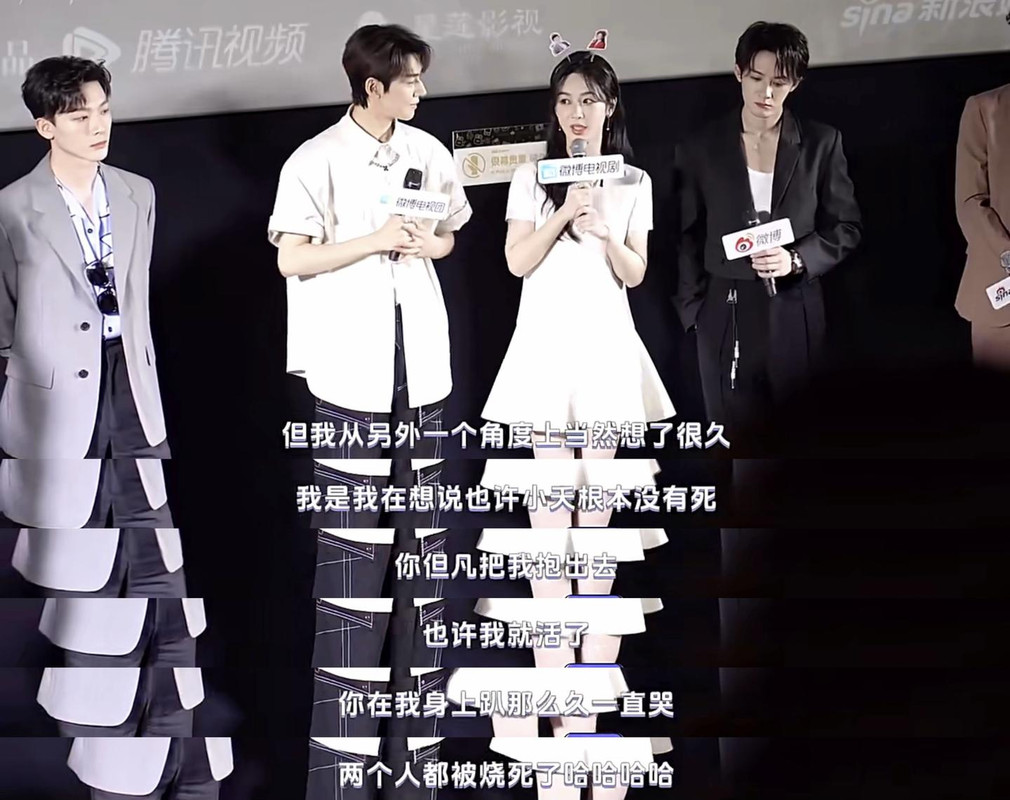
"Teacher Yang Zi's comments"
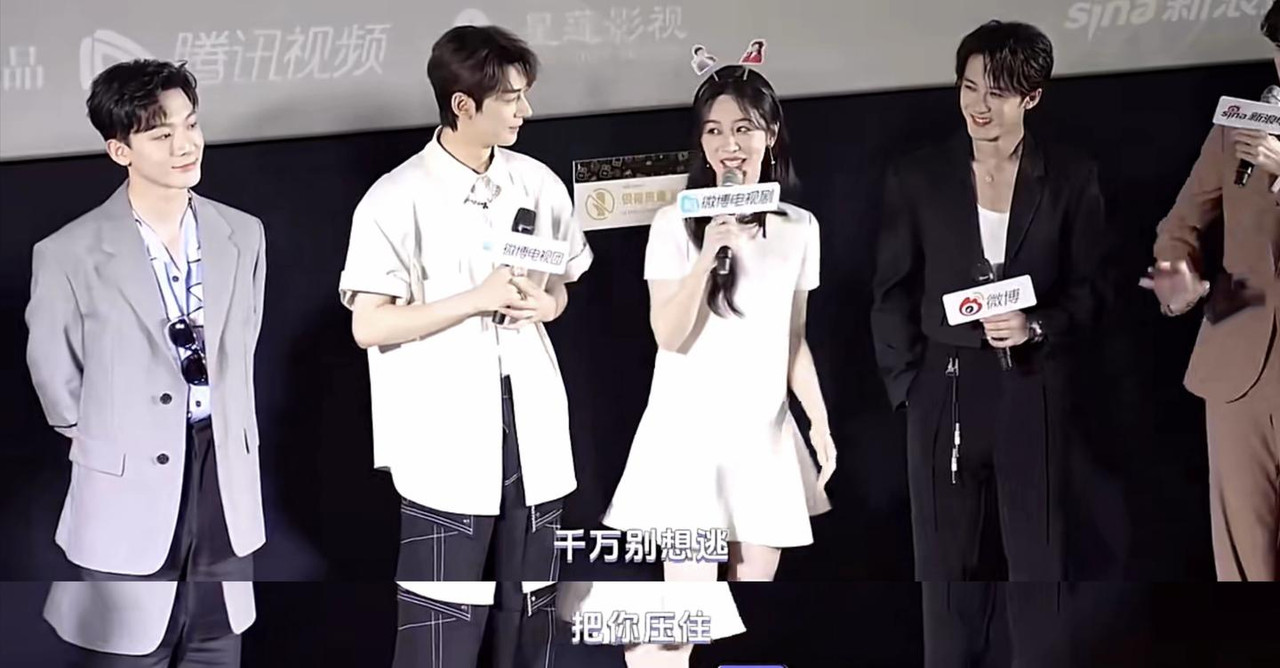
"Teacher Wang Hongyi's comments"
……
◐ Insert some real examples of “lovers dying for love” — true action-takers
What is love in this world?
It makes people vow to live and die for each other.
• Chang Pu (Zhang Xuan’s mother)
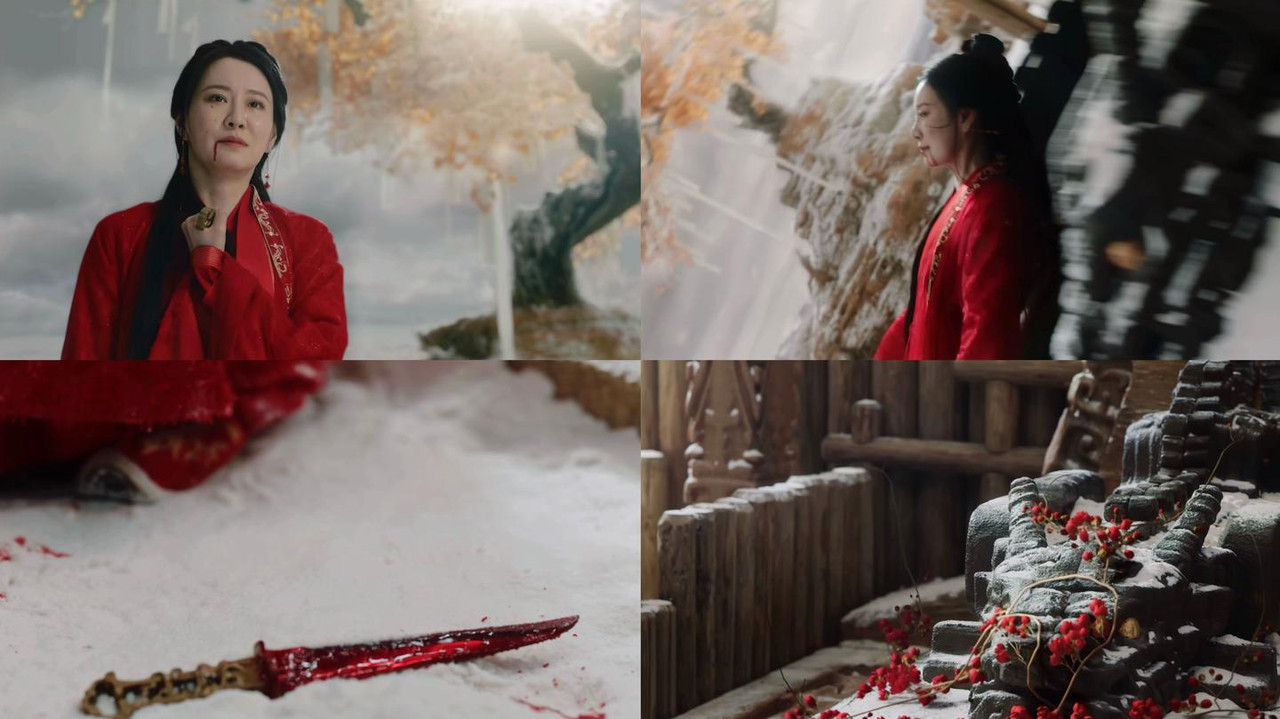
Live together, die together (After taking revenge, she stabbed herself and died on the spot)
• Shennong Princess Ji Yunsang
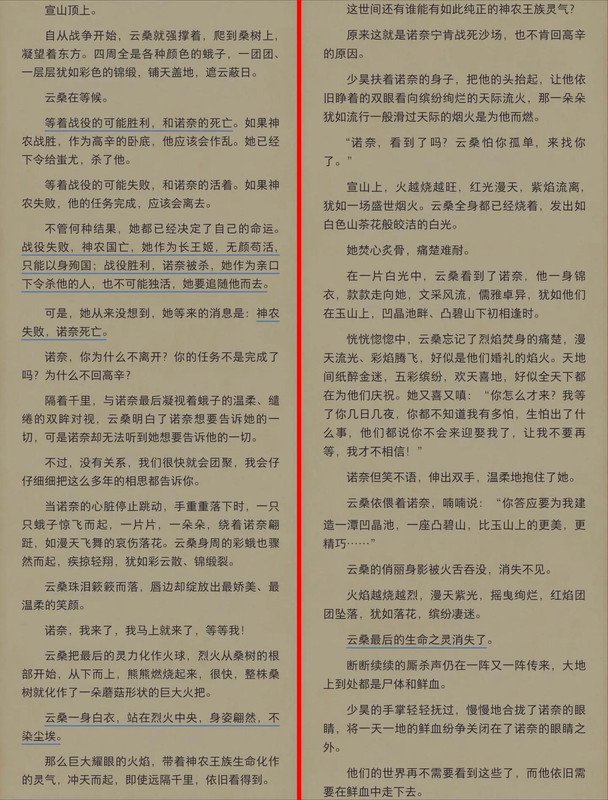
Died for the nation’s fall, died for love (After the nation was destroyed and the one he loved died, he self-immolated and died on the spot)
• Xiang Liu, the Nine-Headed Serpent
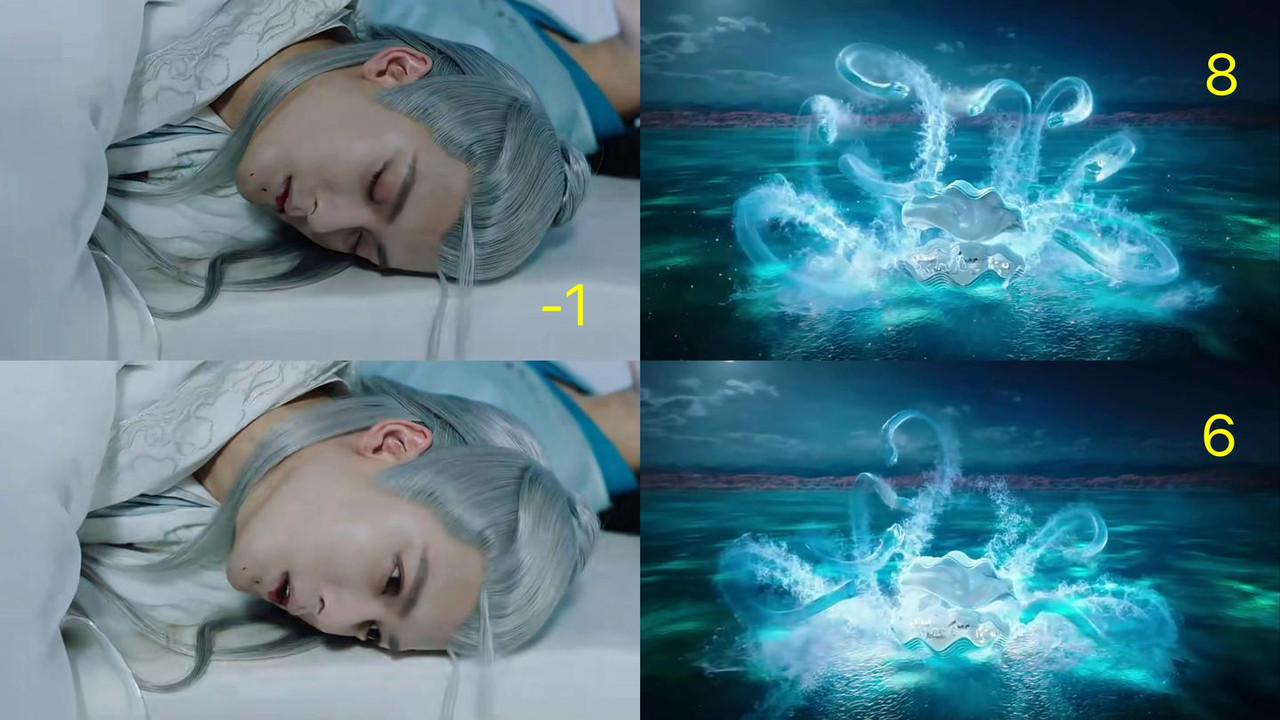
My life in exchange for your rebirth (Died on the spot to save someone — totaling three lives)
• Fangfeng Yiying (modified in the drama version)
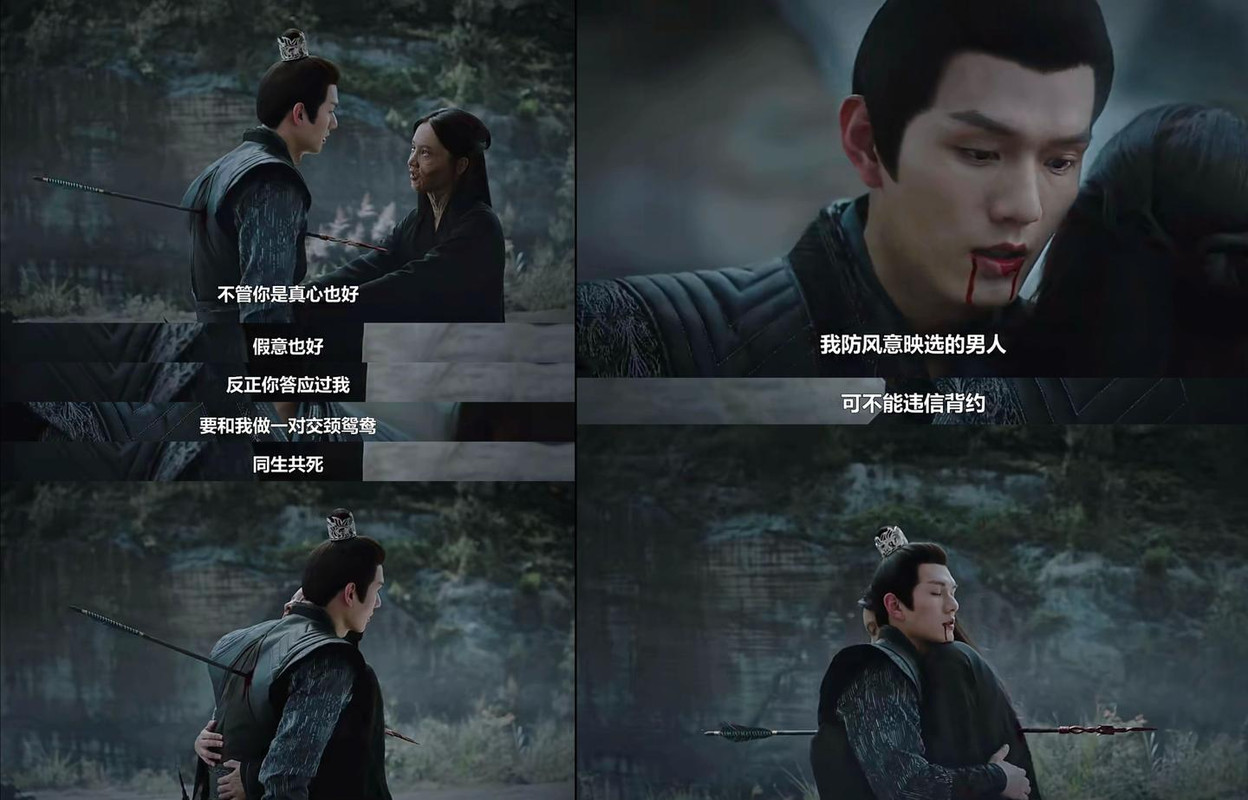
Neck-entwined mandarin ducks, live and die together (One arrow pierced through both of them — died on the spot)
◐ Yaojing, who shared the same “illness” and pitied one another
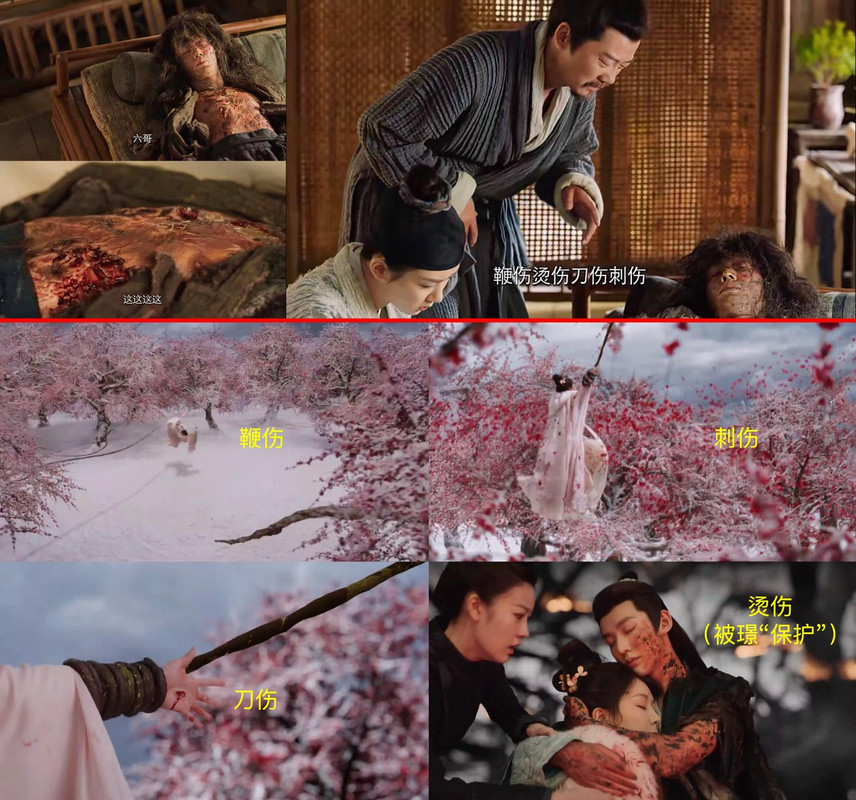
(Blogger’s inner thoughts: Poor little couple Yaojing — no wonder they’re Tong Hua’s officially designated “canon pairing,” they match perfectly!)
[Some Coincidences]
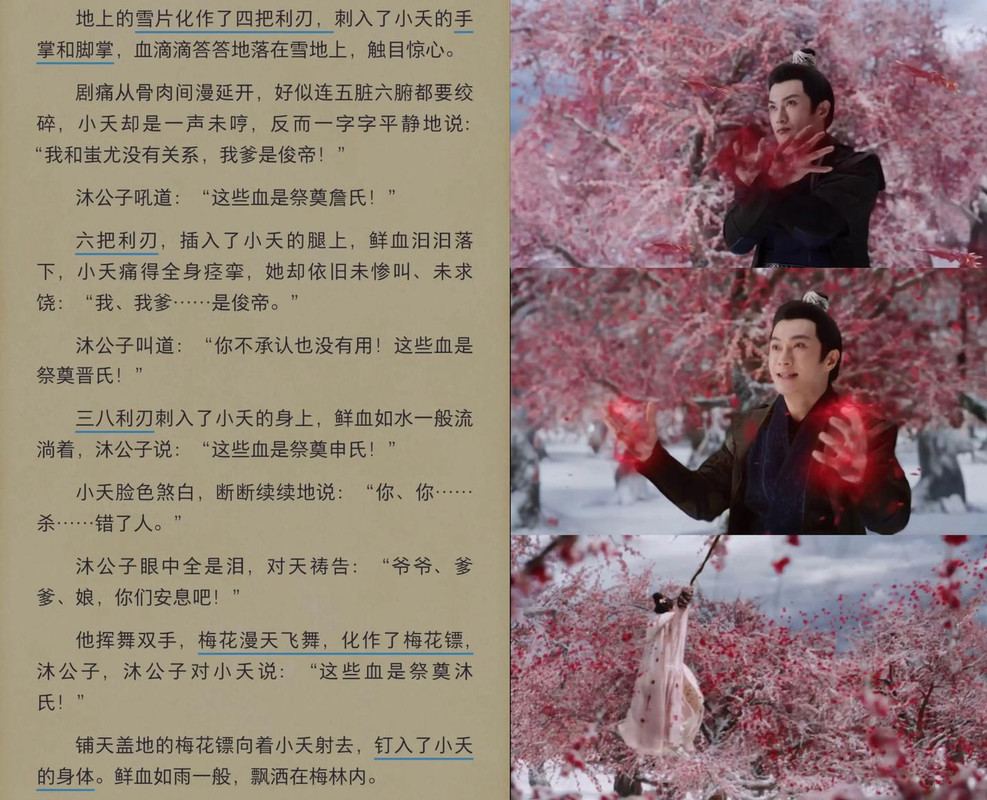
Four stabs to the Zhan clan, six to the Jin clan, three to the Shen clan, and countless plum-blossom darts to the Mu clan.
Mu Fei clearly explained the reason behind every stab — but what about the injuries that weren’t explained? Was there a reason?
(The following is pure headcanon ❌ Don’t take it seriously — just for fun!)
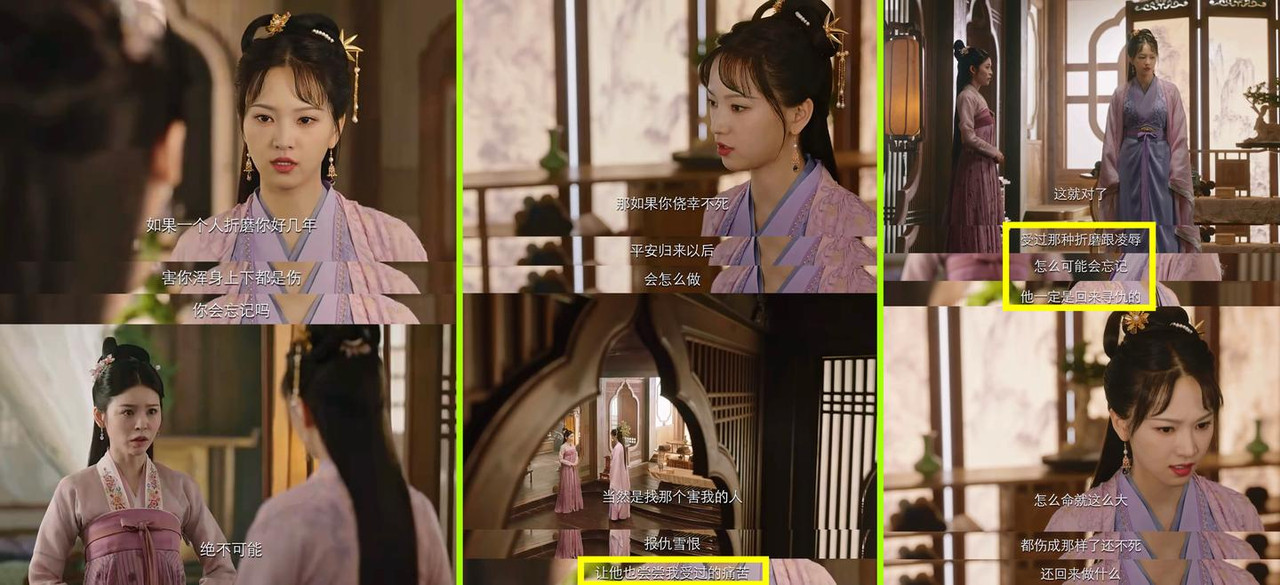
"Mental state"
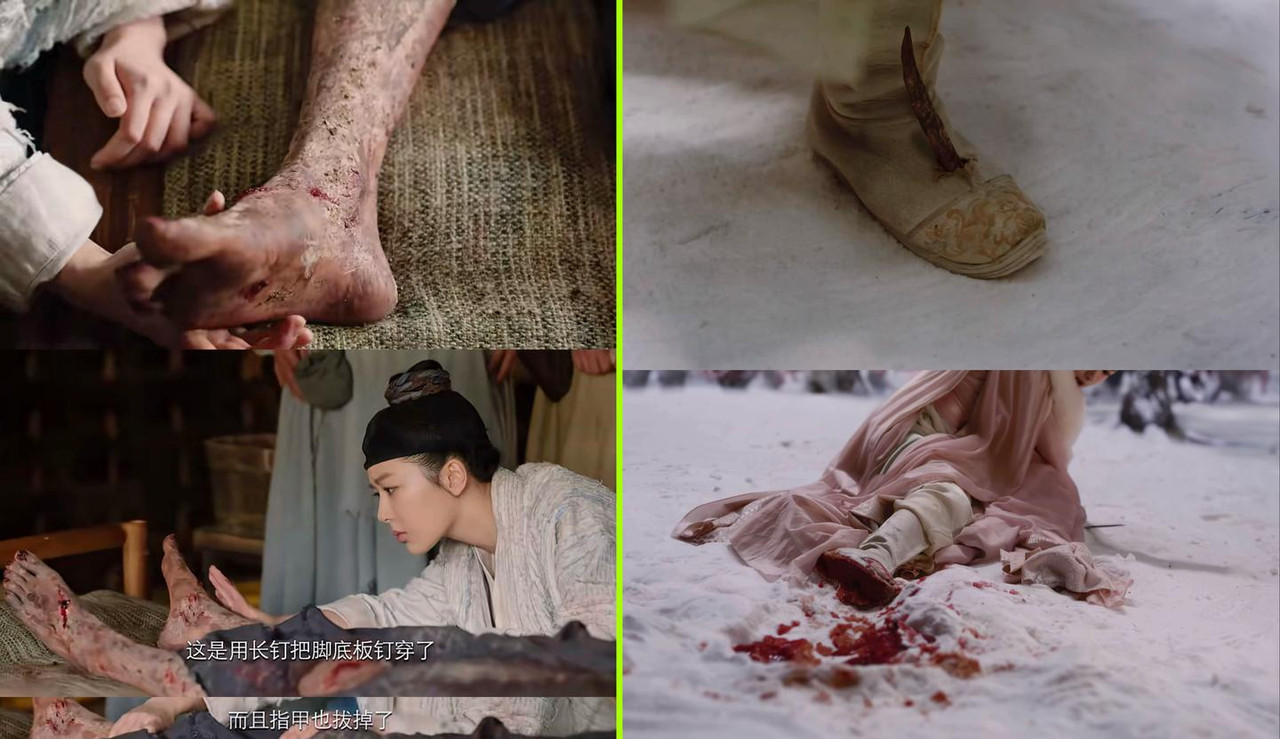
Didn’t pull out the fingernails (Such a kind-hearted killer)
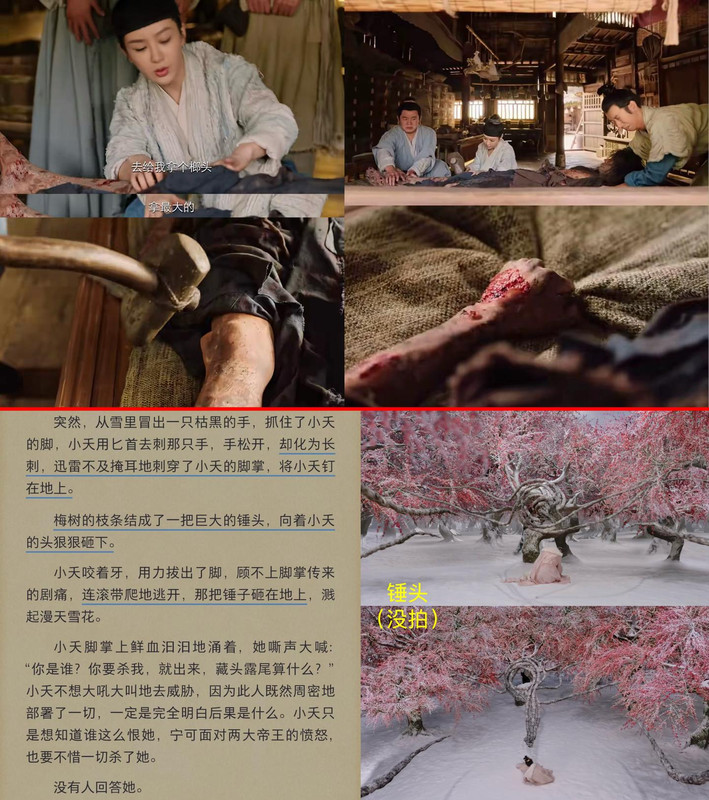
Raised the hammer (didn’t strike the body — such a kind-hearted killer)
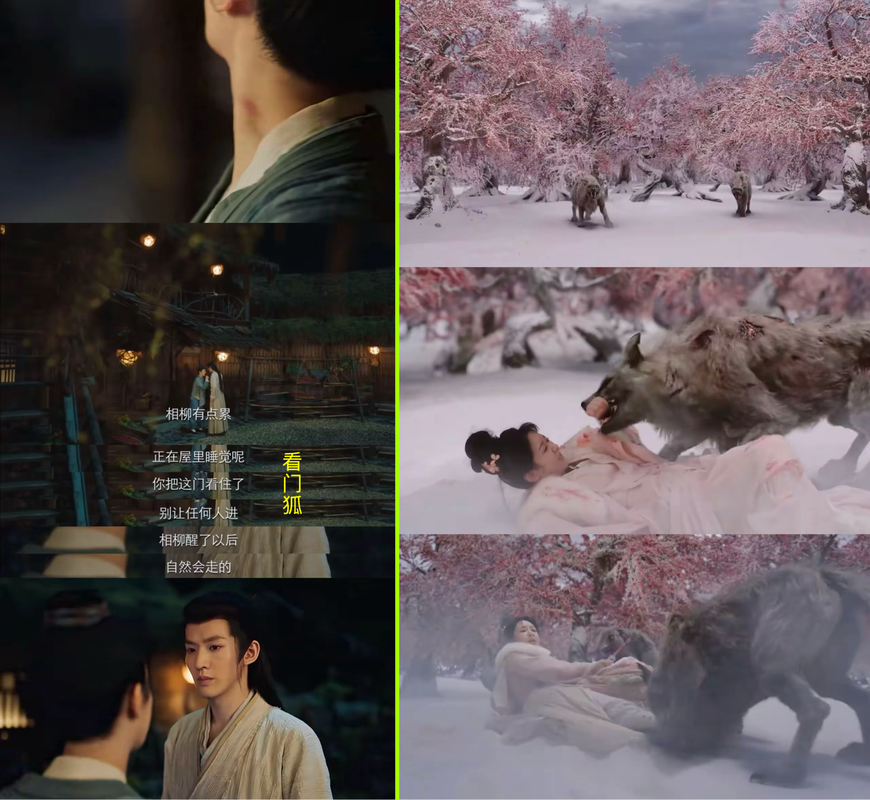
Do you like being bitten by wild beasts? (The weakest beast didn’t tear Xiao Yao apart — such a kind-hearted killer)
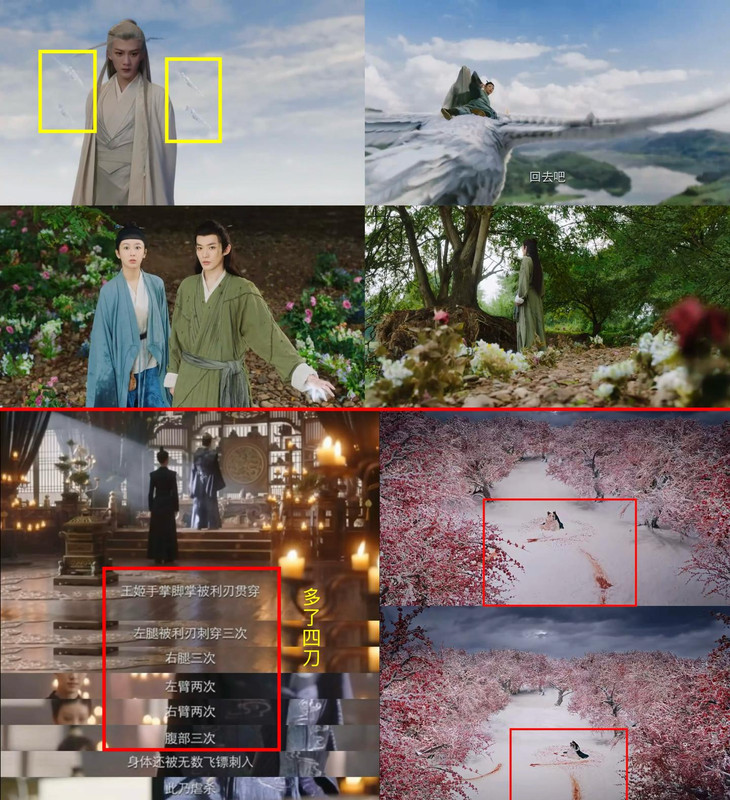
Added 4 more stabs to make it 17 in total
(The extra 4 stabs weren’t fatal — such a kind-hearted killer)/(Only found Liu Zi’s 4 stabs, can’t remember the rest)
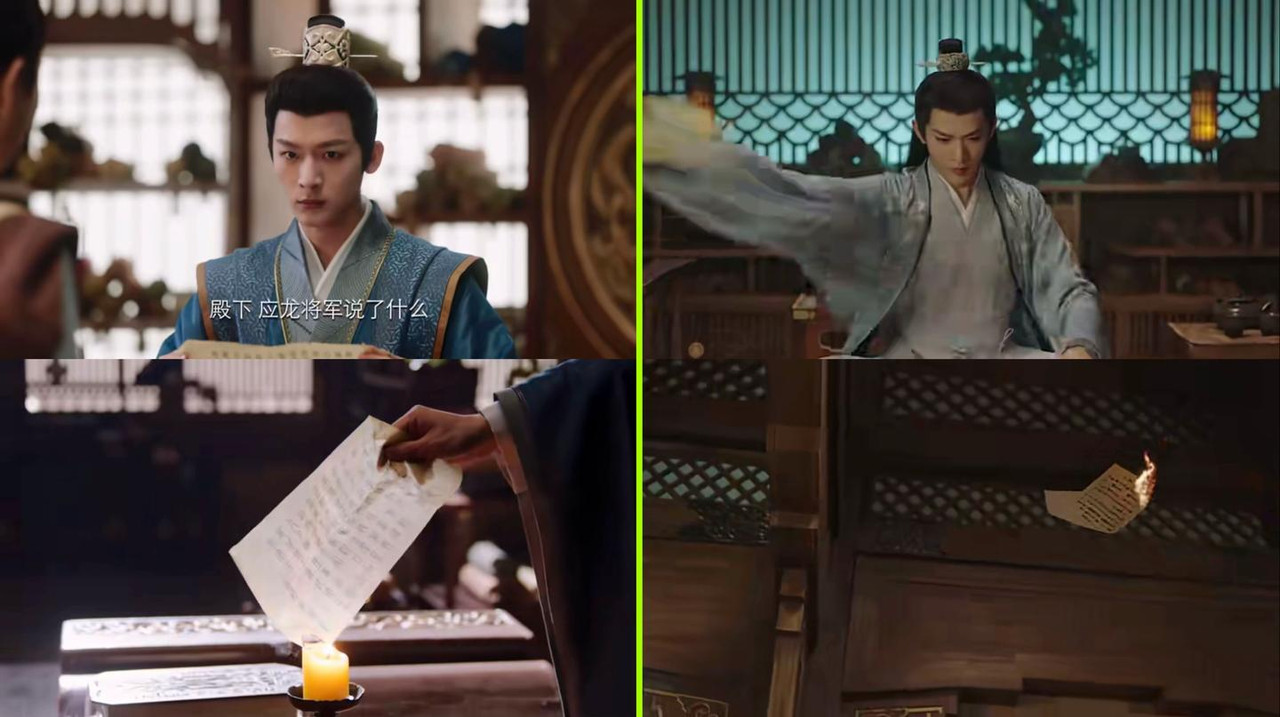
Cangxuan manually set the fire / Jing burned automatically
(Jing, who cultivated both water and fire)
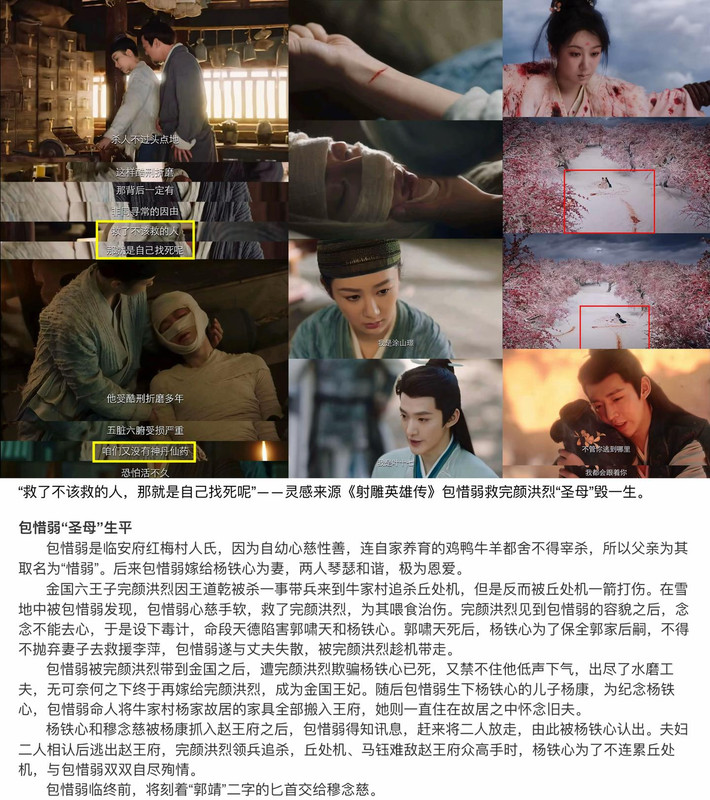
"Expansion"
@AkuMau
I read everything, thanks again for the translations! There are lots of things that I agree with, but there are also things that make sense only if you put them into the "reborn" theory's context, which I personally am not too fond of. The funny thing îs that people who believe în this theory can actually make a good case about it, even I who am against it have moments when I doubt the ending, but than I recall the theme of the novel, that romantic love is not everything în life and you can still enjoy life regardless of losing the one you loved and to me that's enough to take the ending as it is and disregard the scenario of XL being reborn.
I do understand there is some basis for this theory too though, the guifang clan especially. Thinking about it, even Ah Nian explaination to XY when she told her about the rumors involving Bei's death could be interpreted as a foreshadow, since there is some resemblance to what XY did în the end.
"The palace maid also said that because Xuanyuan's soldiers killed Fang Fengbei, you were so sad that you had a falling out with His Majesty the Black Emperor and ran back to Wushen Mountain.
You collected so many spiritual herbs during this period of time and borrowed the Qinglong tribe's artifact Qingmu Ding to refine the resurrection pill to save FangFengBei".
If this was supposed to actually be a foreshadow or if some people just interpreted as such is debatable.
I personally do believe that Tong Hua had something else în mind at the beginning, if I am not mistaken she even said so în an interview, that a decision was made în the middle. Maybe the whole "lost you forever" theme at first was supposed to target only CX, him losing XY forever, while XY breaking free out of the prison CX and Jing made for her and why not, trying to have XL resurrected. This I can believe, giving the snake and the fox's metaphor, where she does end up alone. However, to what extent Tong Hua changed her initial story îs up to anyone's guess.
Btw, I love the point about how the mirror reveals the truth. It makes so much sense, I never though of it în the context of FYY and Hou's affair, but since it's been used by Jing to reveal the truth, it's easy to see how Tong Hua used it for XY in the same way, as means of revealing to the audience her true heart.
About the journey to the west's reference, I know it's been brough up on several blogs. I don't know anything about this movie, but I definetely see the similarity in descriptions.
"My true love is a great hero. One day, he will come to marry me, riding on a cloud of rainbow colors. I guessed the beginning right, but I couldn’t guess the ending.”
" XY looked up and saw the sunset glow in the sky. Xiangliu was wearing a silver mask and a snow-white robe, standing in the colorful clouds with a white feather and golden crown. He was holding a large silver bow, and had obviously shot an arrow"
(Please ignore this part, it's purely personal imagination. Any resemblance is purely coincidental — not responsible ❌)
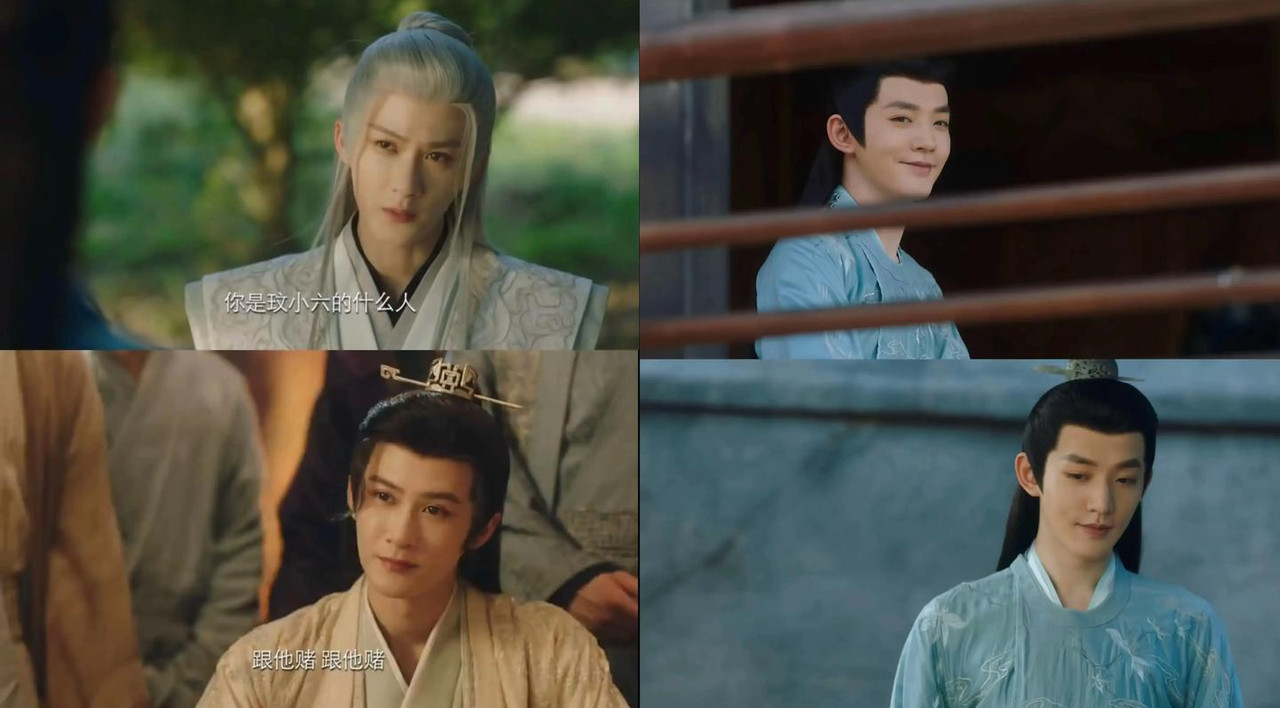
Snake tilting its head
● Grain transport mission in Zhiyi City
(In the novel version, it was the Chishui City Autumn Festival, which was removed/altered)
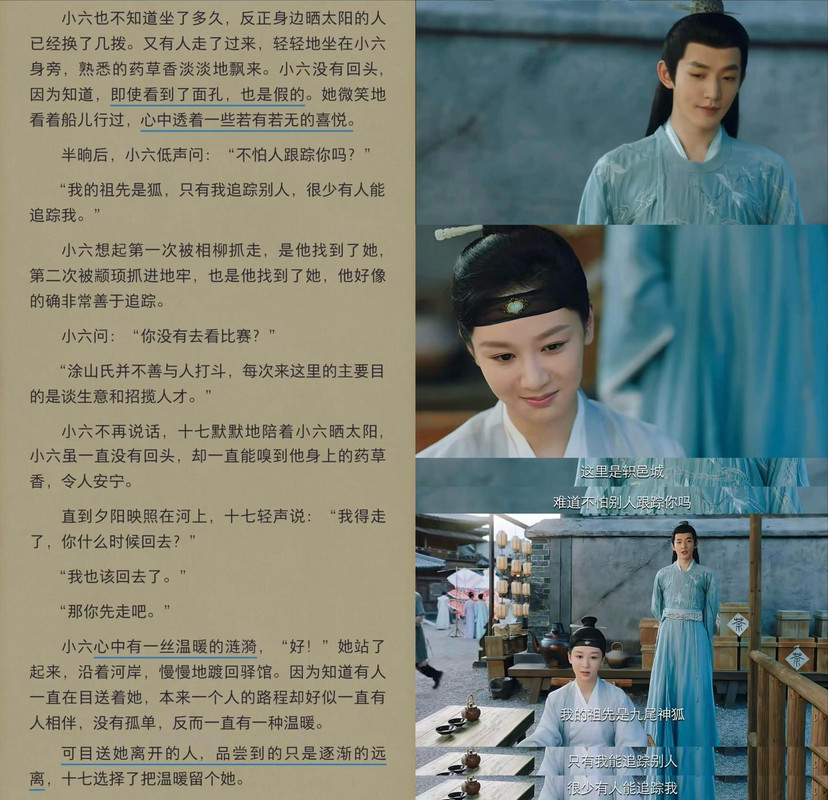
Translate:[Xiao Liu didn’t know how long she had been sitting there. All she knew was that the people sunbathing nearby had already changed several times. Then, someone else came over and quietly sat beside her. A familiar herbal scent gently wafted through the air. Xiao Liu didn’t turn her head, because she knew — even if she saw a face, it would be fake. She smiled as she watched the boats pass by, a faint sense of joy rising subtly in her heart.
After a while, Xiao Liu asked softly, “Aren’t you afraid of being followed?”
“My ancestors were foxes. I only track others; rarely can anyone track me.”
Xiao Liu recalled the first time she had been captured by Xiang Liu — it was he who had found her. The second time, when she was thrown into the dungeon by Zhuan Xu, it was also he who had found her. It did seem like he was indeed very skilled at tracking.
Xiao Liu asked, “You didn’t go to watch the competition?”
“The Tushan clan isn’t known for fighting. Our main purpose in coming here is to talk business and recruit talents.”
Xiao Liu didn’t say anything more. Shiqi sat silently beside her, basking in the sun. Although Xiao Liu never turned around, she could always smell the calming scent of herbs on him — a scent that brought her peace.
As the setting sun reflected on the river, Shiqi softly said, “I have to go. When will you go back?”
“I should head back too.”
“Then you go first.”
A ripple of warmth stirred in Xiao Liu’s heart. “Alright!” She stood up and slowly strolled back to the posthouse along the riverbank. Because she knew someone was silently watching her leave, the journey — which should have felt lonely — instead felt as if someone was always by her side. She didn’t feel alone. On the contrary, she felt a quiet warmth.
But the one who watched her leave only tasted her growing distance. Shiqi had chosen to leave the warmth behind — for her.]
Why wasn’t there backlash when Xiao Liu felt a ripple in her heart?
(Fell for the scent without seeing the face — did the plow-nose organ recognize the pheromones?)
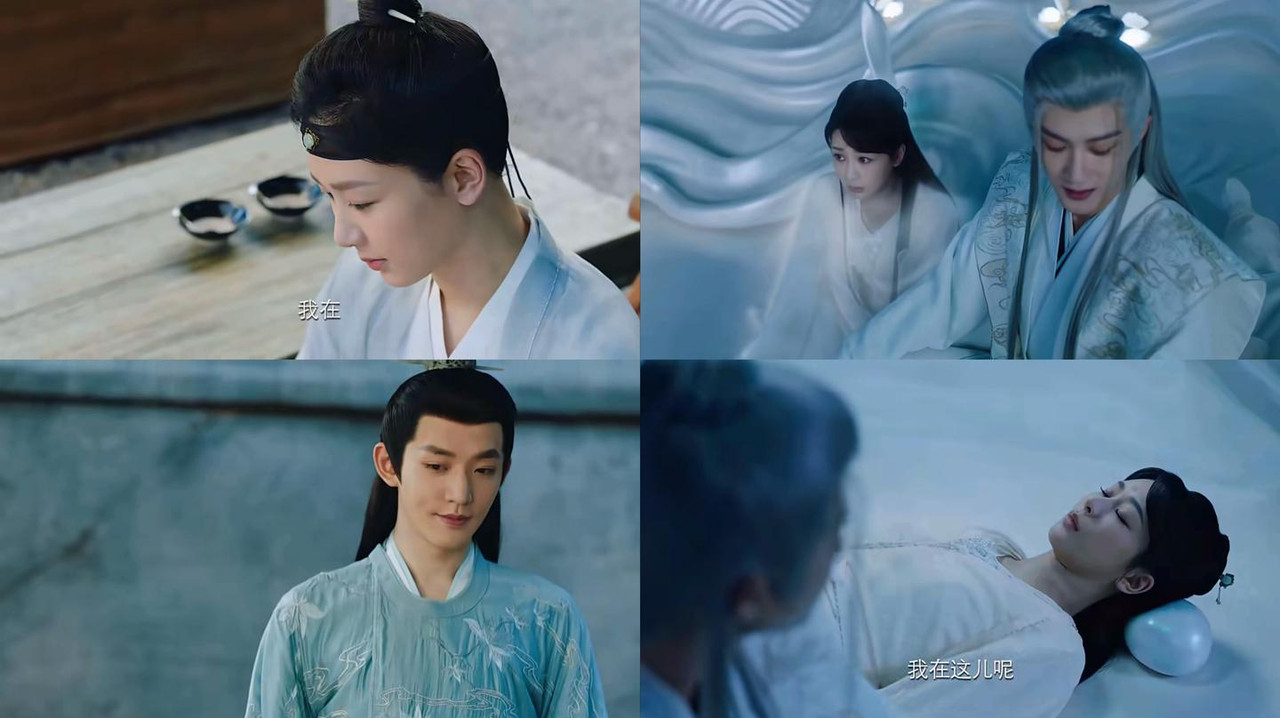
"I’m here"
(Jing revealed that he couldn’t be tracked — was this a hint that Xiao Yao had been “sold out” by the fox...)
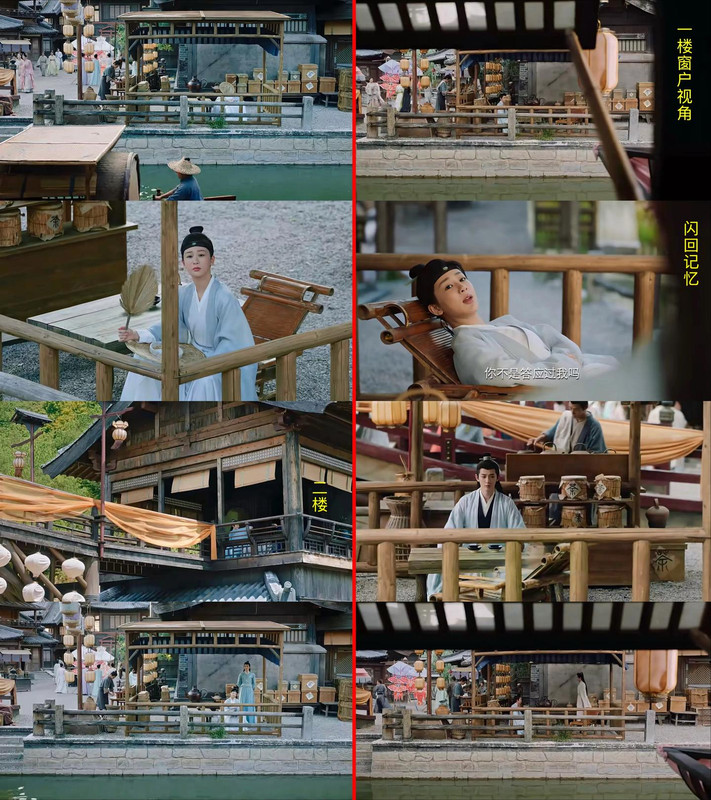
In Episode 39, a strange first-floor window viewpoint suddenly appears
(Is this meant to hint that: in Episode 17, Jing was secretly watching from a first-floor window room, and now “Jing” walks from the second floor to stand behind Yao?)
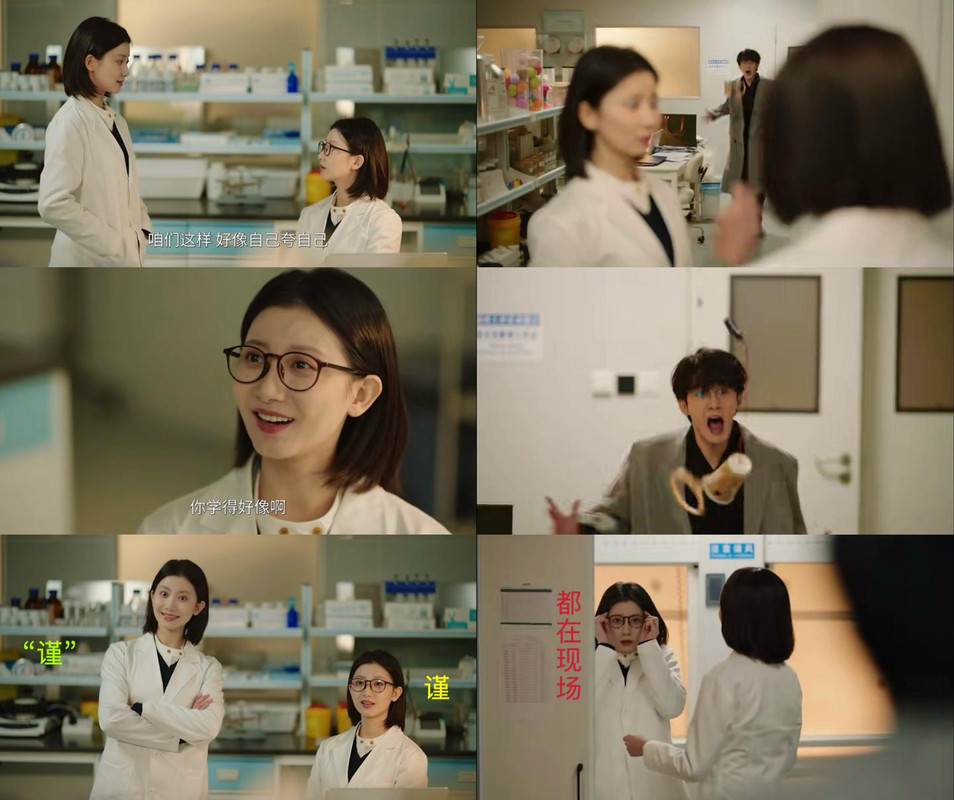
There’s a flashback — both Jing and “Jing” are present
▽ Could this be how Tushan Jing and the rebel army used to transport grain?
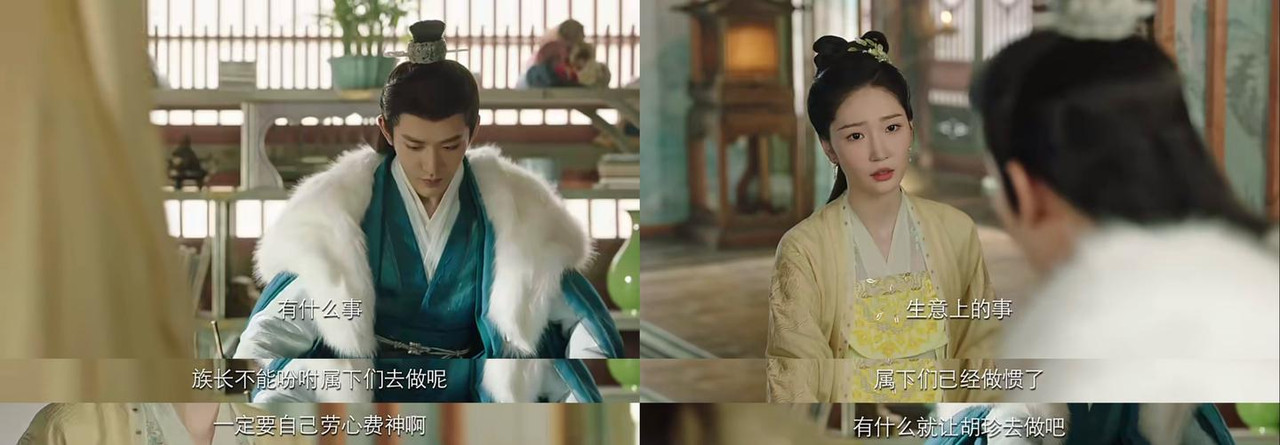
The quiet night feels strange — what is he doing?Wasn’t it always handled by subordinates before?Why does he have to do it himself this time?
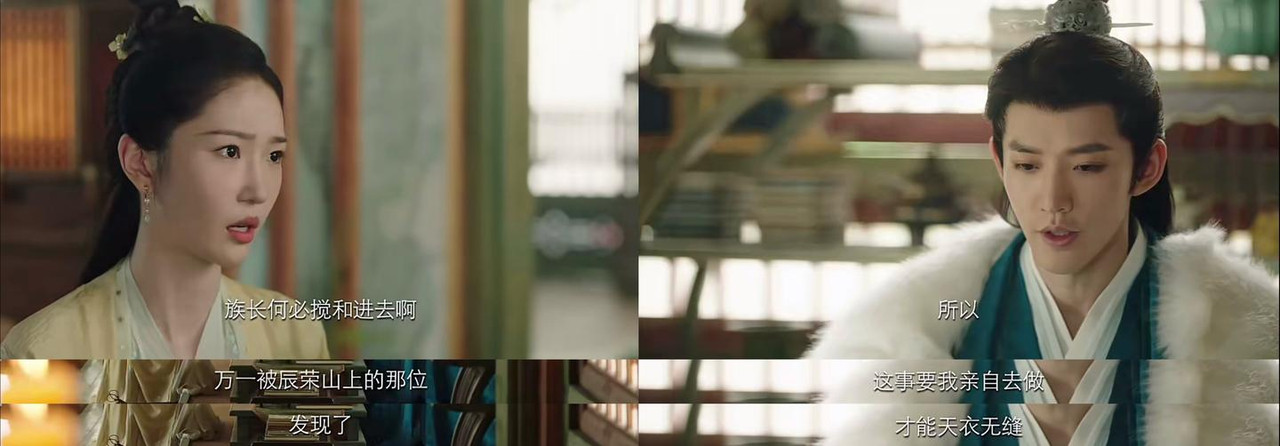
Secretly collaborating with the rebel army is a serious matter — Tushan Jing must handle it personally.
1. Every time Tushan Jing delivered grain to the rebel army, he always did it himself.
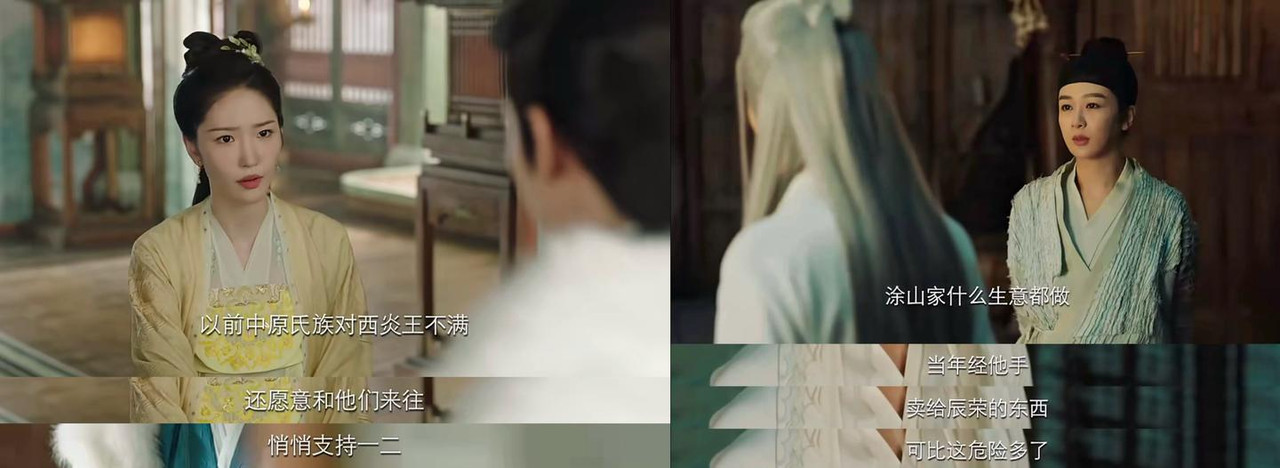
He always handled it himself in the past — so what is Jing Ye finding so strange?
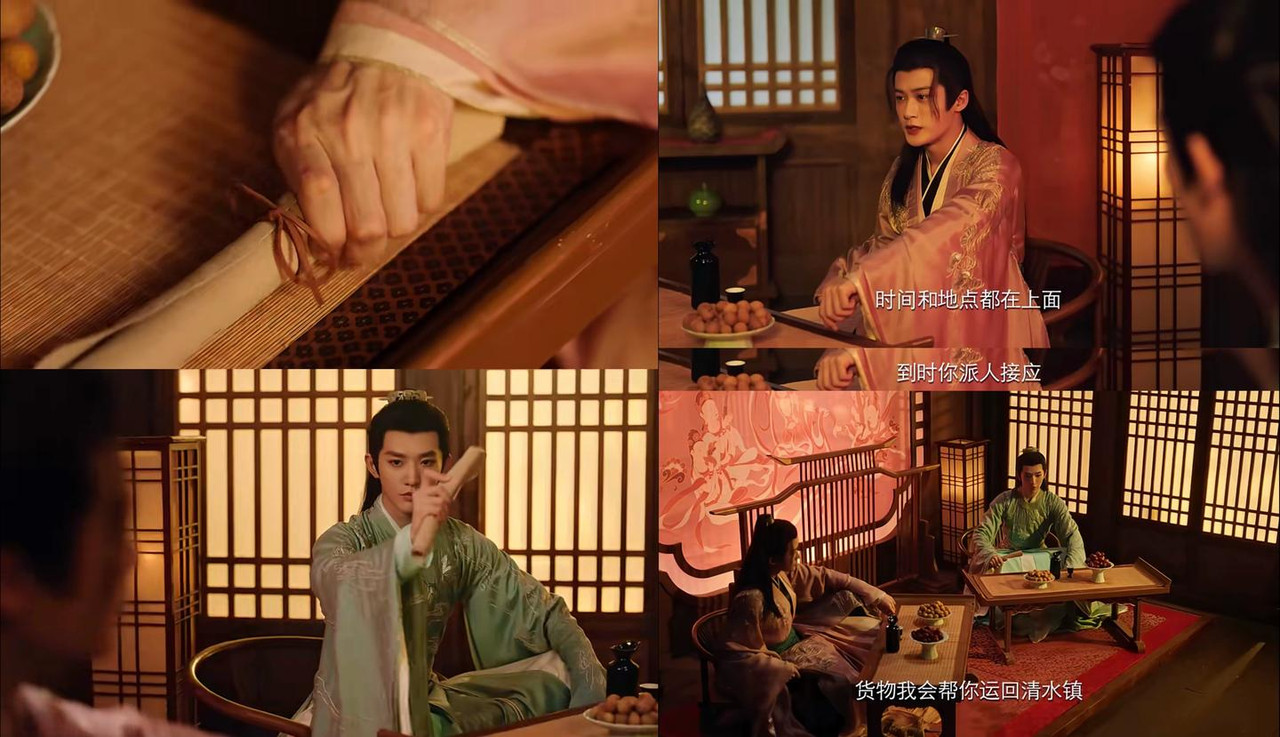
It was always Jing himself who handled it.
2.Does Tushan Jing have another “hands-on” method that makes things easier?
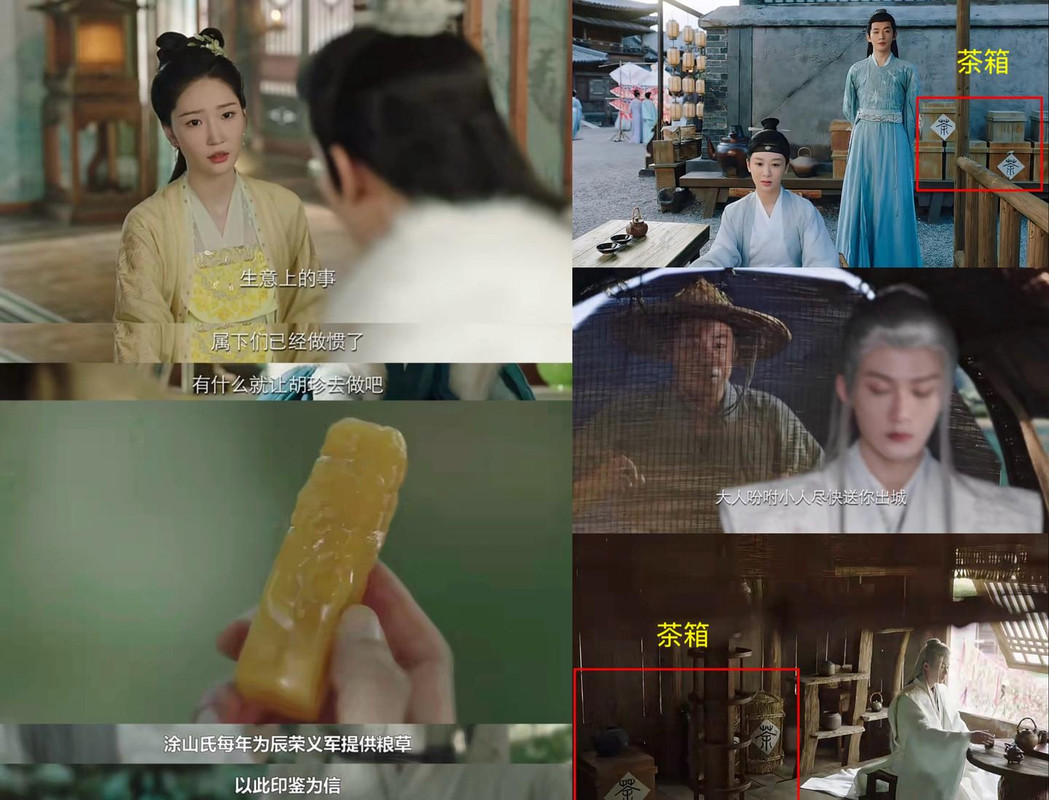
Could it be that in the past it was always subordinates + “Jing” doing the transport?
(Were the grain sacks packed into tea chests?)
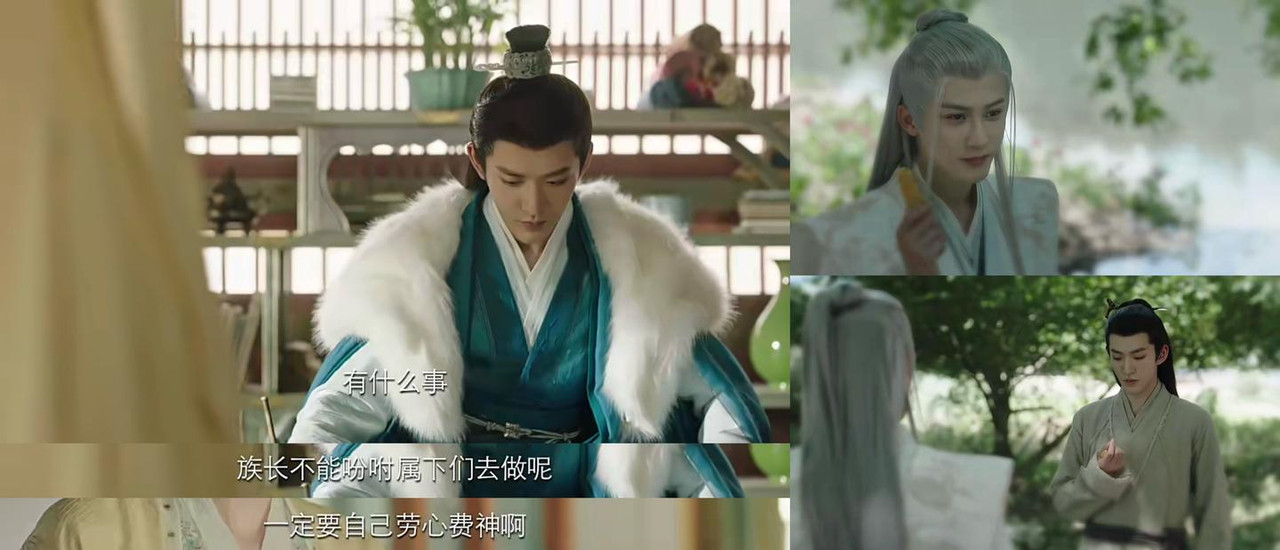
This time, does Jing really need to handle it personally?
(This time, “Jing” isn’t doing the delivery?)
● Taking care of Huichun Hall
▽– Guess how the fox, while lying on that slab for 37 years, still managed to “come back every few years” to visit Tian’er and the others?
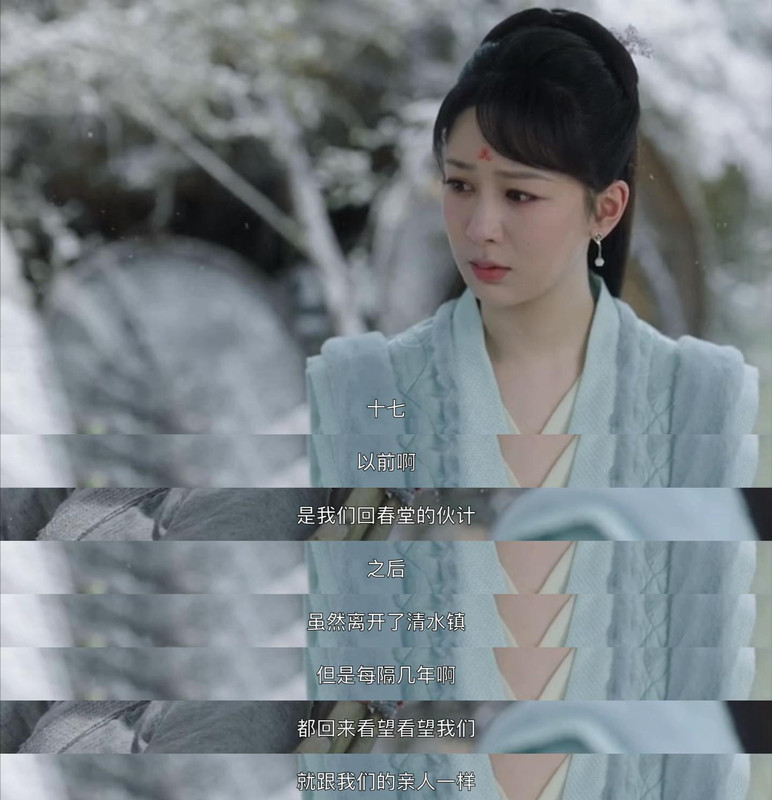
“Seeing a ghost every few years,” huh...
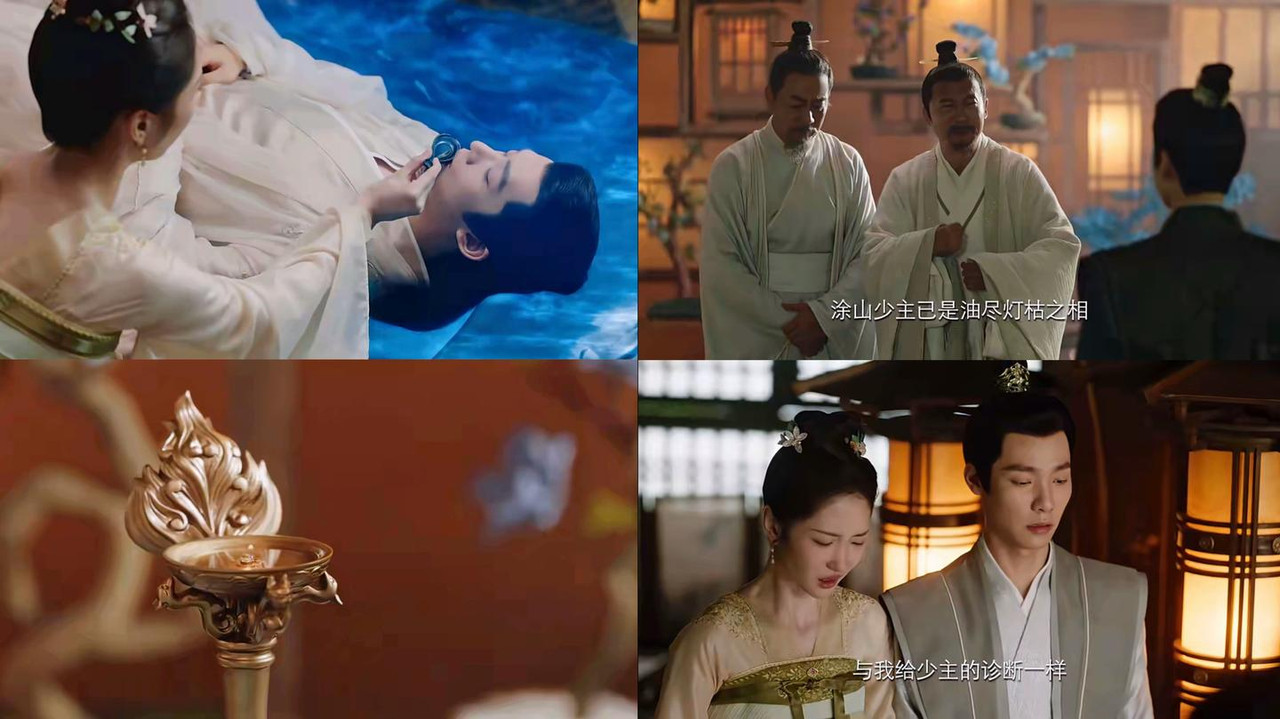
Jing: I was faking it — I’m the one who went.
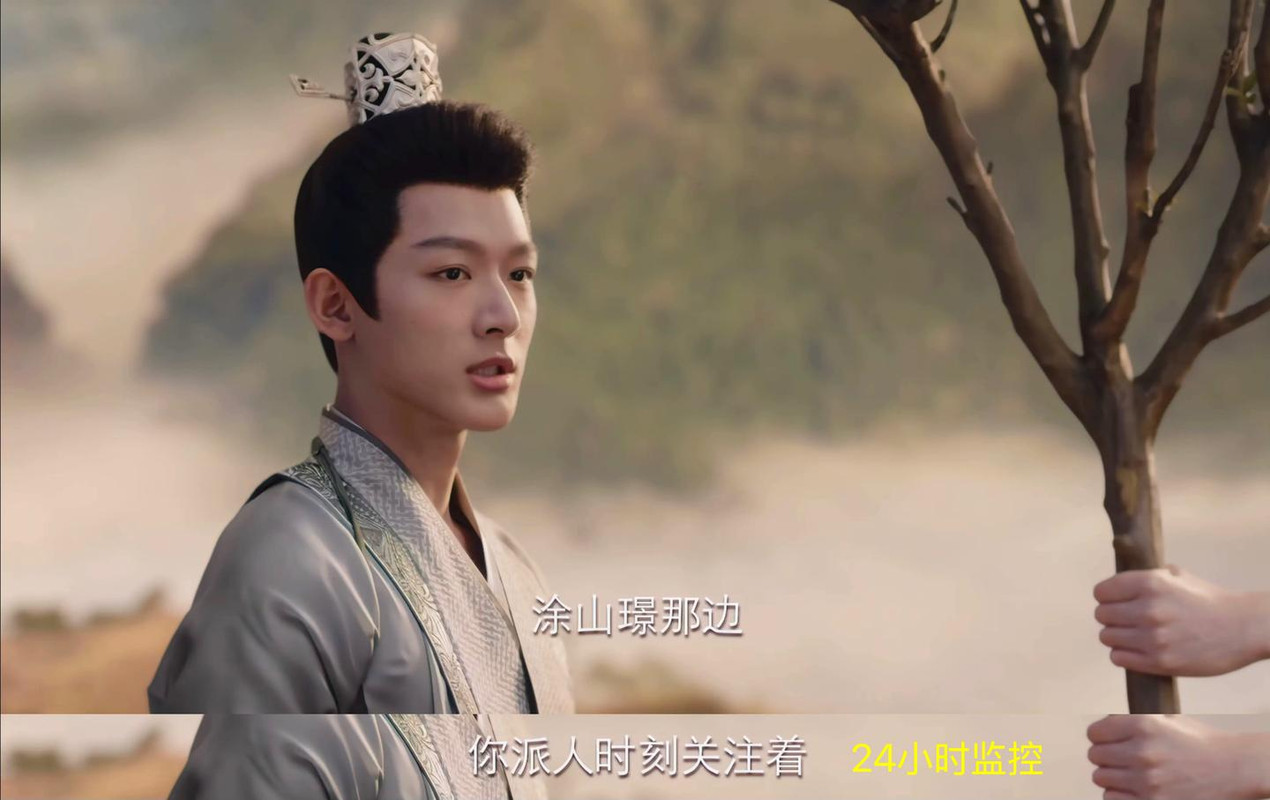
Cangxuan’s 24-hour surveillance
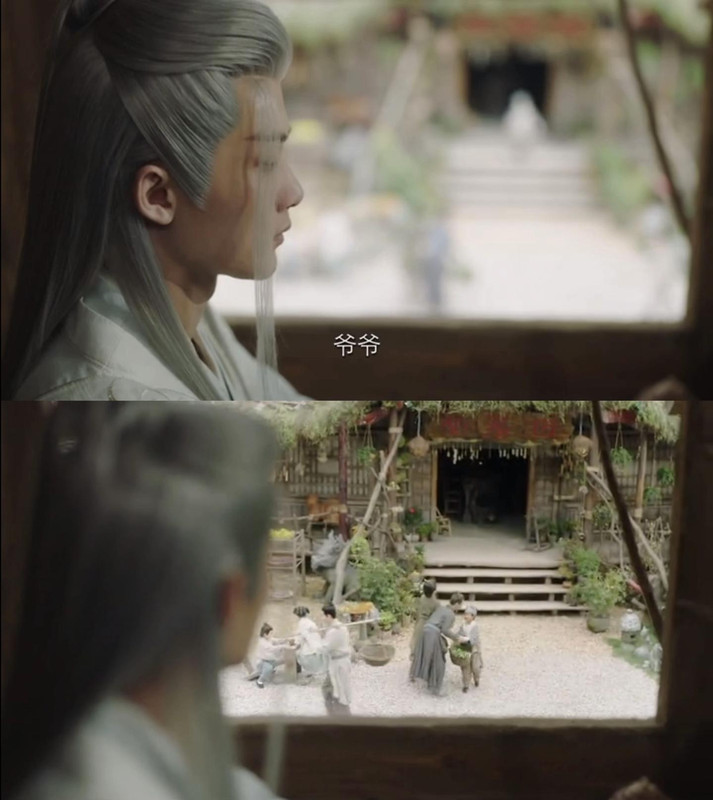
Liu Zi: That’s right, it was me — both Shiqi and Baozhu were me.
(“Shiqi” was there to explain matters related to Xiao Liu, to put the people at Huichun Hall at ease… Baozhu could look after Huichun Hall, but couldn’t explain anything about Xiao Liu...)
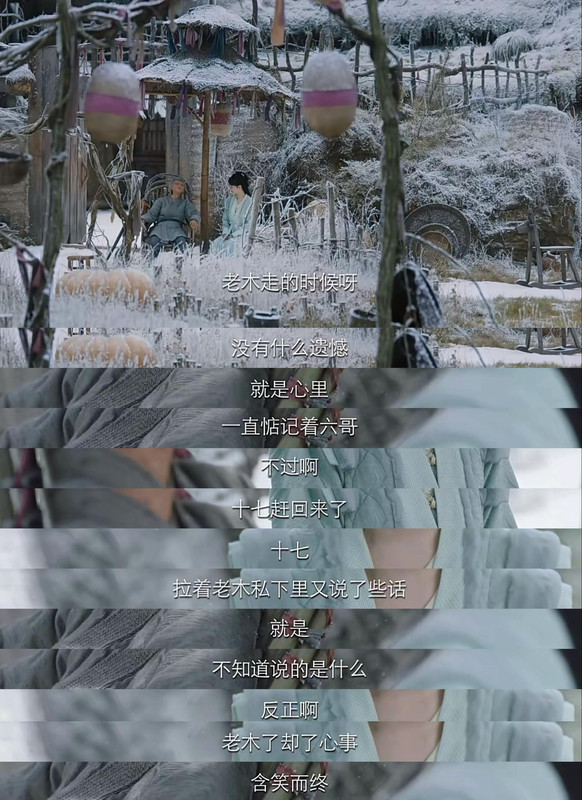
Old Mu passed away with a smile
● “Jing” has returned (from a netizen)
• The Queen Mother was stunned and shocked
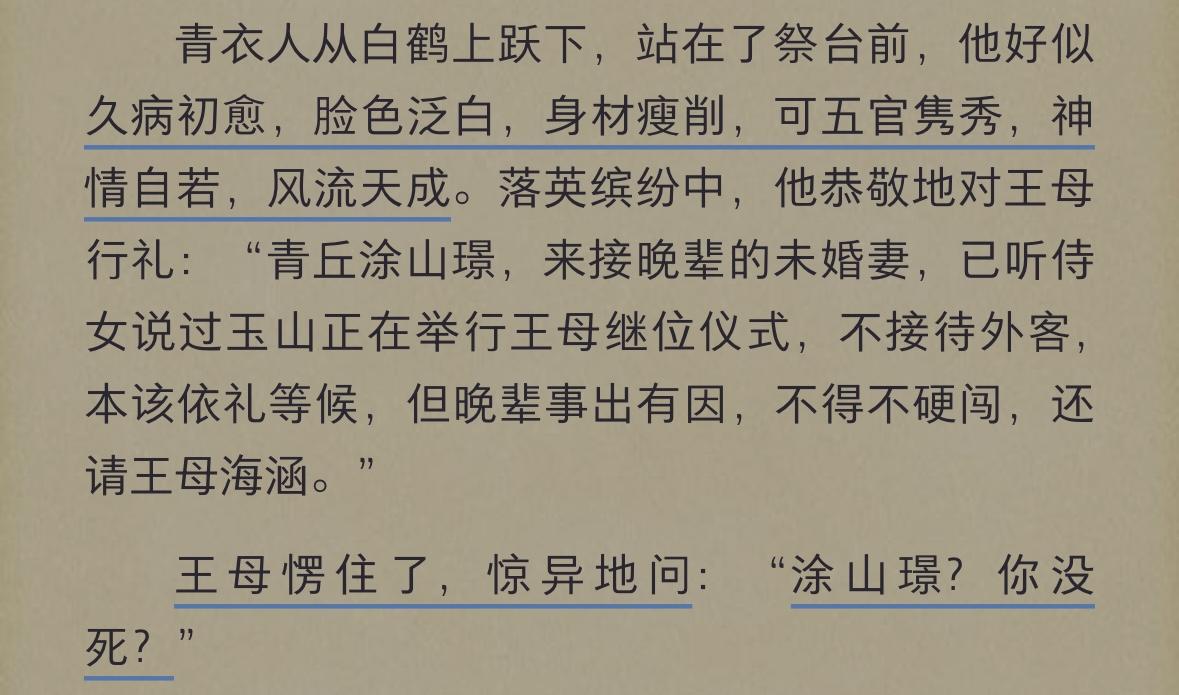
What could possibly shock the well-informed Queen Mother?
• Even her trusted aide Jingye was so frightened by “Jing” that her legs went weak
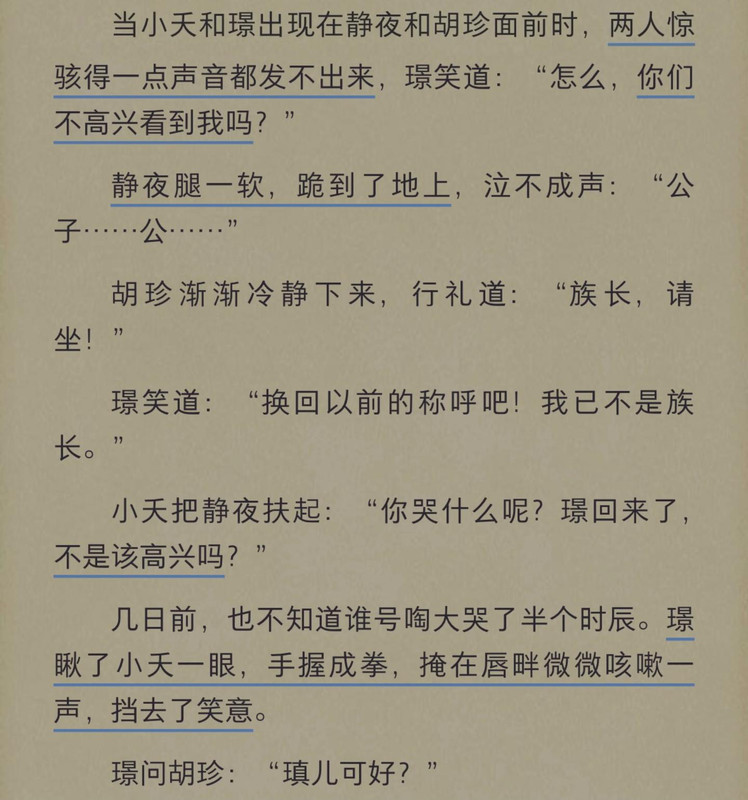
Did Jingye’s legs go weak from joy or fear?
(Some plot points you said she deleted, but then she secretly went and filmed them elsewhere...)
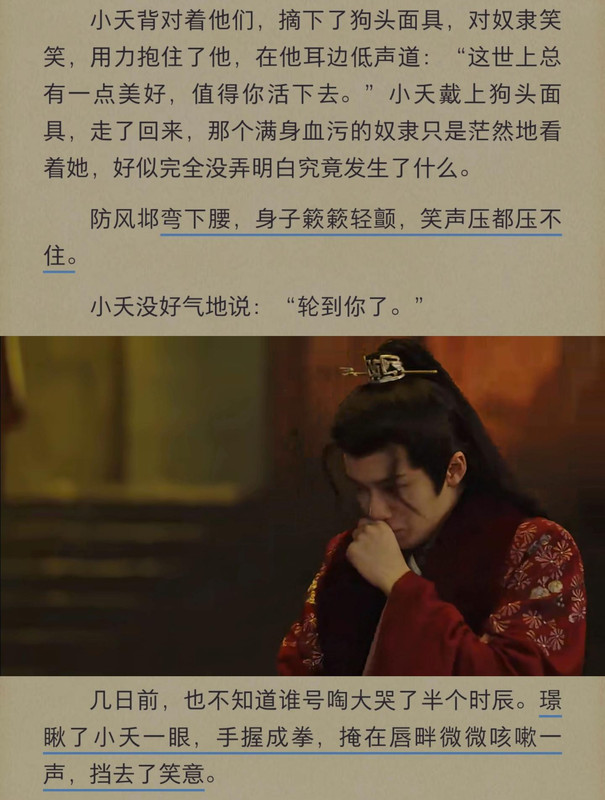
He clenched his hand into a fist, brought it to his lips, and let out a soft cough — hiding his smile.
• Secret guard Miao Pu was so frightened by “Jing” that he let out a scream
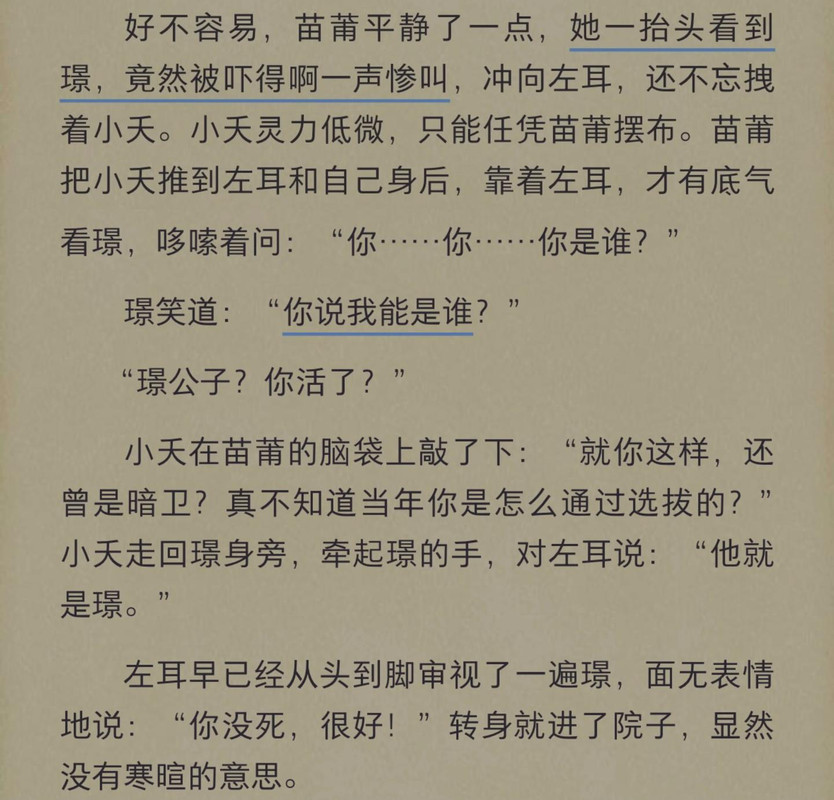
Is secret guard Miao Pu even more timid than Xiao Yao?
How did he even pass the selection process?
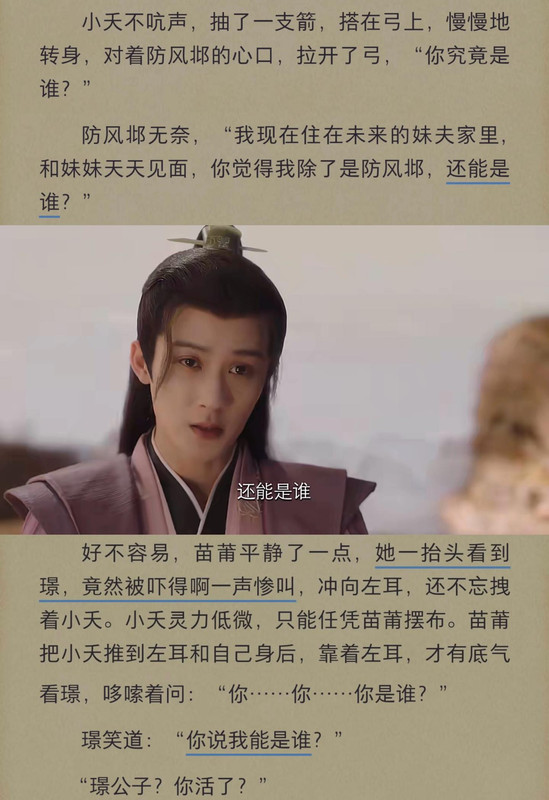
Who could it be?
• Left Ear
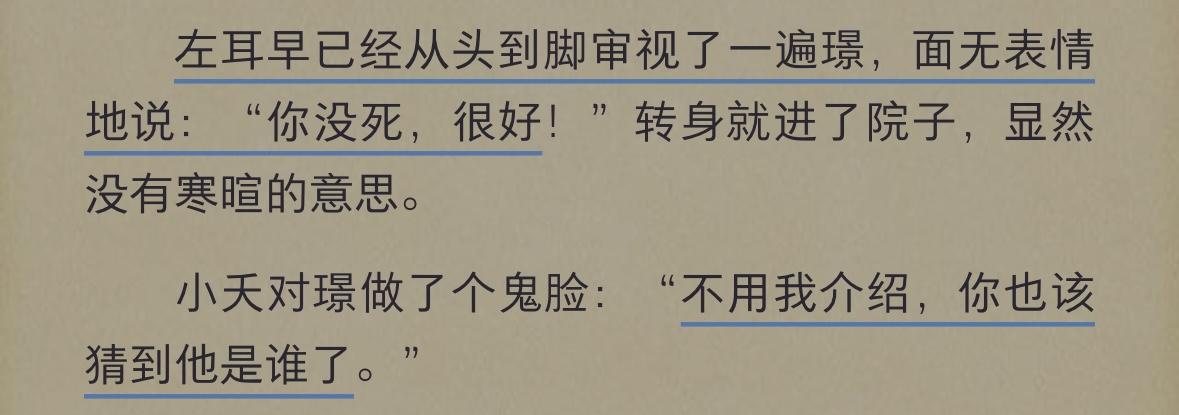
Left Ear identifies people by scent
• Cangxuan
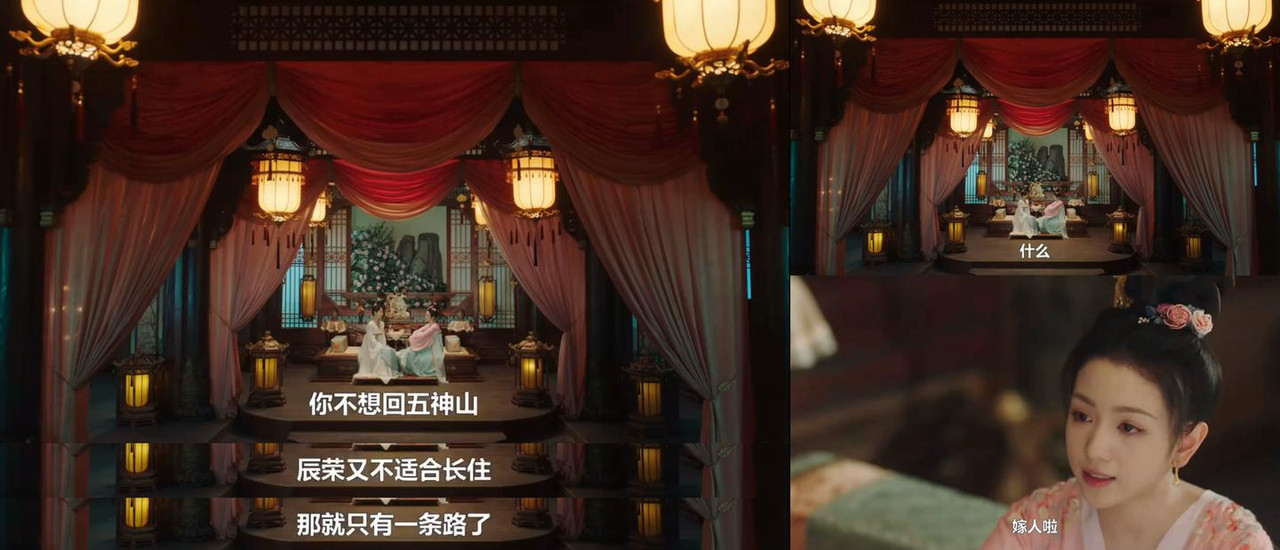
There is only one way out.
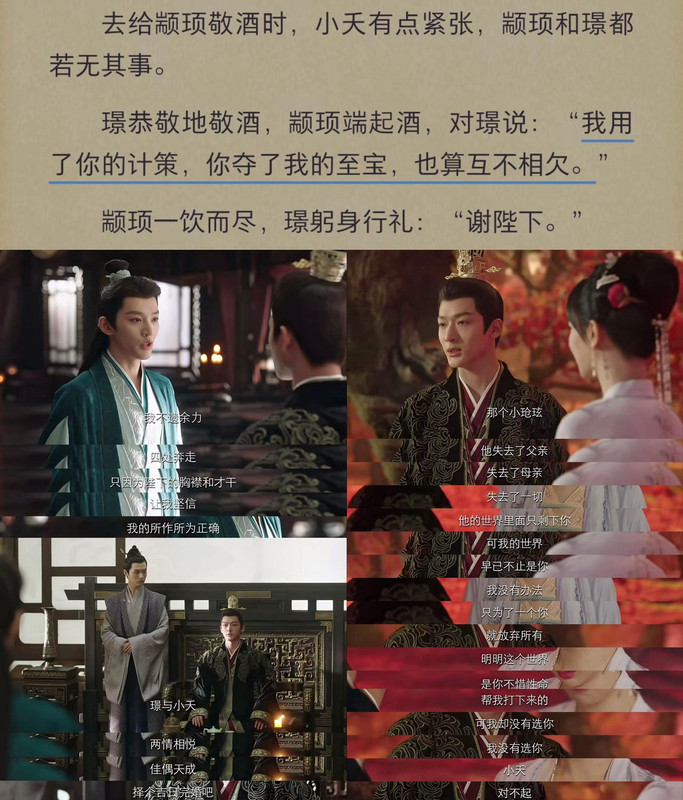
Using Xiao Yao and “Jing’s” shared bond to pressure Cangxuan into letting someone go
(Alright then — so basically everyone in the story knows who this “Jing” really is… except for…? Haha… Letting Xiao Yao marry “Jing” was just to give her a convenient escape route…)
• Li Rongchang (added in the drama version)
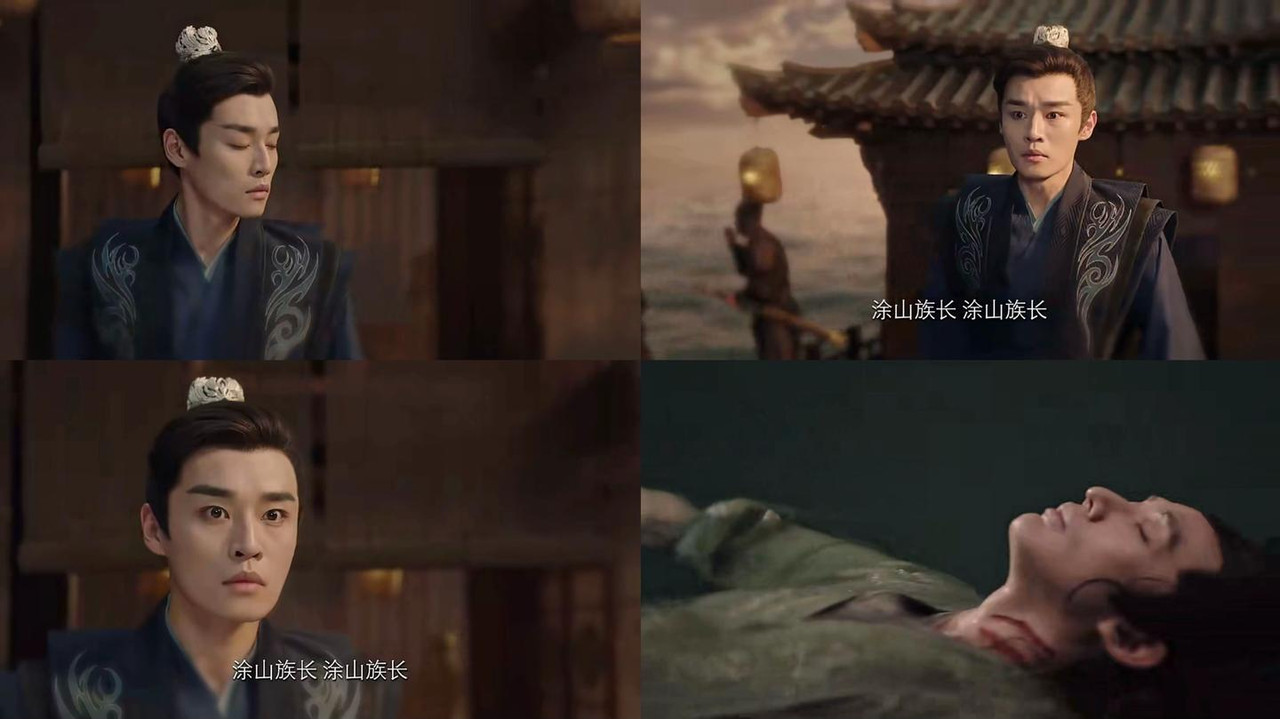
Just like Left Ear, he tracks people by scent
(When he found “Jing,” Rongchang furrowed his brows, without a trace of joy)
Combining both the novel and the drama:
Everyone who truly recognized “Jing” had the same initial reaction — not a single hint of joy
(except for Yao-jie, who was very happy).
All responses were filled with fear, sorrow, shock, or dread...
• There’s a difference between Jing and “Jing”
【No father, no mother】
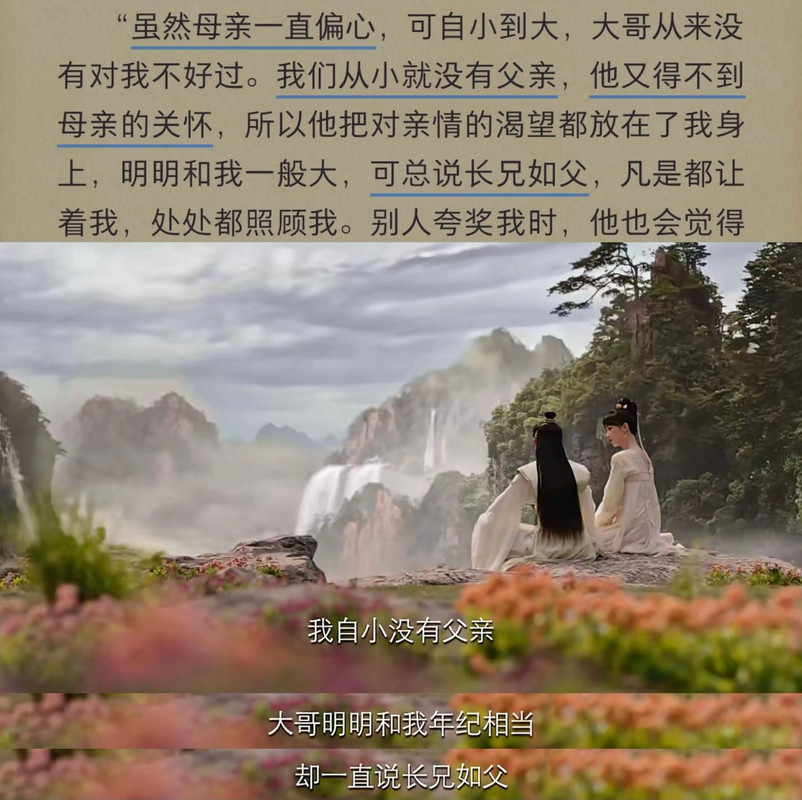
Jing’s own words: He has a mother, but no father.
(If Jing were to say he had no mother, it would be deeply disrespectful to the late woman who raised him…
Of course, other interpretations are also valid and respected.)
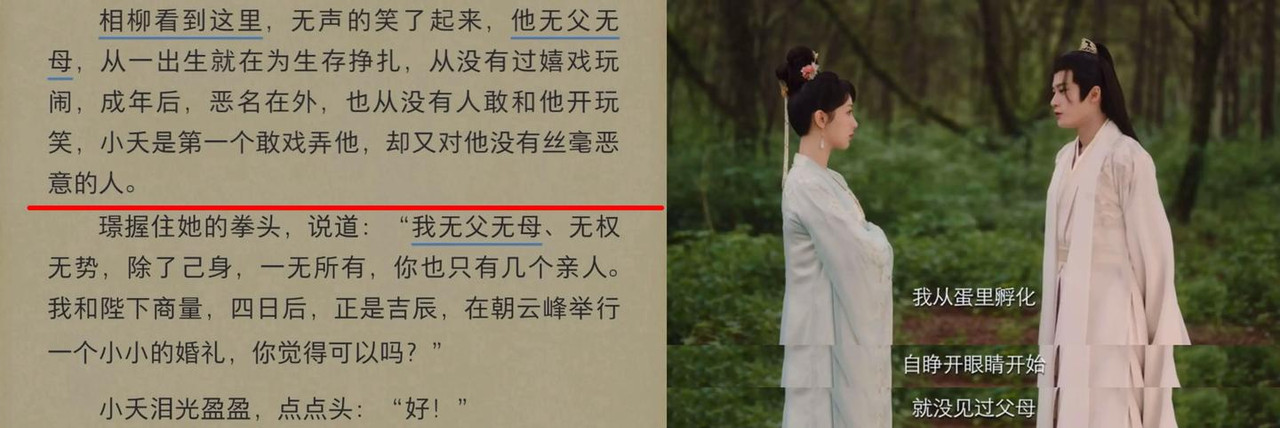
“Jing” said of himself: No father, no mother
【Mountain Protection Formation】
㊀ Five Sacred Mountains' Protection Array
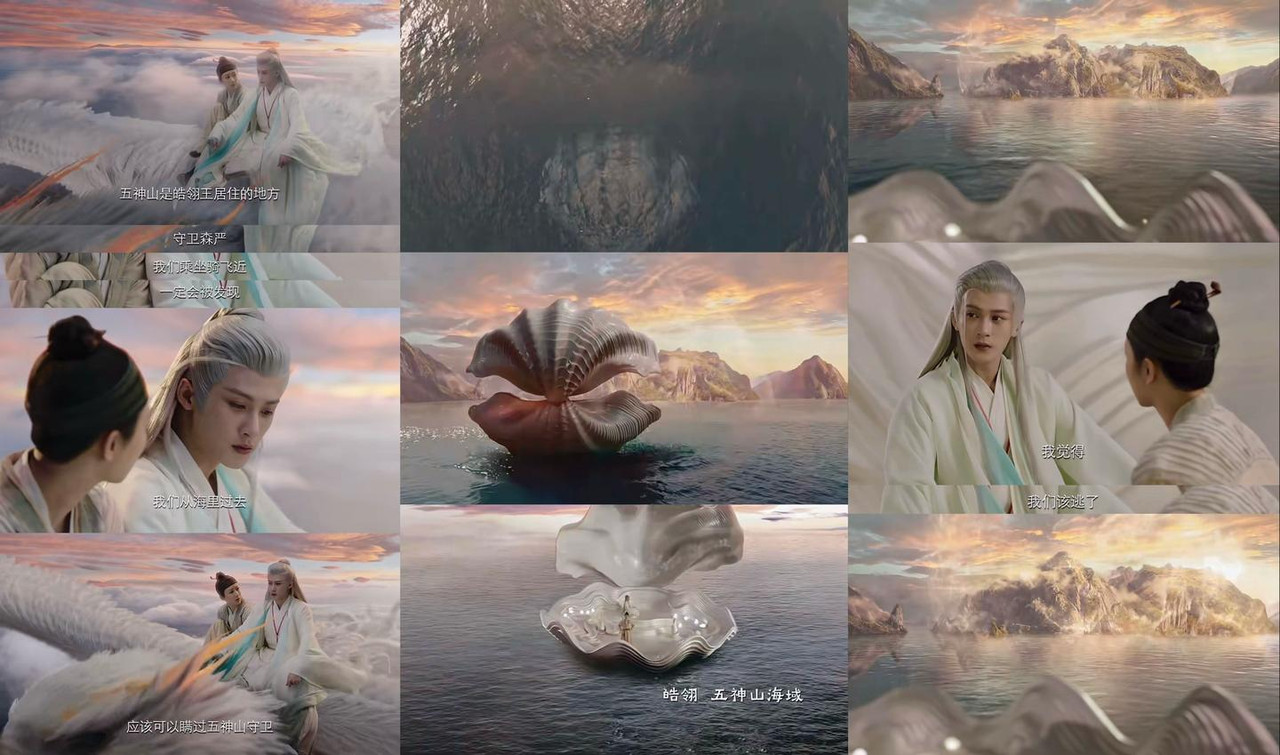
Heavily guarded (Got discovered — better run, don’t want any trouble)
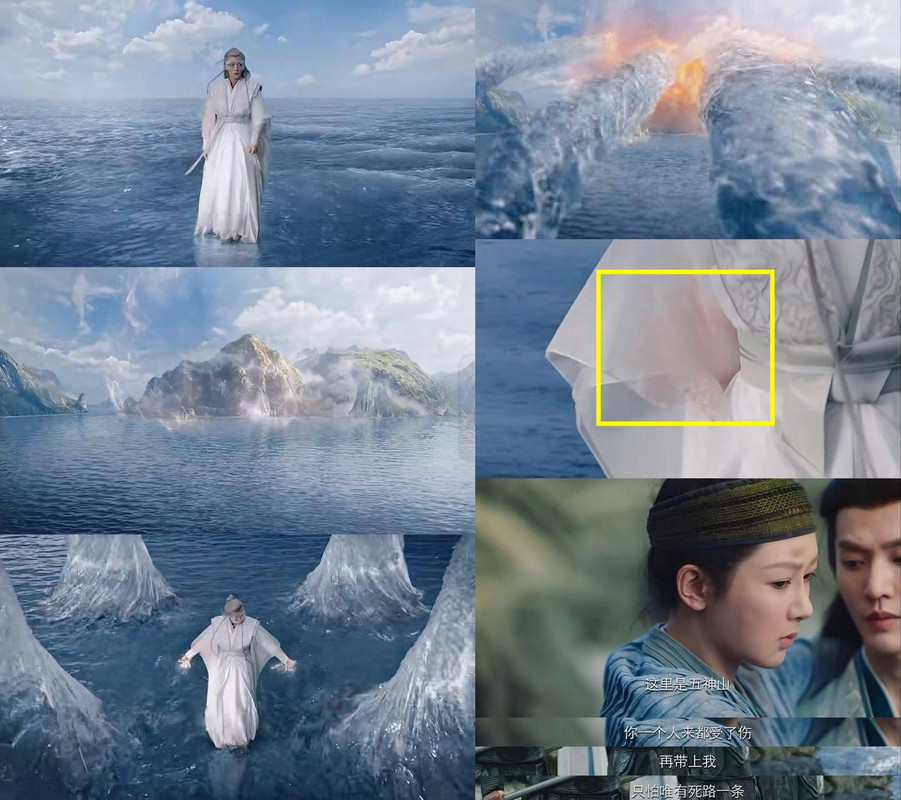
Forcefully broke through the formation and was injured.
㊁ Shennong Mountain’s Mountain Protection Formation
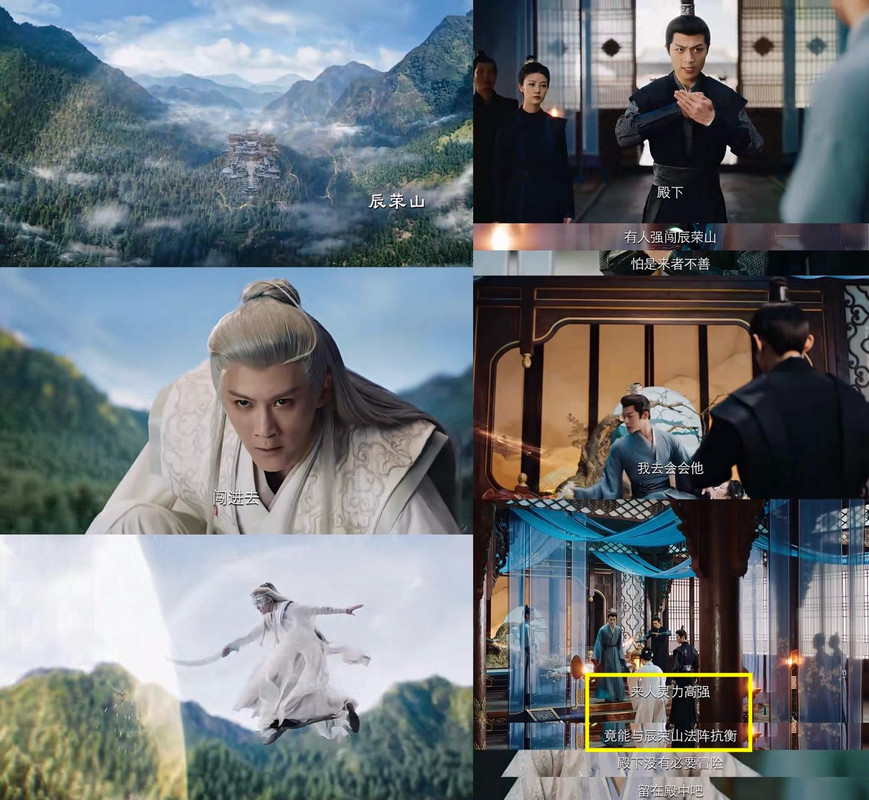
Possesses powerful spiritual energy — forcefully broke in and split it open
㊂ Yushan Mountain’s Mountain Protection Formation
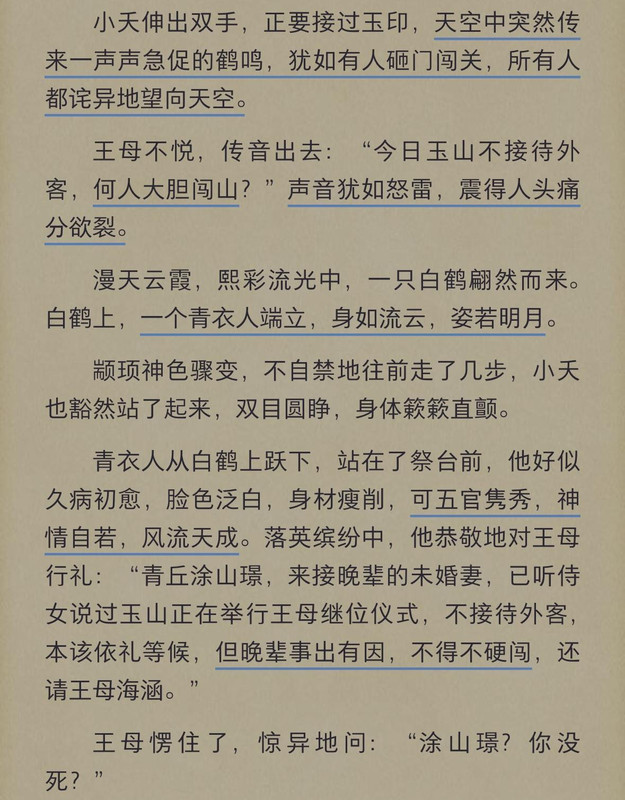
Broke down the door and forced his way in — “Jing” with incredibly powerful spiritual energy
———
◐ Insert question: Can Xiang Liu still “come back to life” after “dying in battle”?
First, let’s look at what constitutes death for demons: destruction of the demon core (yaodan) and the dispersal of divine consciousness (shenshì).
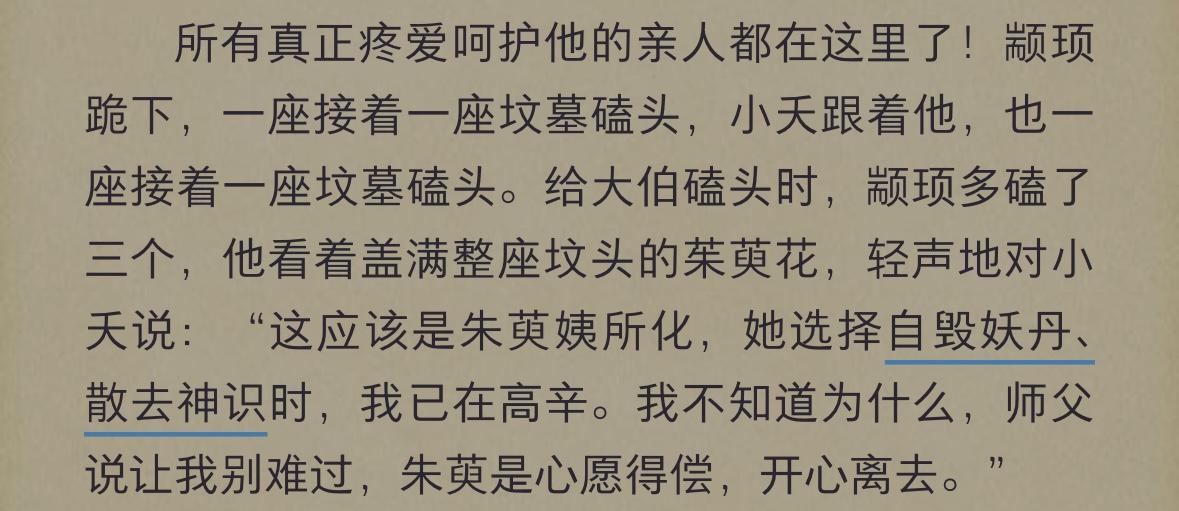
Zhuyu, the flower demon, died completely.
As for the final description of Xiang Liu’s death: his true form — a nine-headed serpent — was pierced by thousands of arrows. Soldiers saw the corpse dissolve into black blood. There was no mention of the state of his demon core (yaodan).
(In the drama version, the sea battle was changed to Qingshui Town.)
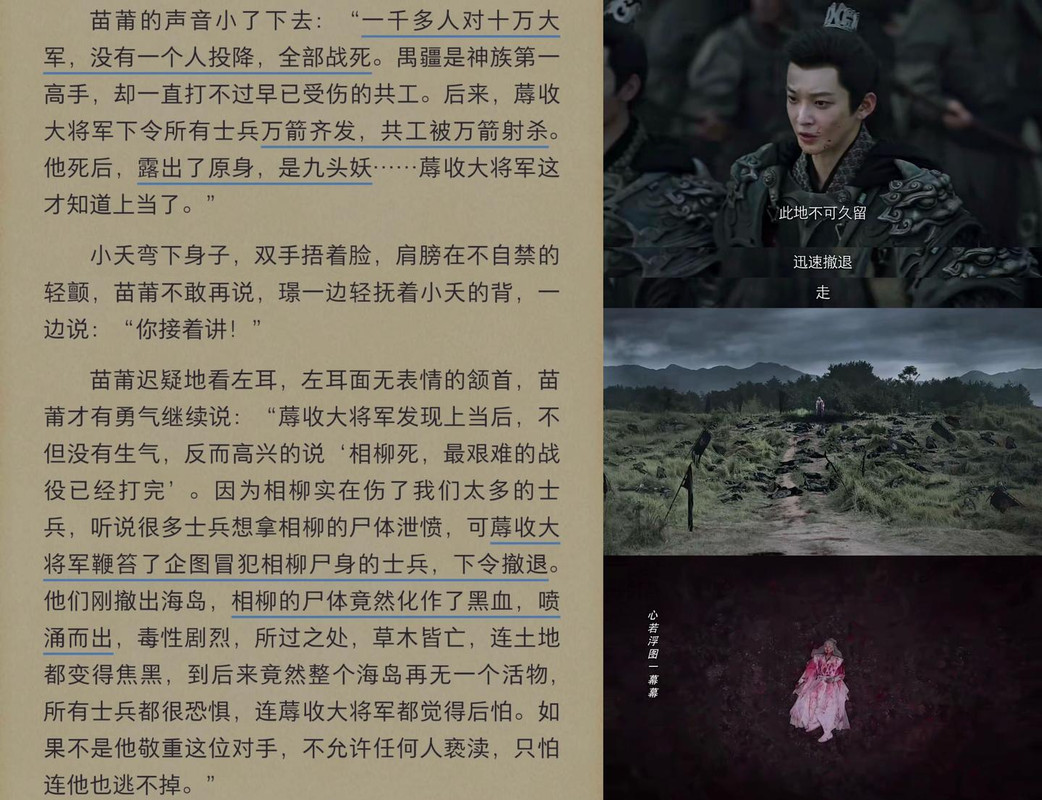
Xiang Liu’s true form — the nine-headed serpent — is dead; the state of his demon core remains unknown.
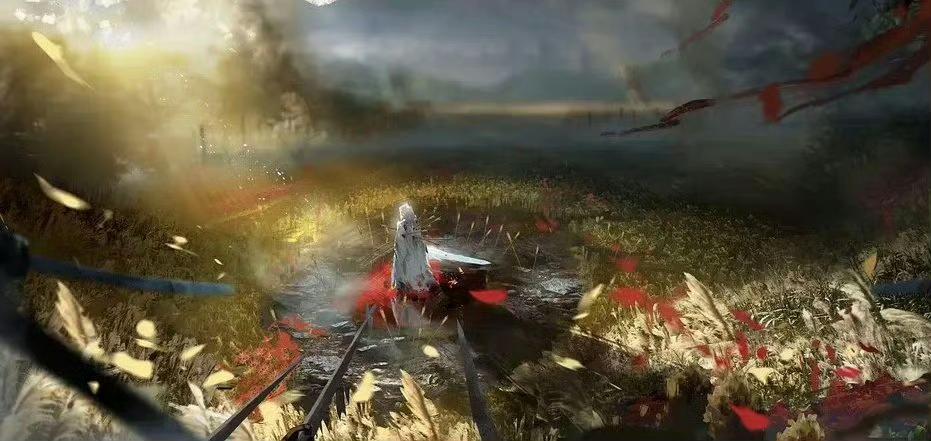
Concept art of death in battle (Qingshui Town, drama version)
Based on this, we can speculate two possible outcomes regarding Xiang Liu’s demon core:
1️⃣ It was destroyed along with his true body.
2️⃣ It was lost — possibly left behind in the sea where he died (novel version) / or in Qingshui Town (drama version).
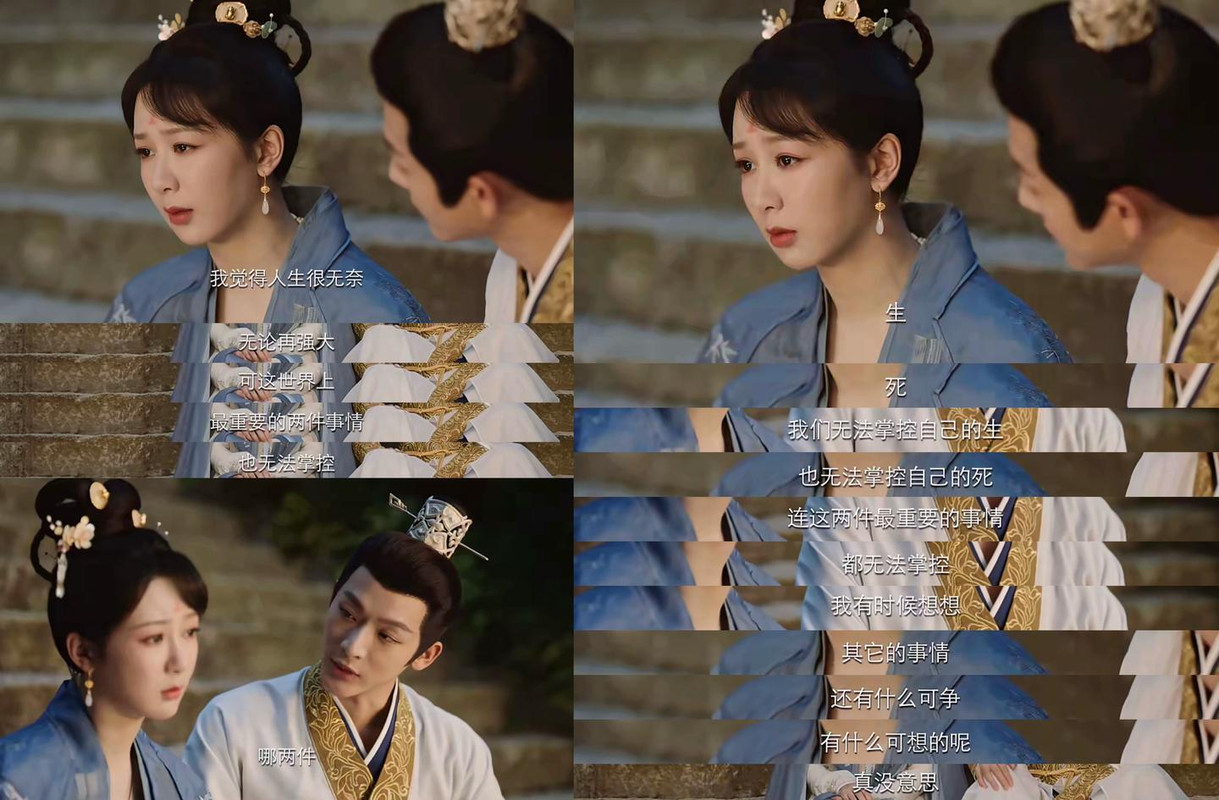
Life and death are beyond control
In the novel version, Tong Hua never explicitly stated what happened to the demon core, leaving it as an open-ended conclusion.
Xiang Liu’s story in Lost You Forever ends here.
Outside the story, readers are free to explore their imagination through fanfiction...
Which ending you prefer is entirely up to your personal taste — imagine it however you like.
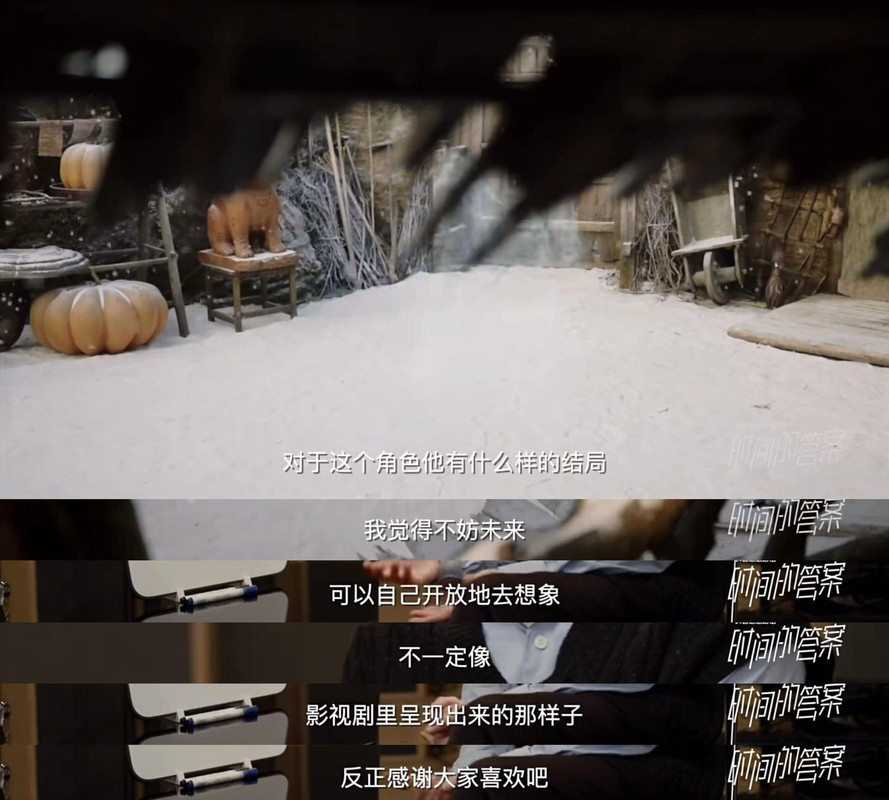
Teacher Tan Jianci encourages everyone to imagine Xiang Liu’s ending beyond the story themselves.
【If you prefer Ending 1️⃣, you can believe that Xiang Liu died completely and can never be brought back.】
Personally, I prefer Ending 2️⃣ — that Xiang Liu’s demon core was lost.
Below are some thoughts on the possible continuation of Ending 2️⃣.
There’s something interesting — if Xiang Liu really did often disguise himself or shapeshift into Jing, then it would make sense that when Xiao Yao called out the name "Jing," she was actually referring to Xiang Liu.
In the novel, there’s a moment when Xiao Yao wakes up from a dream and hears a sound coming from the window. She then calls out "Jing." Could it be that the one she was calling was actually Xiang Liu?
A similar situation happens when Xiao Yao is unconscious and found by Cangxuan after an attempted assassination — at that moment, she also calls out "Jing," and then hears the sound of a heartbeat.
So the "Jing" that Xiao Yao was referring to… was actually Xiang Liu.
@AkuMau
I personally don't believe în the XL disguising himself în Jing's theory, that's too far fetched IMO and it only works for those who also believe în the reborn theory.
However, I do believe that it's possible that XY got so used to name Jing instead of XL to CX, who knew nothing about her relationship to XL, as being the reason for her heartbreak, that she set a pattern for herself in the long run. The reason why I see that as a possibility îs because tong hua used this scheme twice that I recall of. Once, when FFY tricked Jing, he believed the person smiling at him to be XY, and second, when CX had his wedding night he called Xinyue by XY's name. Both believed that the person în front of them is the person they love. Yea, Jing was on drugs and CX was drunk, but în the 2 exemples you mentioned, XY wasn't really sane either.
În the first exemple it should have been her wedding day, but Jing went missing and she just woke up from a dream that wasn't about him and în the second exemple she was clearly în a delirious state, barely alive. She heard the heartbeat and called Jing's name, but we know that the heartbeat was always linked to XL.
Not sure if these particular cases hold water, but I can mention here the second time she sang the longing ballad. The author clearly wanted to specify that unlike other times, this particular time XY drank so much that even her mind got confused. I see no point for the author to specify this detail if not for a reason. The timing itself is interesting, Bei just left her after she made him the koi playing with lotus, leaving XY thinking of how great it would have been if he could be Bei all the time, with no need for her to wait for him to come back.
It's been implied that XY dreamed of XL countless of times. The emphasis when he saved her from the vortex was on how she stared at him while seemed to be dreaming. She couldn't tell if he is real or not, if this îs a dream or not.
In fact I believe XY was referring to XL quite a few times before while being sober too, îs just that tong hua arranged the narrative as to fool the reader into thinking that XY îs talking about Jing instead. I'd have to check, but I recall that once, during a discussion she had with Ah Nian, XY said something about how losing a man îs a heart wrenching pain. I don't recall the whole context, but I know this scene got my attention, because it happened after the 37 years underwater but before breaking up with Jing due to FFY's scheme, so to me it's obvious that she was referring to XL, since Jing was still available at that point. The only experience she had up till then of losing a man was when she woke up after the 37 years and found out that XL sent her back. She was crying tears of happiness when she saw the sunlight again, yet the whole joy of regaining sight disapperead when she found out that XL sent her back. How happy, how sad. That definetely sounds like a heart wrenching pain.
After breaking up with Jing, she recalled how once she dreamed of him kissing her, but we get to learn later în the story that she never dreamed of Jing. Unless the translation is not wrong, could it be that tong hua forgot her own text? We're talking about the novel she's most proud of. XY's thoughts in that scene are quite confusing too. Not sure which chapter, I am looking at a print screen, but she basically talks about her longing for Jing and how not being able to see him or hear him anymore makes her wanna fall into the dream forever and never wake up. I don't see how not seeing or hearing Jing anymore îs even a possibility, since regardless of him being married, he is still present in XY's circle of friends. However, I can't say the same about XL.
•Sequel (Fan Fiction):
Once, Qiang Xuan had promised Xiao Yao “to give him a chance to disappear,” so during the final battle, Qiang Xuan didn’t send anyone to check the condition of the demon core.
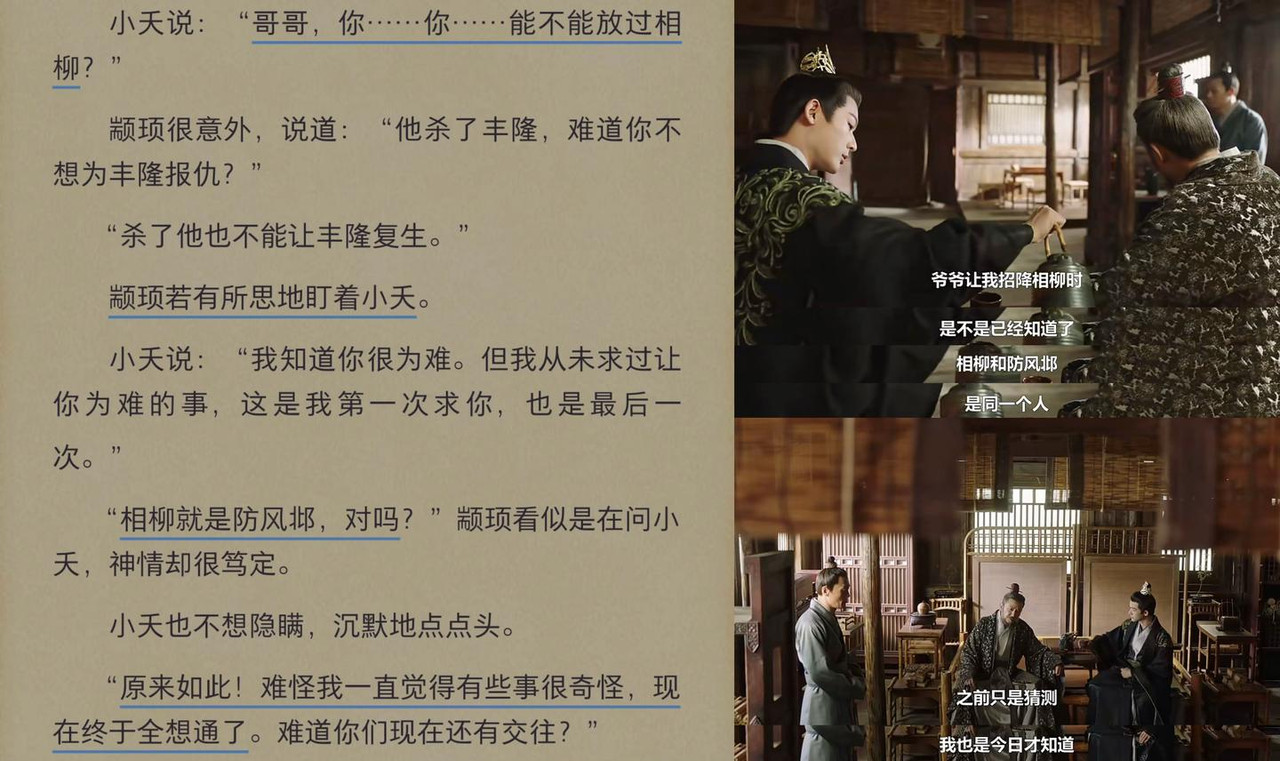
In the drama version, Cang Xuan found out that “Bei = Liu” right after the wedding snatching, so there was no need for Xiao Yao to plead anymore.
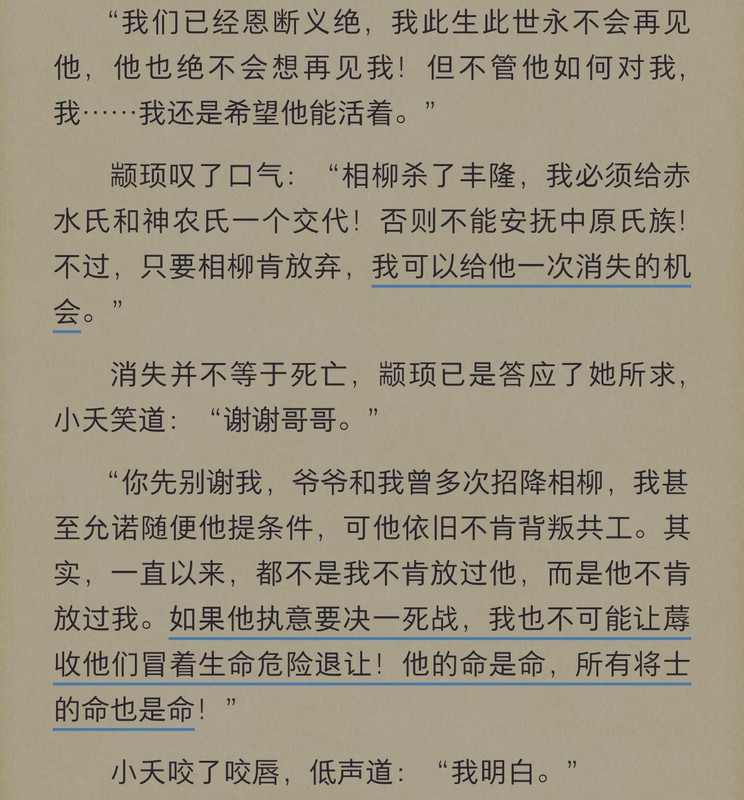
He wouldn’t completely wipe him out.
Xiangliu’s demon core might have been found and retrieved by someone sent from the Guifang Clan, and taken back to the tribe to be revived with Huíhún Cǎo (Soul-Returning Herb).
Hundreds of years later, the reborn Guifang Bei has lost his memory and is completely free...
He continues to lead the Guifang Clan to grow and prosper—
The future story holds endless possibilities...
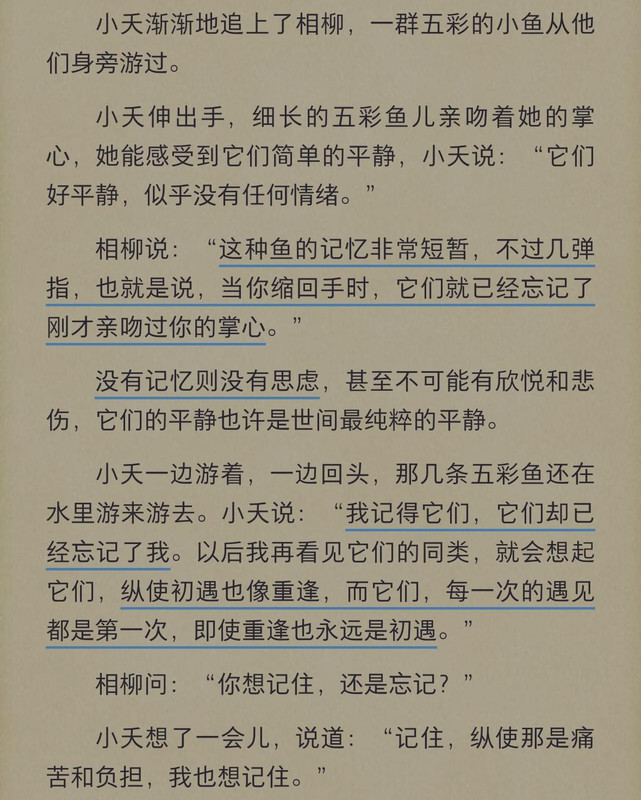
Amnesia, reunion, first meeting.
(I didn’t imagine Xiao Yao being the one to find the demon core and revive Xiangliu, because I feel that “revival” is a highly technical task—something that requires professionals like the Guifang Clan to carry out…
Of course, Xiao Yao could help as an assistant, or she could go to Mount Jade to restore her spiritual power and become a master herself first.
In any case, it all depends on imagination…)
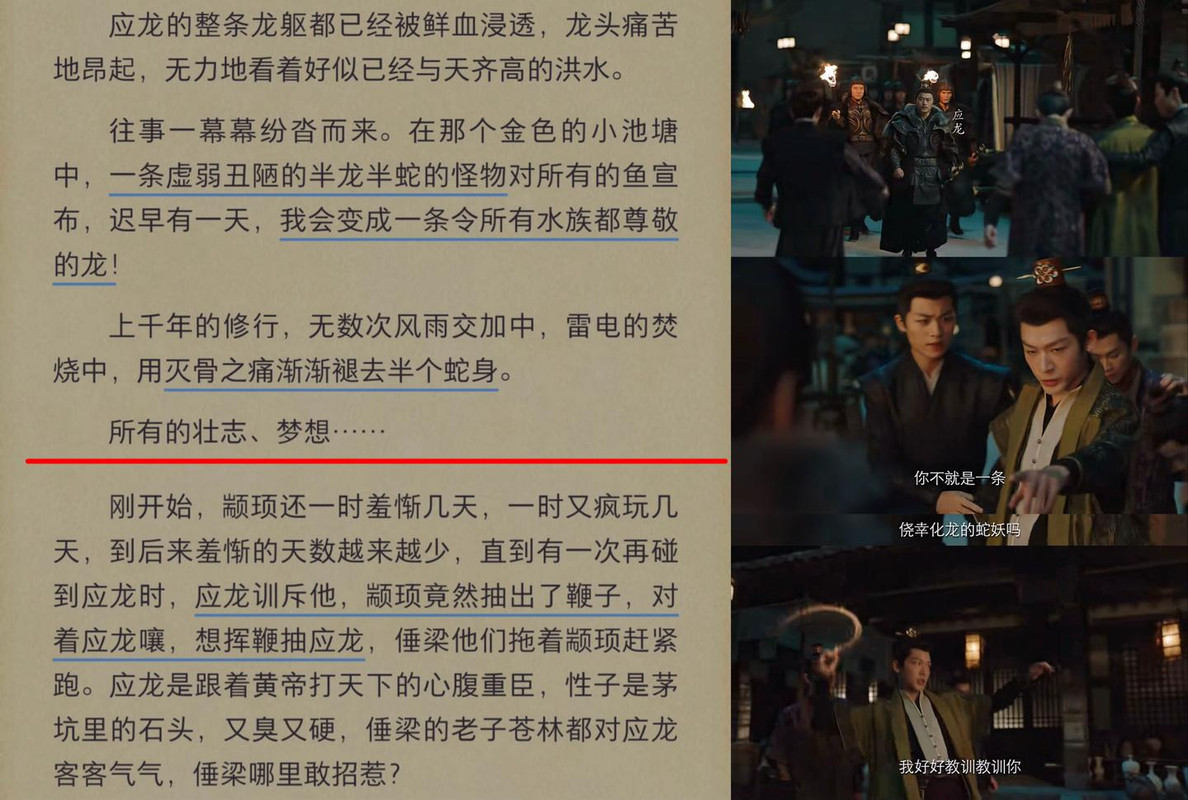
The drama version added the detail of Yinglong enduring the “bone-shattering pain” during his tribulation, along with the line about the serpent demon transforming into a dragon.
(We can imagine that Xiangliu also succeeded in his tribulation, endured the “bone-shattering pain,” and the serpent demon ascended to become a divine dragon…)
•Clues of their reunion
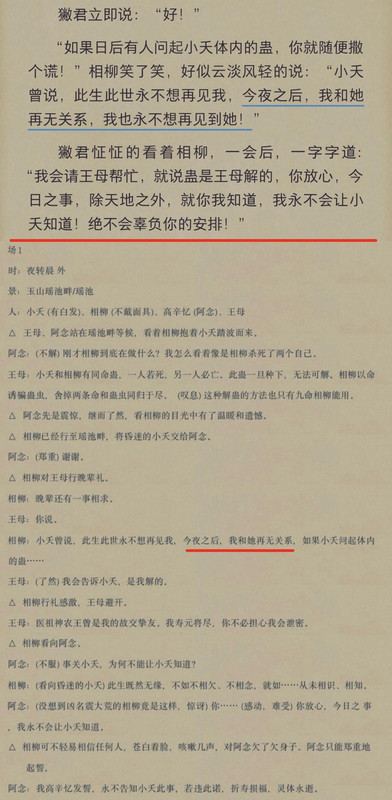
The drama version removed the book version’s line “I also never want to see her again” (Tong Hua truly understands which line was the key to misleading novel readers... using obvious dialogue to trick readers into being completely caught off guard…).
If, in the book version, Xiangliu’s words on the surface didn’t just mean “never see her again in this lifetime,” but rather “never see her again for all eternity,”
then the additions and changes in the drama version mean that they must meet again—
Even if life restarts, he still has to go see her…
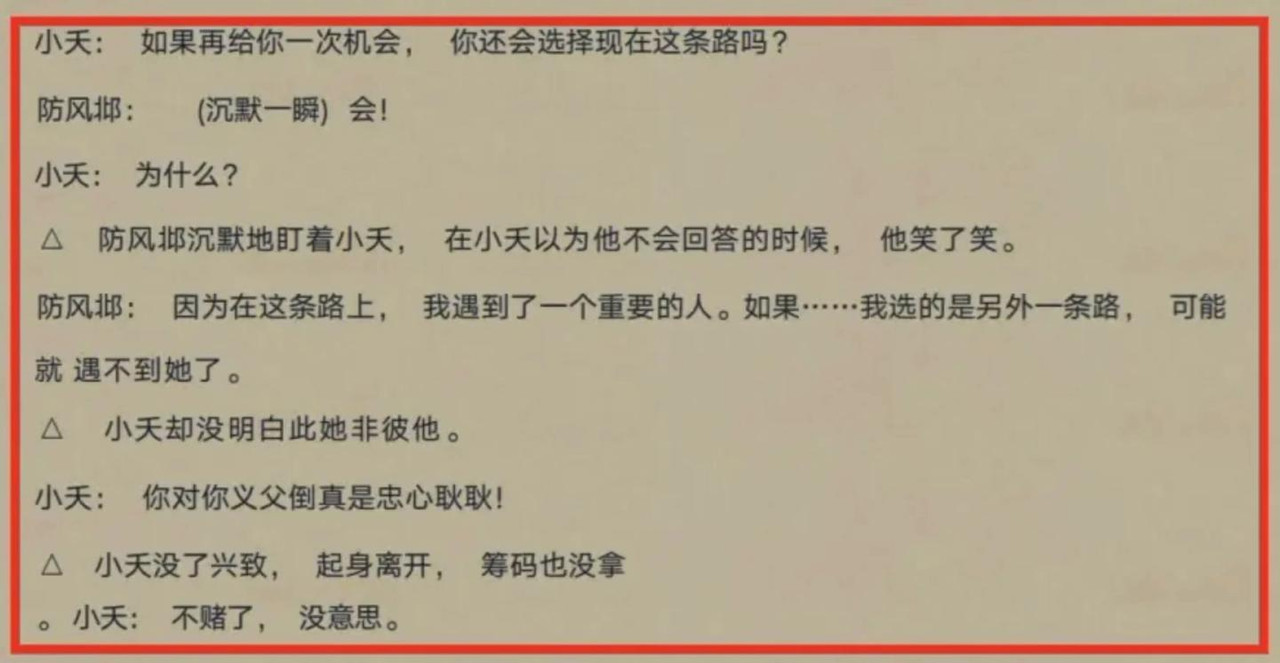
Even if given another chance, he would still go to meet the important person.
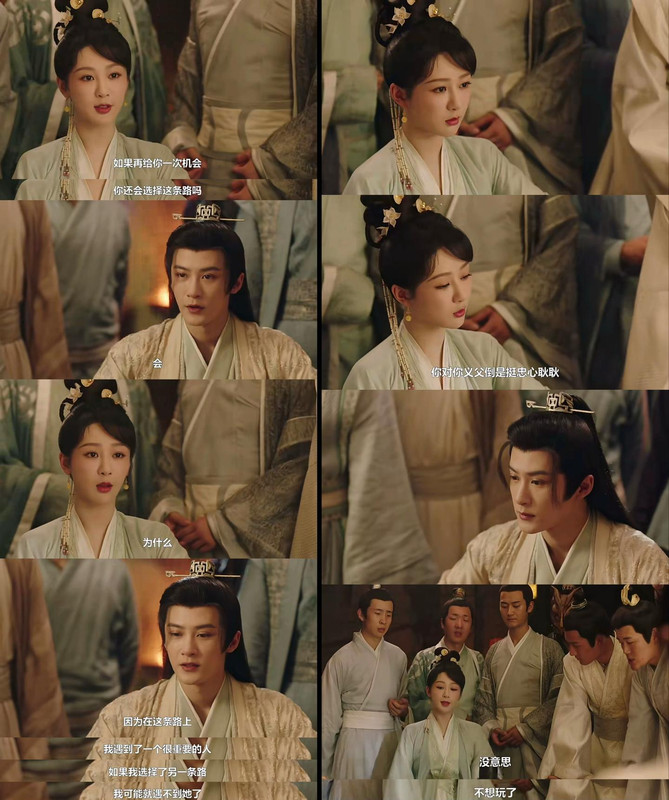
You are the most important person to him.
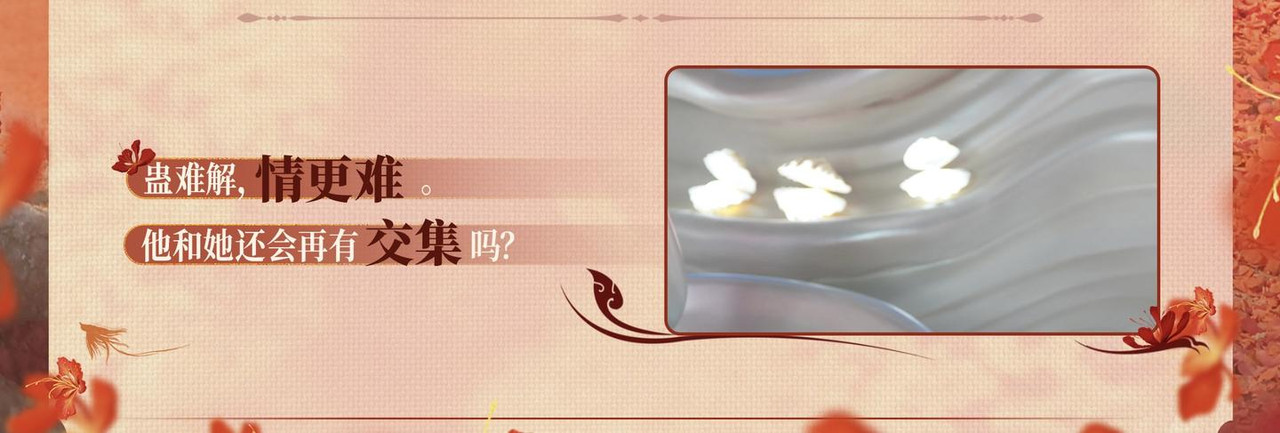
Hint
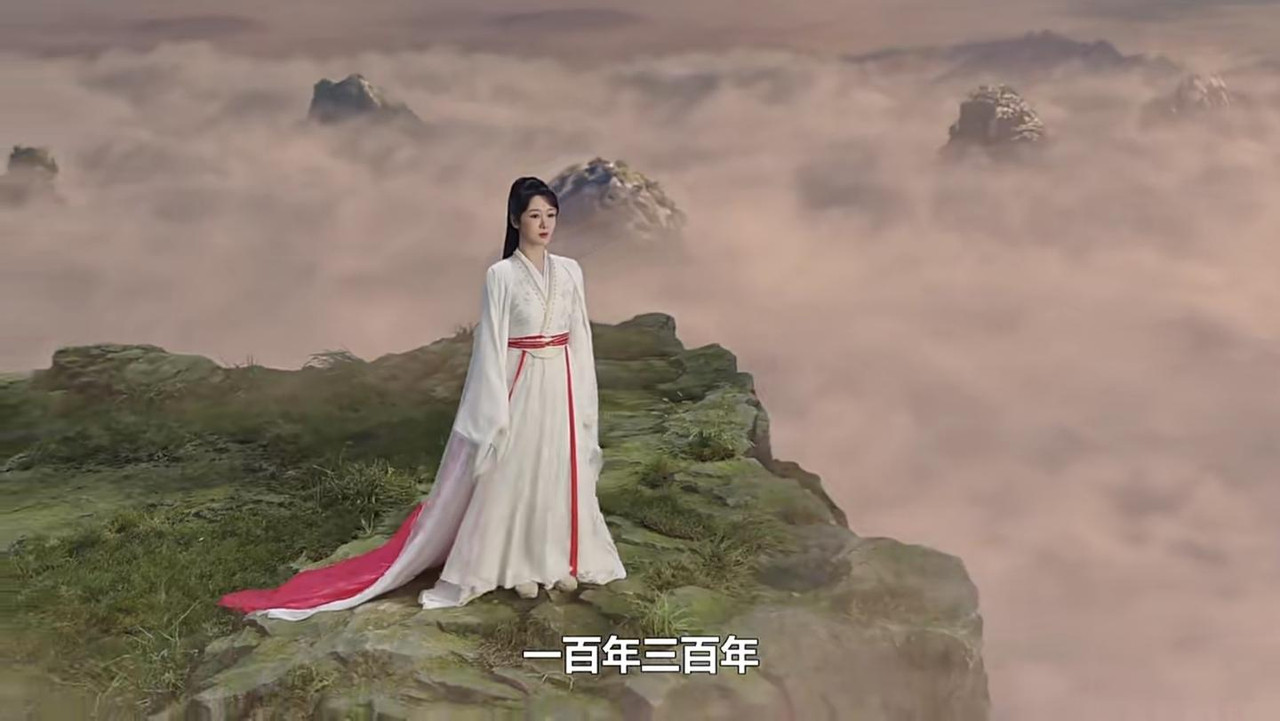
Sister Yao has to wait another 300 years for “Jing” again.
•Tan Jianci’s fan fiction sequel
(I said it wrong earlier — this isn’t called a hidden ending, it should be called a hidden continuation of the main storyline… Teacher Tan even paid out of his own pocket… truly generous, but actually, it was also quite easy to figure out.)
The furball waits 300 years for his master to be reborn and return.

He worked hard to repair all of his master’s big shells.
(The rabbit spirit’s little bunny has already cultivated into human form—what about you, Furball?)
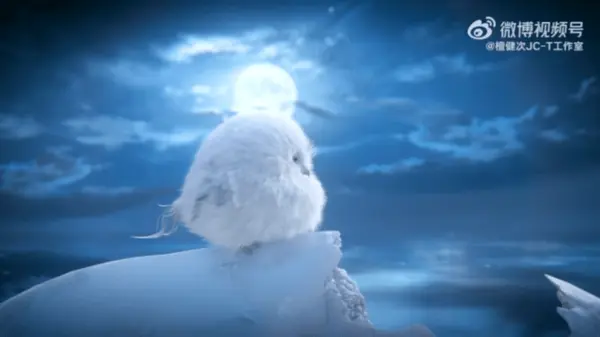
Jingwei fills the sea, Furball fills the shells.
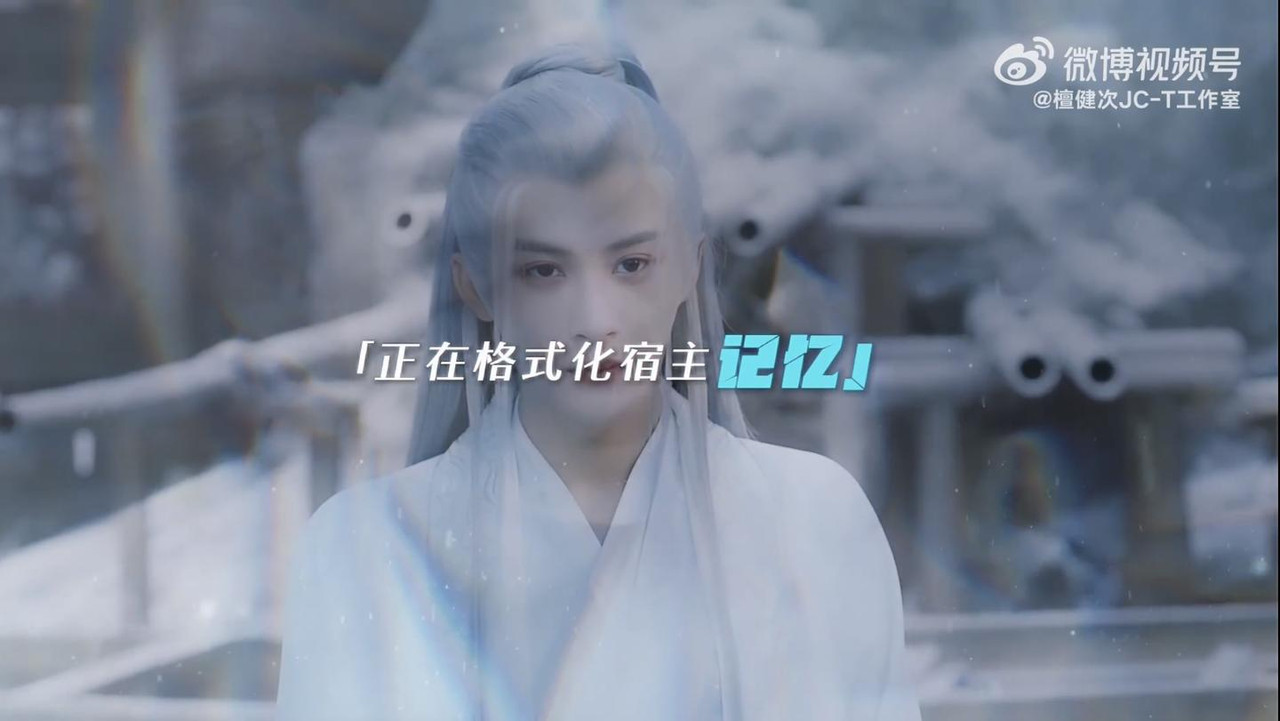
Memory formatting (amnesia)
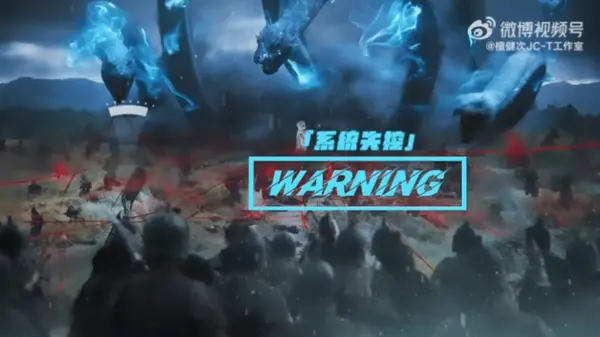
Killed in battle — reborn